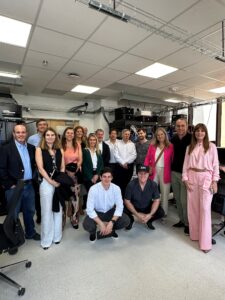
June 5, 2025
Max Hays Hosts ChileMass Delegation!
Max Hays recently gave a presentation on quantum computing to members of the Chile Massachusetts Alliance, followed by a guided tour of our new lab facilities.
The Chile Massachusetts Alliance (ChileMass) is a Cambridge-based nonprofit that strengthens collaboration between Chile and Massachusetts in the areas of science, technology, and innovation. The organization brings together companies, startups, universities, investors, and local communities to launch joint projects, programs, and partnerships across both regions.
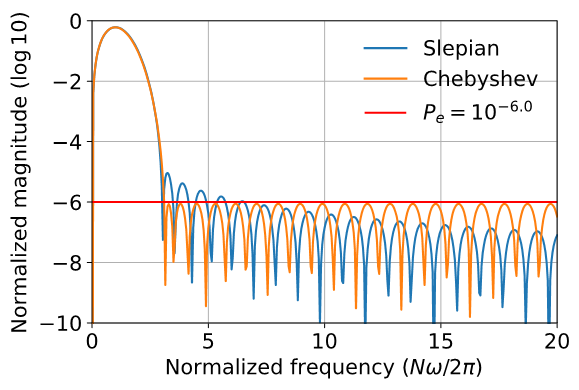
Despite progress towards achieving low error rates with superconducting qubits, error-prone two-qubit gates remain a barrier to realizing larger-scale quantum computers. Baseband-control is commonly used to realize two-qubit phase gates. However, the gate fidelity depends heavily on the precise shape of the baseband pulse, and imperfections lead to phase errors and leakage out of the computational basis. In this work, we use a signal-processing approach to design the pulse shape. We investigate a Chebyshev-based trajectory as an alternative to the widely used Slepian-based trajectory and explore the relative advantages. Results show that the Chebyshev-based trajectory can be designed to achieve lower leakage error and infidelity in certain cases.
Congratulations to Andy Ding, and all co-authors in the MIT EQuS Group, the Digital Signal Processing Group, and Mitsubishi Electric Research Laboratories!
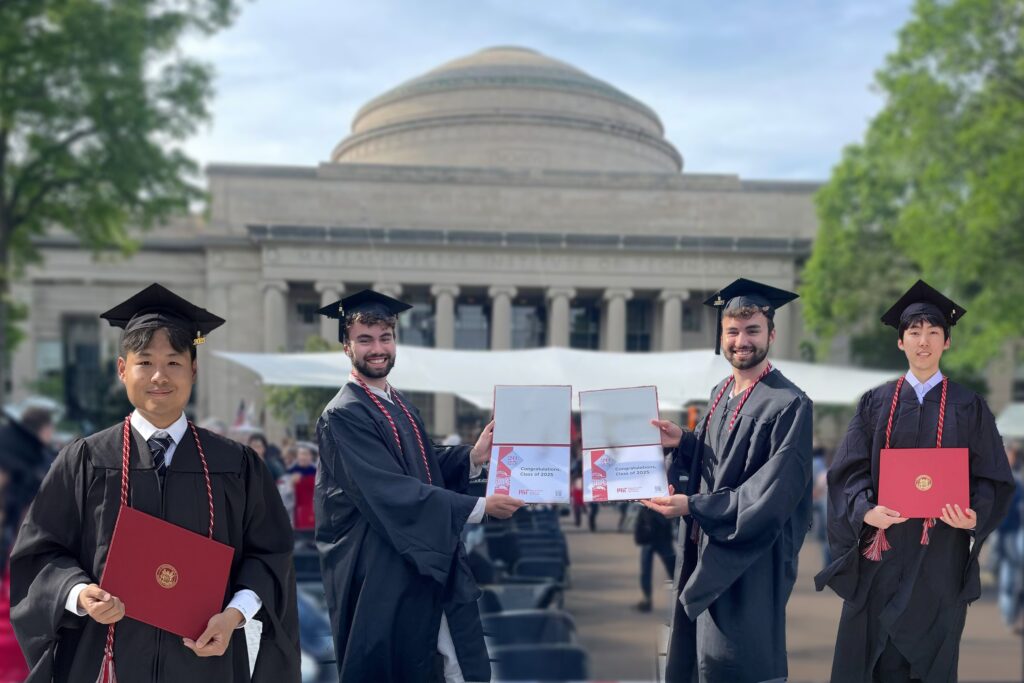
May 29, 2025
Congratulations to the 2025 EQuS Graduates!
Congratulations Harry Kang, Junghyun Kim, David Pahl, and Lukas Pahl, who all earned their Master of Science in Electrical Engineering and Computer Science based on research performed in the EQuS group.
The masters theses are on the topics:
- Harry Kang: “Investigation of Two Qubit Gates between Remote Spin Qubits using a Superconductor Coupler”
- Junghyun Kim: “Design and Engineering of Protected Superconducting Qubits”
- David Pahl: “Simulation and Design of Quantum Processors for Low-Overhead Quantum Error Correction”
- Lukas Pahl: “Calibratoin and Control of Superconducting Qubits for Low-Overhead Quantum Error Correction”
All four will continue their work as PhD students in EQuS. Please join us in congratulating Harry, Junghyun, David, and Lukas!
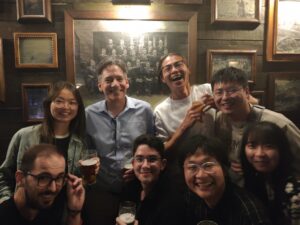
May 21 – 30, 2025
Professor Will Oliver teaches at Benasque Science Center in Benasque, Spain!
Professor Will Oliver gave two lectures at the Benasque Science Center’s Spring School on Superconducting Qubit Technology. Expert speakers from universities, research institutes, and corporations around the world were invited to speak on a broad range of subjects from the basics to the specific techniques required to design, fabricate, and operate quantum devices based on superconducting circuits.
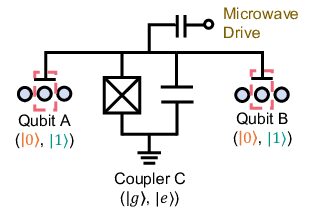
April 23, 2025
Spin qubits confined in quantum dots are promising candidates for quantum computation, but a significant challenge is the dense wiring required to control quantum dots situated extremely close together.
To overcome this limitation, we have proposed using a charge-sensitive superconducting circuit, known as the offset-charge-sensitive (OCS) transmon, as a coupler that entangles distant spin qubits. We investigated two distinct ways of implementing a CZ gate: a rapid, off-resonant pulse for quick interactions and a more tailored pulse, using pulse-envelope engineering, with dynamical decoupling to mitigate the effects of charge noise on spin qubits. Time-domain simulations demonstrated that these strategies can achieve gate fidelities exceeding 90% under realistic conditions.
This research represents an important step towards leveraging the strengths of superconducting circuits in spin-based quantum computing.
Congratulations to Harry and all co-authors with the MIT EQuS Group!
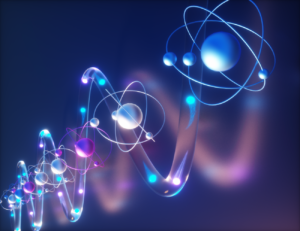
March 21, 2025
In this work, we construct a quantum interconnect by using a waveguide to connect two superconducting, multi-qubit modules. We emit and absorb microwave photons on demand and in a chosen direction between these modules using a quantum interference effect. To optimize the emission and absorption protocol, we implement a reinforcement learning algorithm to shape the photon for maximal absorption efficiency. By halting the emission process halfway through its duration, we generate remote entanglement between modules in the form of a four-qubit W state. This quantum network architecture enables all-to-all connectivity between non-local processors for modular, distributed, and extensible quantum computation.
Congratulations Aziza Almanakly, Beatriz Yankelevich, and all co-authors with the MIT EQuS Group and MIT Lincoln Laboratory.
This was also featured in MIT News
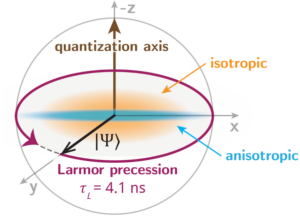
March 18, 2025
Quantum systems slowly lose information to their environments over time in a process called decoherence. The physics of decoherence is of fundamental interest, and its study often inspires strategies to increase the coherence of state-of-the-art devices.
In this work, we report the first observation of a basic feature of qubit decoherence: oscillations in the purity of a qubit state arising from the asymmetry of its transverse noise environment. Although such asymmetric noise environments are common across leading experimental platforms including superconducting qubits, neutral atoms, and trapped ions, purity oscillations are overlooked by typical models of decoherence. This work confirms our understanding of decoherence on the timescale set by the qubit frequency, and can inspire new techniques to disentangle charge and flux noise in low-frequency superconducting qubits.
Congratulations, David and all co-authors with the MIT EQuS Group and MIT Lincoln Laboratory.
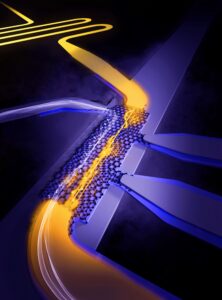
February 5, 2025
In this study, we probe the superfluid stiffness of magic-angle twisted bilayer graphene (MATBG) using circuit quantum electrodynamics (cQED). By integrating a MATBG sample into a superconducting quarter-wave resonator, we track its frequency shift as a function of Fermi energy, temperature, and bias current. This approach provides crucial insights into the pairing symmetry and the role of quantum geometry in MATBG and other correlated superconductors.
Understanding the mechanisms of unconventional superconductivity is one key to advancing quantum materials research and unlocking new applications. Our work introduces a new platform to explore atomically thin superconductors in both the DC and microwave regimes—a step forward for fundamental physics and future quantum technologies.
Congratulations, Miuko Tanaka, Joel Wang, and all co-authors with the MIT EQuS Group, MIT Lincoln Laboratory, and the Jarillo-Herrero Group.
This was also featured in MIT News
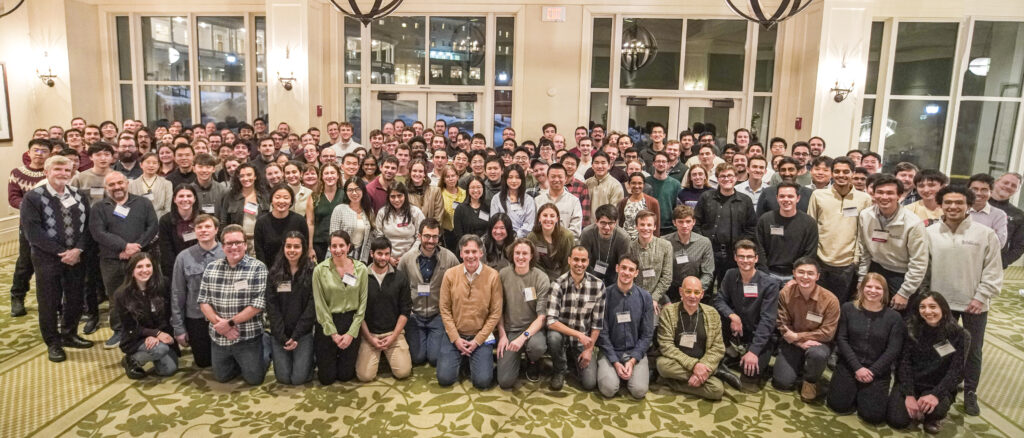
January 15 – 16, 2025
The 2025 Quantum Science and Engineering Consortium (QSEC) Annual Research Conference (QuARC) was held at the beautiful Omni Mount Washington resort in New Hampshire. Over 200 people attended this year’s conference! Highlights included student pitches and poster sessions where the latest results from MIT research were presented. The winners for each pitch and session were selected by MIT faculty and researchers.
EQuS graduate student Hung-Yu Tsao won a best poster award for his poster, “Stencil Mask-Enabled Fabrication for Superconducting Qubits.”
EQuS postdoc Doug Pickney and graduate student Qi (Andy) Ding both won best pitch awards for their poster pitches, “Examining the Effect of Various Radioactive Sources on Superconducting Qubits Protected Through Gap-Engineering” and “Frequency-Modulated Microwave Drives for Single- and Two-Qubit Gates.”
Congratulations Hung-Yu, Doug and Andy! Also, special thanks to Beatriz Yankelevich, Sameia Zaman and other QuARC committee members for organizing this event!

January 10, 2025
Professor Will Oliver teaches at KAIST-MIT Quantum Winter School
Professor Will Oliver gave a plenary talk and two lectures at the 2025 KAIST-MIT Quantum Winter School. The Quantum Winter School involves undergraduates from KAIST, SNU, and other universities across South Korea. The aim is to advance quantum information science and technology, and it serves to support increased engagement between the KAIST and MIT. Lectures were also given by Prof. Kevin O’Brien (MIT), Prof. Soonwon Choi (MIT), and Prof. Paola Cappellaro (MIT). Thanks to Prof. Eunseong Kim for organizing this fantastic winter school! From left to right: Prof. Eunseong Kim (Chair, Graduate School of Quantum Science and Technology, KAIST), Prof. Kwang Hyung Lee (President of KAIST), Prof. Kevin O’Brien (MIT), and Prof. Will Oliver (MIT).

December 16, 2024
Professor William D. Oliver was elected a fellow of the IEEE (Institute of Electrical and Electronics Engineers). The IEEE is the world’s largest technical professional organization. The rank of fellow is the highest grade of membership within the IEEE and is bestowed upon senior members who have made extraordinary contributions to the advancement or application of engineering, science, and technology, resulting in a significant impact on society. Will was elevated for his “contributions to superconductive quantum computing technology and its teaching.” Roozbeh Jafari, principal staff in Lincoln Laboratory’s Biotechnology and Human Systems division was also among the 2025 class of Fellows. Congratulations, Will and Roozbeh!
This was featured in MIT Lincoln Laboratory News
See also MIT News
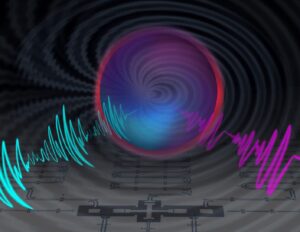
December 13, 2024
In this experiment, we developed and demonstrated two complementary approaches for mitigating counter-rotating errors for fast single-qubit gates. Such errors previously limited the fidelity of fast gates for low-frequency superconducting qubits such as fluxonium. Our first protocol implemented a circularly-polarized microwave drive with simultaneous charge and flux control. Our second protocol, commensurate pulses, leveraged simple timing constraints to homogenize the counter-rotating dynamics for all pulses, leading to their automatic correction by conventional Rabi gate calibrations. With this technique, we achieved single-qubit gate fidelities as high as 99.998%. Congratulations to all authors in the EQuS group and MIT Lincoln Laboratory!
This was also featured in MIT News
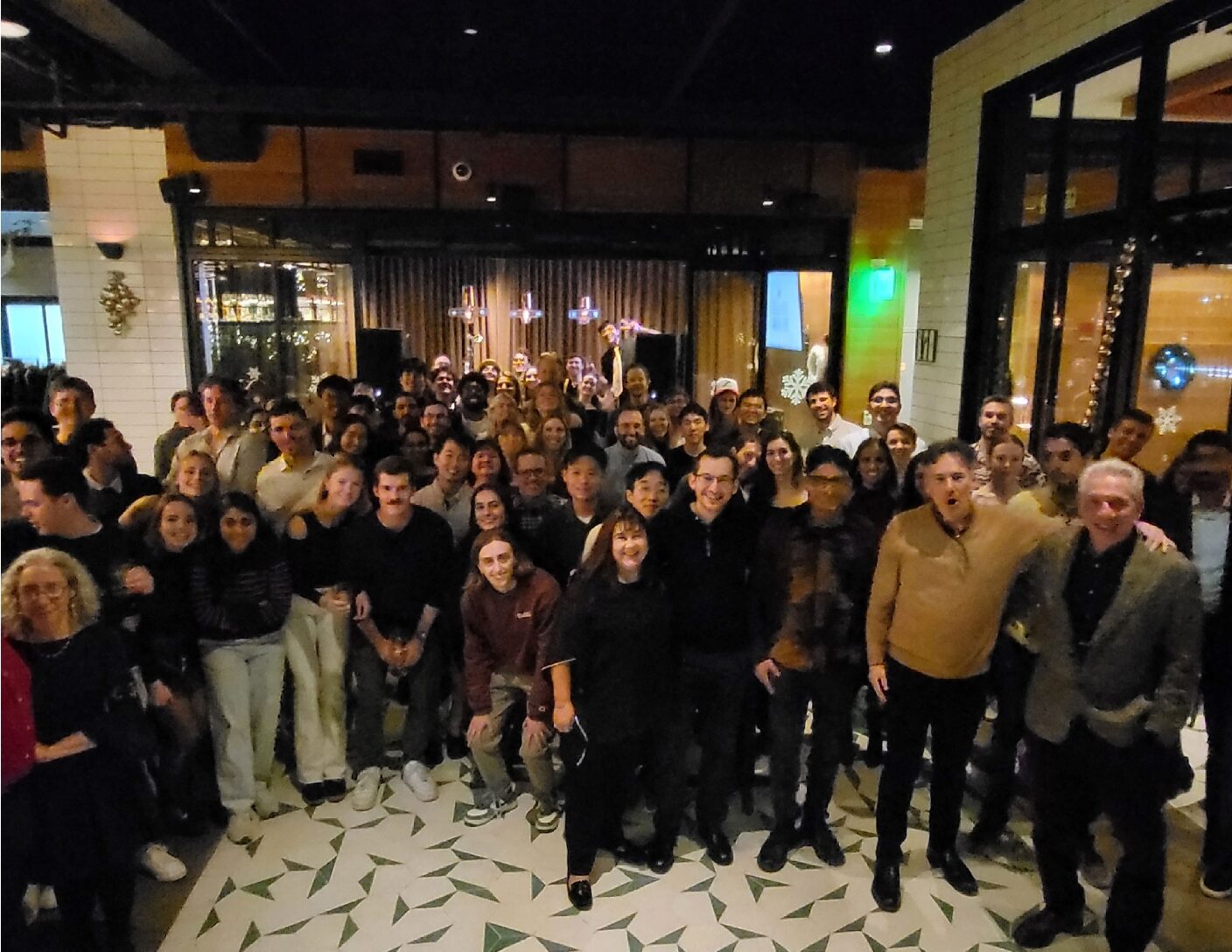
December 7, 2024
As we conclude another successful year, we want to take a moment to express our gratitude to our sponsors, collaborators, and colleagues for their unwavering support, as well as to all EQuS members for their dedication and hard work in making this year a success. This year’s efforts culminated in a memorable holiday celebration, where friends, families, and members of EQuS gathered at Glass House to celebrate the accomplishments of the past year over dinner and music from the Harmonic Modes, EQuS’s lab band. As we look ahead to 2025, we send our warmest wishes for a joyful Holiday Season and a New Year filled with continued growth, learning, and success!
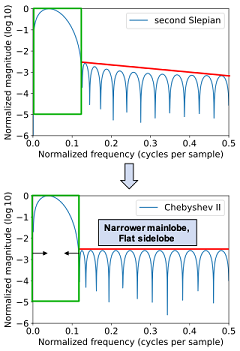
December 4, 2024
In this work, we investigated the application of weighted Chebyshev approximation (WCA) in designing quantum gates. Specifically, we examined a class of two-qubit gates in superconducting qubits known as controlled-phase (CPHASE) gates, which leverage interactions between higher levels controlled by baseband flux pulses. We framed the design of CPHASE gates as a pulse design problem and proposed Chebyshev pulses, generated through WCA, as an alternative solution. We presented an illustrative example of designing a Chebyshev pulse with WCA and compared it’s performance to a benchmark Slepian pulse. We found that Chebyshev pulses can in certain cases facilitate faster CPHASE gates while maintaining a fixed leakage error. Congratulations to all authors in EQuS, the Digital Signal Processing Group, and Mitsubishi Electric Research Laboratories!
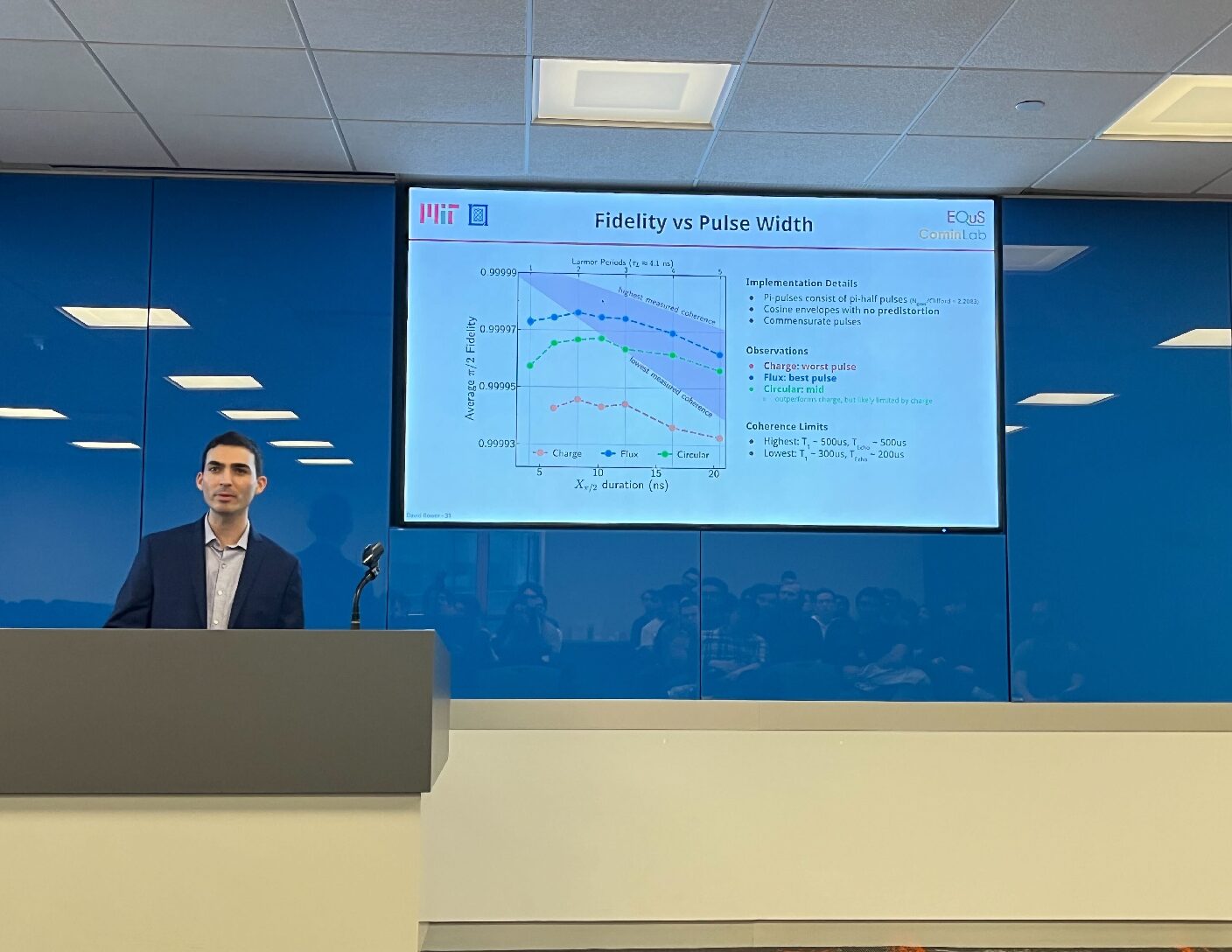
11/21/2024
David Rower successfully defended his PhD thesis
EQuS graduate student, David Rower, successfully defended his PhD thesis on November 21, 2024! David joined the group in 2019 with a NSF Graduate Research Fellowship and MIT Dean of Science Fellowship, and he was co-advised by Prof. Riccardo Comin in the MIT Physics Department. David’s thesis studied two of the primary factors that limit superconducting qubit performance: decoherence due to flux noise and errors from fast control. In one experiment, he subjected qubits to in-plane magnetic fields and found unexpected trends in the amplitude and character of the flux noise. These results could inform models about the microscopic nature of flux noise. Later, he developed novel control techniques to suppress counter-rotating errors when implementing fast (4 ns) gates in fluxonium qubits. These led to record single-qubit gate fidelities exceeding 99.997%. After EQuS, David will join Google Quantum AI as a Research Scientist. Congratulations, David!
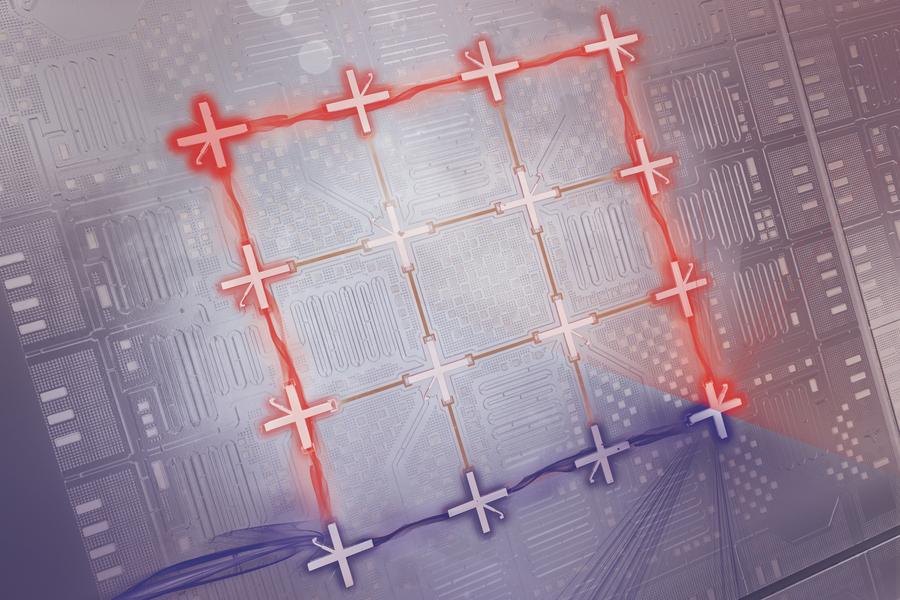
October 30, 2024
In this work, we emulate the dynamics of charged particles moving in electric and magnetic fields using a 4×4 array of superconducting transmon qubits. Parametrically coupling qubits throughout the array realizes a Harper-Hofstader model with an adjustable synthetic magnetic vector potential. Spatially varying the vector potential creates a gauge-invariant magnetic field via Gauss’s law for magnetism, which we verify through Aharonov-Bohm interferometry. Varying the vector potential in time creates an electric field via Faraday’s law of induction, which we verify by observing Wannier-Stark localization. In the presence of both an electric and a magnetic field, we observe the Hall effect—a canonical feature of electrical transport where charge carriers in electromagnetic fields deflect transversely. The techniques developed here are extensible to larger qubit arrays. Congratulations to all authors in the EQuS group and MIT Lincoln Laboratory.
This was also featured in MIT News

06/28/2024
University of Copenhagen and MIT Join Forces for Transatlantic Research in Quantum Computing
Professor Morten Kjaergaard’s group at the University of Copenhagen and the EQuS group at MIT are joining forces to accelerate research in the development of advanced quantum computers. The agreement entails building two identical laboratory setups – one at UCPH and one at MIT, both financed by the Novo Nordisk Foundation Quantum Computing Programme. This collaboration will enable the two research groups to try and solve the biggest quantum puzzles that continue to challenge researchers by exchanging personnel and ideas, running parallel experiments, and comparing results.
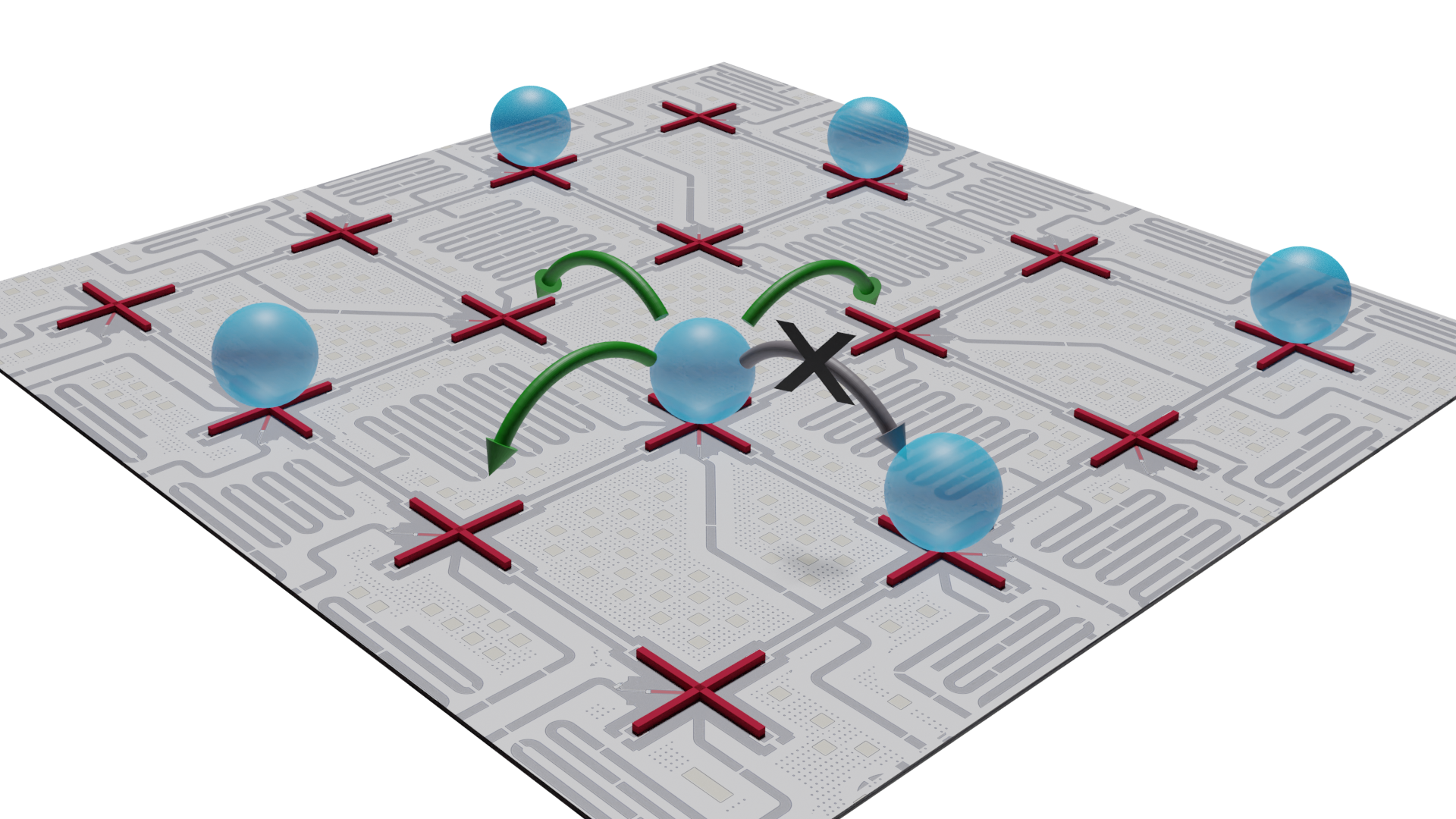
04/24/2024
In this work, we probe the entanglement structure of various states using a 4×4 array of transmon qubits, observing a crossover from volume-law to area-law-type entanglement. The 4×4 qubit array emulates the Bose-Hubbard model with a many-body energy spectrum. States near the center of this spectrum exhibit a volume-law scaling of entanglement entropy, whereas states near the edge of the spectrum exhibit an area-law scaling. Creating volume-law entanglement is a key to realizing beyond-classical performance of quantum computers. Our work demonstrates a platform-independent means to characterize area-law versus volume-law entanglement that can scale to larger systems. Congratulations to all authors in the EQuS group and MIT Lincoln Laboratory.
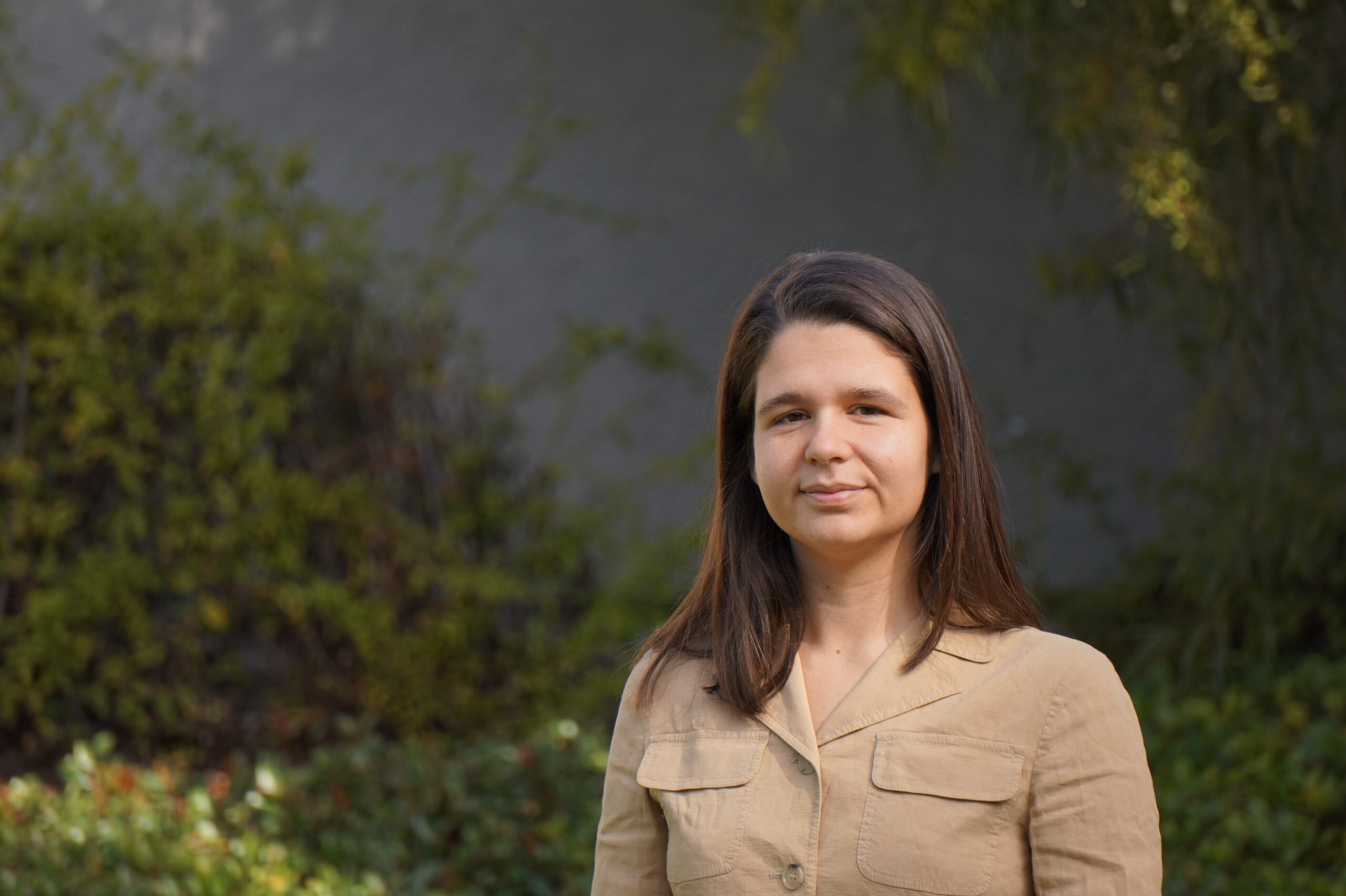
04/22/2024
EQuS Alum Francisca Vasconcelos awarded 2024 Paul and Daisy Soros Fellowship
EQuS alum Francisca Vasconcelo was selected to the Paul and Daisy Soros Fellowships 2024 Class of Distinguished New Americans. Fran’s parents emigrated together from Portugal to the United States in pursuit of world-class scientific research opportunities in the early 1990s. Fran was born in Boston while her parents were PhD students at MIT and Harvard University. Fran graduated from MIT in 2020 with a BS in electrical engineering, computer science, and physics. During her undergraduate years, she conducted substantial research in machine learning and data analysis for quantum computers in EQuS. In 2020, she received the Rhodes Scholarship, which allowed her to pursue an MSc in statistical sciences and an MSt in philosophy of physics at the University of Oxford. Currently, she is pursuing a computer science PhD and is an NSF Graduate Research Fellow at the University of California Berkeley. Congratulations, Fran!
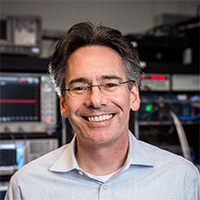
04/18/2024
Professor William D Oliver was recently elected a fellow of the AAAS (American Association for the Advancement of Science). The AAAS Fellow is a prestigious honor awarded by the AAAS to individuals who have made significant contributions to the advancement of science and technology. The fellowship is bestowed upon scientists, engineers, and innovators across various disciplines, recognizing their outstanding achievements and their efforts to advance science or its applications. The MIT cohort this year also includes Prof. Daniel Rothman, Prof. Bevin Engelward, and Prof. Vladan Vuletic. Congratulations, Will and all!
This was also featured in MIT News.
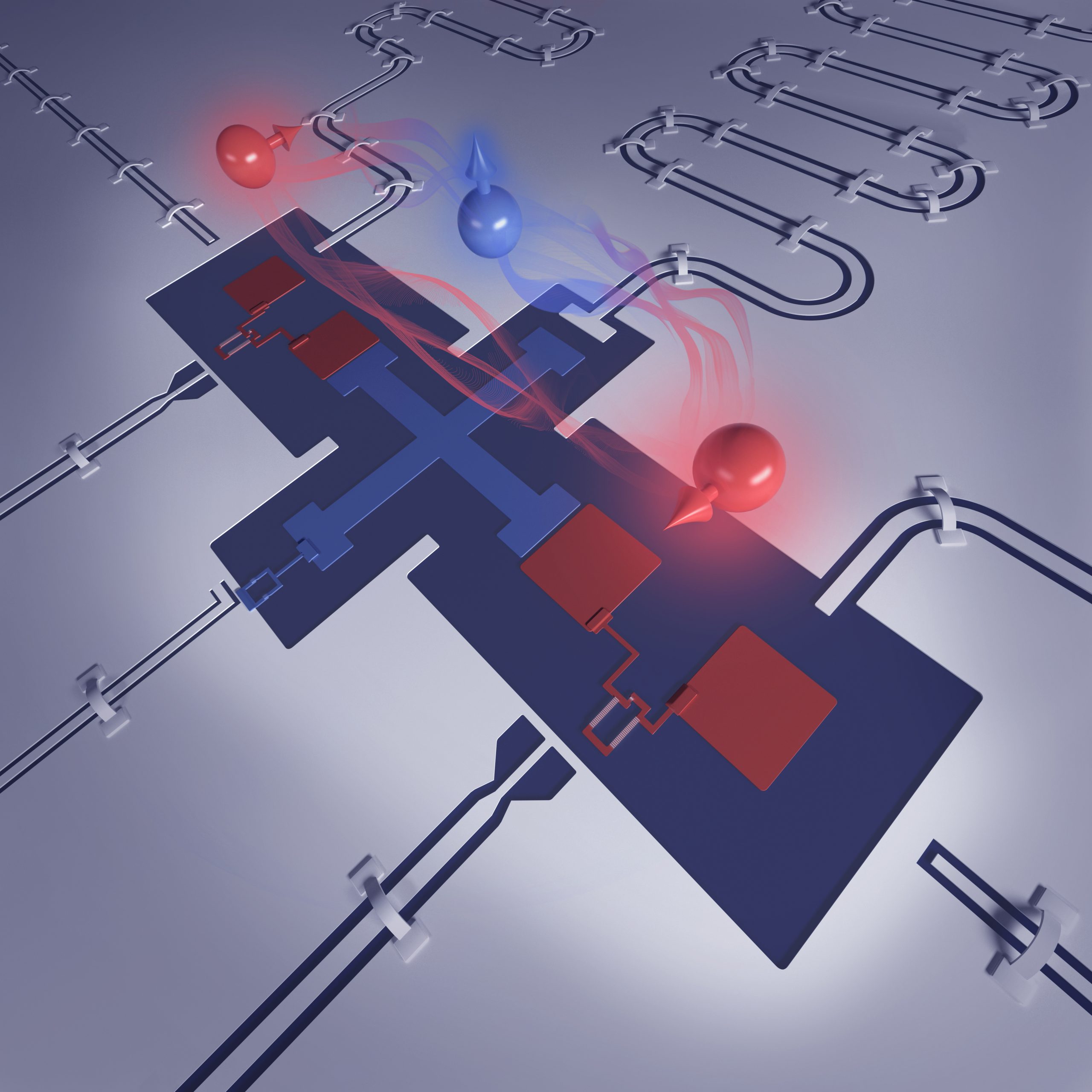
09/25/2023
In this experiment, we proposed and demonstrated an architecture for fluxonium-fluxonium two-qubit gates mediated by a transmon coupler. The architecture enabled strong couple (fast two-qubit gates) while suppressing unwanted ZZ interactions to the kilohertz level over a wide range of frequencies. We demonstrated single qubit gates exceeding 99.99% and two-qubit gates exceeding 99.9% using model-free reinforcement learning to tune the gates. The circuit was fabricated at MIT Lincoln Laboratory, with each fluxonium qubit comprising an array of 102 Josephson junctions. Congratulations to all authors in the EQuS group and MIT Lincoln Laboratory!
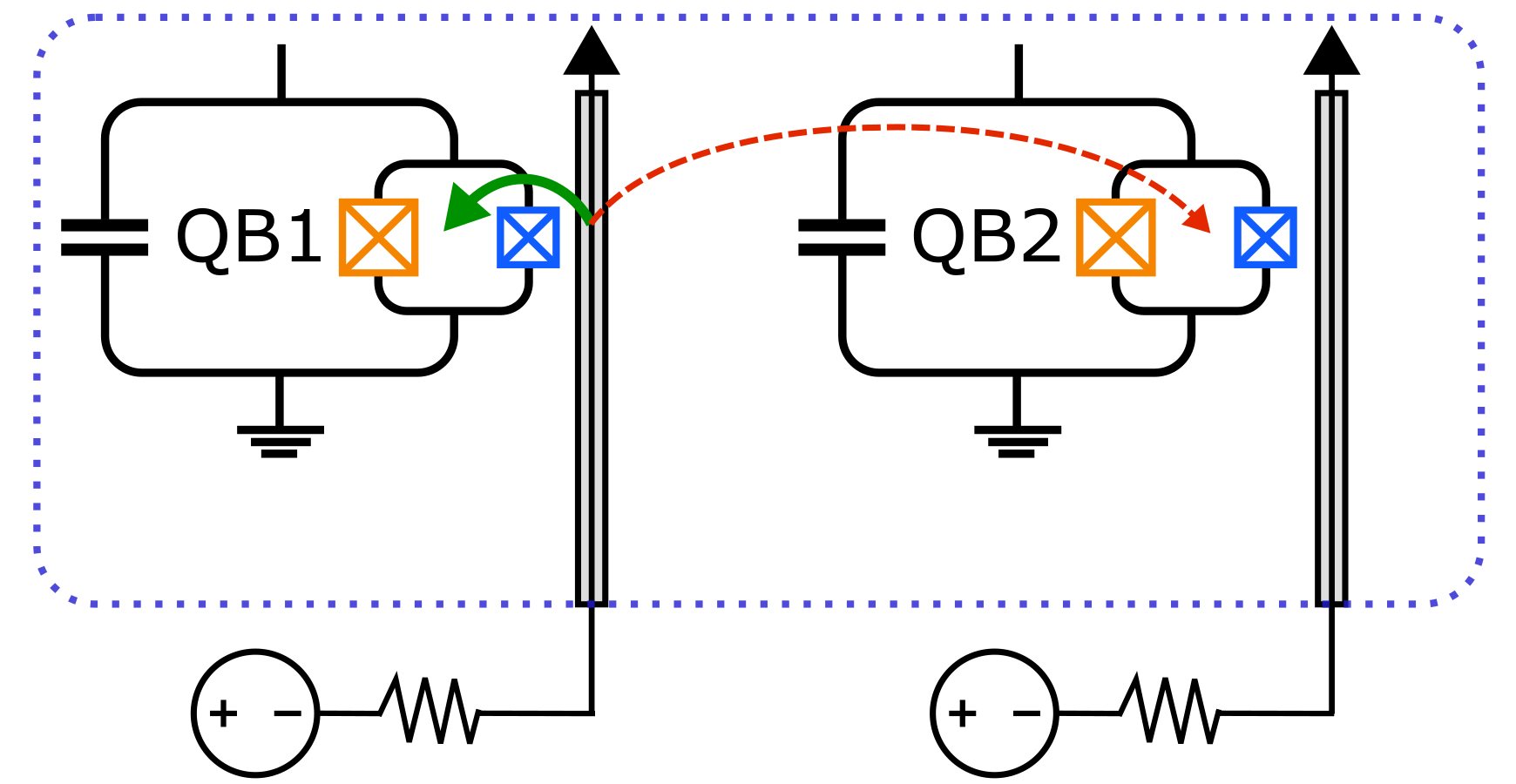
08/29/2023
In this work, the authors investigated a learning-based approach to calibrating flux crosstalk for precise qubit frequency control, and demonstrated its efficacy on an array of 16 flux-tunable transmons. The overall calibration time for this learning-based approach grows linearly with array size, a marked improvement over quadratically-scaling direct measurement approaches. This work contributes to the growing need for extensible calibration techniques as qubit array sizes continue to increase. Congratulations to all the authors in EQuS and Lincoln Laboratory! Congratulations to all authors!

06/30/2023
In this experiment, we measured flux-noise-limited qubit dephasing while applying in-plane magnetic fields, unveiling distinct signatures that include a 1/f to approximately Lorentzian transition in the noise power spectral density below 10 Hz, and a suppression of noise above 1 MHz with increasing field. These trends suggest the importance of spin-spin interactions, and serve as new clues to elucidate the microscopic physics of 1/f flux noise in superconducting circuits. The work is a collaboration between researchers with the EQuS group, the Comin group, and MIT Lincoln Laboratory. Congratulations to all authors!
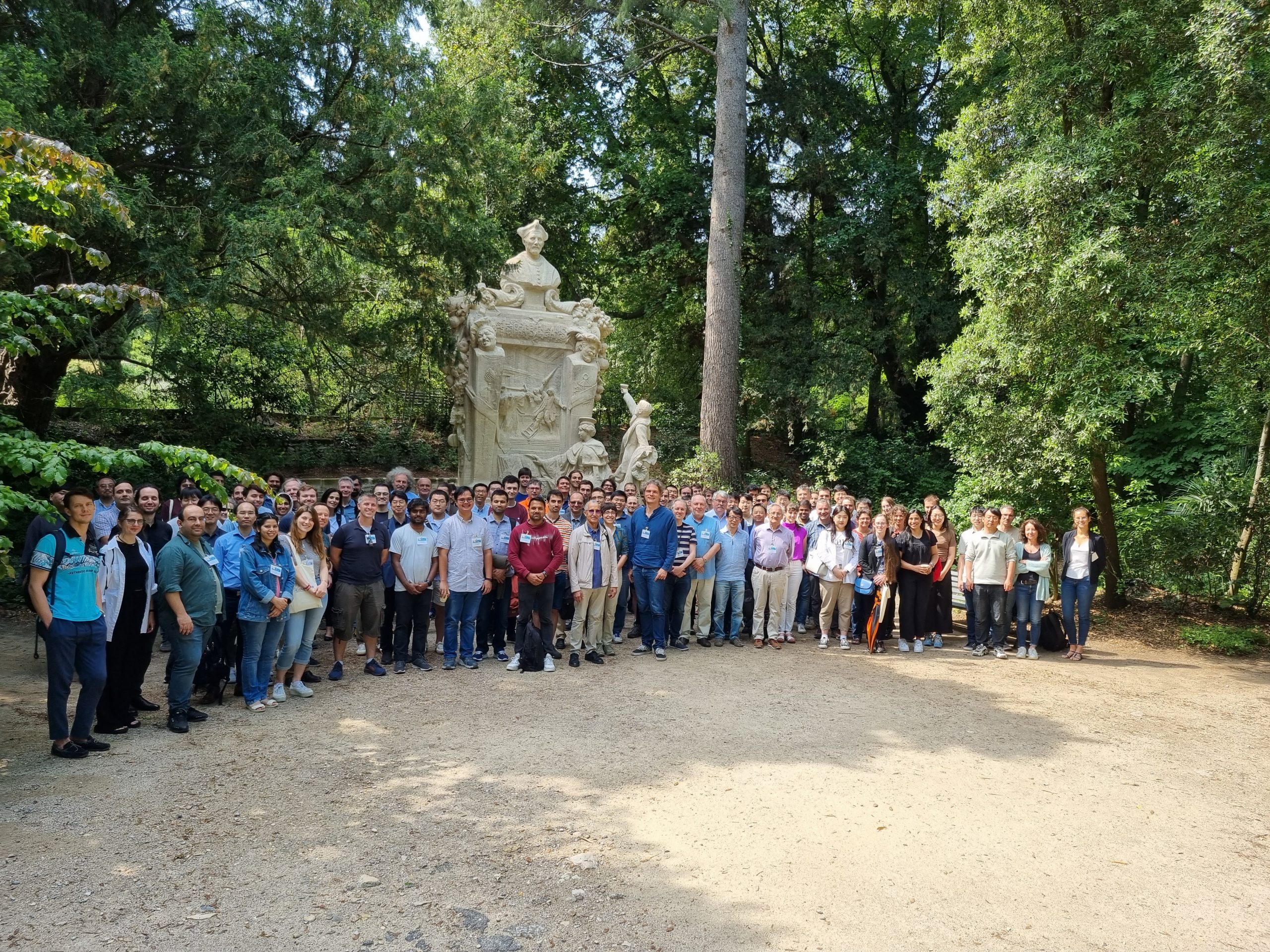
06/20/2023
Montpellier, France – Joel Wang, a research scientist at EQuS, recently spoke at the BNW2023 Inaugural Workshop on Hexagonal Boron Nitride (hBN). The workshop highlighted the growing research community dedicated to hBN, a versatile material with applications in electronics, polaritonics, lighting, imaging, quantum technologies, biology, materials science, and theory.
During his presentation, Joel focused on utilizing hBN as a low-loss dielectric in the construction of superconducting quantum devices. Specifically, he discussed the development of compact components like parallel plate capacitors and Josephson junctions. These hBN-based devices enable significant reductions in qubit size and minimize unwanted coupling between neighboring qubits, which is crucial for constructing multi-qubit quantum processors.
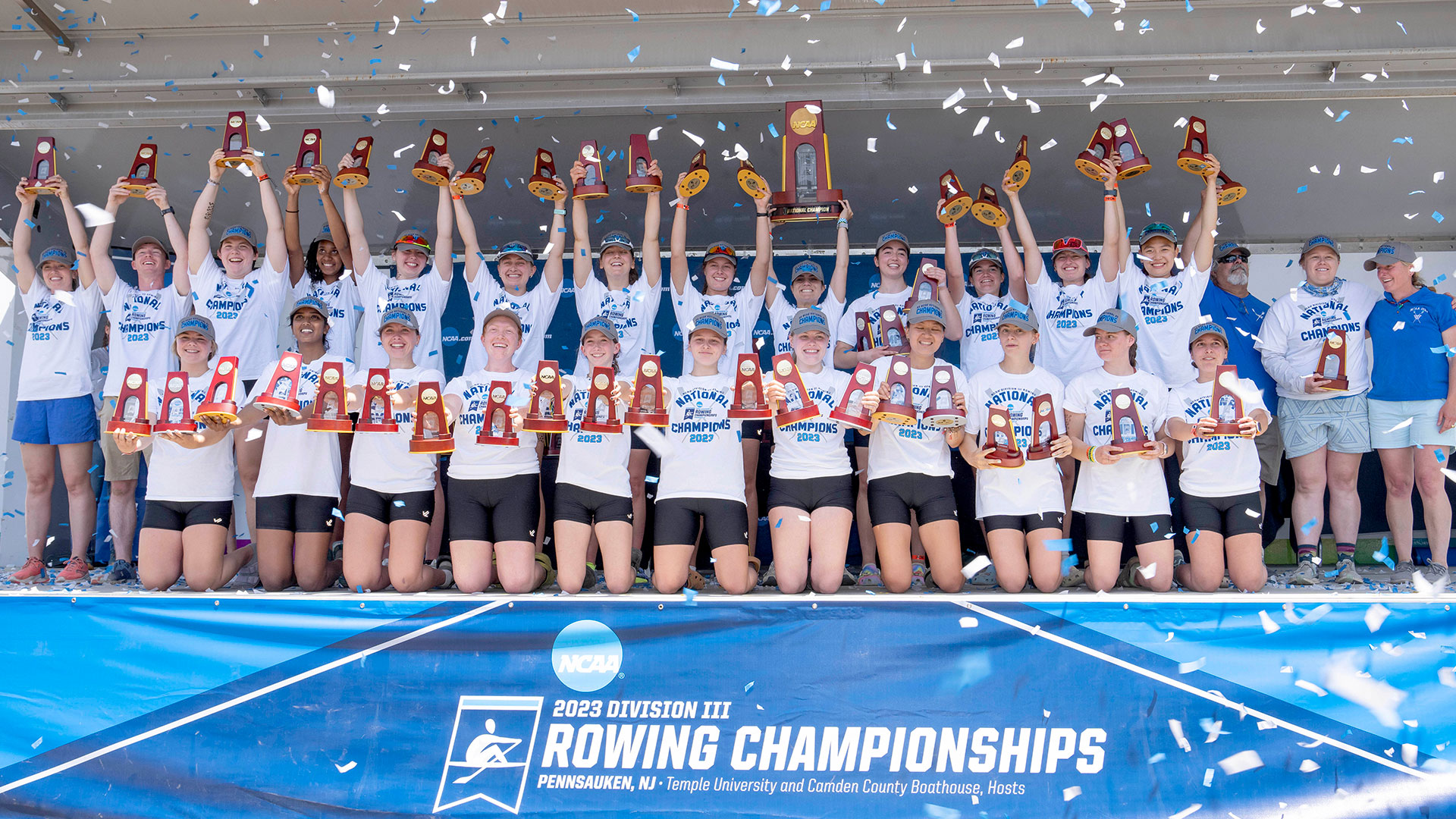
05/27/2023
Cora and her team win the 2023 NCAA Division III National Championship
EQuS UROP Cora Barrett (undergrad at Wellesley College) and her teammates from the Wellesley Varsity Crew team won the 2023 NCAA Division III National Championship on Saturday at Cooper River. This win marked a historic achievement for the program, as they claimed consecutive NCAA National Championships for the first time and earned their third overall title (2016).
Cora was also named the NCAA Elite 90 winner for Division III Rowing. The Elite 90 is an award established by the NCAA that celebrates student-athletes who excel both in their sport at the national championship level and academically. It is presented to the student-athlete with the highest cumulative grade-point average among their peers participating in each of the NCAA’s 90 championships. Congratulations, Cora and her team at Wellesley College!

05/26/2023
Beatriz Yankelevich selected for 2023 Hertz Fellowship
Congratulations to Beatriz Yankelevich, who was awarded a 2023 Hertz Fellowship! The Hertz Fellowship is awarded annually to the nation’s most promising graduate students in science and technology. Beatriz is one of 15 fellows selected this year, joining a community of 1,200 Hertz fellows whose ranks include two Nobel laureates; recipients of 10 Breakthrough Prizes and three MacArthur Foundation “genius awards”; and winners of the Turing Award, the Fields Medal, the National Medal of Technology, and the National Medal of Science, among others. The Hertz Fellowship provides Beatriz with five years of funding, which will support her while she spends her time in EQUS researching waveguide quantum electrodynamics. Beatriz has also been awarded the National Science Foundation Graduate Research Fellowship this year! Congratulations, Beatriz!!
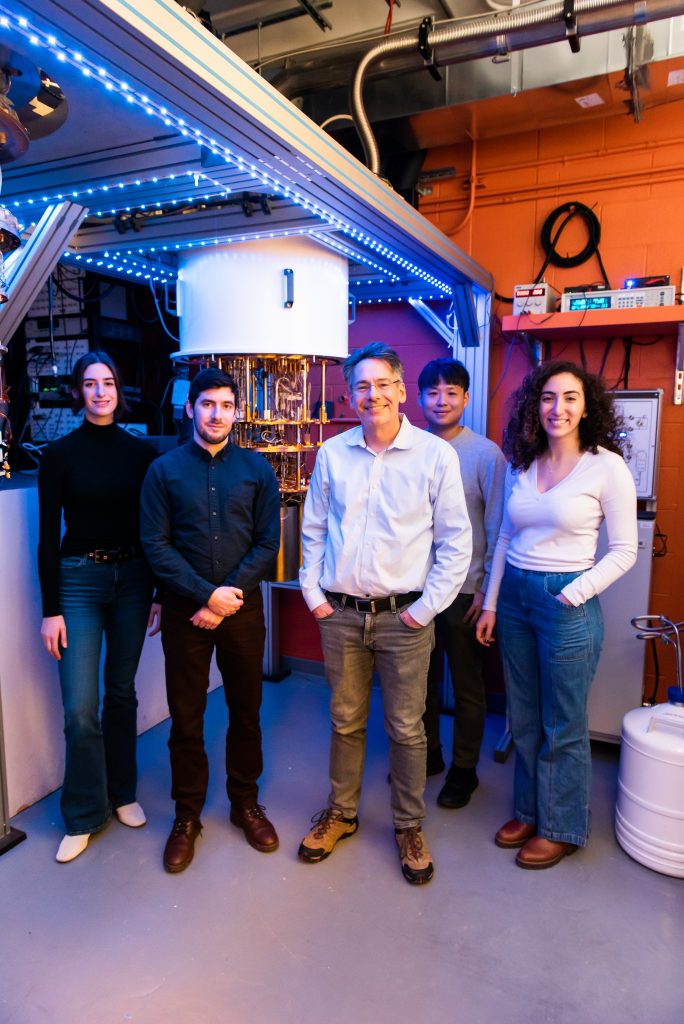
05/11/2023
EQuS research supported by FRIF grant featured on Corridor
The spring 2023 issue of Corridor featured an article on building quantum computers supported by a Faculty Research Innovation Fund grant entitled, “Leaping at a Quantum Opportunity – An IRA gift makes new research paths possible.” With the Faculty Research Innovation Fund (FRIF) grant support, EQuS initiated a new project on semiconducting qubits. Semiconducting qubits offer interesting physics and engineering challenges that may benefit from our group’s knowledge in superconducting devices and control. They may also enable more compact quantum computers in the long term. Along with Will, our postdoc, Ilan, and our graduate students, Aziza, Beatriz, and Harry appear in the article.
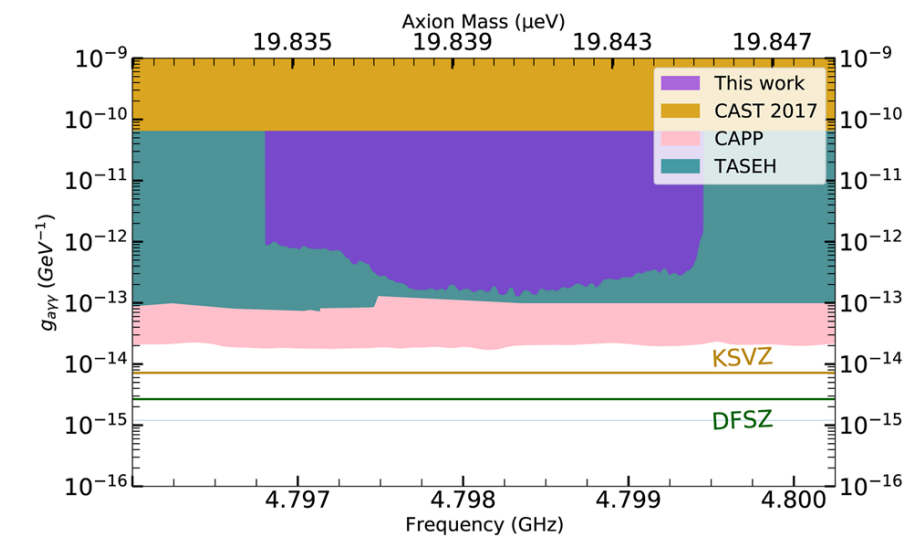
04/03/2023
Work from the ADMX collaboration that MITLL and EQuS contributed to was published today in the Review of Scientific Instruments. In this work, the authors demonstrated the integration of a JTWPA fabricated at MITLL into their axion dark matter search experiment. The use of the JTWPA offered similar energy sensitivity to other recent experimental demonstrations, and opens the door to use the large instantaneous bandwidth of the JTWPA for broadband axion searches, which have been alongtime goal of the field. This experiment highlights the intersectionality of quantum device physics and other fields such as high-energy physics – congratulations to all the authors!
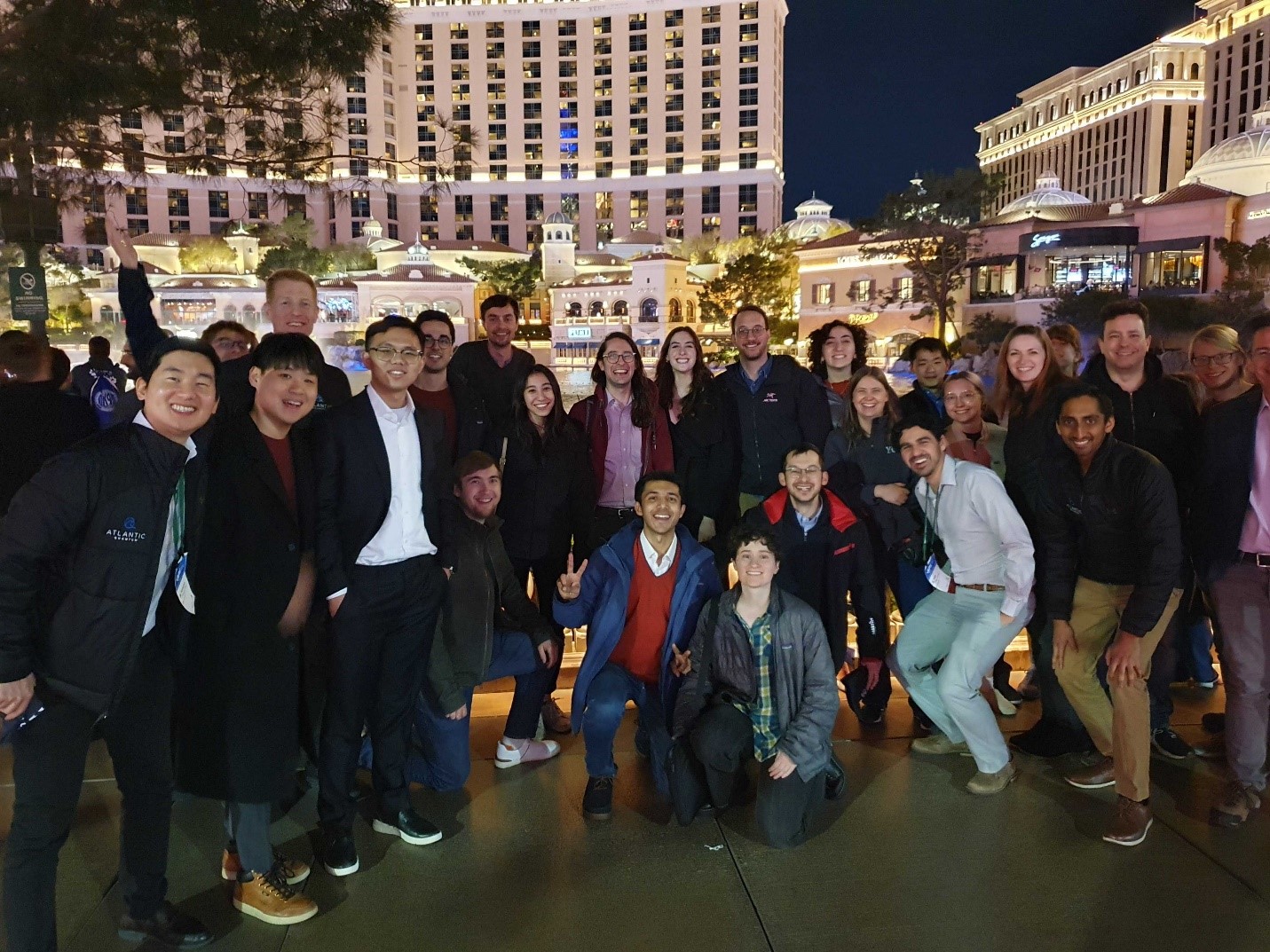
Part of the EQuS, alongside colleagues from Lincoln Lab, and alumni.
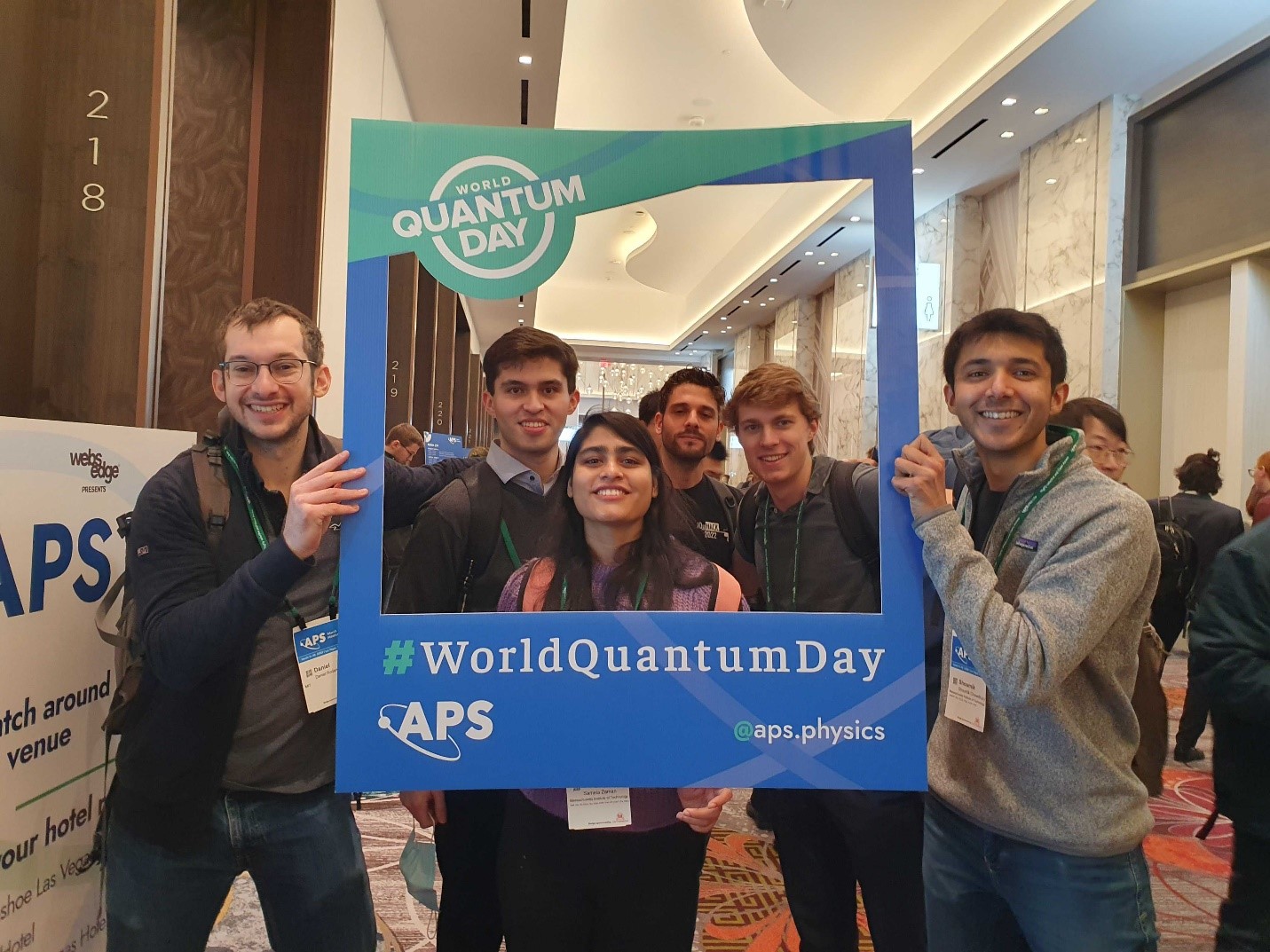
Members of EQuS , an alumnus, and a collaborator at the conference venue.
3/5/2023 – 3/10/2023
EQuS attends APS March Meeting 2023 | Las Vegas, Nevada
The annual APS March Meeting was held at the Caesars Forum Convention Center in Las Vegas, Nevada this year.
25 EQuS members from campus and Lincoln Lab gave presentations over the course of six-day conference. Everyone did an amazing job presenting their work. We had a wonderful group dinner on Tuesday evening. Congratulations to the entire group!!
- Aziza Almanakly, graduate student – “Absorbing a Directional Microwave Photon with Waveguide Quantum Electrodynamics” (A73/004)
- Bryce I Fisher, Lincoln Lab – “Developing robust protocols for calibration of a 25-qubit annealing device” (B53/003)
- Leon Ding, graduate student – “An Architecture for High-Fidelity, Robust Two-Qubit Fluxonium Gates with a Transmon Coupler” (F75/003)
- Kate Azar, Lincoln Lab – “Measurement of Planar Fluxonia” (F75/005)
- Kyle Serniak, Lincoln Lab – “Dephasing in Fluxonium Qubits from Coherent Quantum Phase Slips” (F75/010)
- Patrick M Harrington, postdoc – “Diagnosis and Mitigation of Correlated Errors in Superconducting Qubits from Ionizing Radiation” (G75/009)
- Christopher McNally, graduate student – “Single-Photon Subtraction in Circuit QED” (K75/002)
- Qi (Andy) Ding, graduate student – “Signal Processing Perspectives on Pulse Design for Two-Qubit Gates in Superconducting Circuits” (K70/007)
- William D Oliver, PI – “Giant Artificial Atoms and Waveguide QED” (K69/004)
- Cora N Barrett, undergraduate student – “Learning-based Calibration of Flux Crosstalk in a Transmon Qubit Array” (M71/003)
- Junyoung An, graduate student – “Measurement of the soft 0-pi qubit with small junction and inductive energies” (M75/006)
- Sameia Zaman, graduate student – “Kinetic Inductance Measurement of Niobium Diselenide (NbSe2) using MicrowaveTechniques” (M73/010)
- Ilan Rosen, postdoc – “Designing improved zero-pi qubits using small-area capacitors” (M75/009)
- Thomas M Hazard, Lincoln Lab – “Measurements of superconducting qubits containing through-silicon vias” (N74/002)
- William P Banner, graduate student – “Enhancing Optimization Techniques with Quantum-Inspired Generative Models (Part 1)” (N73/005) (Part 2 was presented by Zapata Computing Inc.)
- Donna-Ruth W Yost, Lincoln Lab – “A 3-tier stack for 3D integration of superconducting quantum systems – part 1: Interposer tier with superconducting TSVs and qubits” (N74/004)
- Cyrus F Hirjibehedin, Lincoln Lab – “A 3-tier stack for 3D integration of superconducting quantum systems – part 2: qubit design and performance” (N74/005)
- Agustin Di Paolo, former postdoc – “Quantum optimal control in a generalized rotating frame” (Q71/003)
- Jeffrey Knecht, Lincoln Lab – “A 200 mm Wafer Size Superconducting Qubit Foundry at MIT Lincoln Laboratory” (Q75/005)
- Amir H Karamlou, graduate student – “Probing locality and entanglement properties across the many-body spectrum using a superconducting processor” (S64/008)
- Sarah E Muschinske, graduate student – “Quantum State Preparation on a Superconducting Qubit Lattice” (T64/008)
- Shoumik Chowdhury, graduate student – “Bosonic error correction using a bit-flip-protected control qubit: Part 1” (W73/003)
- Shantanu R Jha, graduate student – “Bosonic error correction using a bit-flip-protected control qubit: Part 2” (W73/004)
- David A Rower, graduate student – “Suppressing 1/f Magnetic Flux Noise in Superconducting Qubits with Weak Magnetic Fields (Part 1)” (Y73/010)
- Lamia Ateshian, graduate student – “Suppressing 1/f Magnetic Flux Noise in Superconducting Qubits with Weak Magnetic Fields (Part 2)” (Y73/011)
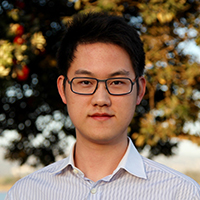
02/12/2023
In this work, we introduce a dispersion-engineered Josephson traveling-wave parametric amplifier (JTWPA) that is designed for squeezing. The device comprises more than 3000 Josephson junctions and is periodically-loaded by phase-matching resonators that enable dual-pump operation. The resulting device features excellent performance in both phase-preserving and phase-sensitive amplification. In addition, it produces highly squeezed single-mode vacuum states, and broadband two-mode squeezed vacuum states, with application to quantum information science and technology requiring nonclassical light. This work was also the featured story on the MIT homepage on Feb 10th, 2023. The work as Congratulations, Jack, Kaidong, and all co-authors at EQuS and Lincoln Laboratory, Arne (now at AWS), and Professor Irfan Siddiqi at UC Berkeley.
Their article was also featured in MIT News.
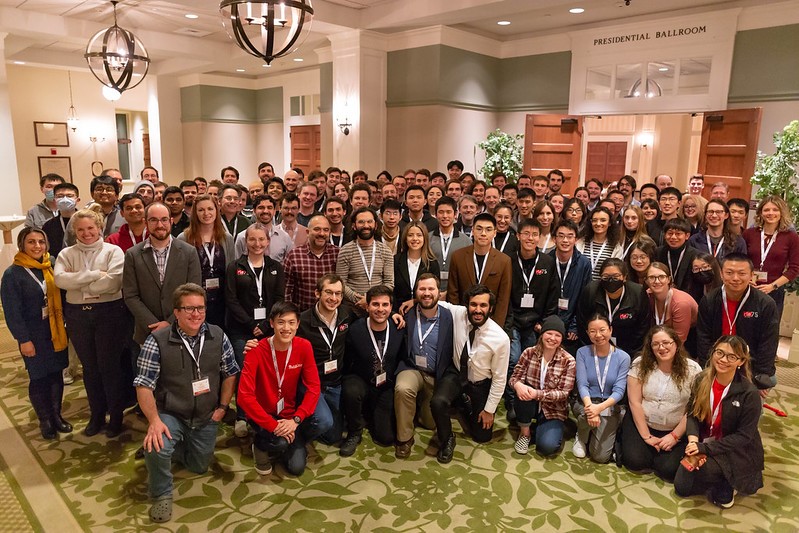
1/22/23 – 1/23/2023
The first in-person Quantum Science and Engineering Consortium (QSEC) Annual Research Conference (QuARC) was held at Omni Mount Washington Resort in New Hampshire. QuARC 2023 was also featured in MIT News.
There was two fantastic plenary talks by Peter Shor from MIT, who spoke about quantum error correction theory, and Erik Lucero from Google. Who spoke about recent demonstrations of quantum error correction.
On the second day, the event had research pitches and poster sessions where the latest results from MIT research were presented. The winners for each pitch and session were selected by MIT faculty and researchers. EQuS graduate students, Aziza Alamankly and Beatriz Yankelovich won the best poster at “Session 1: Superconducting Quantum Systems,” and EQuS postdoc, Patrick Harrington won the best poster at “Session 6: Quantum Sensing & Imaging.” EQuS postdoc, Daniel Rodan-Legrain won both best poster and pitch at “Session 7: Low-Dimensional Materials and Devices.” Congratulations, Aziza, Beatriz, Patrick, and Dani! Also, special thanks to Sarah Muschinske and other QuARC committee members for organizing this event!
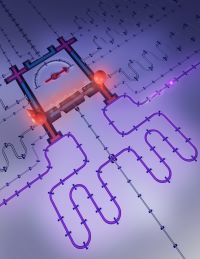
01/05/2023
In this work we demonstrate high-fidelity, on-demand, directional, microwave photon emission. We do so by using an artificial molecule comprising two superconducting qubits strongly coupled to a bidirectional waveguide. Quantum interference between the photon emission pathways from the molecule generates single photons that selectively propagate in a chosen direction. The result effectively creates a chiral microwave waveguide. This is a first step in our path to realize high-fidelity and high-connectivity quantum interconnects and extensible networks of quantum processors. Their work was also the featured story on the MIT homepage on Jan 6th , 2023. Congratulations, Bharath, Aziza, and all co-authors at EQuS and Lincoln Laboratory!
Their article was featured in MIT News.
See also News & Views by Simon Gasparinetti.
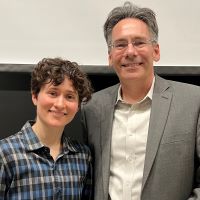
12/20/2022
Alex Greene successfully defended their PhD Thesis
EQuS graduate student, Alex Greene, successfully defended their PhD thesis on December 20, 2022! Alex joined EQuS in the Fall of 2016 with the Alan McWhorter Fellowship, and has since been awarded fellowships from QISE-NET and Google. Alex’s thesis work addressed two-qubit gates errors in superconducting qubits. They developed protocols for calibrating high-fidelity CZ and a technique called Quantum Measurement Emulation for mitigating coherent errors in logical qubits. They used those techniques to run an operation called Density Matrix Exponentiation. During an internship with Google Quantum AI, Alex also worked on the automated calibration of CPhase gates. After graduating, Alex hopes to continue working on superconducting qubits in industry.
Congratulations, Alex!
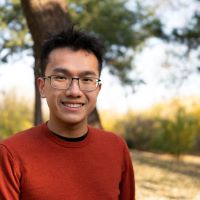
12/13/2022
EQuS Alum Sihao Huang awarded 2023 Marshall Scholarship
On December 13, 2023 EQuS alum Sihao Huang was selected to be part of the 2023 class of Marshall Scholars and will begin graduate students in the U.K. next fall. This prestigious scholarship enables him to study in England for two years. Huang will study for a DPhil in politics at Oxford. He aspires to apply insights from complexity science to comparative politics, eventually working at the intersection of academia and government on policy design and evaluation. He is currently pursuing a master’s in global affairs at Tsinghua University in China as a 2023 Schwarzman Scholar.
Marshall Scholars are also featured in MIT News.

12/12/2022
Professor William Oliver was appointed to the National Quantum Initiative Advisory Committee (NQIAC)
On December 9, 2022 President Biden appointed Professor William D Oliver to the National Quantum Initiative Advisory Committee (NQIAC), 1 of 15 members who will provides advice to the Biden-Harris Administration and help maintain US leadership in quantum information science (QIS). President Biden enhanced NQIAC through an Executive Order, which elevated the committee to a presidential advisory committee, highlighting that the National Quantum Initiative is a whole-of-government effort that rises above any one Federal agency. The members of NQIAC include distinguished individuals from industry, universities, Federal laboratories, and other Federal Government agencies who are prominent in their fields, recognized for their achievements, and from diverse backgrounds. Congratulations, Will!
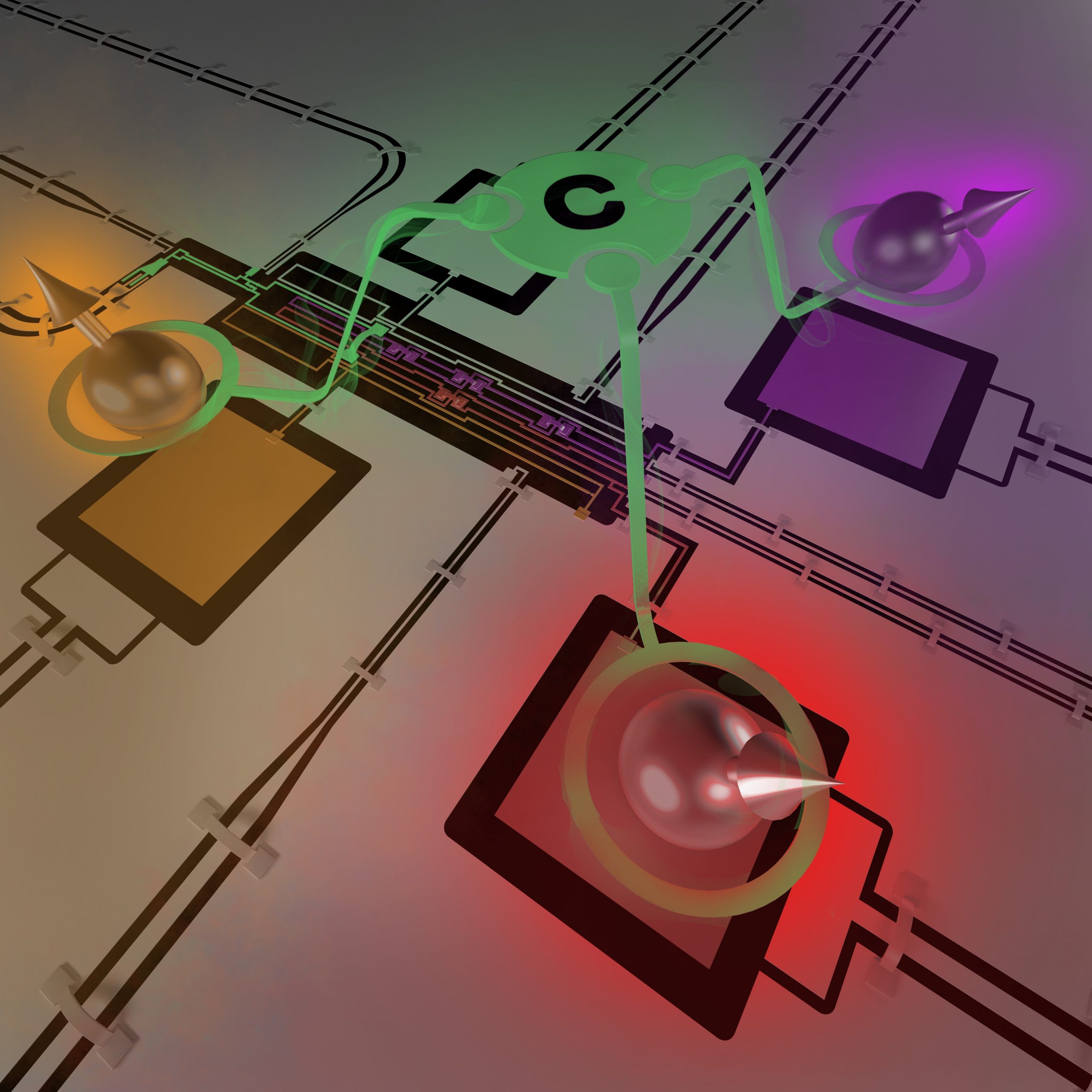
11/21/2022
Tim, Will, and co-authors describe the first experimental demonstration of static, tunable 3-body interactions between quantum bits. Such interactions are counterintuitive as there is no corresponding coupling between classical objects. However, numerous proposed quantum simulation and quantum computing applications rely on many-body interactions. The work was performed on a circuit architecture in which a coupler mediates interactions between three flux qubits. Using multi-qubit pulse sequences that enable interferometry between all neighboring excitation manifolds, the team verified that the system exhibits a 3-qubit coupling that is coherently tunable. Congratulations, Tim, Will, and all collaborators at EQuS and Lincoln Laboratory!
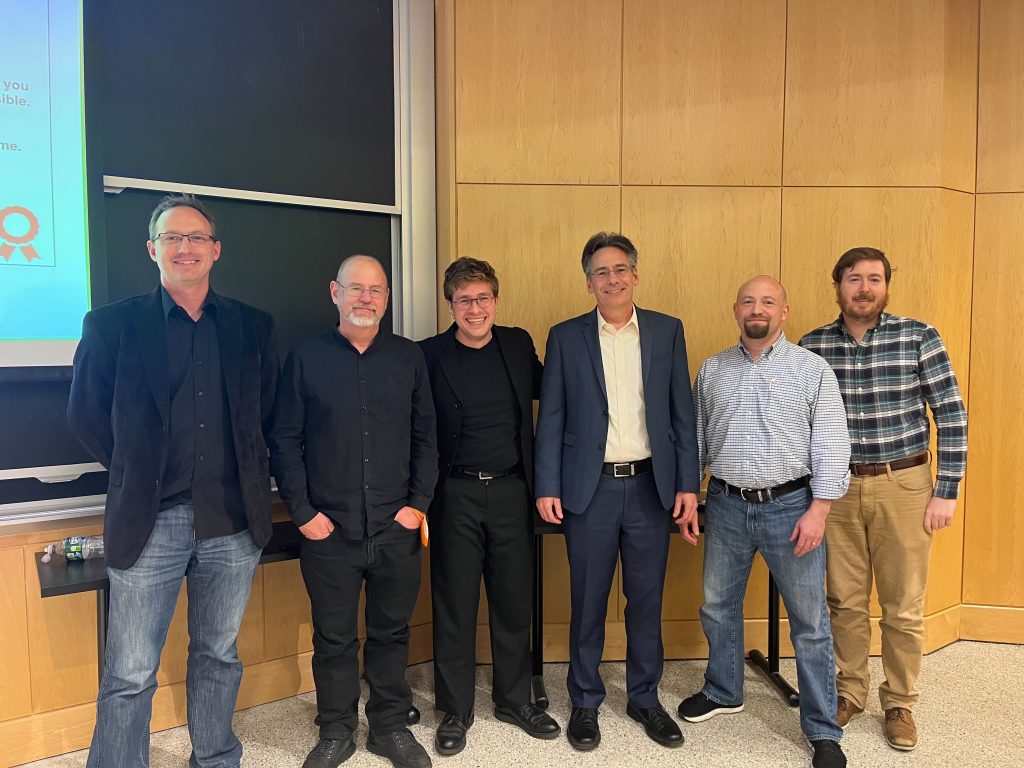
11/4/2022
Gabriel Samach successfully defended his PhD Thesis
EQuS graduate student, Gabriel Samach, successfully defended his PhD thesis on November 4, 2022! Gabriel joined EQuS in the Fall of 2018 as a Lincoln Scholar, a prestigious 4-year fellowship from MIT Lincoln Laboratory that supports Lincoln staff members who wish to pursue graduate studies. Gabriel’s thesis work addressed both theoretical and experimental aspects of noise characterization and mitigation on systems of superconducting qubits. He developed a technique called Lindblad tomography and applied it to the characterization of single-qubit and two-qubit gates. He also performed experiments on quantum annealing and gate-model systems, including tests of quantum-state purity and error mitigation schemes. After graduating, Gabriel is returning to the Quantum Information and Integrated Nanosystems group at MIT Lincoln Laboratory to continue his work with superconducting qubits. In this capacity, we look forward to continuing to work with Gabriel at MIT campus. Congratulations, Gabriel!

10/25/2022
Will is appointed Henry Ellis Warren (1894) Professor in EECS!
The Department of Electrical Engineering and Computer Science (EECS) announced that Professor William Oliver has been named the Henry Ellis Warren (1894) Professor.
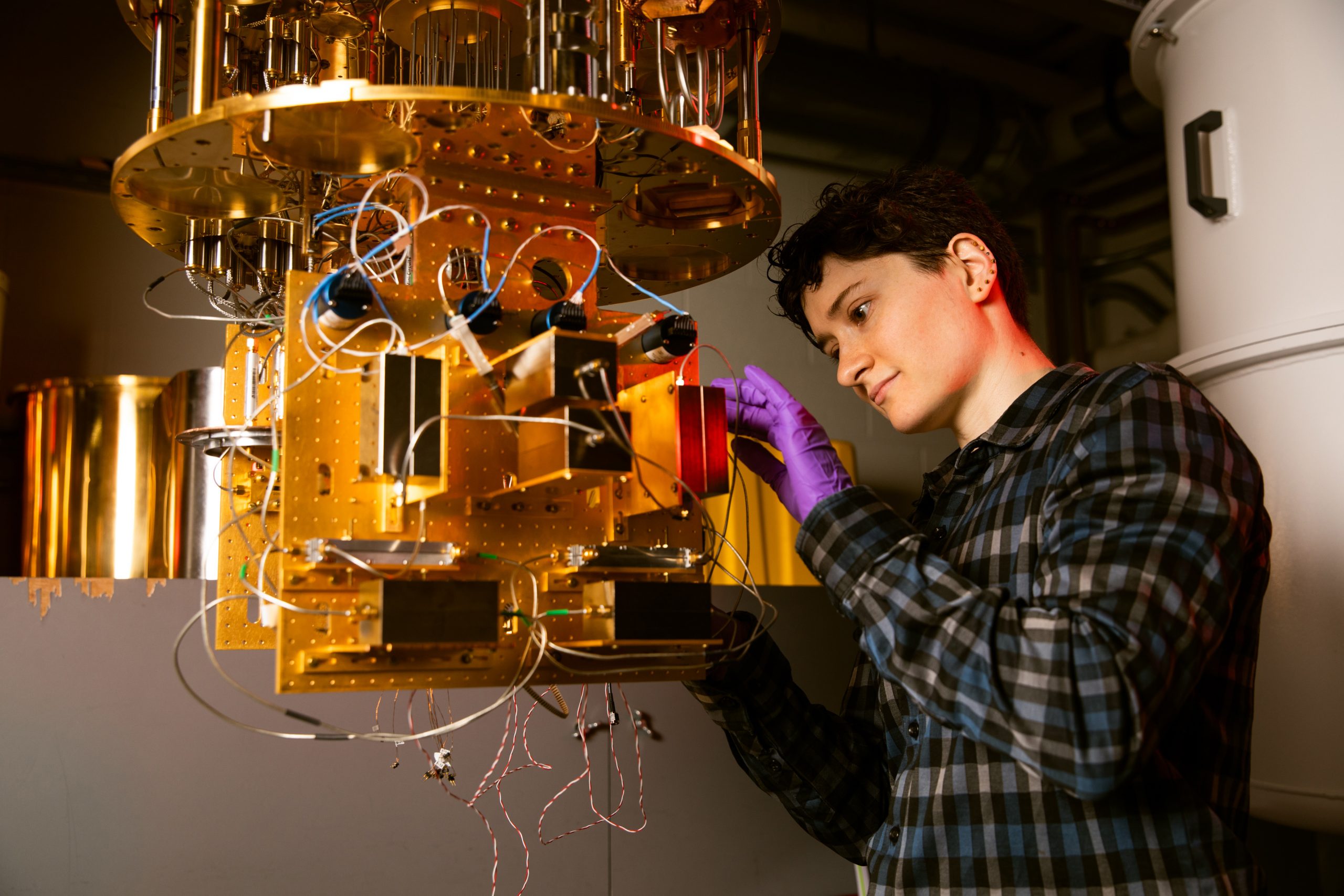
10/13/2022
MIT News posted an article on EQuS graduate student Alex Greene entitled, “Making quantum computers more accurate.”
The article highlights Alex’s biography, research work, and interests outside of the research field. Alex earned a bachelor’s degree in physics and electrical enginnering and computer science from MIT. After the completion of the bachelor’s degree, Alex continued studying at MIT to pursue a master’s degree in quantum computing, working at Lincoln laboratory, and joined EQuS in 2017. Alex is currently working on the dilution fridge to make superconducting quantum computers more accurate by reducing the impact of these errors.

10/7/2022
Thomas, Tim, Will, and collaborators’ manuscript, “Distinguishing Multispin Interactions from Lower-Order Effects,” was published in the Physical Review Applied! In this work, we proposed experimental methods capable of characterizing multispin interactions in noisy spin systems by distinguishing these interactions from lower-order effects. These multispin interactions are of large practical importance as these provide a natural way of mapping combinatorial optimization problems to quantum computers. However, these interactions are hard to measure and detect experimentally due to their small magnitudes and that these are overshadowed by lower-order spin effects. Using numerical and theoretical arguments, we showed that by carefully measuring qubit transitions energies and rates, multispin interactions present a unique signature in a quantum system, which allows their observation. The proposed experimental methods are shown to be robust to experimental errors, and can be applied to realistic quantum devices, such as current noisy superconducting qubit architectures. Congratulations, Thomas, Tim, Will, and all co-authors at EQuS and Lincoln Laboratory!

9/12/2022
Will Discussed Quantum Computing with Professor Peter Shor on Podcast
Professor William Oliver and Professer Peter Shor discussed the current state and future possibilities of quantum computing on the MIT’s Computer Science and Artificial Intelligence Laboratory Alliances podcast series.
You can listen to the podcast using this link: https://bit.ly/3L5rYXa
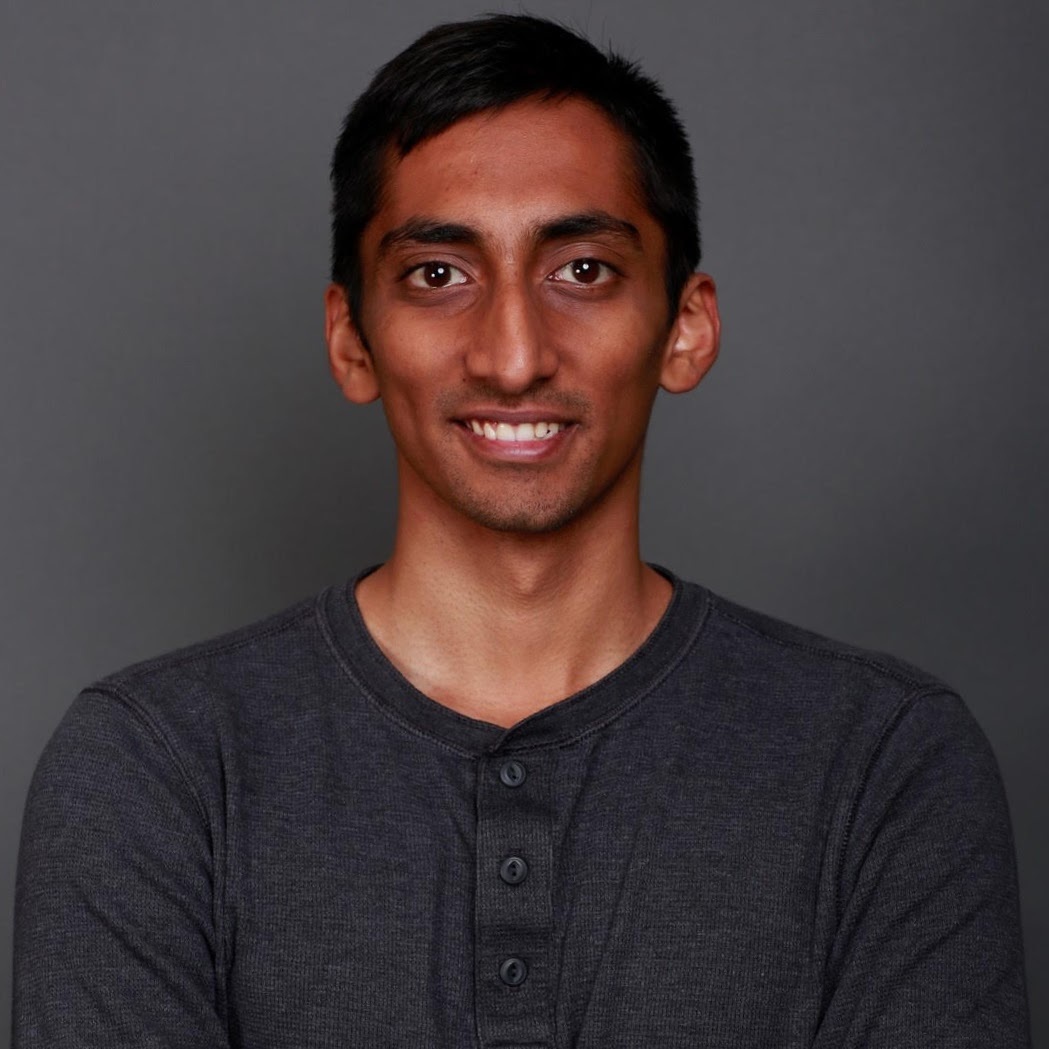
7/22/2022
Bharath Kannan awarded the 2022 Dimitris N. Chorafas Prize
Dr. Bharath Kannan, who received his PhD from MIT in May 2022, was awarded the 2022 Dimitris N. Chorafas Prize for his dissertation titled “Waveguide Quantum Electrodynamics with Superconducting Qubits”! The Dimitris N. Chorafas Foundation awards scientific prizes for outstanding work in selected fields in the engineering sciences, medicine, and the natural sciences. It rewards research characterized by its high potential for practical application and by the special significance attached to its aftermath. This year the Chorafas Foundation conferred 28 prizes to recent graduates from institutions worldwide. Congratulations, Bharath!
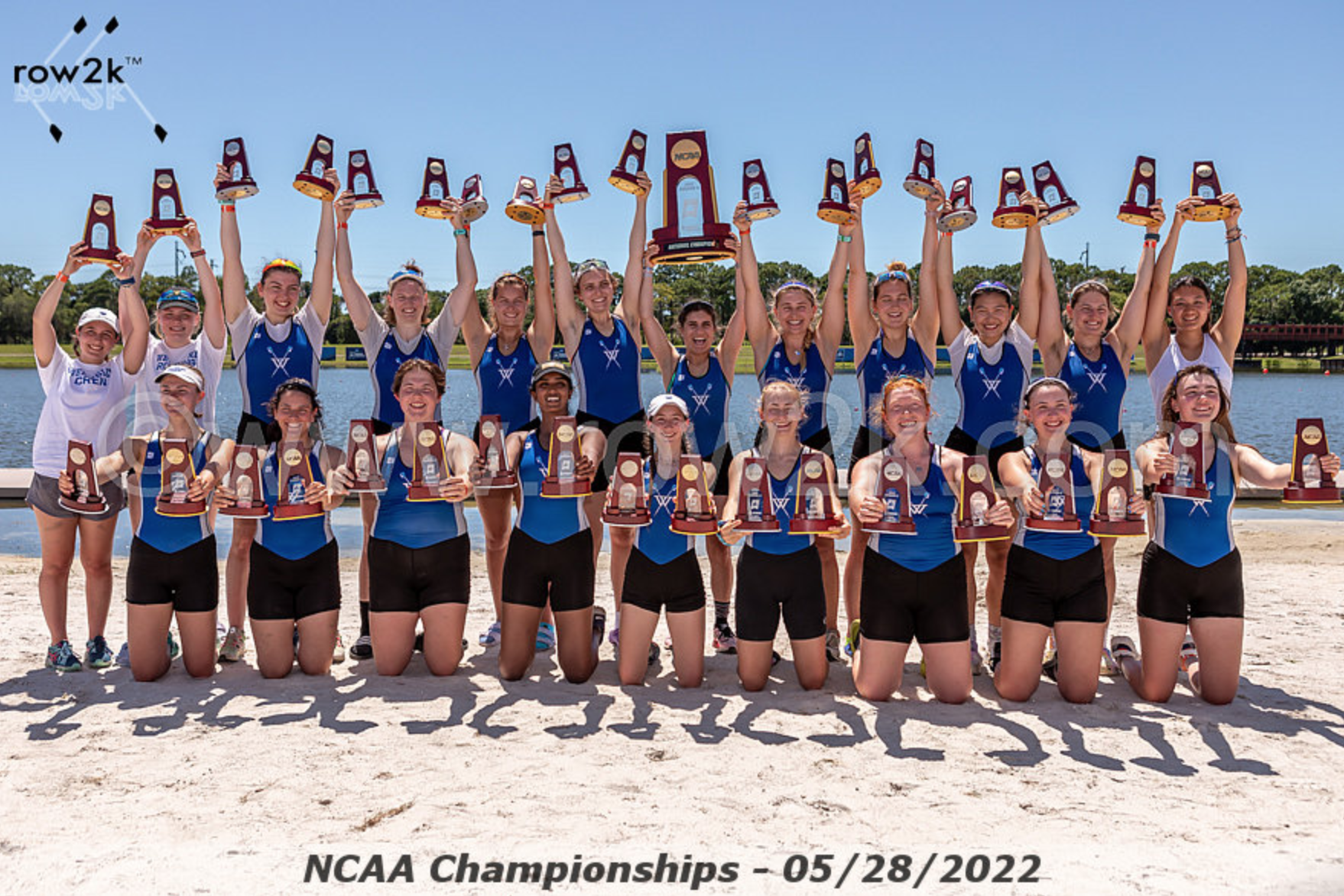
5/28/2022
Cora and her team win the 2022 NCAA DIII National Championship
EQuS UROP Cora Barrett (undergrad at Wellesley College) became a DIII Rowing National Champion! The Wellesley Varsity Crew team won the 2022 NCAA DIII National Championship, which was hosted in Sarasota, FL at the end of May. Cora raced in Wellesley’s 2nd varsity eight. Her boat’s second place finish helped secure the title for Wellesley, beating last year’s defending champs, Bates, by 1 point overall. Congratulations, Cora and her team at Wellesley College!
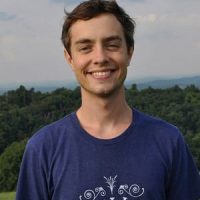
5/16/2022
Postdoctoral Associate Max Hays awarded IC Postdoctoral Research Fellowship
Max’s proposal, “Bosonic Error Correction Using Bit-Flip Protected Control Qubits” was selected for funding under the IC Postdoctoral Research Fellowship program! Bosonic error correction is currently limited by bit-flips of auxiliary transmon control qubits. Max will work on this problem by investigating control circuits beyond the transmon. Congratulations, Max!
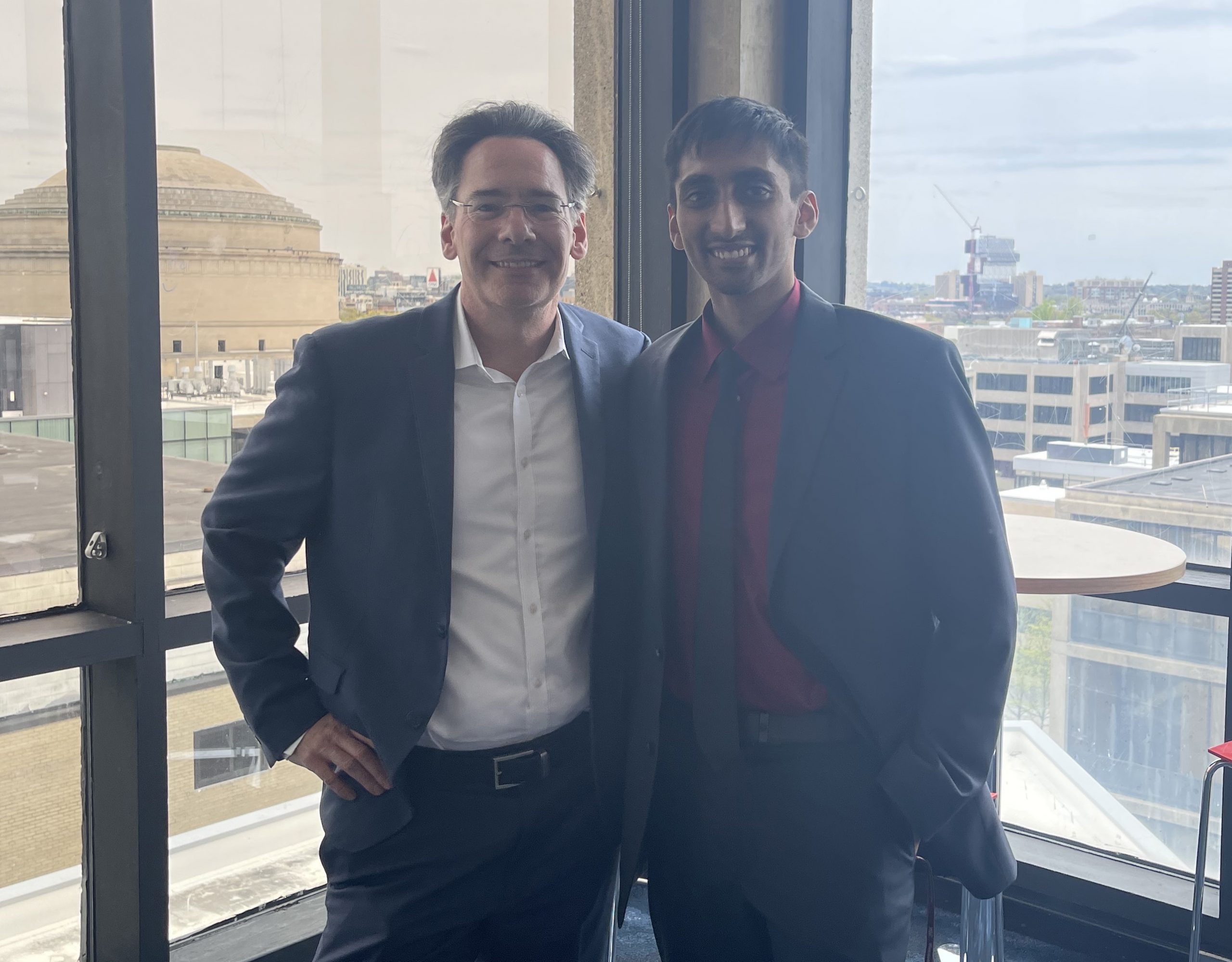
5/6/2022
Bharath Kannan successfully defended his PhD Thesis
EQuS graduate student, Bharath Kannan, successfully defended his PhD thesis on May 6, 2022! Bharath joined EQuS in 2016, and over the past 6 years, he conducted research focused on microwave quantum optics and waveguide quantum electrodynamics using superconducting circuits. In his talk, Bharath discussed the strong-coupling regime of a waveguide QED architecture which occurs by coupling superconducting artificial atoms, typically referred as qubits, to one-dimensional transmission lines. Through his thesis research, Bharath realized the giant-atom regime of waveguide QED, where the atom can no longer be treated as a point-like object, and used the giant atoms to implement tunable atom-waveguide couplings, as well as decoherence-free waveguide-mediated interactions between multiple atoms. After graduating from MIT this spring, he will co-found the start-up Atlantic Quantum, along with other EQuS members. Congratulations, Bharath!
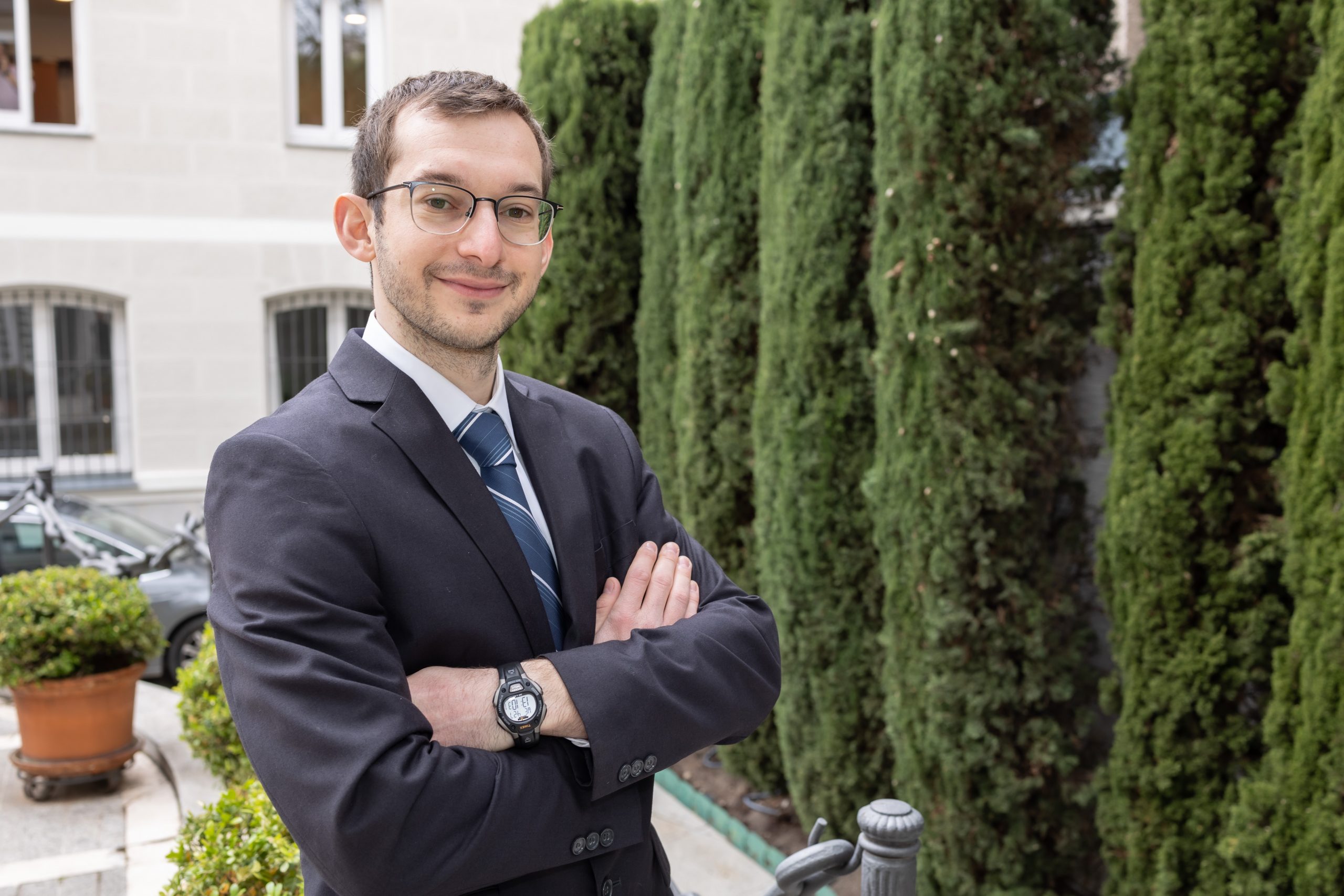
4/26/2022
Daniel Rodan Legrain awarded 2022 Rafael del Pino Excellence Scholarship
The Rafael del Pino Excellence Scholarships program aims to train Spanish leaders, foster the spirit of enterprise and entrepreneurship in Spain, and to research and disseminate knowledge. For this purpose, the Foundation offers a series of scholarships for Spanish university graduates to enable them to continue their studies fulltime, including the possibility of teaching, at top level universities and research establishments worldwide. Congratulations, Dani!
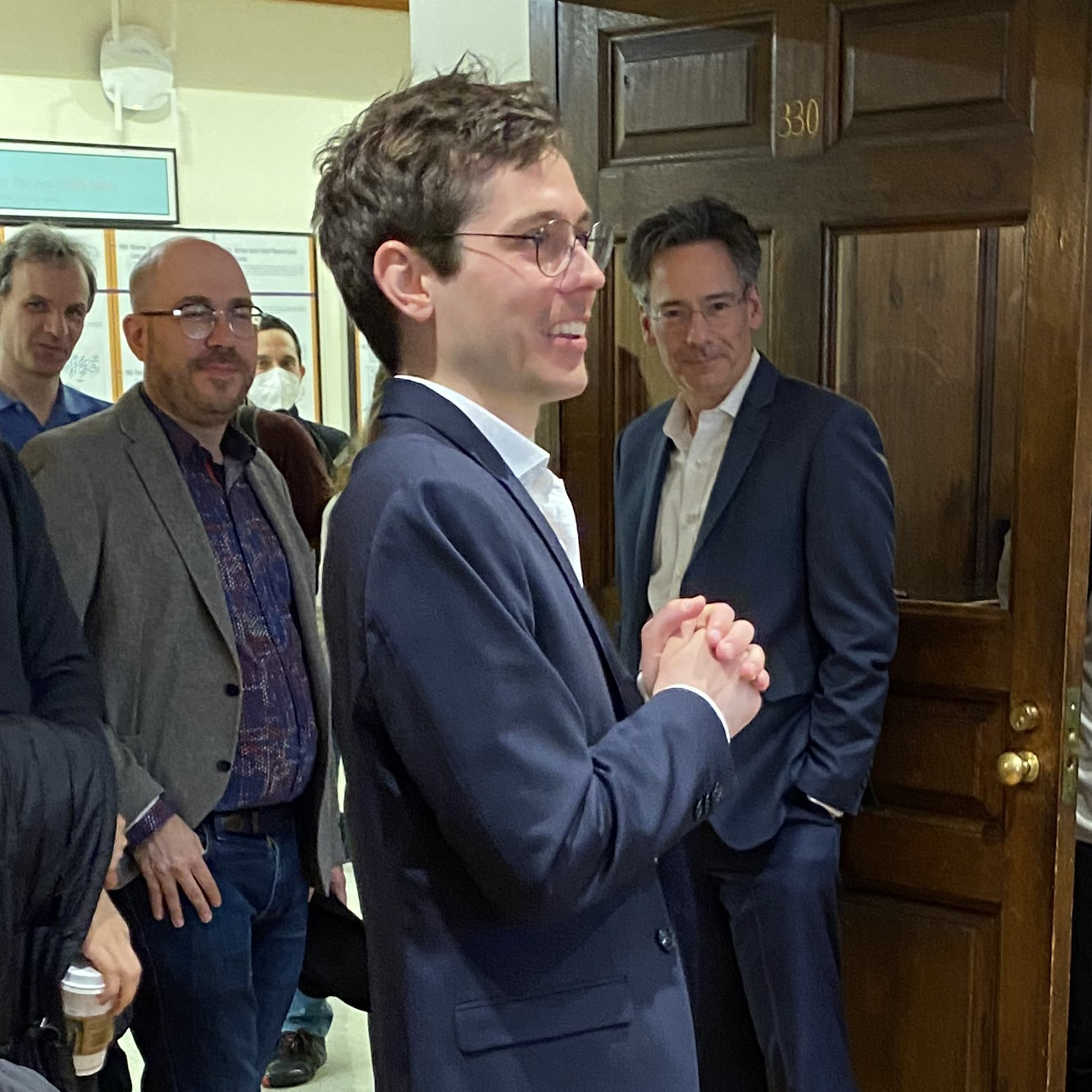
4/21/2022
Tim Menke successfully defended his PhD Thesis
EQuS group member Tim Menke successfully defended his PhD thesis! Tim joined the group in 2017 and has studied multi-qubit interactions during his PhD. Such interactions are necessary for numerous quantum simulation and analog quantum computation tasks. Working at the intersection of computational modeling and experimental implementation, Tim has devised a new method to optimize superconducting circuit diagrams. He then used the method to demonstrate multi-qubit interactions in the lab. In addition, he has developed quantum algorithms to facilitate superconducting circuit simulations on near-term quantum computers. Tim was co-advised by Will Oliver and Alán Aspuru-Guzik, building collaborations between their teams and other academic and industrial groups. After his PhD, Tim is excited to engineer next-generation quantum computers together with his co-founders of EQuS-spinout Atlantic Quantum. Congratulations, Tim!
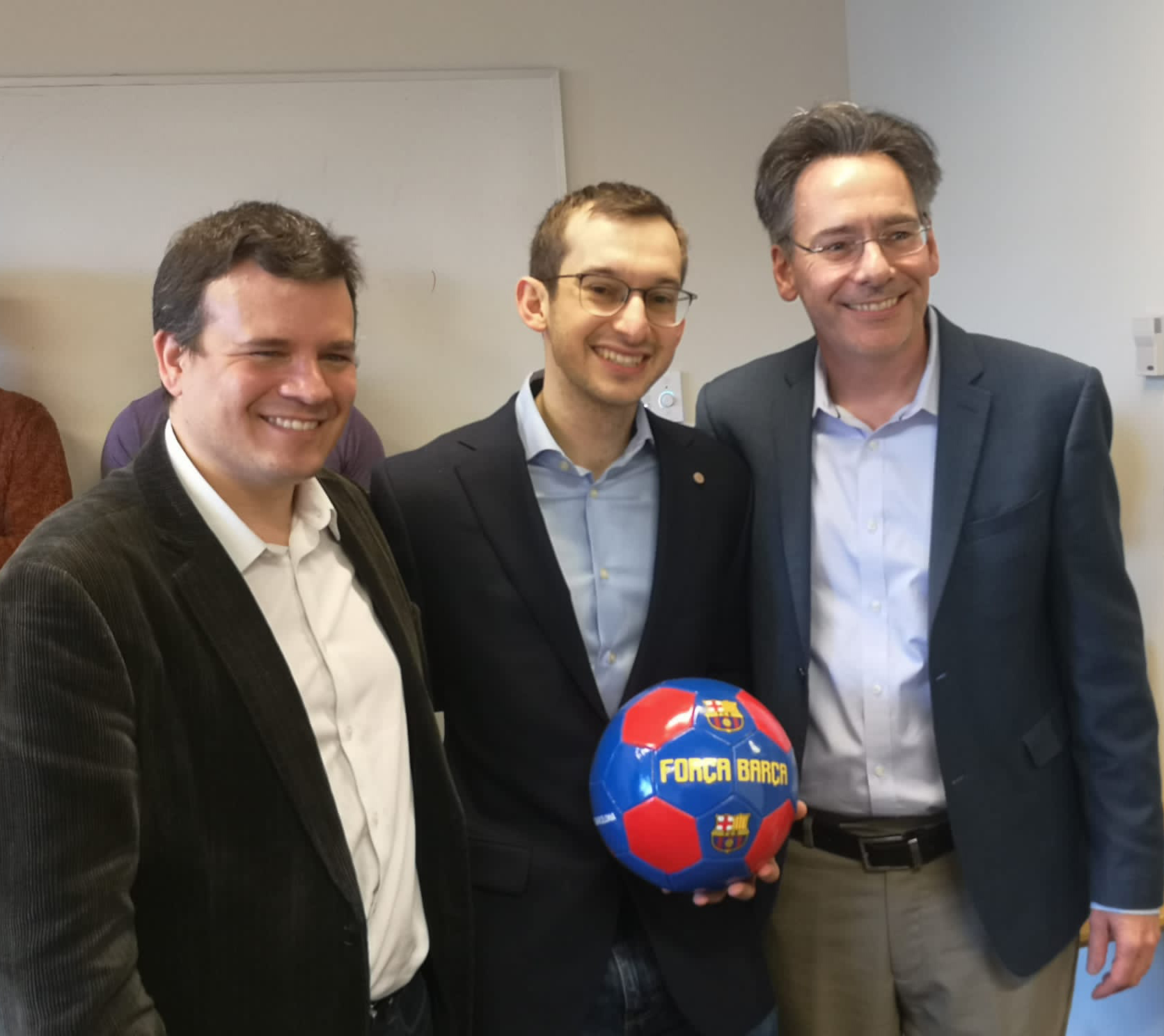
4/15/2022
Daniel Rodan Legrain successfully defended his PhD Thesis
EQuS collaborator, Daniel (Dani) Rodan Legrain successfully defended his PhD Thesis on April 15, 2022! Dani has been a graduate student in Prof. Pablo Jarillo-Herrero’s group. During his PhD, Dani also worked with EQuS on hybrid superconducting circuits with 2D materials. In his talk, he presented a series of experiments that leveraged the proximity effect and twisted angle designs that induce superconductivity and strong correlations in graphene-based systems. His contributions include the development of graphene-based superconducting devices and the observation of the rich phase diagram of magic-angle twisted bilayer graphene (MATBG) devices. After graduating from MIT this spring, Dani will continue working with EQuS as a post doc on hybrid superconducting circuits with 2D materials. Congratulations, Dani!
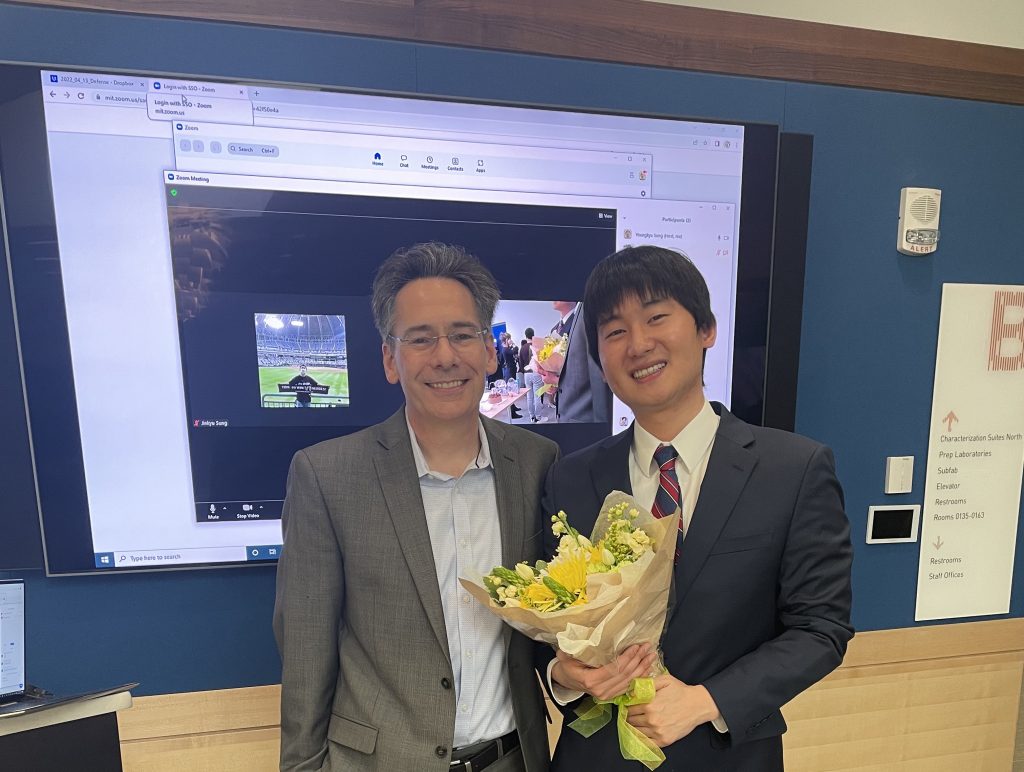
4/13/2022
Youngkyu Sung successfully defended his PhD Thesis
EQuS graduate student, Youngkyu Sung, successfully defended his PhD thesis on April 13, 2022! Youngkyu joined EQuS in 2016, and over the past 6 years, he addressed topics related to achieving high-fidelity two-qubit gates and characterizing underlying noise mechanisms in superconducting qubits. In his talk, Youngkyu discussed his approach to engineering two-qubit gates with nearly 99.9% fidelity—including fast adiabatic control and the impact of higher-energy levels of the qubits and coupler. He also discussed leveraging multiple level transitions of a transmon sensor to distinguish the noise contributions from flux and photon shot noise. These are just two of the many contributions Young has made to the community. After graduating from MIT this spring, he will work on building scalable, high-fidelity quantum hardware. Congratulations, Young!
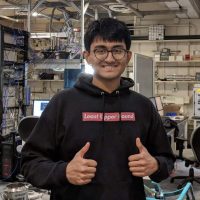
4/4/2022
Graduate Student Shantanu Jha awarded NSF GRFP Fellowship
Graduate student, Shantanu Jha, awarded 2022 the National Science Foundation (NSF) Graduate Research Fellowship Program (GRFP) fellowship! NSF GRFP recognizes and supports outstanding graduate students who are pursuing research-based master’s and doctoral degrees in fields within NSF’s mission, including quantum computation. The GRFP provides up to three years of support for the graduate education of individuals who have demonstrated their potential for significant achievements in science and engineering research. Congratulations, Shantanu!

4/1/2022
Shantanu and his team win the 1st place at the 10th Annual NYU Abu Dhabi International Hackathon
Shantanu and his team won the 1st place in the 10th Annual NYU Abu Dhabi International Hackathon for Social Good through Quantum Computing! Shantanu co-mentored Team Qudra, which had 7 students from across the world, with a fellow mentor, Akash Kant at the Hackathon. Leveraging the diverse expertise of this talented team, they built Qudra, an open-source python package aiming to bring quantum advantage to the optimization of distributed and renewable energy grids for energy security and sustainability. After publishing this package on PyPI and running QUBO optimizations on IBM Qiskit simulators as well as real D-Wave annealers, Team Qudra was awarded 1st place in the hackathon. Congratulations, Shantanu and Team Qudra!
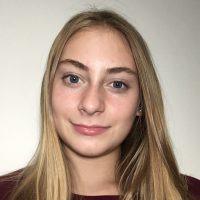
3/28/2022
EQuS UROP Cora Barrett awarded 2022 Goldwater Scholarship
Cora Barrett has been selected as a Goldwater Scholar for the class of 2022 – 2023! The Barry Goldwater Scholarship and Excellence in Education Foundation was established by Congress in 1986 to serve as a living memorial to honor the lifetime work of Senator Barry Goldwater. This program seeks to identify and support college sophomores and juniors who show exceptional promise of becoming this Nation’s next generation of research leaders in the natural sciences, mathematics and engineering fields. This is certainly true of Cora, who is currently a junior at Wellesley College double majoring in Physics and Mathematics while also being a member of the crew team (whew!). Congratulations, Cora, you earned it!!
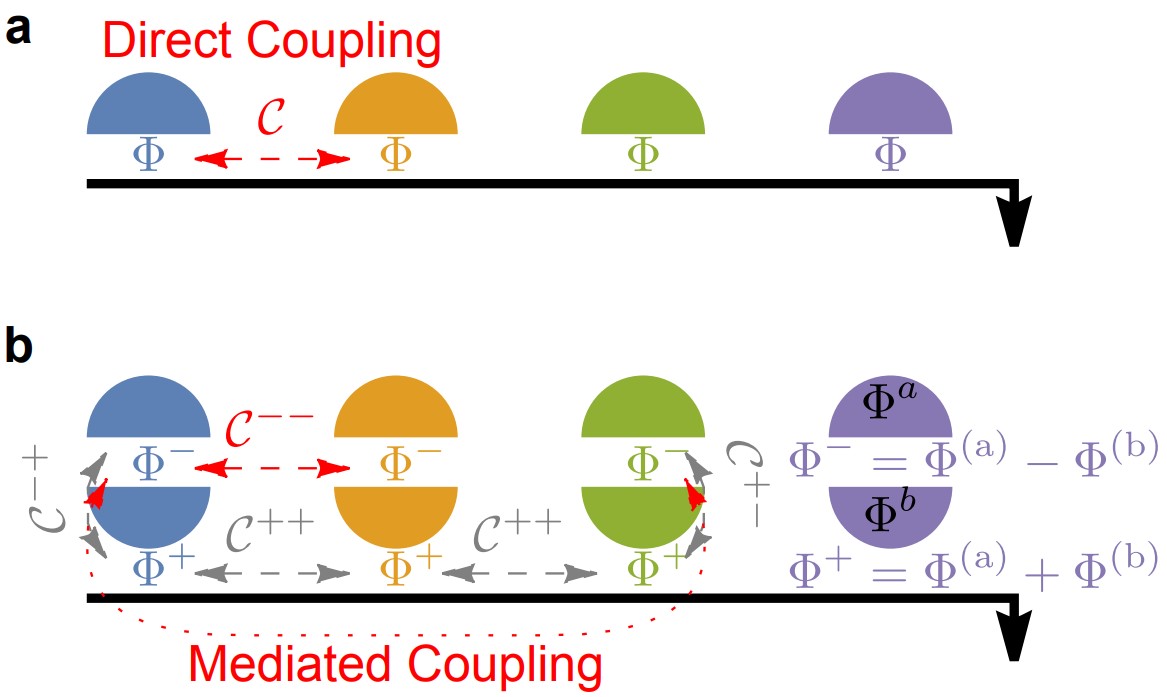
3/28/2022
Yariv, Jochen, and collaborators’ manuscript, “Mediated Interactions beyond the Nearest Neighbor in an Array of Superconducting Qubits,” was published in Physical Review Applied! In this work, we consider the properties of arrays of “floating” transmon qubits, which are not all connected to the same ground. We find that an extraneous degree of freedom in these qubits, not usually considered in their analysis, can mediate a different kind of coupling in the array, even between qubits that are not physically connected. This coupling can be tuned to different regimes by changing the physical parameters of the array and could be used in designing new systems with interesting properties. Congratulations Yariv, Jochen, and all co-authors at EQuS and the LPS!
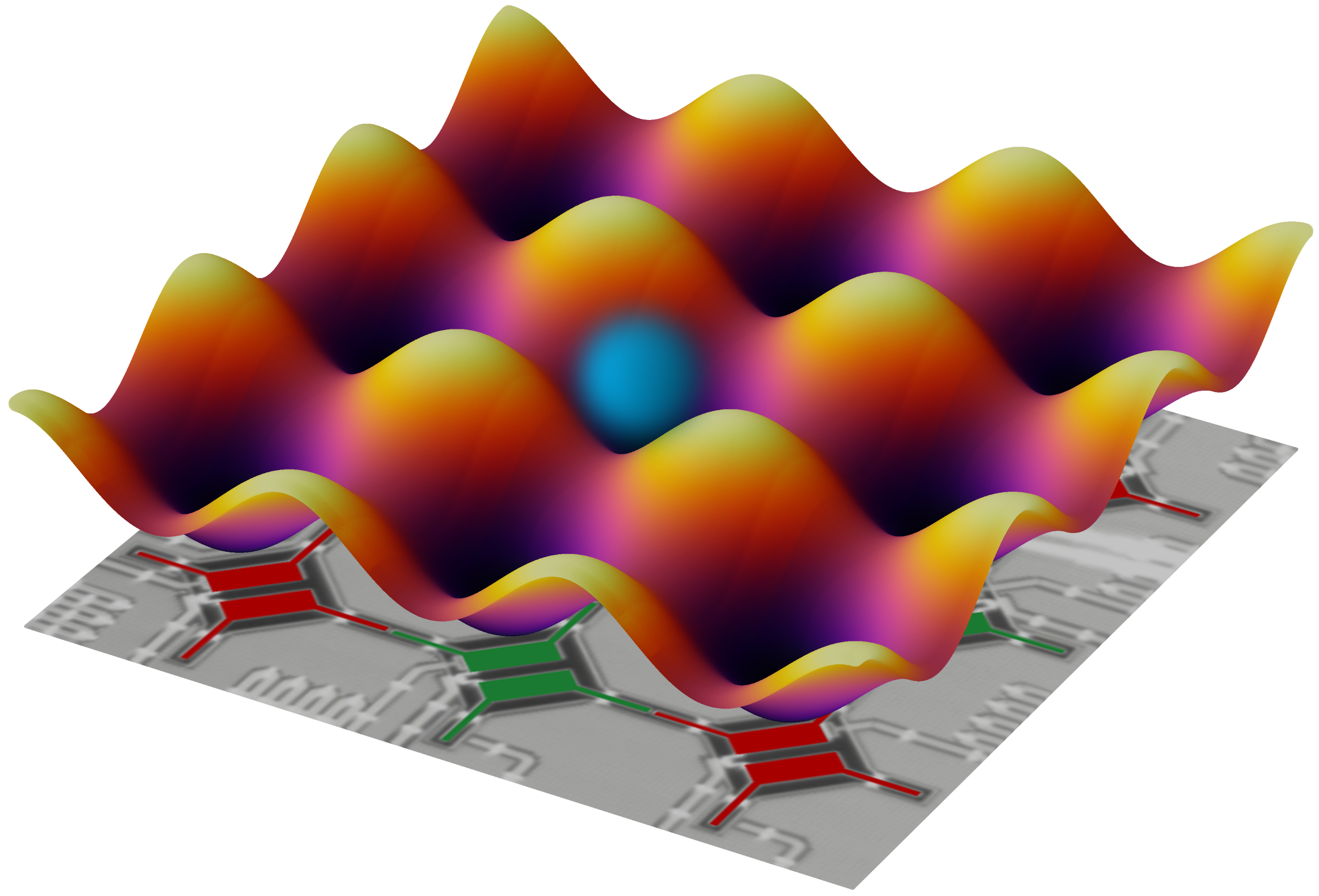
3/26/2022
Amir, Jochen, Yariv, and collaborators’ manuscript, “Quantum transport and localization in 1d and 2d tight-binding lattices” was published today in Nature Publication Journals (npj) Quantum Information. In this work, performed in collaboration with Yariv Yanay and Charlie Tahan at the Laboratory for Physical Sciences (LPS), we used hybrid analog-digital procedures on a 3×3 array of superconducting qubits to emulate the dynamics of a tight-binding model with controllable potential configurations. The degree of experimental control achieved in engineering the system Hamiltonian enables us to emulate the tight-binding time dynamics with high accuracy. We probed quantum random walks and the resulting entanglement propagation, Anderson localization, and Wannier-Stark localization with Bloch oscillations in 1D and 2D tight-binding lattices. Congratulations Amir, Jochen, Yariv, and all co-authors at EQuS, Lincoln Laboratory, and the LPS!
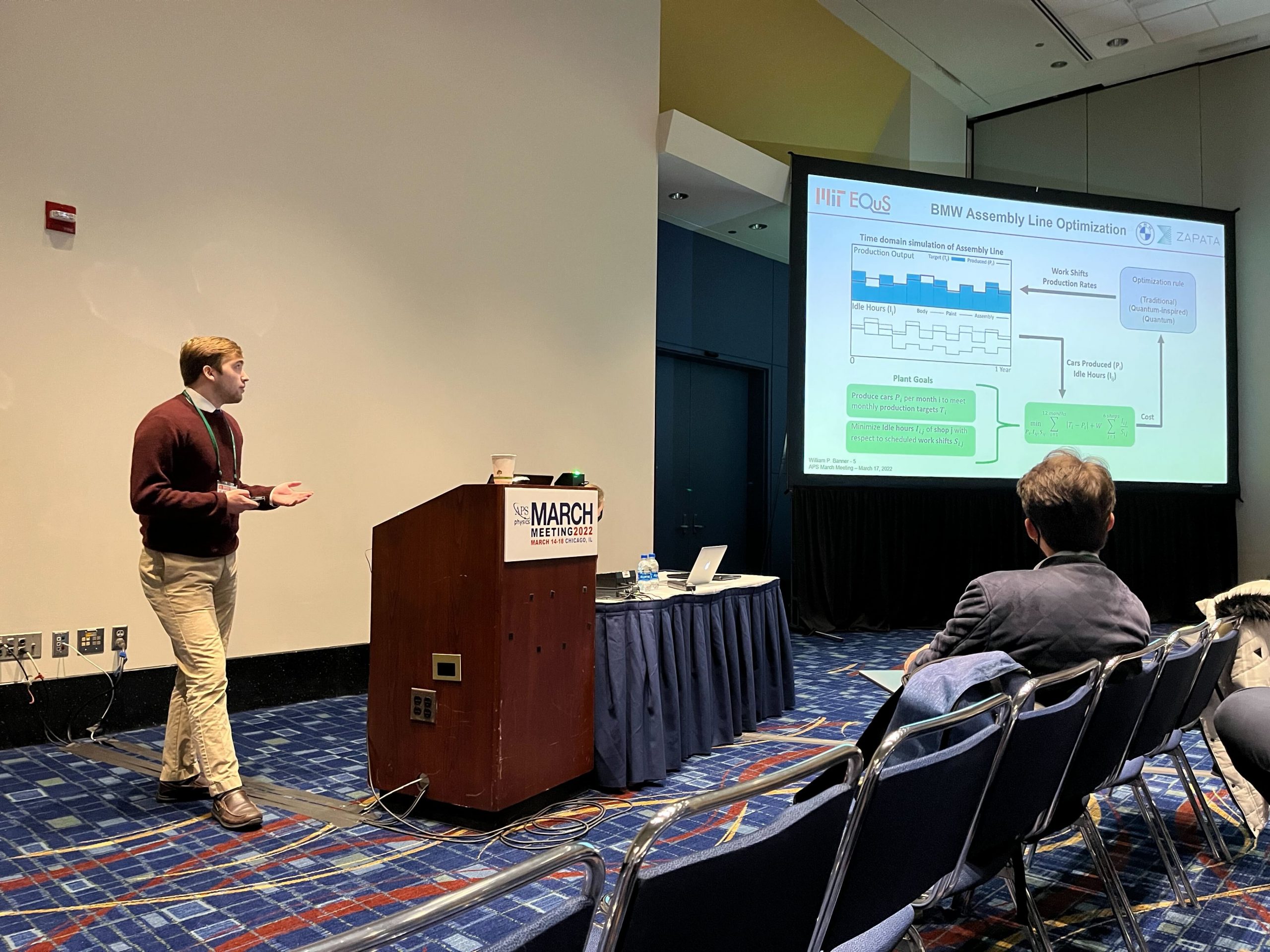
William P Banner, graduate student – “Quantum Enhanced Optimization for Industrial-Scale Problems” (S37.00003)
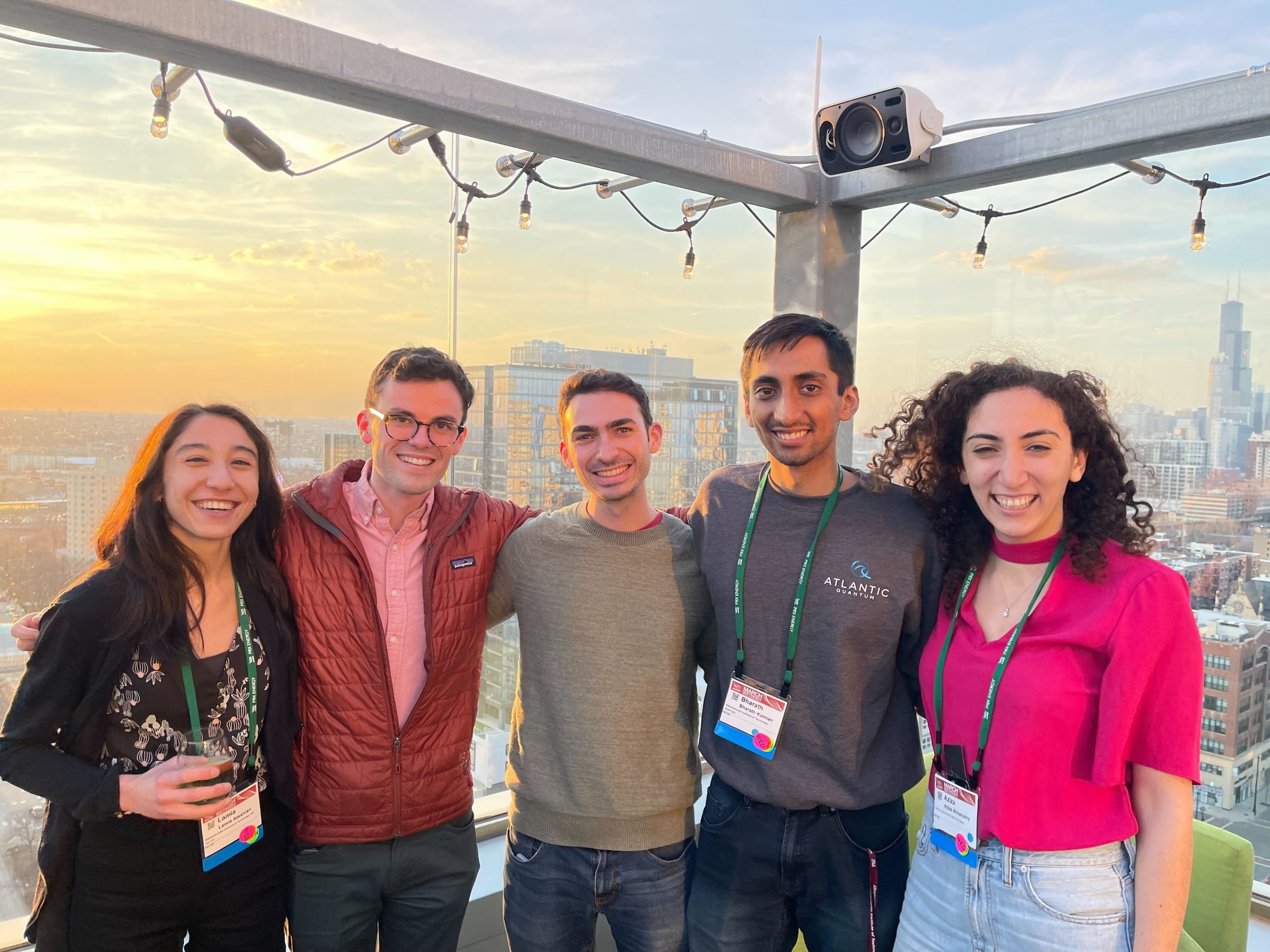
Members of EQuS enjoying at an annual collaboration dinner.
3/14-18/2022
EQuS attends APS March Meeting 2022 | Chicago, IL
The annual APS March Meeting was held in-person at McCormick Place in Chicago, Illinois this year.
25 EQuS members from campus and Lincoln Lab gave presentations over the course of five-day conference. Everyone did a fantastic job presenting their work. And, we had a wonderful group dinner on Wednesday evening. Congratulations to the entire team!!
- Joel I Wang, research scientist – “Hexagonal Boron Nitride (hBN) as a Low-loss Dielectric for Superconducting Quantum Circuits and Qubits” (A41.00003)
- David A Rower, graduate student – “Direct Detection of Surface Spins using Superconducting Qubits” (B41.00005)
- Leon Ding, graduate student – “Microwave activated two-qubit gate for fluxonium qubits via a tunable-transmon coupler” (D36.00006)
- Thomas M Hazard, Lincoln Lab – “Superconducting-semiconducting voltage-tunable qubits in the third dimension” (D38.00002)
- Yariv Yanay, former visiting scientist – “Locality and entanglement properties across the many-body spectrum in a 4×4 array of superconducting qubits (part 1): Theory” (D40.00001)
- Amir H Karamlou, graduate student – “Locality and entanglement properties across the many-body spectrum in a 4×4 array of superconducting qubits (part 2): Experiments” (D40.00002)
- Greg Calusine, Lincoln Lab – “Analysis and mitigation of interface losses in transmon qubit” (D41.00002)
- Miuko Tanaka, postdoc – “Temperature-induced phase transitions in the correlated quantum Hall state of bilayer graphene” (D56.00015)
- Benjamin Lienhard, former graduate student – “Reinforcement Learning assisted Pulse Shaping for Superconducting Qubit Readout” (F41.00002)
- Thomas R Bergamaschi, undergraduate student – “Distinguishing multi-spin interactions from lower order effects” (G35.00008)
- James I Basham, Lincoln Lab – “Fast, Scalable Calibration of a Quantum Annealer” (G38.00006)
- Bharath Kannan, graduate student – “Bidirectional Generation of Itinerant Microwave Photons with Waveguide Quantum Electrodynamics (Part 1)” (G41.00001)
- Aziza Almanakly, graduate student – “Bidirectional Generation of Itinerant Microwave Photons with Waveguide Quantum Electrodynamics (Part 2)” (G41.00002)
- Gabriel O Samach, graduate student – “Lindblad Tomography of a Superconducting Quantum Processor” (K35.00008)
- Steven M Disseler, Lincoln Lab – “Implementation of a 25-Qubit System for Analog Quantum Computing” (K38.00004)
- Tim Menke, graduate student – “Engineering multi-qubit interactions between superconducting flux qubits” (K41.00002)
- Sarah E Muschinske, graduate student – “Design and Characterization of 3D-Integrated Superconducting Qubit Lattices” (K41.00005)
- Patrick M Harrington, postdoc – “Investigation of Superconducting Qubit Errors from Ionizing Radiation” (M41.00005)
- Kyle Serniak, Lincoln Lab – “Spatiotemporally-correlated quasiparticle-induced transitions in arrays of transmon qubits” (M41.00008)
- Youngkyu Sung, graduate student – “Characterizing and mitigating crosstalk errors of simultaneous entangling gates in a superconducting circuit”( N41.00005)
- Alexander Melville, Lincoln Lab – “Low-loss parallel-plate capacitor for superconducting quantum circuits” (Q41.00006)
- William P Banner, graduate student – “Quantum Enhanced Optimization for Industrial-Scale Problems” (S37.00003)
- Amy Greene, graduate student – “Error Mitigation Via Emulated Measurement of Stabilizers” (S40.00003)
- Junyoung An, graduate student – “Improving quantum control of the soft 0-pi qubit through device engineering” (S41.00001)
- Agustin Di Paolo, postdoc – “Engineering microwave-activated interactions for two-qubit gates and coherent-error suppression” (Z41.00013)
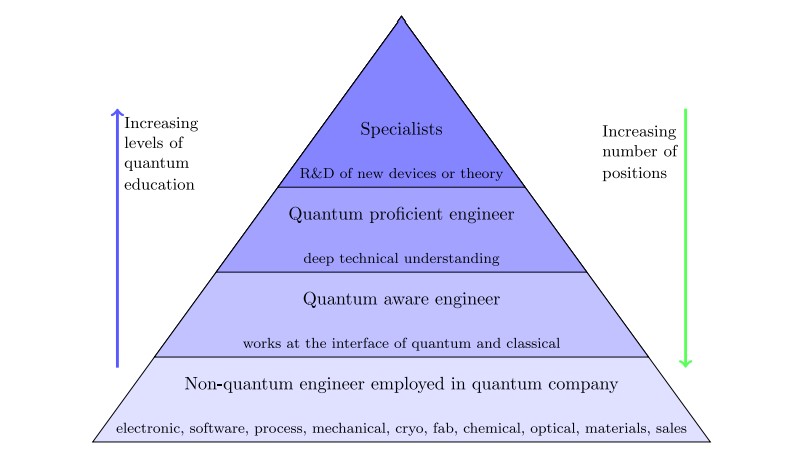
3/11/2022
Will and colleagues’ manuscript, “Building a Quantum Engineering Undergraduate Program”, was published in IEEE Transactions on Education. In this work, funded by the NSF, a workshop of 480 QISE researchers from across academia, government, industry, and national laboratories was convened, and representative authors developed a roadmap for building a quantum engineering education program to satisfy U.S. national and international workforce needs. Congratulations Will and colleagues worldwide!
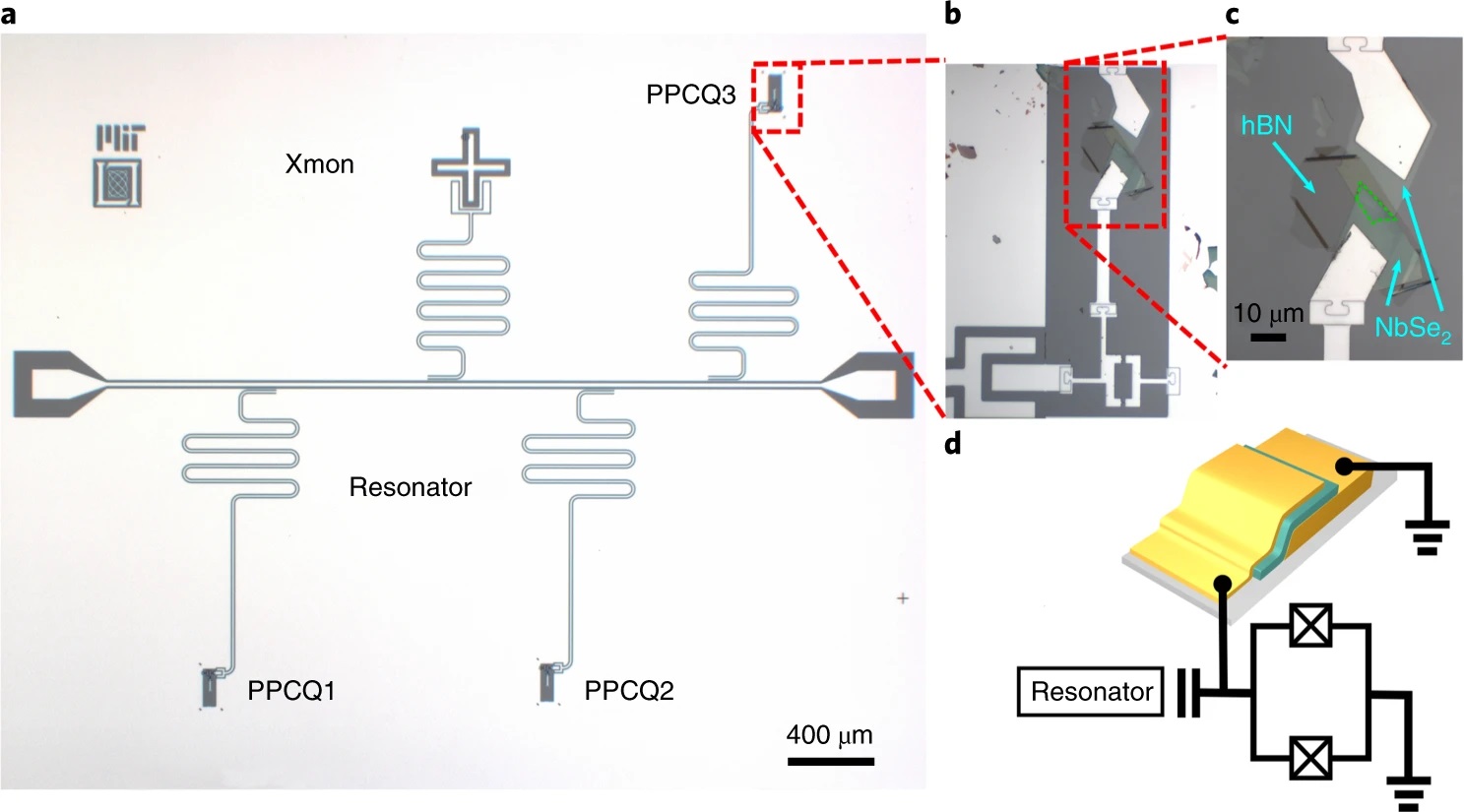
1/27/2022
Joel, Megan and collaborators’ manuscript, “Hexagonal Boron Nitride as a low-loss dielectric for superconducting quantum circuits and qubits”, was published today in Nature Materials! The publication was also featured in MIT News. In this work, we show that a superconducting qubit made with van der Waals heterostructures (a NbSe2-hBN-NbSe2 parallel-plate capacitor) can reduce the size of a qubit by at least 2 orders of magnitude, while the coherence times remains comparable to the conventional, aluminum-based qubit within the same device. The reduction in size and the potential to avoid unwanted cross-talk between qubits may advance extensible quantum technologies that will lead to practical machines in the future. Congratulations Joel, Megan, and co-authors at EQuS, MIT Physics, and Lincoln Laboratory!

1/21/2022
Ben, Antti, Cole, and collaborators’ manuscript, “Deep-Neural-Network Discrimination of Multiplexed Superconducting-Qubit States,” was published today in Physical Review Applied! In this work, performed in collaboration with Raytheon BBN Technologies, we demonstrate a 25% improvement in the readout fidelity of a 5-qubit system using a feedforward neural network over conventional discrimination approaches. Congratulations Ben, Antti, Cole, and all co-authors in EQuS, Lincoln Laboratory, and Raytheon BBN Technologies.
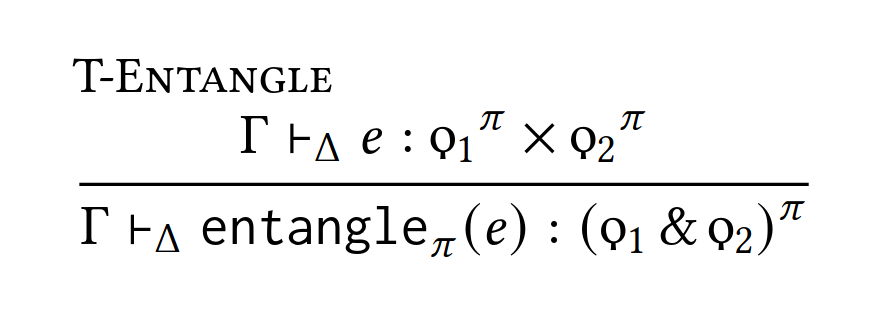
1/18/2022
Chris, PhD student Charles Yuan, and Professor Michael Carbin’s manuscript, “Twist: sound reasoning for purity and entanglement in quantum programs,” was published in Proceedings of the ACM on Programming Languages. Charles, the lead author, is presenting the work this week at the ACM SIGPLAN Symposium on Principles of Programming Languages (POPL 2022). It was also featured in MIT CSAIL news.Programs for quantum computers are difficult to debug because of the intricate quantum correlations formed during their execution, which make tomographic verification prohibitively costly. This work presents Twist, a quantum programming language with a static type system that tracks the purity of expressions. By reasoning about entanglement in advance of program execution, Twist can prove the absence of certain bugs at the cost of adding only lightweight program annotations. Dynamic purity assertions further enhance the expressivity of the language while incurring only minimal simulation overhead. Congratulations Chris, Charles, and Michael!

1/7/2022
Morten, Mollie, Ami, and Gabriel’s manuscript, “Demonstration of Density Matrix Exponentiation Using a Superconducting Quantum Processor,” was published today in Physical Review X! In this work, we use a 99.7% fidelity CZ gate and quantum measurement emulation to demonstrate the density matrix exponentiation algorithm, a means to efficiently feed-forward quantum information without the need for tomographic reconstruction. This work is the first experimental demonstration of quantum instructions! Congratulations Morten, Mollie, Ami, Gabriel and co-authors in EQuS and Lincoln Laboratory.
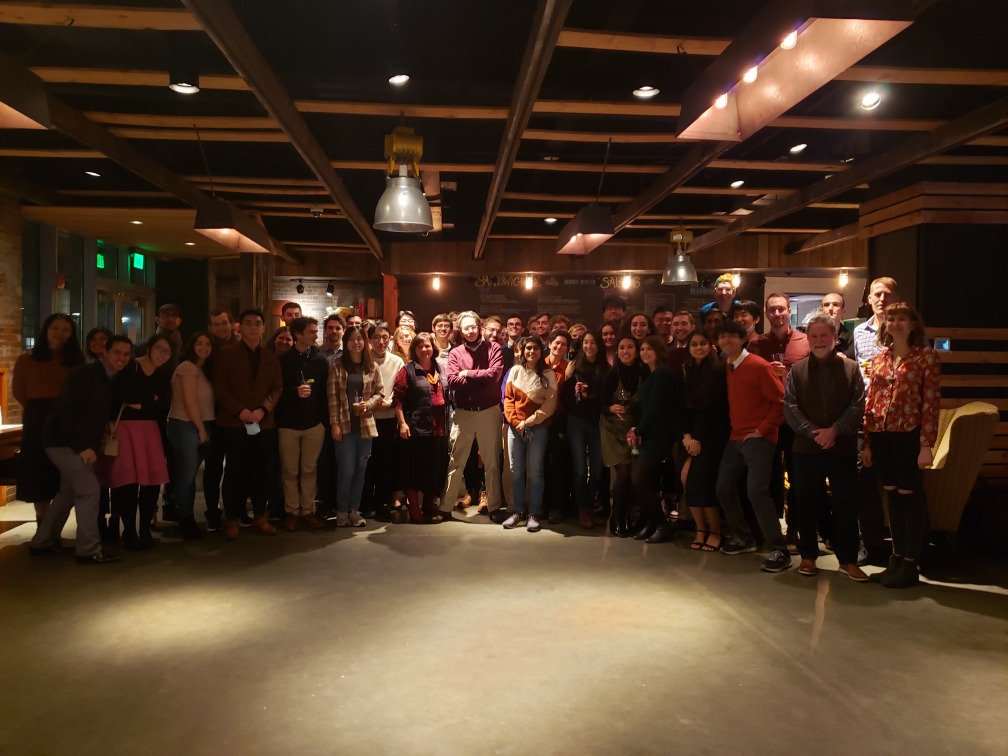
12/23/2021
Holiday Greetings from EQuS
As we approach the end of another successful year, we would like to take this opportunity to thank our sponsors, collaborators, and colleagues for their continued support.
Also, we are very thankful for all of the hard work and effort that the EQuS members have put in to making this a successful year, and we are looking forward to another great year in 2022!
We send you and your families our best wishes for a wonderful Holiday Season and a very prosperous New Year.

12/23/2021
Jochen, Amir, Yariv, and collaborators’ manuscript, “Probing quantum information propagation with out-of-time-ordered correlators,” was published today in Nature Physics! In this work, performed in collaboration with Yariv Yanay and Charlie Tahan at the Laboratory for Physical Sciences, we performed hybrid analog-digital procedures on a strongly interacting 3×3 superconducting qubit array emulating a 2D hard-core Bose-Hubbard lattice. We used out-of-time-ordered correlators (OTOCs) and time-reversed dynamics – achieved with a Loschmidt echo – to characterize the propagation of quantum information throughout the 2D array. The complexity of quantum states makes their evolution difficult to simulate with classical computers, especially as the number of qubits increases. Congratulations Jochen, Amir, Yariv, and co-authors at EQuS, Lincoln Laboratory, and the LPS!

12/21/2021
QSA’s web feature profiling Will and quantum engineering
Quantum Systems Accelerator (QSA)’s website featured an article on Professor William D. Oliver and the field of quantum engineering entitled, “ Advancing Quantum Engineering: A Must-Do for Quantum Computing.” QSA is a research center led by the Lawrence Berkeley National Laboratory that aims to provide a collaboration opportunity for quantum engineering lead scientists. Several MIT research groups, including EQuS, are part of the QSA. Will is the QSA Technical Coordinator and shared his thoughts about the future of quantum engineering in this article.
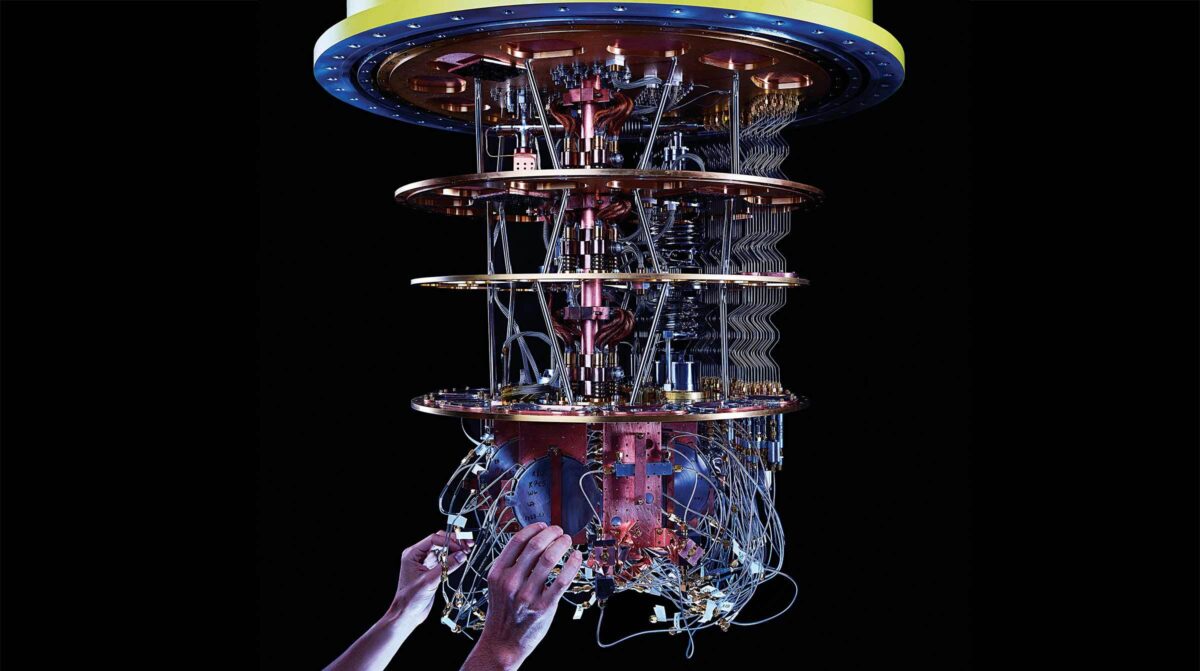
12/19/2021
Will and colleagues’ article appears in Harvard Business Review
Will with colleagues Jonathan Ruane and Andres McAfee published an article “Quantum Computing for Business Leaders” in the January-February 2022 issue of Harvard Business Review. The manuscript provides a perspective for business leaders on the current state of quantum computing, the potential applications of future quantum computers, and the impact they may have at scale. Congratulations to Jonathan, Andrew, and Will!
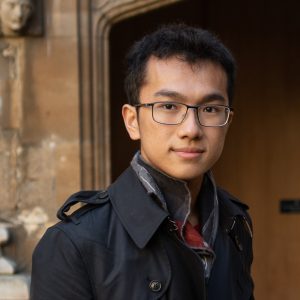
12/6/2021
EQuS UROP Sihao Huang awarded 2023 Schwarzman Scholarship
Sihao Huang has been selected as a Schwarzman Scholar for the class of 2022 – 2023! The Schwarzman Scholars program is a fully-funded, one-year master’s degree and leadership program at Tsinghua University in Beijing, China. The program is designed to build a global community of future leaders who will serve to deepen understanding between China and the rest of the world. Sihao was a UROP in the EQuS for two years, and he was instrumental in developing our latest qubit package. He is currently at Oxford studying Philosophy, Politics, and Economics as a visiting student, and he will be spending his year in Tsinghua before pursuing a Ph.D. in political science back in the U.S. Congratulations, Sihao!
Schwarzman Scholars are also featured in MIT News.
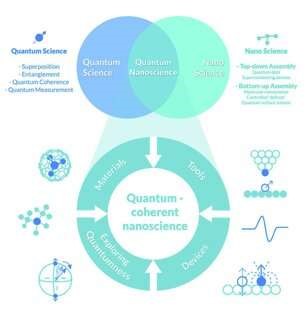
11/29/2021
Will and colleagues’ manuscript “Quantum-coherent nanoscience” published in Nature Nanotechnology
Will and colleagues Andreas Heinrich, Liven Vandersypen, Arzhang Ardavan, Roberta Sessoli, Daniel Loss, Ania Jayich, Joaquin Fernandez-Rossier, Arne Laucht, and Andrea Morello published a Focus Review Article this week in Nature Nanotechnology. This Review fundamental principles and practical applications of quantum coherence in nanoscale systems – a new field termed here as “quantum-coherent nanoscience”. Congratulations to all authors worldwide!
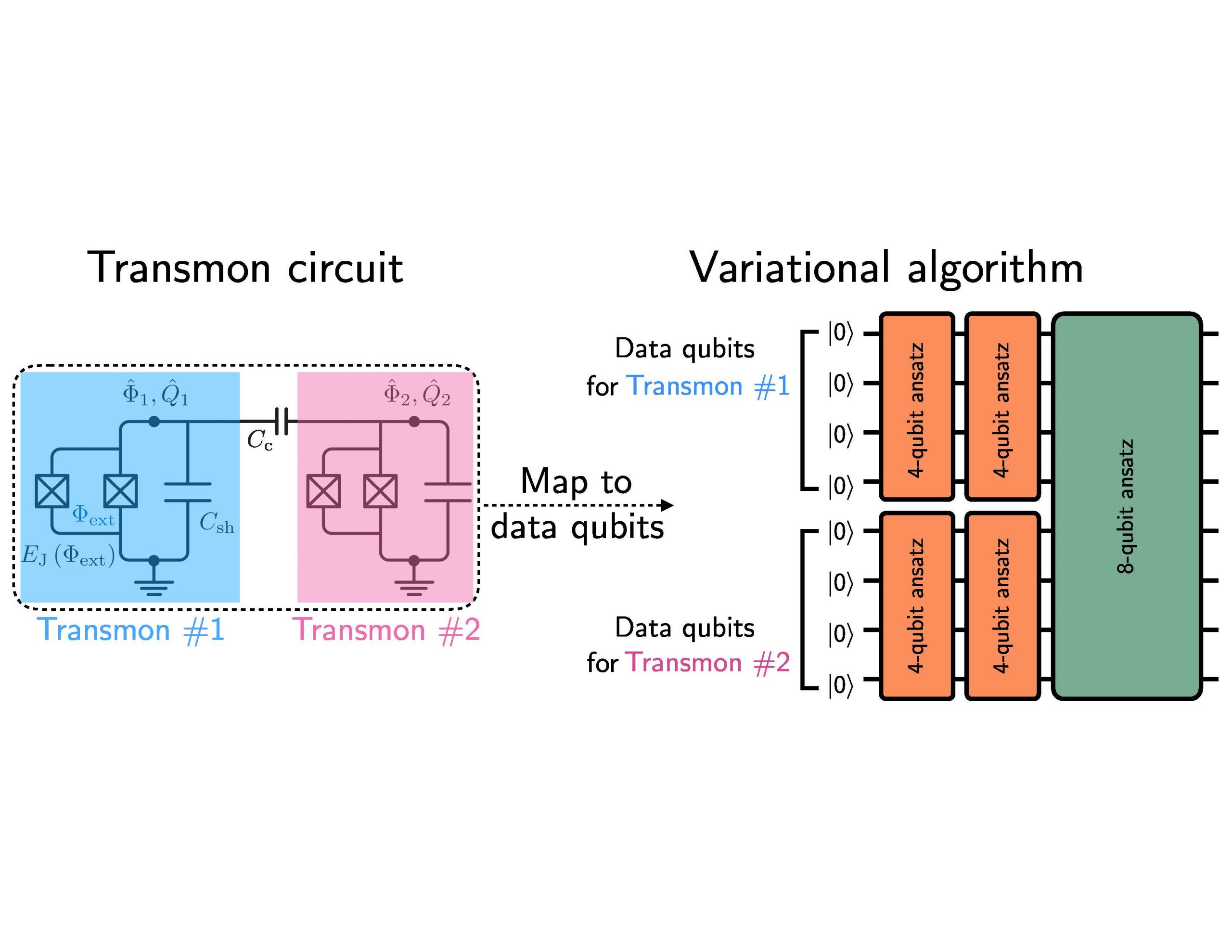
10/22/2021
Tim, Thi Ha (Aspuru-Guzik group at UToronto), and co-author’s manuscript “Quantum computer-aided design: digital quantum simulation of quantum processors” was published in Physical Review Applied. The team has identified a new family of relevant applications for near-term quantum computers: The design of new quantum processors themselves. Our key observation is that the computational overhead of simulating even part of the processor will exceed existing computational resources as the quantum processor size grows. In our work, we establish the new paradigm of simulating quantum hardware on a quantum computer. The proposed framework is the first of its kind and combines near-term variational algorithms and intermediate-term techniques to compute the static and dynamic properties of individual and coupled superconducting transmon qubits. As in many digital design processes, the make-test-analyze design cycle for quantum hardware can be enhanced by using the proposed QCAD algorithm. In addition, our work opens new opportunities in quantum simulation, quantum machine learning, and quantum algorithms development. Congratulations Tim, Thi Ha, and co-authors!
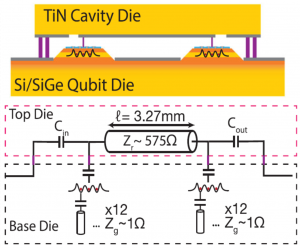
9/9/2021
Nathan Holman (Mark Eriksson group at UW-Madison) and co-authors’ manuscript “3D integration and measurement of a semiconductor double quantum dot with a high-impedance TiN resonator” was published in npj Quantum Information. In this work, we utilize flip-chip 3D integration to couple a high-impedance superconducting TiN resonator on one chip to a double quantum dot in a Si/SiGe heterostructure on another chip. We demonstrate quantum dot qubit readout in the single electron regime with an SNR = 5.36. This demonstration shows that 3D integrated devices can maintain low-charge noise for the quantum dots and high-quality factors for the superconducting resonator (internal Q in the single-photon limit of 300,000), necessary for readout and high-fidelity two-qubit gates. Congratulations Nathan, Robert, and Mark from UW-Madison and coauthors Danna, Donna, Jonilyn, Rabi, and Will from MIT Lincoln Laboratory and EQuS!
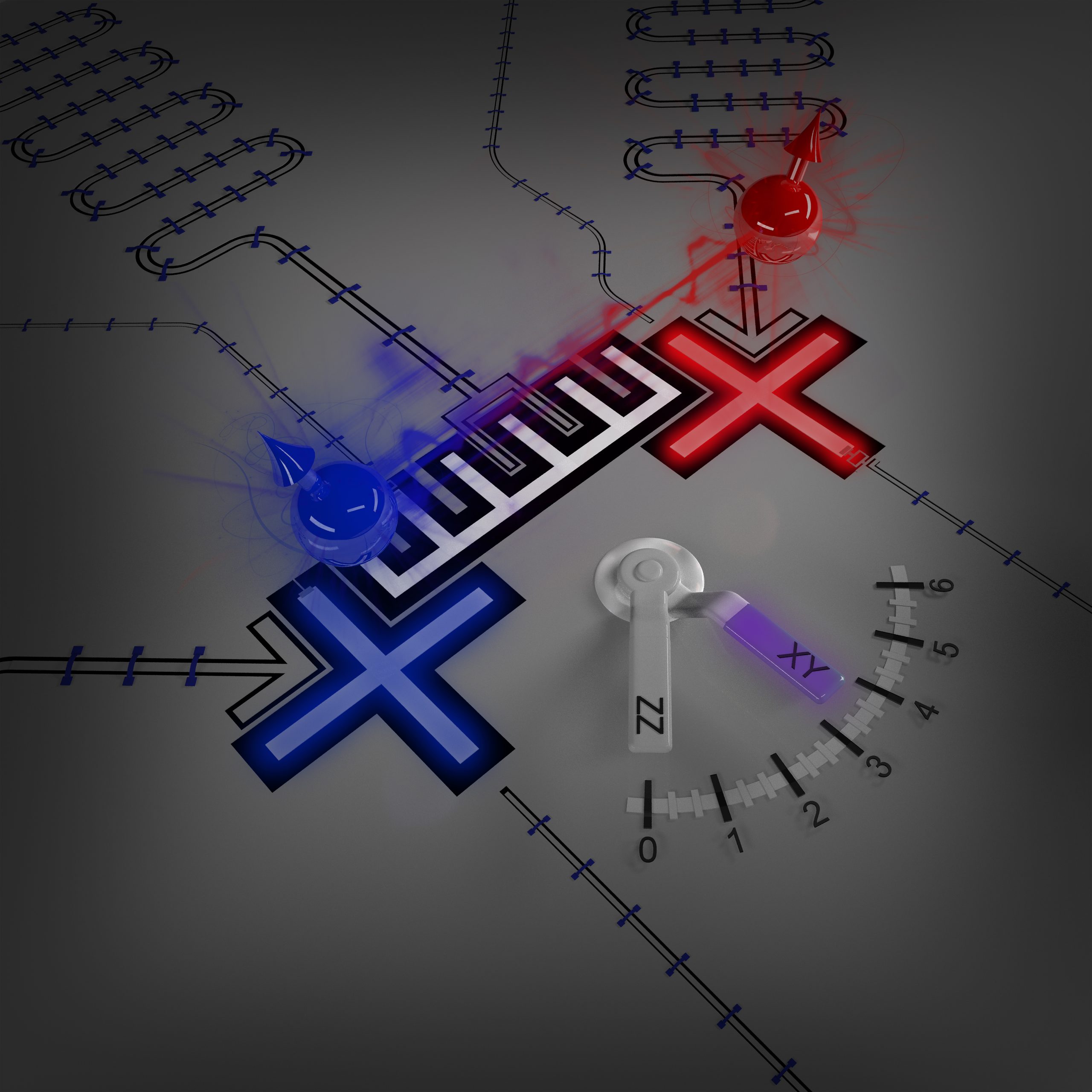
6/16/2021
Youngkyu’s manuscript “Realization of High-Fidelity CZ and ZZ-Free iSWAP Gates with a Tunable Coupler” published in Physical Review X
Youngkyu, Leon, and co-authors’ manuscript “Realization of High-Fidelity CZ and ZZ-Free iSWAP Gates with a Tunable Coupler” was published in Physical Review X. The publication was also featured in MIT News. In this work, we demonstrate a tunable coupler that turns on and off the qubit-qubit coupling and enables us to achieve state-of-the art longitudinal (CZ: 99.76+/-0.07%) and transverse (iSWAP: 99.87+/-0.23%) two-qubit interaction fidelities, each being essentially coherence-limited. To eliminate the unwanted qubit-qubit (ZZ) interaction, we harness the higher-excited states of the coupler. Furthermore, our thorough analysis of the multi-level dynamics of the two-qubit gates enables the design of optimized control pulse-shaping that results in negligible leakage to the coupler. The principles and demonstrations presented in this work will help address one of the most critical quantum hardware issues today. Congratulations Youngkyu, Leon, and co-authors at EQuS and our Lincoln Laboratory team!
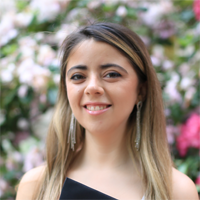
6/2/2021
SuperUROP Grecia Castelazo awarded the Joel Matthew Orloff Award
Grecia Castelazo was awarded the 2021 Joel Matthew Orloff Award for Outstanding Service in Physics! The Joel Matthew Orloff Award has been given to her in recognition of her outstanding service as the External Relations Chair of MIT Society of Physics Students. During her two-year service for the SPS, Grecia led an effort to improve the climate of the Physics Department for undergraduates and the advocacy for fellow students. Grecia has been contributing to EQuS as a SuperUROP, and conducted her research, “Improving the Readout of Superconducting Quantum Circuits.” Grecia has received her Bachelor’s degree in June, and she will continue her education at MIT for her Master’s degree in Engineering. Congratulations, Grecia!
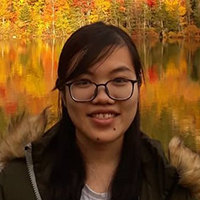
6/2/2021
SuperUROP Thao Dinh awarded the Malcolm Cotton Brown Award
Thao Dinh was awarded the 2021 Malcolm Cotton Brown Award for Research in Physics! The Malcolm Cotton Brown Award is awarded to a senior of high academic standing in physics who plans to pursue graduate studies in experimental physics. Thao has been contributing to EQuS as a SuperUROP, where she performed research on her thesis subject entitled, “Characterization of Magic-Angle Twisted Bilayer Graphene using Microwave Techniques.” Thao was also inducted into Phi Beta Kappa (a national honorary society of college and university undergraduates) and Sigma Pi Sigma (a national honorary society in Physics). After graduating from MIT this spring, she will continue her education at Harvard Physics to pursue her PhD. Congratulations, Thao!
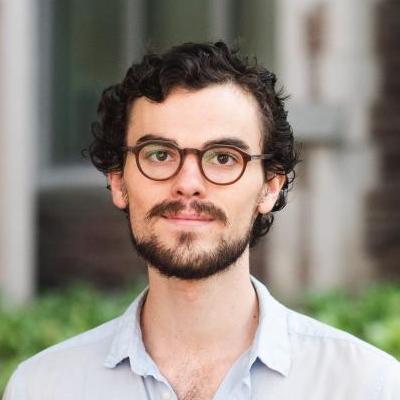
5/4/2021
Postdoctoral Associate Patrick Harrington awarded IC Postdoctoral Research Fellowship
Patrick’s proposal, “Simultaneous Measurement of Quasiparticle Dynamics and Qubit Errors by Coherent Detection of Athermal Phonons” was selected for funding under the IC Postdoctoral Research Fellowship program! The IC Postdoc Program is a two-year postdoctoral fellowship that offers scientists and engineers from a wide variety of disciplines unique opportunities to conduct research in a wide range of topics relevant to the Intelligence Community. Patrick will characterize errors in superconducting qubits induced by ionizing radiation by measuring acoustic and electric signatures of nonequilibrium quasiparticle excitations. Congratulations, Patrick!
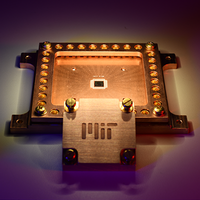
4/16/2021
Sihao, Ben, and their co-authors’ manuscript “Microwave Package Design for Superconducting Quantum Processors” was published in PRX Quantum. In this work, we present an approach to microwave package design focusing on material choices, signal line engineering, and spurious mode suppression. We describe design guidelines validated using simulations and measurements used to develop a 24-port microwave package. Analyzing the qubit environment reveals no spurious modes up to 11 GHz. The material and geometric design choices enable the package to support qubits with lifetimes exceeding 350 μs. The microwave package design guidelines presented here address many issues relevant for near-term quantum processors. Congratulations Sihao, Ben, and co-authors at EQuS and Lincoln Laboratory!

4/14/2021
The Thornton Family FRIFs were established to recognize midcareer faculty members for outstanding research contributions and international leadership in their fields. The FRIFs provide tenured faculty with resources to pursue new research and development paths, and to make potentially important discoveries through early-stage research.
The Thornton Family Faculty Research Innovation Fellowships were created through the generosity of Prof. Richard Thornton, SM ‘54, ScD ’57, an EECS faculty member for more than 40 years. Congratulations, Will!
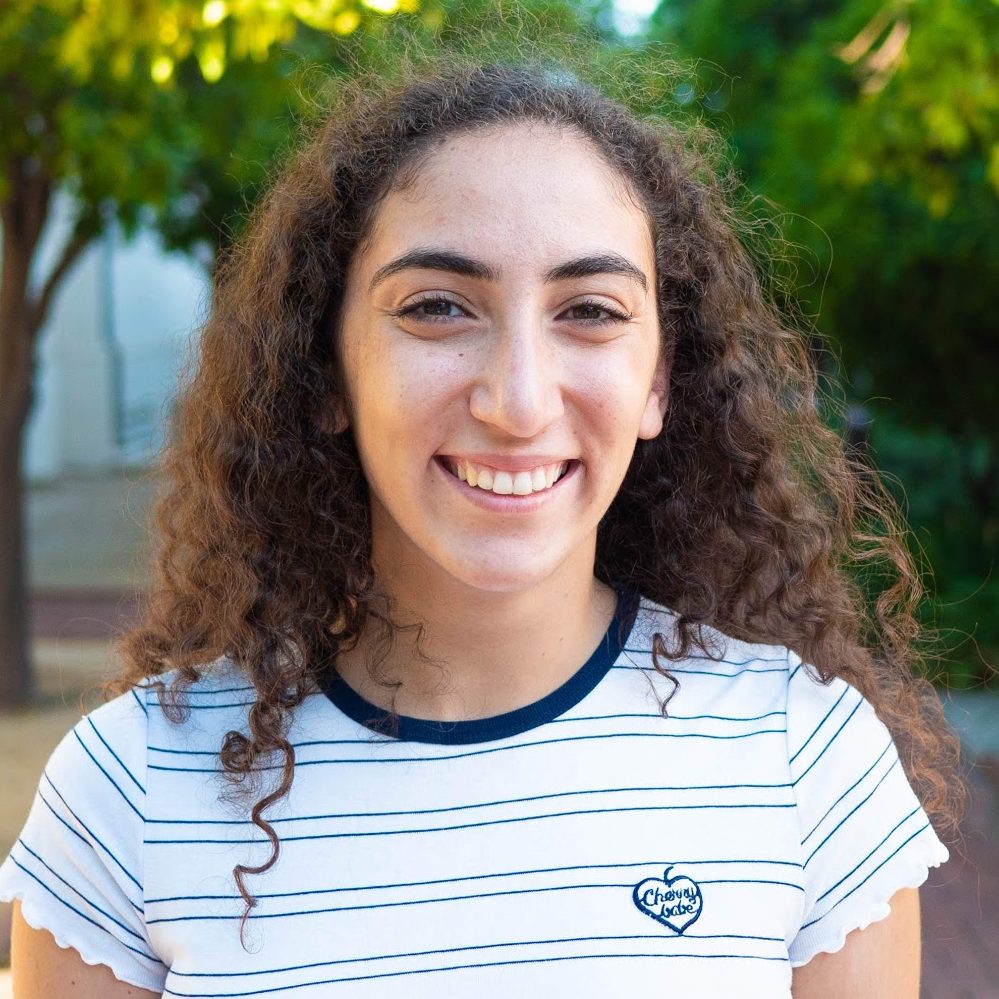
4/13/2021
Aziza Almanakly awarded 2021 Paul and Daisy Soros Fellowship
The Paul & Daisy Soros Fellowships for New Americans is a fellowship exclusively for immigrants and children of immigrants who are pursuing graduate school in the United States. The program draws more than 2,400 applications annually for just 30 fellowships. The rigorous selection process is focused on identifying the most promising New Americans who are poised to make significant contributions to the nation through their work. In addition, the selection team looks for a commitment to the United States’ fundamental principles and ideals. The Fellows can study in any degree-granting program in any field at any university in the United States. Selection is based on merit – the specific selection criteria emphasize creativity, originality, initiative and sustained accomplishment. Congraturations, Aziza!
The Paul & Daisy Soros Fellowships for New Americans was also featured in MIT News.
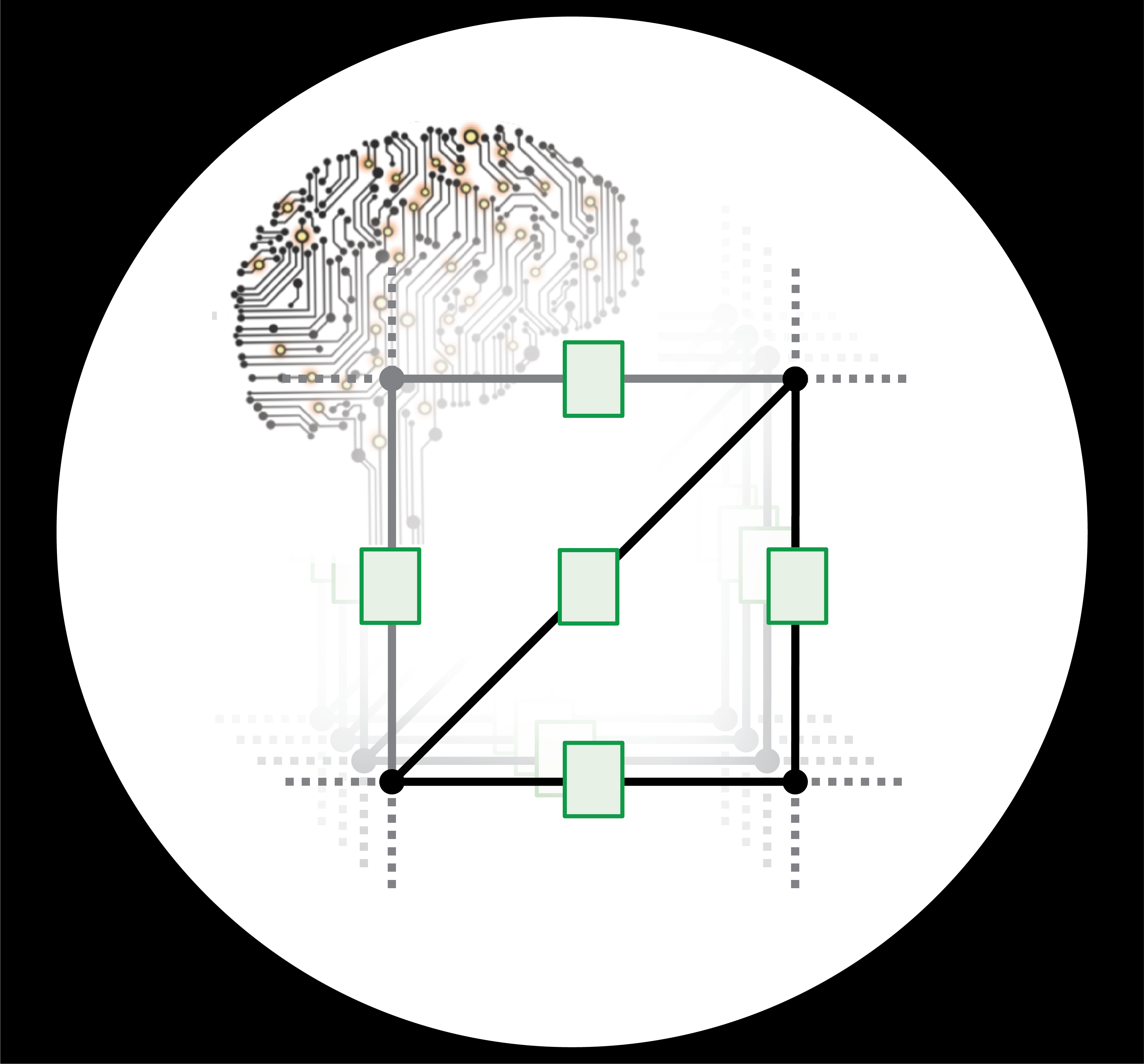
3/11/2021
Tim, Florian, and their co-author’s manuscript “Automated design of superconducting circuits and its application to 4-local couplers” was published in npj Quantum Information. Our work propels the quickly evolving field of superconducting circuit quantum computation towards greater automation: Circuits are designed by an automated discovery software, thus bypassing a large part of the tedious design process that is usually done by human researchers. Given a desired target property, the software automatically searches thousands of circuit designs for one that exhibits the property. We demonstrate the usefulness of the method by searching for a circuit that couples multiple quantum bits at the same time. After about four days of running on a computing cluster and searching through more than 250,000 circuits, our software successfully identified a coupler circuit with manageable complexity and low noise sensitivity. In this way, we speed up the design of quantum chips, inspire new design concepts, and free up scientists’ time to make the next breakthrough experimental discovery. Congratulations Tim, Florian and co-authors at EQuS, Lincoln Laboratory, Harvard, and the University of Toronto!

2/11/2021
Youngkyu’s manuscript “Multi-level quantum noise spectroscopy” published in Nature Communications
Youngkyu, Antti, Jochen, and co-authors’ manuscript, “Multi-level quantum noise spectroscopy,” was published in Nature Communications. In this work, we propose and experimentally demonstrate a spin-locking-based noise spectroscopy protocol that accounts for – and utilizes – multiple qubit transitions. Our protocol extends the spectral range of weakly anharmonic qubit spectrometers beyond the present limitations set by their lack of strong anharmonicity. Also, the additional information gained from probing the higher-excited levels enables identifying and distinguishing contributions from different underlying noise mechanisms. Congratulations Youngkyu, Antti, Jochen, and co-authors at EQuS and Lincoln Laboratory!

1/19/2021
MIT News posted a featured article on Professor William D Oliver entitled, “Transforming quantum computing’s promise into practice.”
The article highlights the continuous development of fundamental quantum technologies at MIT in the EQuS group and at Lincoln Laboratory. Realizing the promise of quantum computing will require both basic science and fundamental engineering – the “quantum engineering” of extensible technologies. The Center for Quantum Engineering and its industry membership group are focused on bringing quantum technologies from scientific curiosity to technical reality.
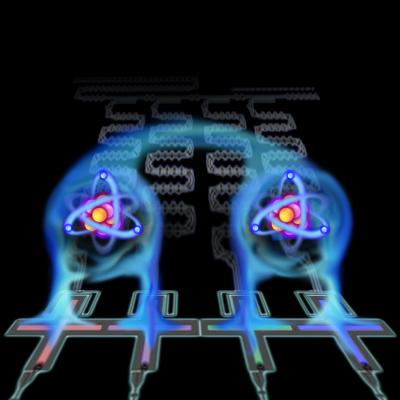
12/14/2020
Dan, Yun-Pil, Bharath, and co-authors’ manuscript, “Universal non-adiabatic control of small-gap superconducting qubits,” was published in Physical Review X. In this work, performed in collaboration with Yun-Pil Shim and Charlie Tahan at the Laboratory for Physical Science (LPS), we demonstrated the use of non-adiabatic driving to implement a universal set of gates on small-gap qubits. Our test device was a new type of “composite quantum bit” that features a small gap and affords longer coherence times with greater immunity to environmental noise than current standard architectures. The control technique demonstrated here enables fast, high-fidelity control of small-gap qubits, including so-called “protected qubits,” which like the composite qubit hold the promise of higher coherence times, but are difficult to control using standard, resonant techniques. Congratulations Dan, Yun-Pil, Bharath and co-authors at EQuS, Lincoln Laboratory, and LPS!
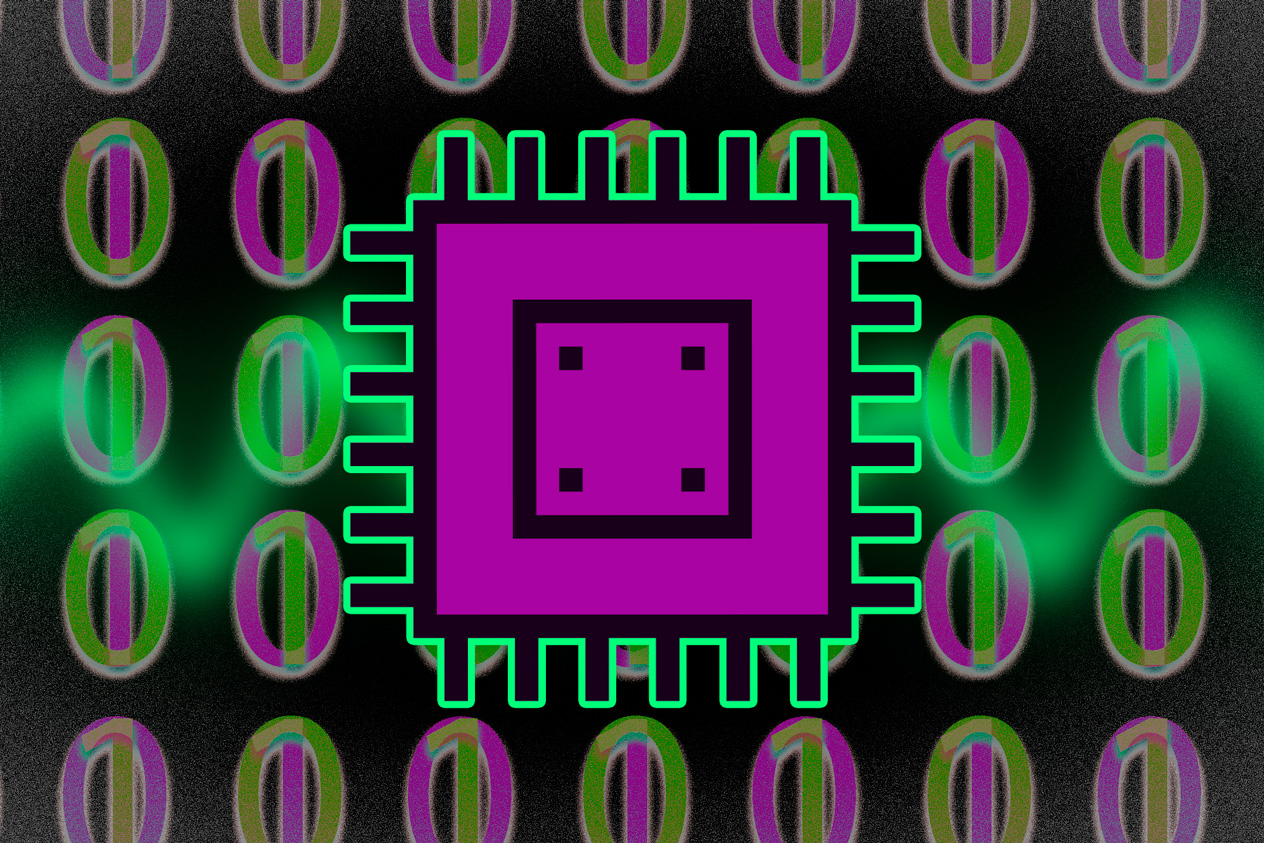
12/10/2020
Quantum Engineering featured in MIT News!
MIT News posted a featured article on the subject of quantum engineering entitled, “Explained: Quantum engineering.”
The article addresses several topics related to quantum engineering, emphasizing that quantum engineering encompasses both science and engineering. Will Oliver (MIT and Lincoln Laboratory) and John Chiaverini (Lincoln Laboratory) both provide insights into this new discipline, its definition, and its future role building a quantum workforce.

10/30/2020
The Center for Quantum Engineering (CQE) Kick-off Symposium
The MIT-CQE is dedicated to the academic pursuit and practice of quantum science and engineering to accelerate the practical application of quantum technologies for the betterment of humankind.
On October 30, 2020, the Center for Quantum Engineering (CQE) held a kick-off Symposium to mark their new partnership with the Laboratory for Physical Sciences (LPS) and the NSA. The event hosted more than 70 people online with more than 10 speakers from both the NSA/LPS and MIT.
The event commenced with an introduction of CQE by Charlie Tahan, Chief Scientist of LPS, and William Oliver, Director of CQE. This introduction was followed by the welcome remarks from Maria Zuber (VPR, MIT), Mark Segal (Research Director, NSA), Eric Evans (Director, MIT Lincoln Lab), Rob Cunningham (Director, LPS), and Marc Baldo (RLE Director, MIT).
The remarks were followed by a series of technical talks from faculty and researchers at MIT, including the newly appointed “Doc Bedard” Fellows. Through the generous support of the NSA/LPS, the CQE will support eight “Doc Bedard” 3-year graduate fellowships, named for pioneering NSA/LPS researcher Fernand “Doc” Bedard.
Dr. Jeremy Kepner, Laboratory Fellow at MIT Lincoln Laboratory, and Dr. Daniel Sanchez, Associate Professor of EECS, presented the broad offerings at MIT in high-performance classical computing hardware and architectures. The “Doc Bedard” fellows Chris McNally, Kyle DeBry, and Sujit Rao, Sujit’s advisor, Dr. Anand Natarajan, Assistant Professor of EECS, and LPS sponsored researcher Bright Ye spoke about their respective research projects in quantum information science and technology.
Additionally, Maddie Sutula, the iQuHACK chair for the student-led Interdisciplinary Quantum Information Science and Engineering (iQuISE) program, spoke about the CQE-iQuISE partnership and educational activities, including the MIT-CQE iQuISE Seminar Series and the annual iQuHACK quantum hack-a-thon.
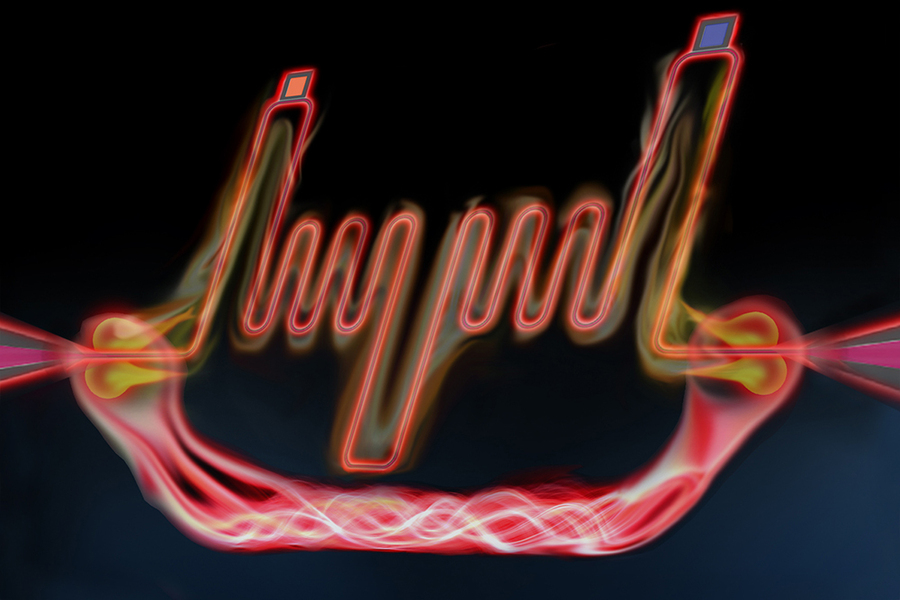
10/08/2020
Bharath and co-authors’ manuscript, “Generating spatially entangled itinerant photons with waveguide quantum electrodynamics,” was published in Science Advances. The publication was also featured in MIT News. In this work, we demonstrated how quantum interference between the photons emitted by qubits into a waveguide can generate spatially entangled, itinerant photons that travel in opposite directions. These types of photons can then be used for long-distance communication between quantum processors. Congratulations Bharath and co-authors at EQuS and our Lincoln Laboratory team!
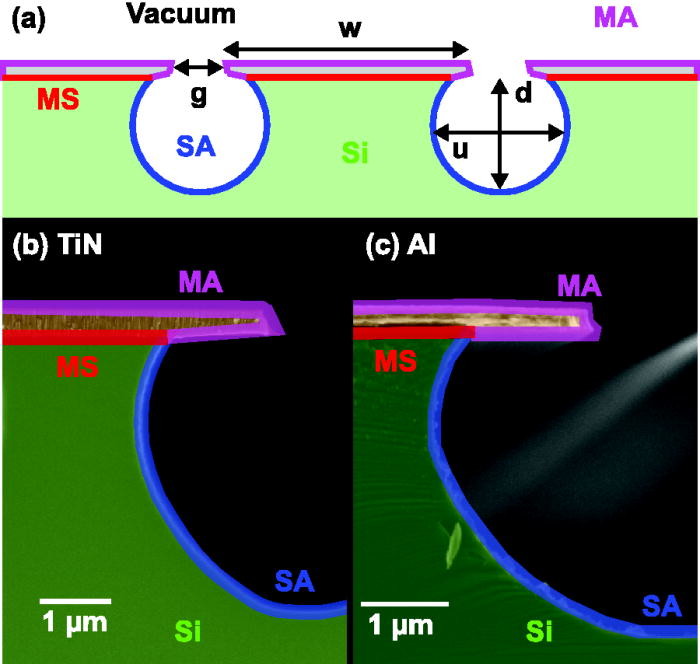
9/23/2020
Alex’s manuscript “Comparison of dielectric loss in titanium nitride and aluminum superconducting resonators” published in Applied Physics Letters
Alex and co-authors’ manuscript, “Comparison of dielectric loss in titanium nitride and aluminum superconducting resonators,” was published in Applied Physics Letters. In this work, we use a surface loss extraction technique to identify the strength and location of loss mechanisms on the various surfaces of coplanar waveguide resonators — substrate to air, substrate to metal, and metal to air — and within the silicon substrate. We use the technique to compare aluminum and titanium nitride resonators. We then intentionally alter one fabrication step — presence or absence of a post-process hydrofluoric etch — and directly identify the change in resonator Q associated with the substrate-air interface. Congratulations Alex, Greg, Wayne, Kyle, and co-authors with the Lincoln Laboratory side of our team!
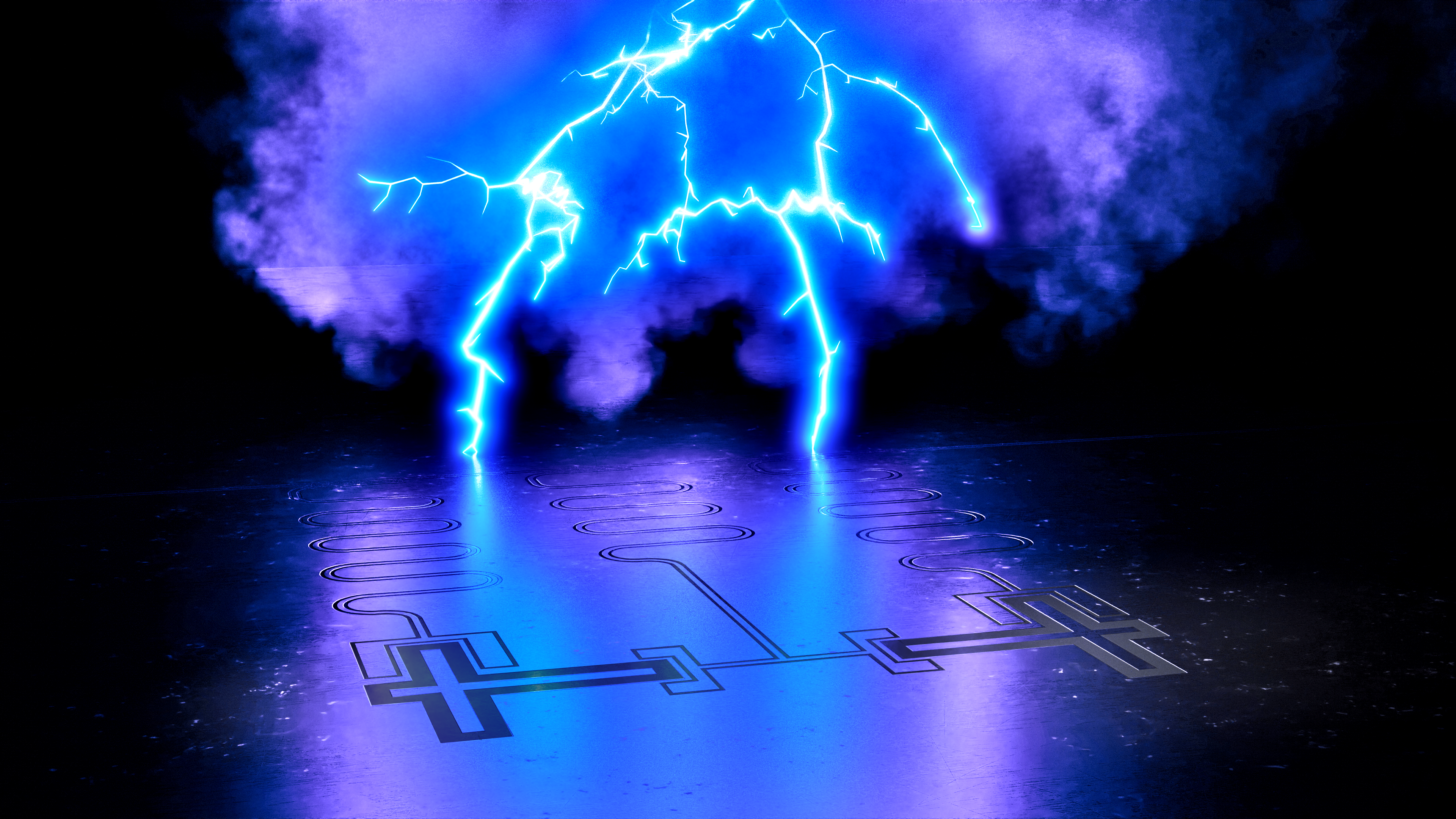
9/3/2020
Uwe and co-authors’ manuscript, “Two-qubit spectroscopy of spatiotemporally correlated quantum noise in superconducting qubits,” was published in PRX Quantum. In this work, conducted while Uwe was a visiting research assistant in EQuS and in collaboration with Felix Beaudoin and Leigh Norris in Lorenza Viola’s group at Dartmouth, we performed noise spectroscopy of correlated noise on two superconducting qubits, extracting the self-correlation and cross-correlation spectra. The presence of spatial and temporal noise correlations has implications for the calibration, error detection, and error correction in larger scale quantum systems. Congratulations Uwe, Felix, Leigh, and co-authors at Dartmouth, Lincoln Laboratory, and the EQuS group!

8/28/2020
On August 28, 2020, the White House Office of Science and Technology Policy (OSTP) and the U.S. Department of Energy (DOE) selected Professor William D Oliver as a member of the National Quantum Initiative Advisory Committee (NQIAC), which provides advice to the Administration and help maintain US leadership in quantum information science (QIS). The members of NQIAC include distinguished individuals from industry, universities, Federal laboratories, and other Federal Government agencies who are prominent in their fields, recognized for their achievements, and from diverse backgrounds. Congratulations, Will!
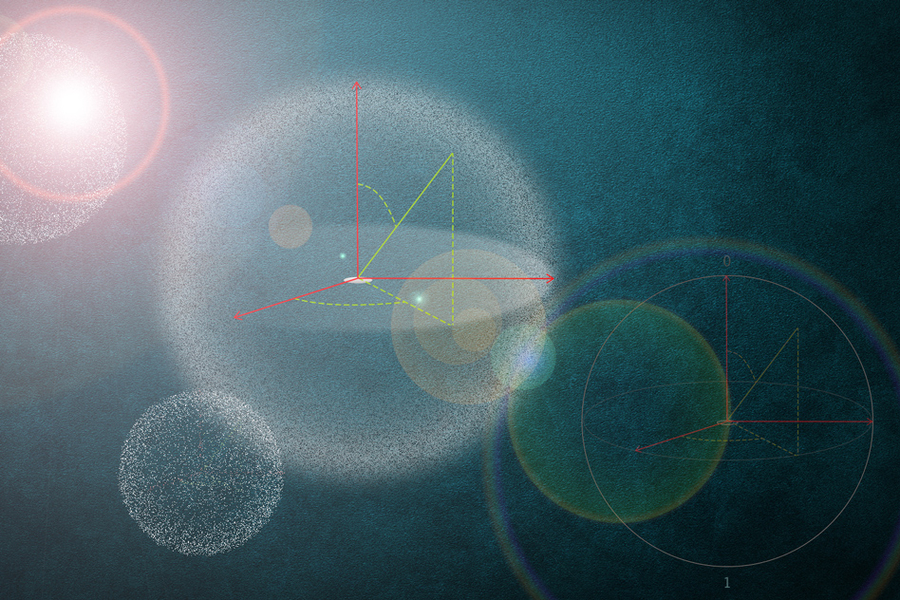
8/26/2020
Antti, Amir, and co-authors’ manuscript, “Impact of ionizing radiation on superconducting qubit coherence,” was published in Nature. The result was also featured in MIT News and on the MIT homepage. In collaboration with MIT Physics Professor Joe Formaggio, Pacific Northwest National Laboratory (PNNL), and MIT Lincoln Laboratory researchers, we characterized the impact of ionizing radiation – cosmic rays and environmental nuclear decay events – on superconducting qubit coherence. We then showed that lead shielding improves coherence times. And, our results are consistent with the levels of non-equilibrium quasiparticles seen ubiquitously in superconducting devices. Congratulations to Antti Vepsäläinen, Amir Karamlou, John Orrell (PNNL) and coauthors at the Massachusetts Institute of Technology EQuS, MIT Research Laboratory of Electronics and Joe Formaggio groups, Pacific Northwest National Laboratory – PNNL, and MIT Lincoln Laboratory! Image: Christine Daniloff, MIT.
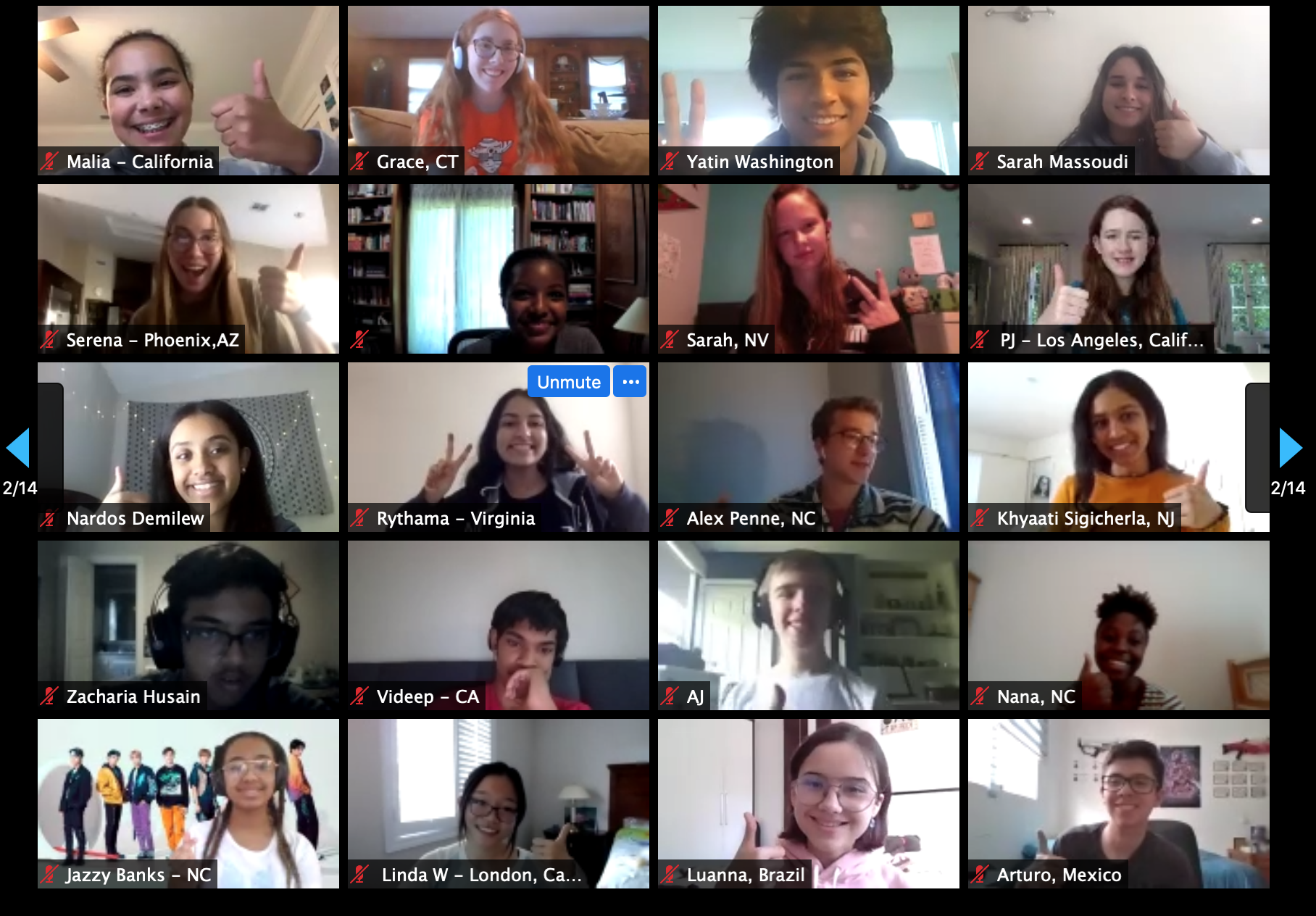
8/12/2020
EQuS group members organize and lead a week-long quantum summer camp for high-school students
EQuS group members Amir, Bharath, Grecia, Megan, Chris and Sarah helped organize and lead a quantum summer camp for high school students. This effort was in collaboration with the Coding School, a tech education nonprofit, and covered the fundamentals of quantum mechanics and quantum computing. The camp had approximately 300 participants from 18 countries and 30 states, 70 percent of whom are from underrepresented backgrounds. An overwhelming majority of the students indicated that attending this camp increased their interest in quantum computing, and that they want to learn more about quantum computing in the future.The quantum summer camp and the other educational outreach efforts by EQuS group members were recently featured in an MIT News article. Great job Amir, Bharath, Grecia, Megan, Chris and Sarah!
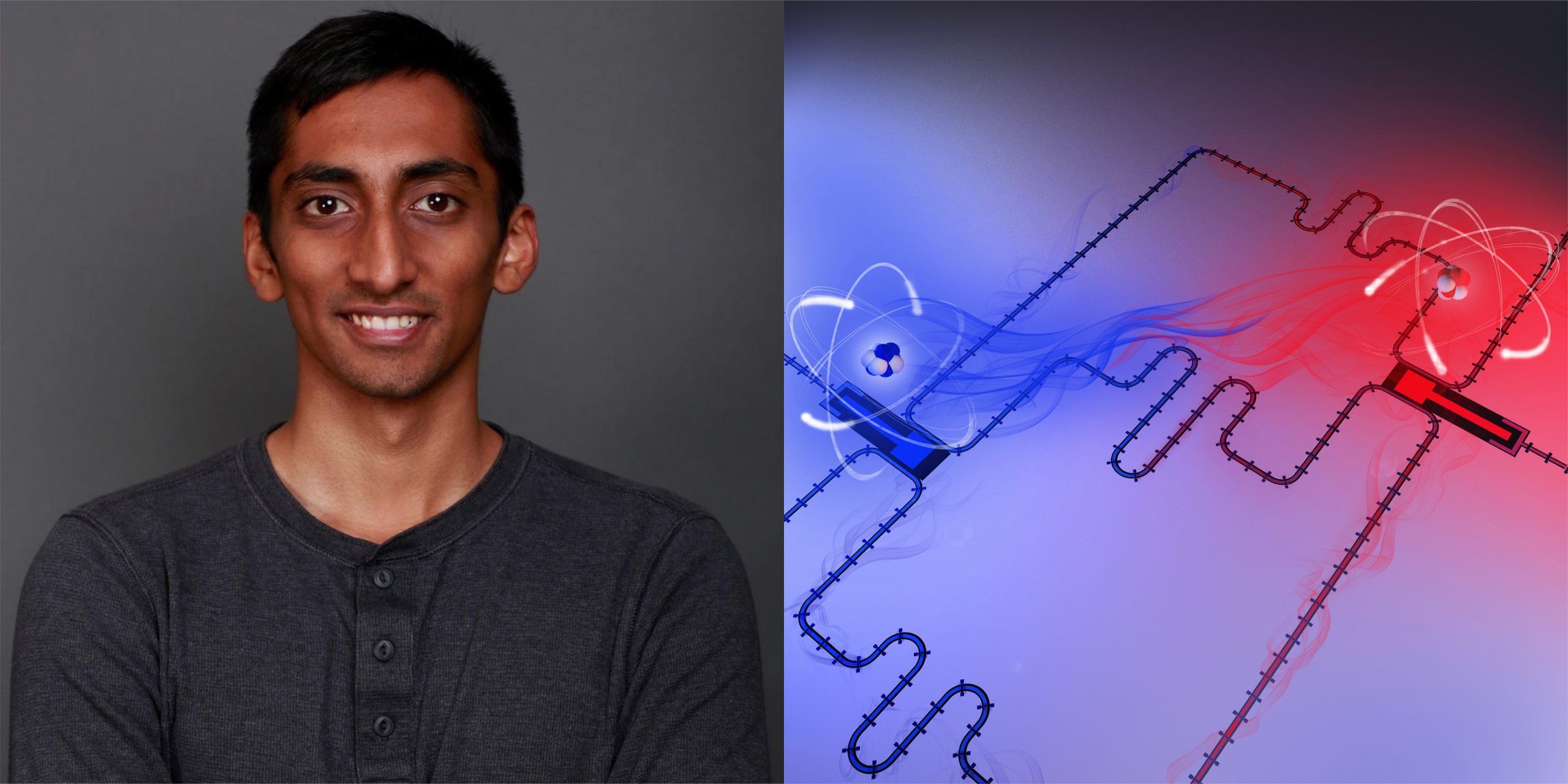
7/29/2020
Bharath and co-authors’ manuscript, “Waveguide quantum electrodynamics with superconducting artificial giant atoms,” was published in Nature. In this work, “giant atoms” are realized in a waveguide quantum electrodynamics architecture by coupling transmon qubits at multiple, well-separated locations along a waveguide. The resultant quantum interference is then used to demonstrate waveguide-mediated, decoherence-free interactions. Their publication was also featured in MIT News as a press release. Congratulations Bharath and co-authors at EQuS, Chalmers, RIKEN, and our Lincoln Laboratory team!
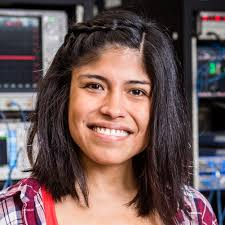
7/10/2020
Ana and co-authors’ manuscript, “Quantum emulation of coherent backscattering in a system of superconducting qubits,” was published in Physical Review Applied. In this work, conducted while Ana was a visiting research in EQuS, superconducting qubits were controlled to emulate weak localization and universal conductance fluctuation phenomena by repeatedly “scattering” the qubit state at a level avoided crossing. Congratulations Ana and co-authors at Centro Atomico Barliloche and Instituto Balsero, Instituto de Nanociencia y Nanotecnologia (INN), Lincoln Laboratory, and the EQuS group!
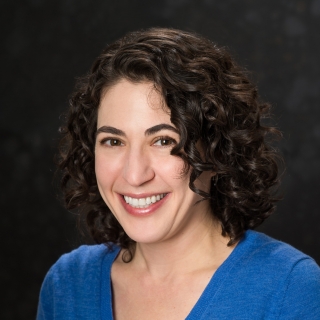
7/10/2020
Danna and co-authors’ review paper on 3D integration and packaging for cryogenic, solid-state qubits was published in IEEE Microwave Magazine, one of five articles featured led by guest editor Joe Bardin on the topic “Quantum Computing for Microwave Engineers.” This review addresses the current status and challenges related to microwave packaging, interconnects, and 3D integration in a cryogenic environment. Congratulations Danna and coauthors with the Lincoln Laboratory side of our team!
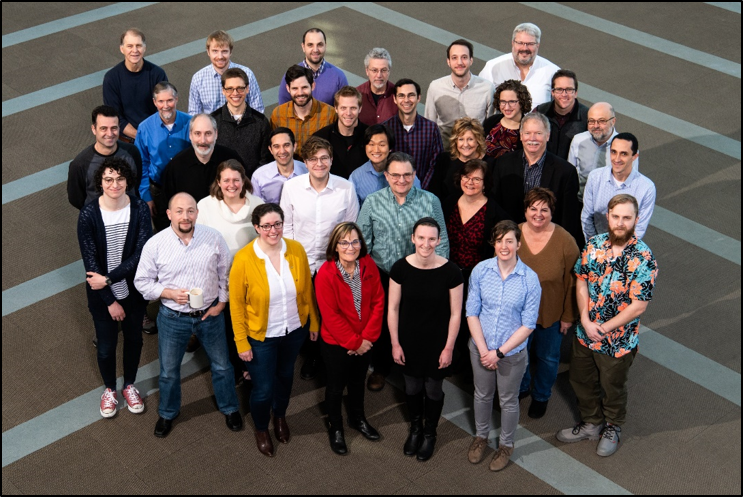
7/3/2020
Donna Yost, Mollie Schwartz, Justin Mallek, and the Lincoln Lab team’s manuscript, “Solid-state qubits integrated with superconducting through-silicon vias” published in npj Quantum Information
Donna, Mollie, Justin, and co-authors demonstrated high-aspect-ratio (20:1) and small form factor (10-20 um diameter) superconducting through-silicon vias (TSVs). The TSVs were further demonstrated in a flip-chip geometry with high-coherence superconducting qubits and represent a critical element of 3D integrated quantum circuits. Congratulations Donna, Mollie, Justin, and co-authors with the Lincoln Laboratory side of our team!
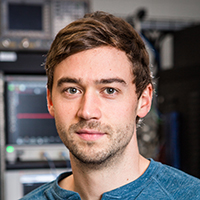
6/26/2020
In collaboration with Yariv Yanay and Charlie Tahan at LPS, Jochen defines a roadmap for using current experimental capabilities to simulate an interacting many-body system of bosons and measure its properties. This work will guide our experimental activities over the coming years. Congratulations Jochen, Yariv, and co-authors with the EQuS Group at MIT campus and at the Laboratory for Physical Sciences!
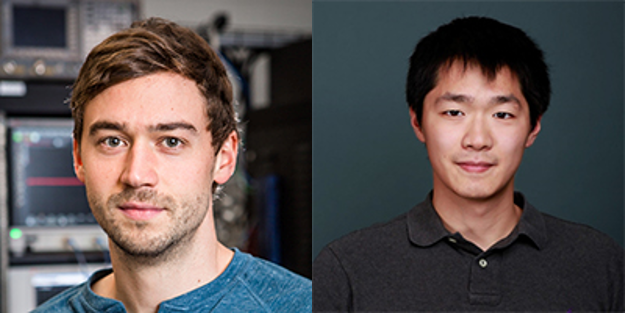
5/30/2020
In their paper, Jochen and Leon investigate the noise properties of more than 50 flux qubits with varying designs of their SQUID loops and observe quantitative agreement of their data with a microscopic model for magnetic flux noise. These results provide a guide for minimizing flux noise in future quantum circuits. Congratulations Jochen, Leon, and co-authors at MIT campus and Lincoln Laboratory!
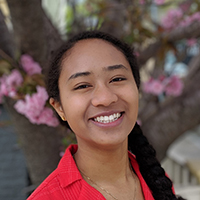
5/29/2020
Megan Yamoah presented with Orloff Award for Research and Service
The Joel Matthew Orloff Awards were established by Dr. and Mrs. Daniel Orloff in memory of their son Joel, a physics major, who passed shortly after graduation 1978. It is awarded yearly to select physics majors in three categories: Research, Scholarship, and Service. Megan was recognized for her research work with EQuS, where she works on the intersection of novel two-dimensional materials with microwave devices, and for her leadership in Physics Department student organizations and community development efforts. Congratulations, Megan!
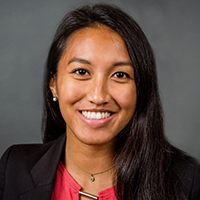
5/29/2020
Mirabella Pulido presented with MIT James N. Murphy Award
The James N. Murphy Award is an MIT Institute Award established in 1967 in memory of James N. Murphy for his immeasurable contribution to community life at the Institute. It is offered every year to a non-faculty Institute employee. Mirabella was recognized for her continued dedication, above and beyond her job responsibilities, to building a more inclusive, collaborative, and safe environment for group members. Congratulations, Mirabella!
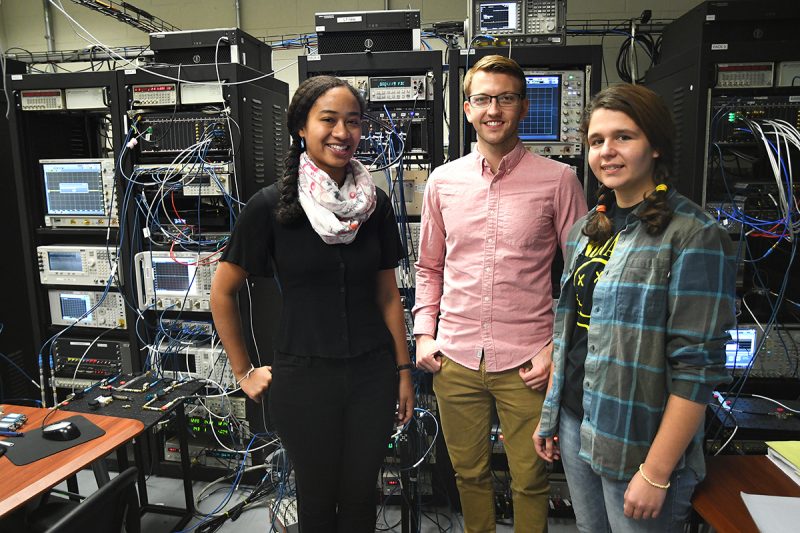
5/26/2020
UROPs Fran, Billy, and Megan inducted into the Xi Chapter of Phi Beta Kappa
EQuS is pleased to announce that three senior UROPs – Francisca Vasconcelos, Vilhelm (Billy) Woltz, and Megan Yamoah – were inducted to Phi Beta Kappa (PBK). Founded in 1776, PBK is the oldest honorary society in the United States, celebrating the nation’s most outstanding undergraduate students for excellence in the liberal arts and sciences. Fran, Billy, and Megan were among the 116 MIT students inducted to the Xi Chapter this year. Congratulations on this recognition!
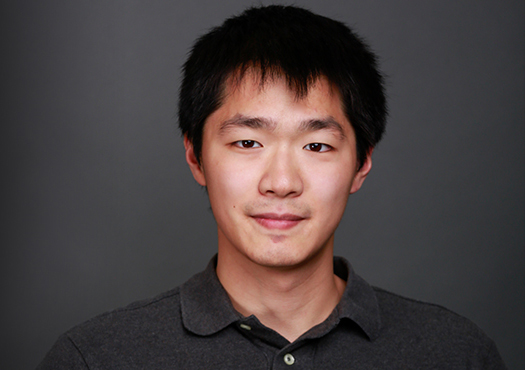
4/8/2020
Leon Ding awarded 2020 IBM PhD Fellowship
The 2020 IBM PhD Fellowship Award Program received hundreds of applications from 140 universities in 31 countries. Applications were reviewed by eminent technologists from across IBM. The award recipients demonstrated academic excellence as well as provided innovative, exceptional research proposals.
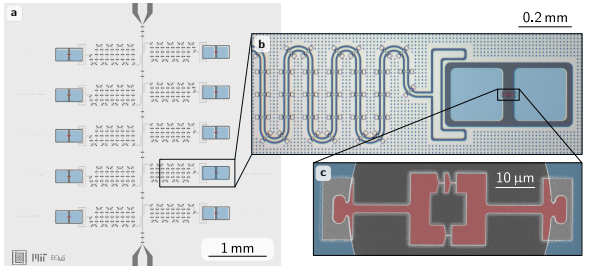
2/25/2020
In their paper, Jochen and Leon investigate the noise properties of more than 50 flux qubits with varying designs of their SQUID loops and observe quantitative agreement of their data with a microscopic model for magnetic flux noise. These results provide a guide for minimizing flux noise in future quantum circuits.
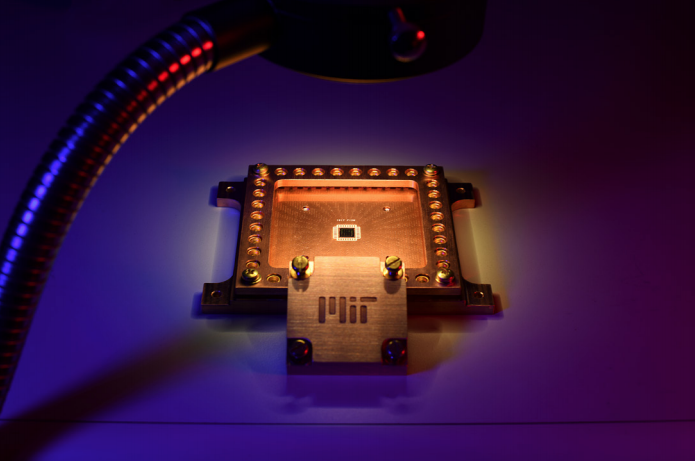
2/14/2020
UROP, Francisca Vasconcelos, interviewed four MIT quantum computing and information faculty – William Oliver, Dirk Englund, Isaac Chuang, and Aram Harrow – for the MIT Undergraduate Research Journal (MURJ). The article, “Quantum Computing @ MIT: The Past, Present, and Future of the Second Revolution in Computing,” provides a high-level overview of the history of the field, current research challenges, and future prospects of the technology.
2/3/2020
EQuS submits six papers to arXiv
Congratulations to the lead authors and co-authors from EQuS who recently submitted papers to the arXiv during December and January!
Uwe von Luepke’s paper, “Two-qubit spectroscopy of spatiotemporally correlated quantum noise in superconducting qubits,” discusses noise spectroscopy of spatiotemporally correlated noise in two qubits. While error detection and correction protocols exist, most rely on an uncorrelated noise assumption. To understand and address correlated noise, one first must characterize it. In this work, Uwe and co-authors experimentally validate a protocol for achieving two-qubit quantum noise spectroscopy. Uwe was a visiting student in EQuS from 2017-2018.
Graduate student, Bharath Kannan’s work, “Waveguide quantum electrodynamics with giant superconducting artificial atoms,” realizes “giant atoms” by coupling transmon qubits to multiple, well-separated locations along a waveguide. When modeling light-matter interactions, atoms are typically treated as small point-like objects. The paper probes the physics of the giant-atom regime of waveguide quantum electrodynamics (wQED) and shows that this architecture can be applied for quantum simulations and non-classical photon generation for quantum communication protocols.
Ana Laura Gramajo’s paper, “Quantum simulation of coherent backscattering in a system of superconducting qubits,” discusses the implementation of a quantum emulator of weak localization (WL) and universal conductance fluctuations (UCF) using coherent scattering at an avoided crossing in a system of two coupled superconducting qubits. The scattering events are controllably implemented as coherent Landau-Zener transitions by driving the two-qubit system multiple times through an avoided crossing. While a priori there is not a direct connection between driven superconducting qubits and mesoscopic disordered electronic systems, the results demonstrate how a well-controlled driven qubit system can be used to study complex effects in mesoscopic physics. Ana was a visiting student in EQuS during 2018.
Postdoctoral Associate Morten Kjaergaard and Lincoln Laboratory Research Scientist Mollie Kimchi-Schwartz submitted their demonstration of a quantum algorithm, entitled “A quantum instruction set implemented on a superconducting quantum processor.” In their paper, they use two superconducting qubits to make the first experimental demonstration of the Density Matrix Exponentiation algorithm. Their experiment shows for the first time how quantum states can act as a quantum instruction set to program a quantum computer.
Postdoctoral Associate Antti Vepsäläinen and graduate student Amir Karamlou submitted their work, entitled “Impact of ionizing radiation on superconducting qubit coherence.” In collaboration with the group of MIT Physics Professor Joe Formaggio, researchers at Pacific Northwest National Laboratory (PNNL), and MIT Lincoln Laboratory researchers, Antti and Amir characterized the impact of ionizing radiation from the cosmic rays and environmental nuclear decay on superconducting qubit coherence. They also showed that using a lead shield can improve coherence times by reducing the flux of radiation. In order to beat down the noise, EQuS researchers performed a Dicke radiometry “lock-in” experiment, raising and lower a two-ton lead shield on a 10-minute period for 4 days(!)
Graduate student Tim Menke, who holds a joint appointment at MIT and Harvard, also submitted his paper entitled “Automated discovery of superconducting circuits and its application to 4-local coupler design.” In this work, Tim used an optimization algorithm to design a superconducting qubit circuit based on a generalized network of circuit elements and a predefined cost function.
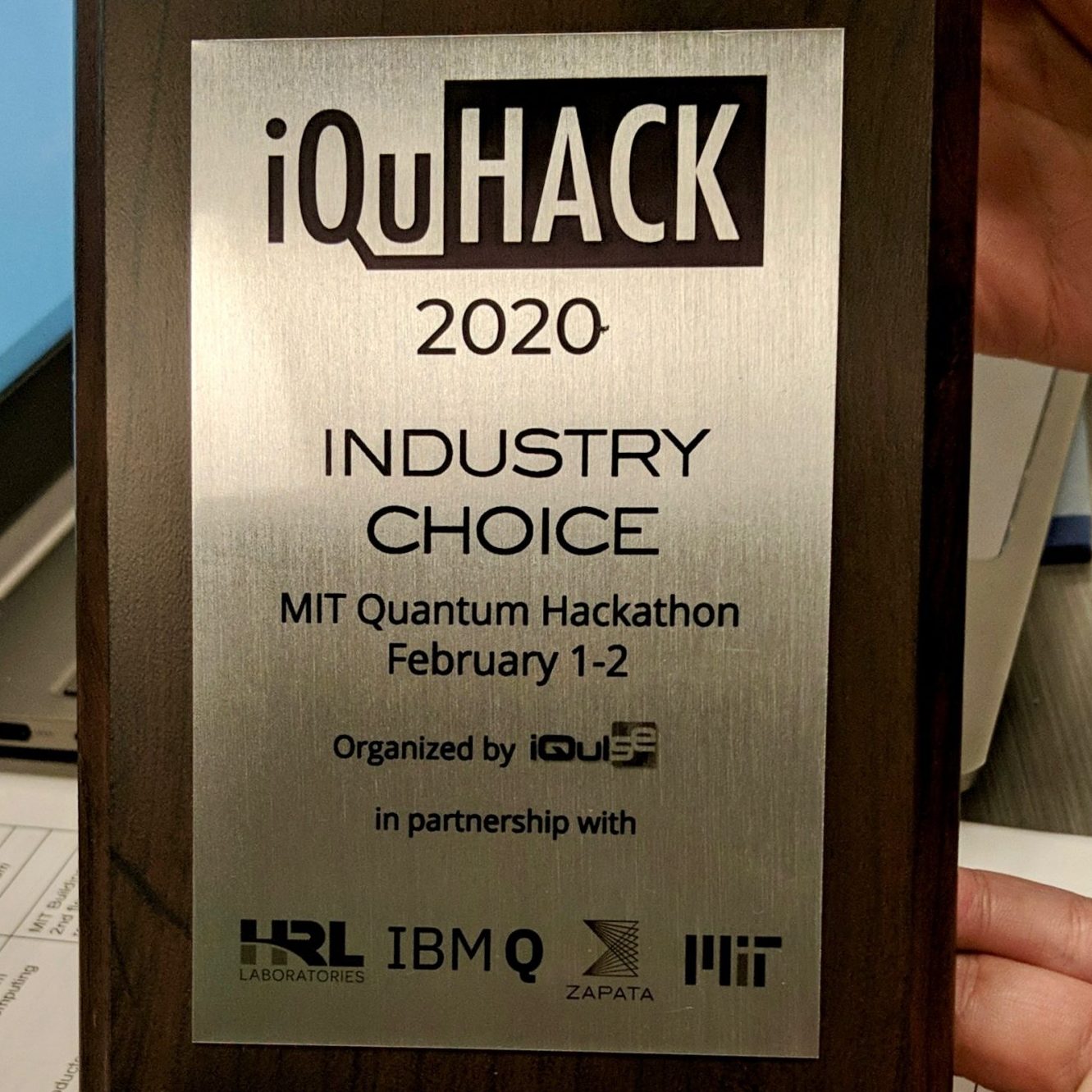
2/2/2020
Ziqiao and Grecia win award at iQuHACK
Members of the EQuS group won the Industry Choice award for their project,”VQE for the Schwinger Model with Applications to Classical Simulations.” The event’s sponsors gave the award at the first Interdisciplinary Quantum HACKathon (iQuHACK).
EQuS members, Ziqiao Ao and Grecia Castelazo, joined Artur Avkhadiev and Denis Boyda of the Center for Theoretical Physics to simulate 1 + 1D quantum electrodynamics on a superconducting quantum processor provided by IBM. Their project performed VQE on a massive Schwinger model Hamiltonian, a (1+1)D theory of quantum electrodynamics, and explored its applications to Monte Carlo simulations.
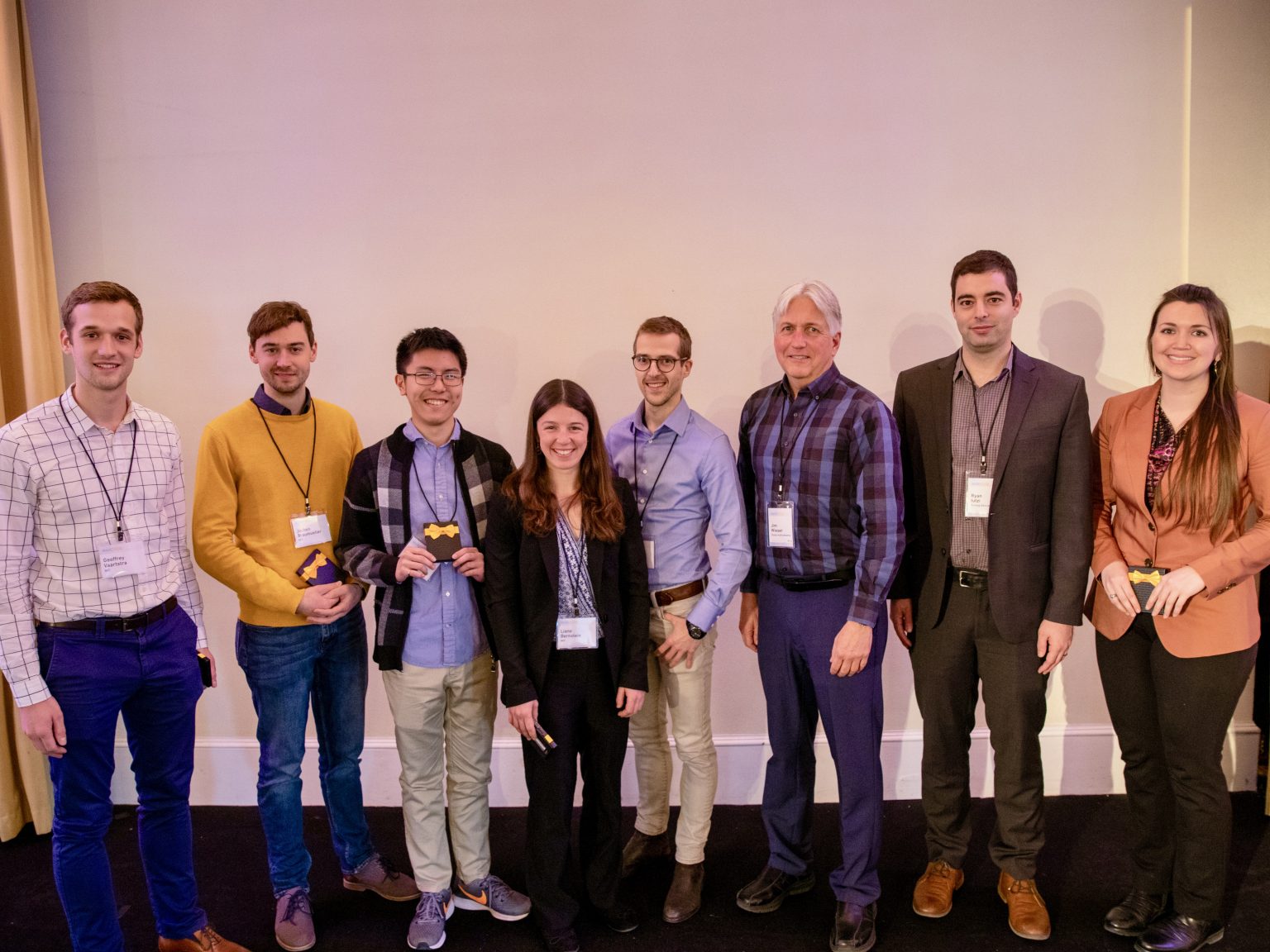
1/29/2020
Jochen wins best poster award at MARC 2020 | Bretton Woods, NH
Postdoc Jochen Braumüller won the best poster award for his presentation titled, “Characterizing and optimizing qubit coherence based on SQUID geometry,” at Microsystems Annual Research Conference (MARC) 2020.
MARC showcases the latest accomplishments of MTL/MIT.Nano researchers, celebrating the scientific achievements of students and staff pursuing research at the frontiers of micro/nanotechnology at MIT. For the first time, the student-run conference was co-hosted by MIT.nano and Microsystems Technology Laboratories (MTL). It hosts over 200 attendees, bringing together students, postdocs, faculty, and industrial partners.
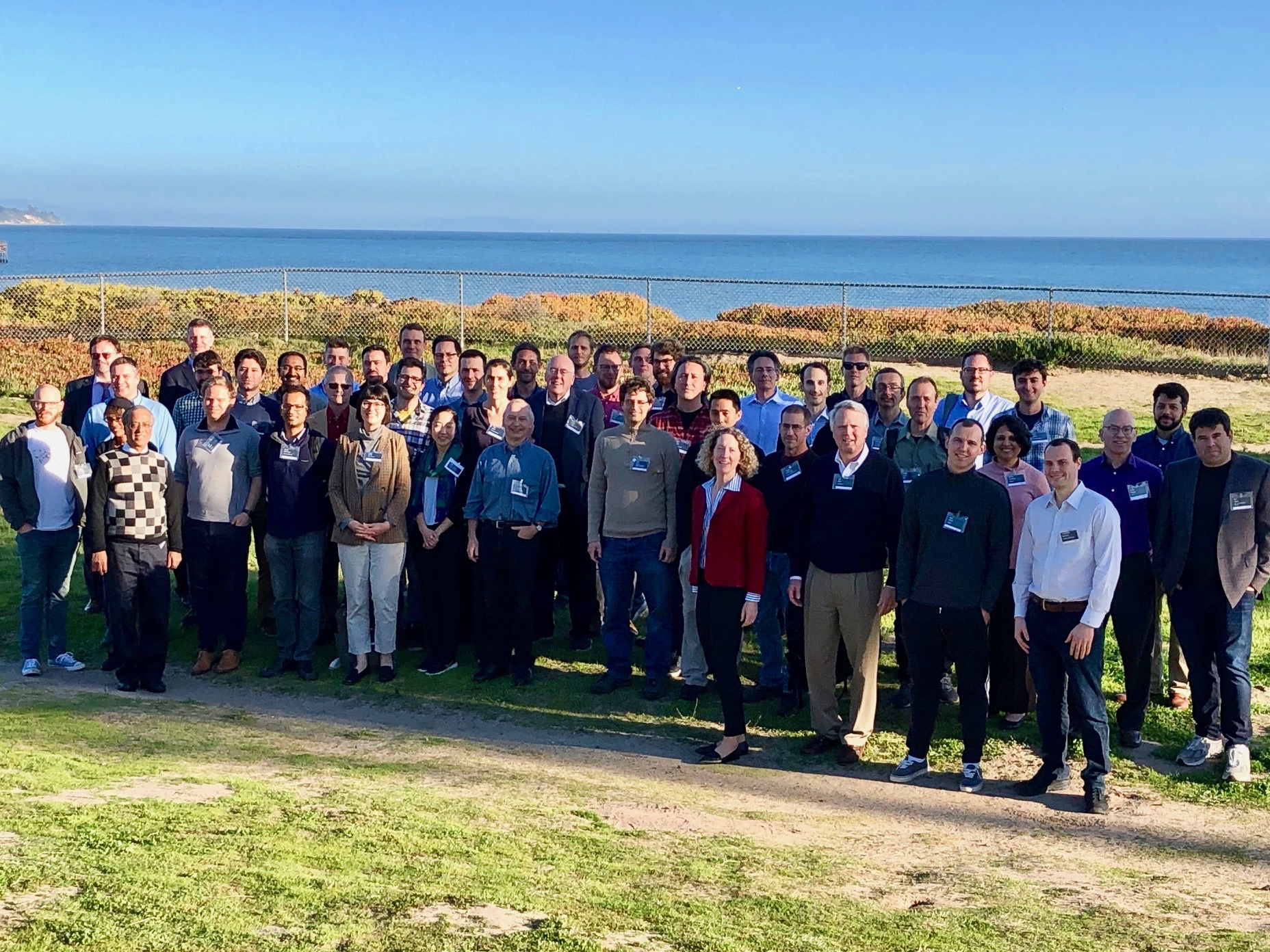
1/23/2020
Will speaks at QED-C workshop | Santa Barbara, CA
The Quantum Economic Development Consortium (QED-C) hosted a two-day workshop, the QED-C Workshop on Materials for Superconducting Qubits.
Will kicked off the workshop with a talk titled “Introduction to Superconducting Qubits.”
The workshop’s goal is to create connections between the material science and the superconducting qubit communities in order to better understand defects, facilitate the discovery of new materials, and design and fabricate more controllable quantum systems.
The QED-C was developed under the National Quantum Initiative. Its purpose is three-fold:
- To support enabling technology R&D: e.g. quantum device components, instrumentation, and performance standards
- To facilitate industry coordination and interaction with government agencies
- To provide the government with a collective industry voice in guiding R&D investment priorities and quantum workforce issues
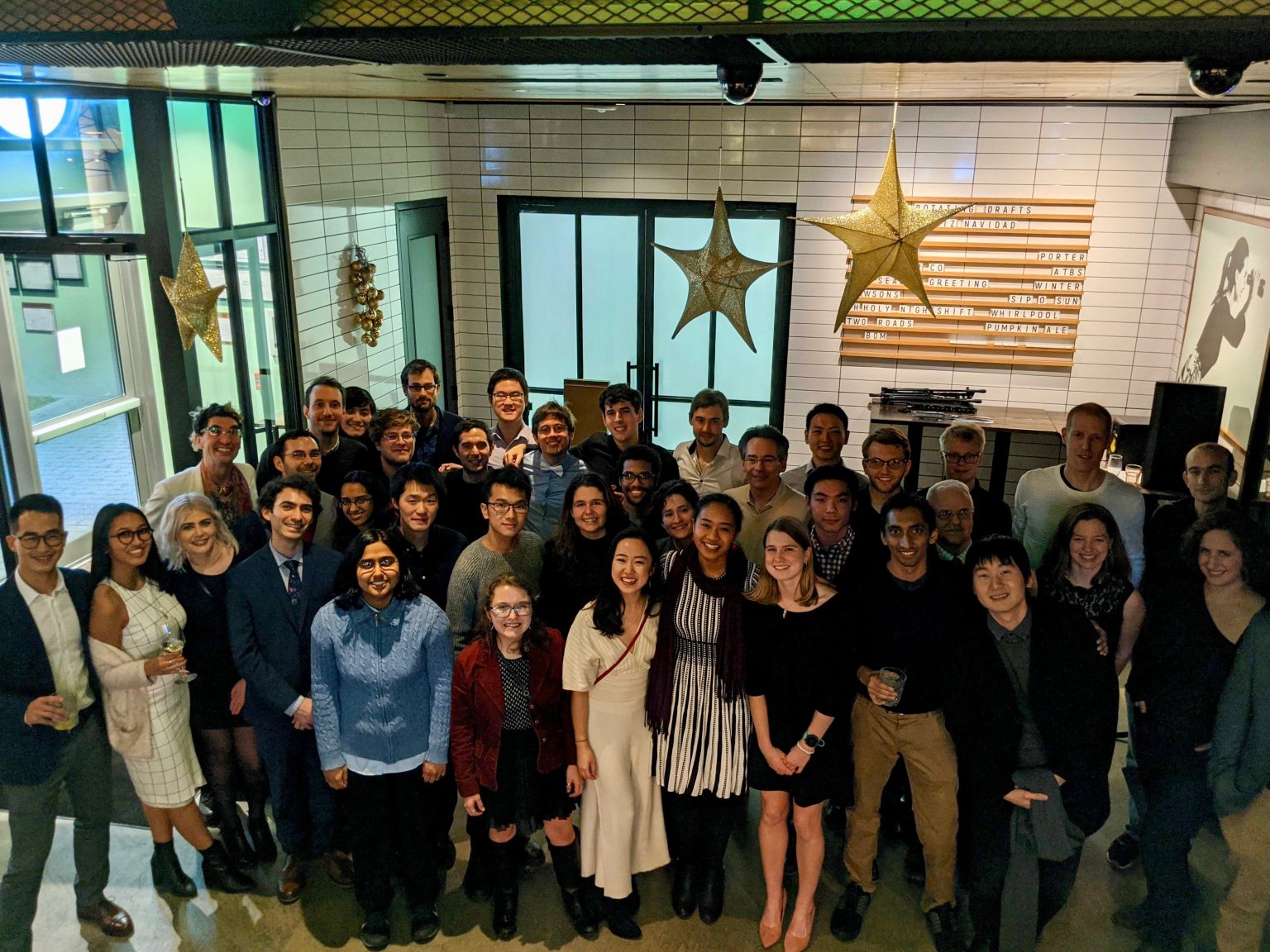
Part of the EQuS group, alongside family, friends, and other colleagues.
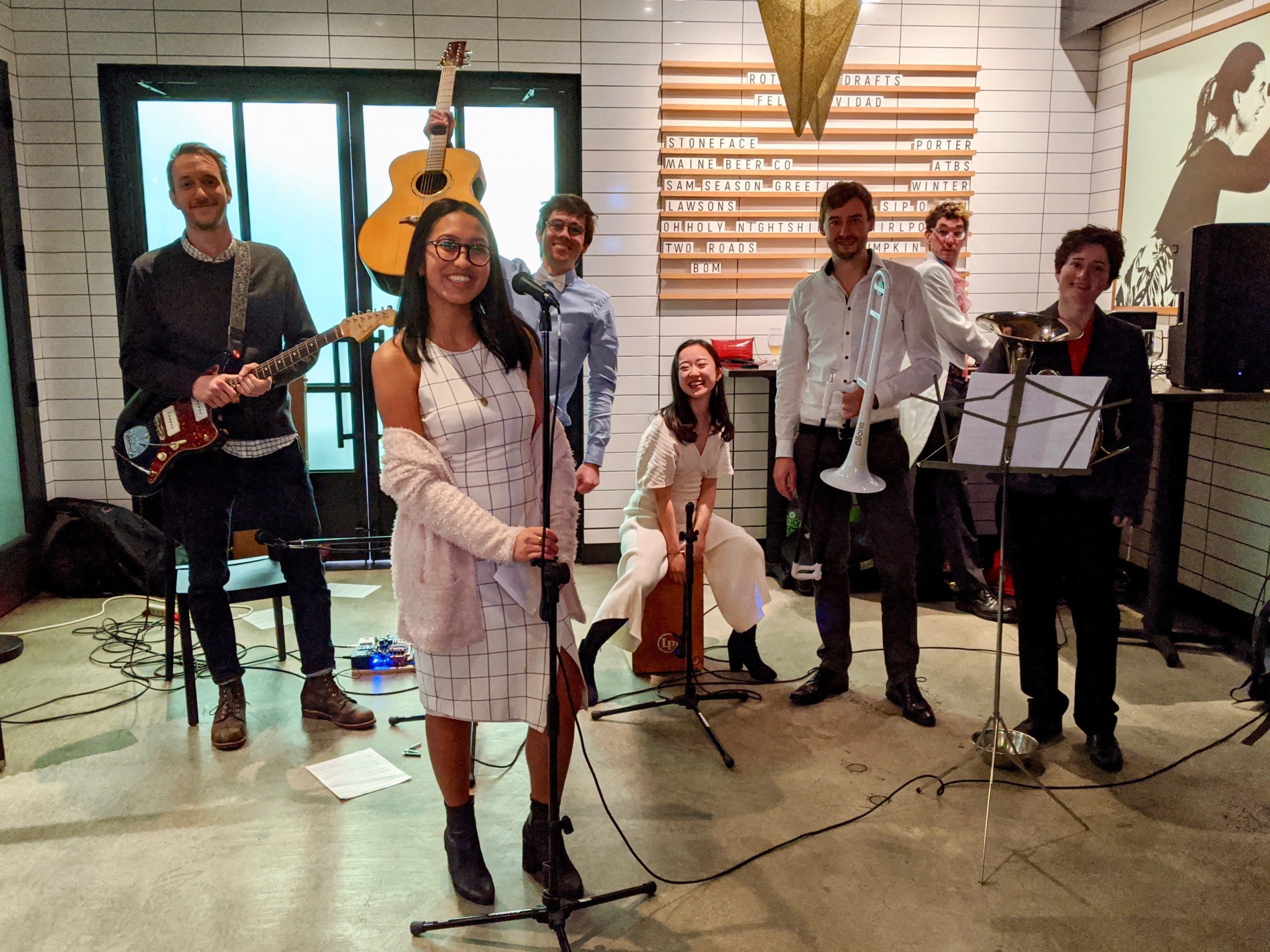
The Harmonic Modes! From left to right: Kyle Serniak (collaborator from MIT Lincoln Lab) on electric guitar, Mirabella Pulido on vocals, Tim Menke on acoustic guitar, Rebecca Li on drums, Jochen Braumüller on trombone, and Ami Greene on French horn.
12/15/2019
EQuS celebrates at third annual holiday party
As another year of research comes to a close, EQuS took the opportunity to celebrate its hard work, challenges, and successes at the annual holiday party. Friends and family members joined the group over dinner, dessert, and drinks at Glass House.
The Harmonic Modes, EQuS’ lab band, made its debut performance toward the end of the night as well, premiering two songs partially written and arranged by postdoc, Jochen Braumüller, and admin, Mirabella Pulido. Most notably, “Rockin’ Around the Cryostat,” a parody on “Rockin’ Around the Christmas Tree,” was a comedic summary of the group’s work over the past few years.
Happy holidays to all. We’re looking forward to another year of learning, progress, and growing in EQuS!
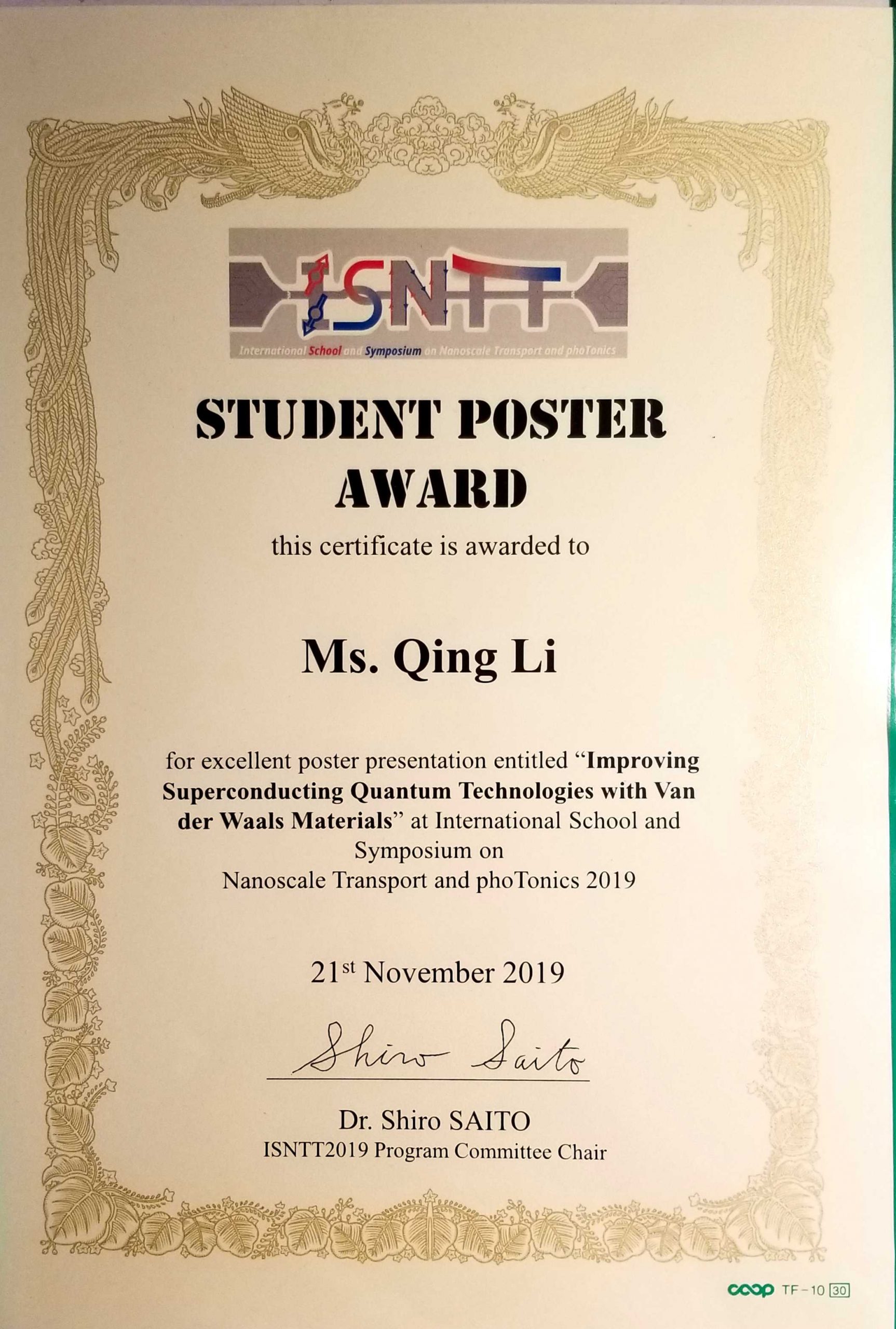
11/26/2019
Rebecca wins student poster award at 2019 ISNTT | Atsugi-city, Japan
Graduate student, Qing (Rebecca) Li, won the student poster award for her presentation titled “Improving Superconducting Quantum Technologies with Van der Waals Materials” at the 2019 International School and Symposium on Nanoscale Transport and phoTonics. Congratulations, Rebecca!
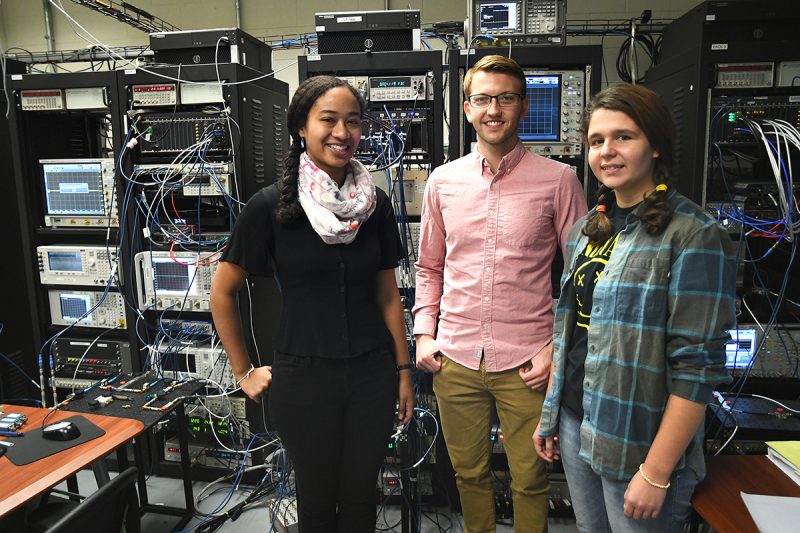
From the left: Megan Yamoah, Billy Woltz, and Fran Vasconcelos
11/24/2019
Three EQuS members awarded Rhodes Scholarships
Congratulations to Francisca (Fran) Vasconcelos, Vilhelm (Billy) Andersen Woltz, and Megan Yamoah, who have been selected as 2020 Rhodes Scholars. Currently, the three hold UROPs in EQuS. They will begin their postgraduate studies at the University of Oxford next fall.
Fran, Billy, and Megan represent three out of the five MIT recipients, as well as almost 10% of the 32 Rhodes Scholarships awarded to American applicants nationwide this year.
Fran has worked with EQuS since her sophomore year. Her current research focuses on extending quantum state tomography for superconducting quantum processors. At Oxford, she will pursue a MSc in mathematics and foundations of computer science, as well as a MSc in statistical science.
Billy has worked with EQus since summer 2019, and he is working on a superconducting qubit platform for quantum information processing. At Oxford, he will pursue a second undergraduate degree in philosophy, politics, and economics with the goal of addressing both the technical and policy aspects of quantum computing.
Megan has worked with EQuS since her freshman year and has focused on several projects at the forefront of quantum computing research. At Oxford, she will pursue a MPhil in economics, focusing on development economics and the potential for innovation to positively impact emerging economies.
This recognition is a testament to their hard work, perseverance, and raw talent. We at EQuS and the RLE are highly fortunate to count them amongst our EQuS-LL team, colleagues, and friends!
11/22/2019
Postdoctoral Associate Joel Wang gave a talk at MIT’s Interdisciplinary Quantum Information Science and Engineering (iQuISE) program about “Hybrid superconducting circuit made with van der Waals heterostructures.” In this talk, Joel explained how introducing a new material system called “van der Waals heterostructures” may help to advance superconducting quantum technology.
11/15/2019
Will featured in MIT xPRO blog post
Will explained the origins and effects of the term “quantum supremacy” in MIT xPRO’s professional blog, The Curve. The post is entitled, “Getting Beyond the Hype of the Google-IBM Quantum Supremacy debate,” and it discusses the Google demonstration and what it represents for quantum computing.
11/13/2019
Will speaks at MTQS | Princeton, NJ
Will gave an invited talk at Marching Towards Quantum Supremacy, a conference held at the Princeton Center for Theoretical Science. The conference provided a status update on the leading quantum technologies and cover emerging platforms that may be more resilient to errors.
11/1/2019
MIT News profiled SuperUROP Billy Woltz in a student spotlight piece titled, “Drawn to open-ended problems.”
In the feature, Billy shares his experiences growing up in a rural town and running cross country, and how his analytical approach to life impacts his research and career.
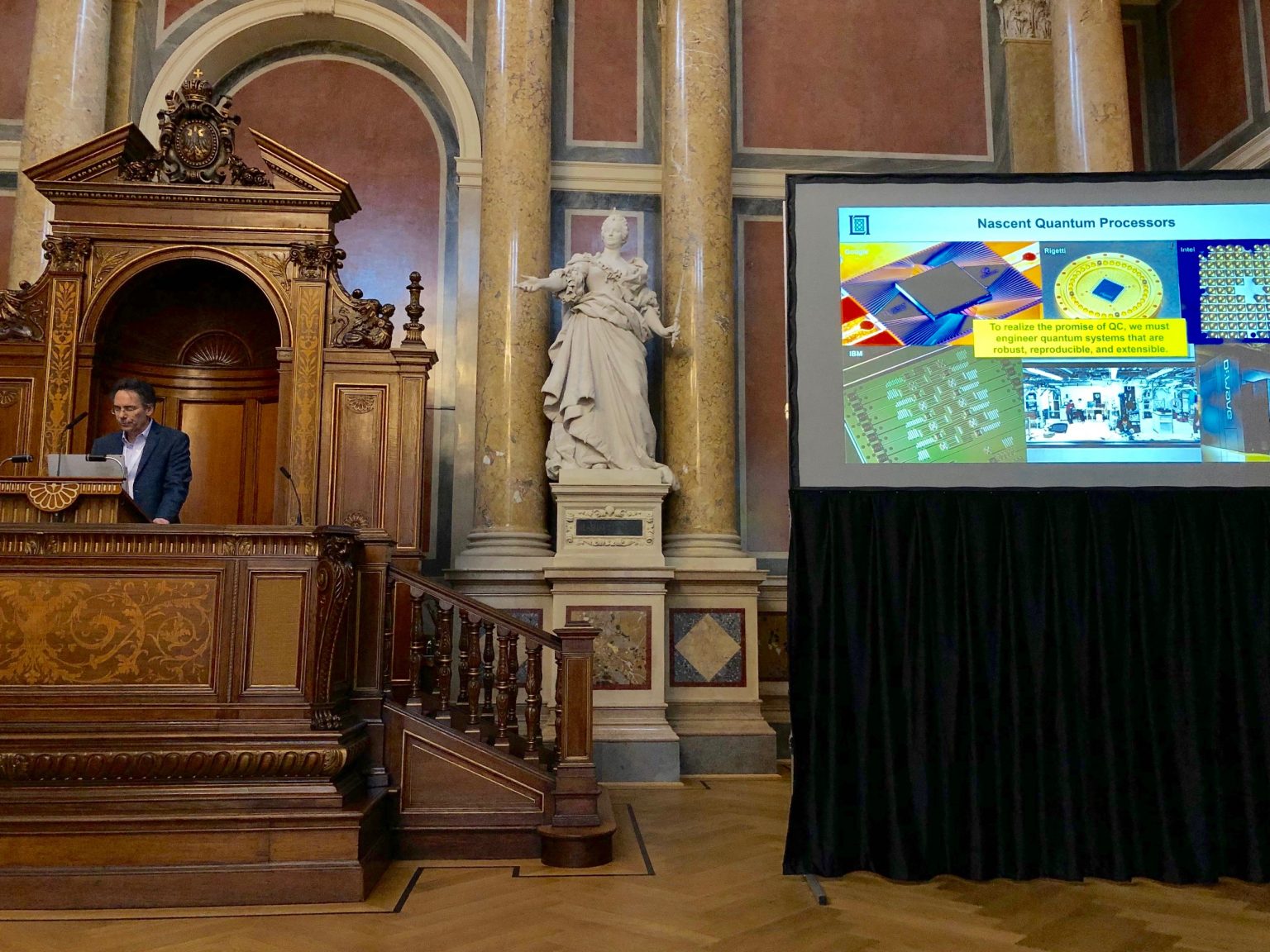
10/31/2019
Will speaks at BeyondC | Vienna, Austria
Will was invited to speak at the Austrian Quantum Information Conference 2019 organized by the SFB BeyondC.
The program, “Quantum Information Systems Beyond Classical Capabilities (BeyondC),” unites researchers from several Austrian universities and institutes, as well as collaborators from the Max Planck Institute for Quantum Optics. Focusing on photons, ions in ion traps, superconducting circuits, and theory, the conference highlighted present achievements and future perspectives for building future quantum information systems.
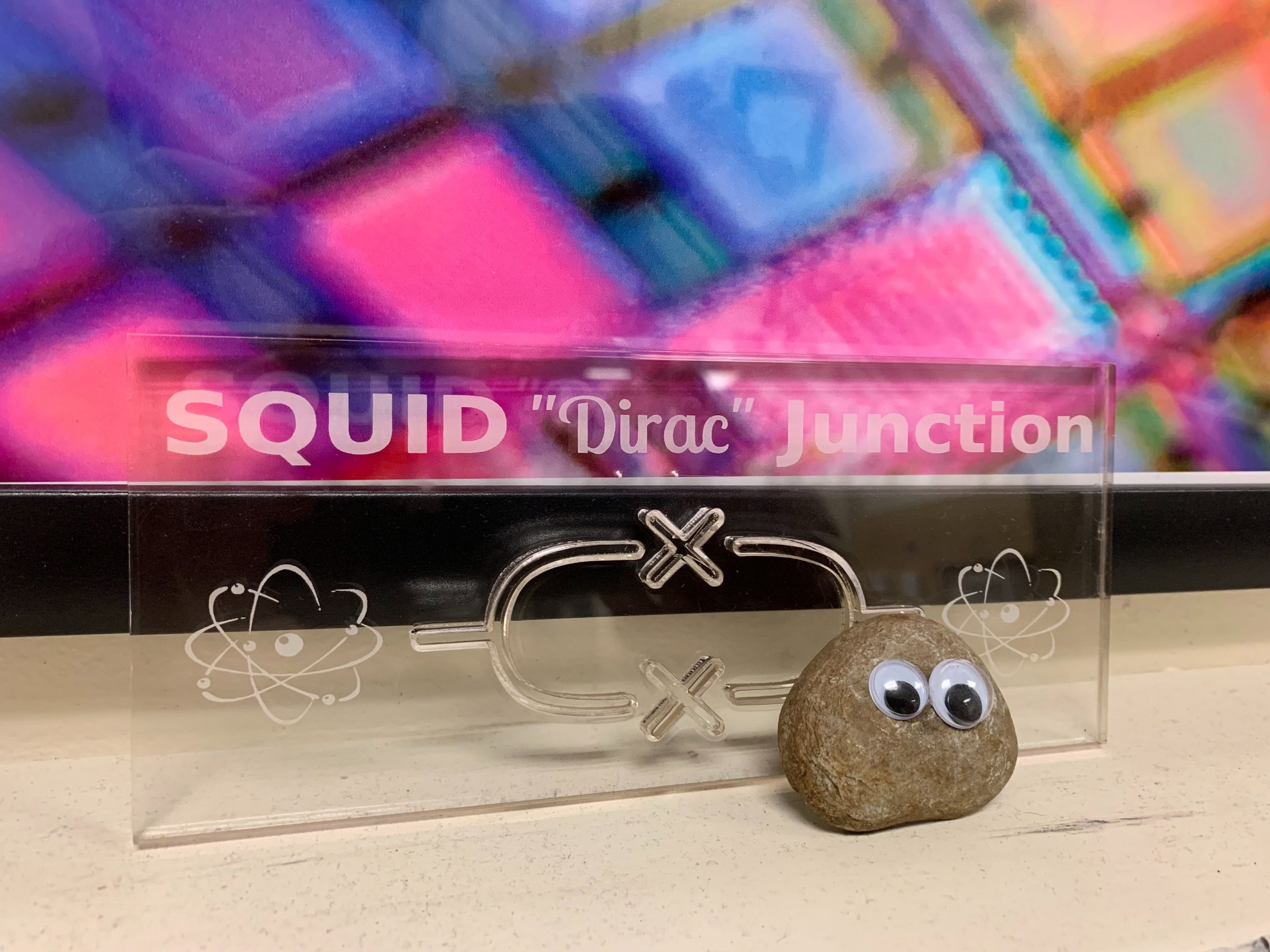
9/22/2019
EQuS welcomes group mascot
The EQuS group welcomed its newest member, a pet rock named SQUID “Dirac” Junction. With a new name plate for his desk, he’s hard to miss in the staging room!
9/16/2019
Youngkyu’s paper published in Nature Communications
Congratulations to grad student Youngkyu Sung and his contributing authors on the publication of their paper, “Non-Gaussian noise spectroscopy with a superconducting qubit sensor” in Nature Communications.
In this work, a collaboration between MIT EQuS, MIT Lincoln Laboratory, and the Viola group at Dartmouth, the team performed the first demonstration of non-Gaussian noise spectroscopy using a superconducting qubit. The work extends noise spectroscopy to the regime of high-order polyspectra, enabling a new tool for characterizing noise in the qubit environment.
9/6/2019
Manning, Billy, and Erik awarded SuperUROPs
Congratulations to undergraduate students, Manning Chuor, Vilhelm (Billy) Woltz, and Erik Porter, who were awarded SuperUROPs from EECS for the 2019-2020 academic year.
Manning is working on analytically evaluating optimal parameters for improving qubit readout.
Billy’s project involves minimizing induced noise as a by-product of processing quantum information by improving the design of his quantum processors.
Erik’s research aims to characterize chips to see how coherence times and other parameters are affected by the switch to a 3D structure. This will involve modifying current chip designs to explore different methods of 3D integration by breaking out of the 2D plane so lattices can have more complex designs with less restrictive control line layout.
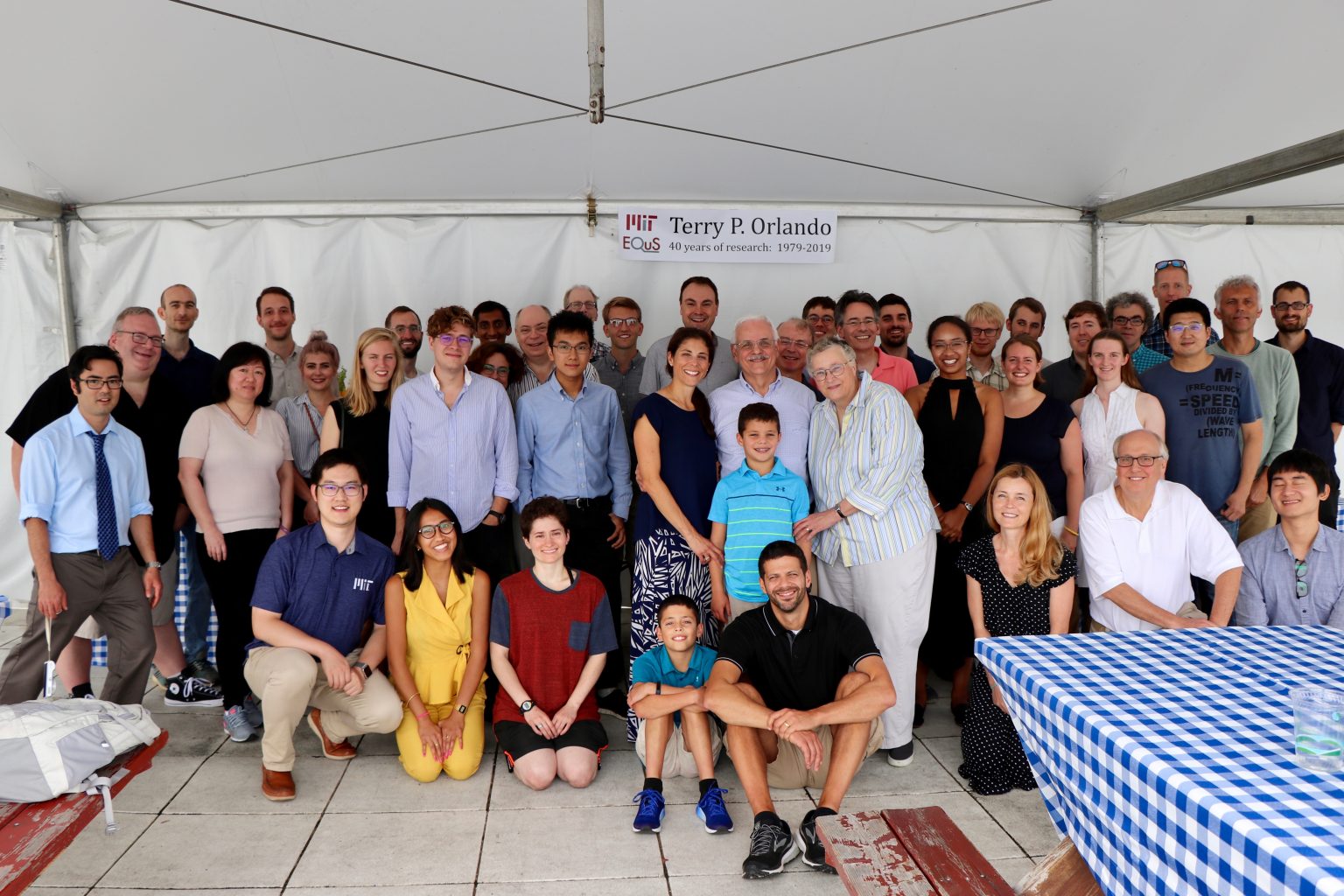
Part of the EQuS group, alongside alumni, friends, and other colleagues.
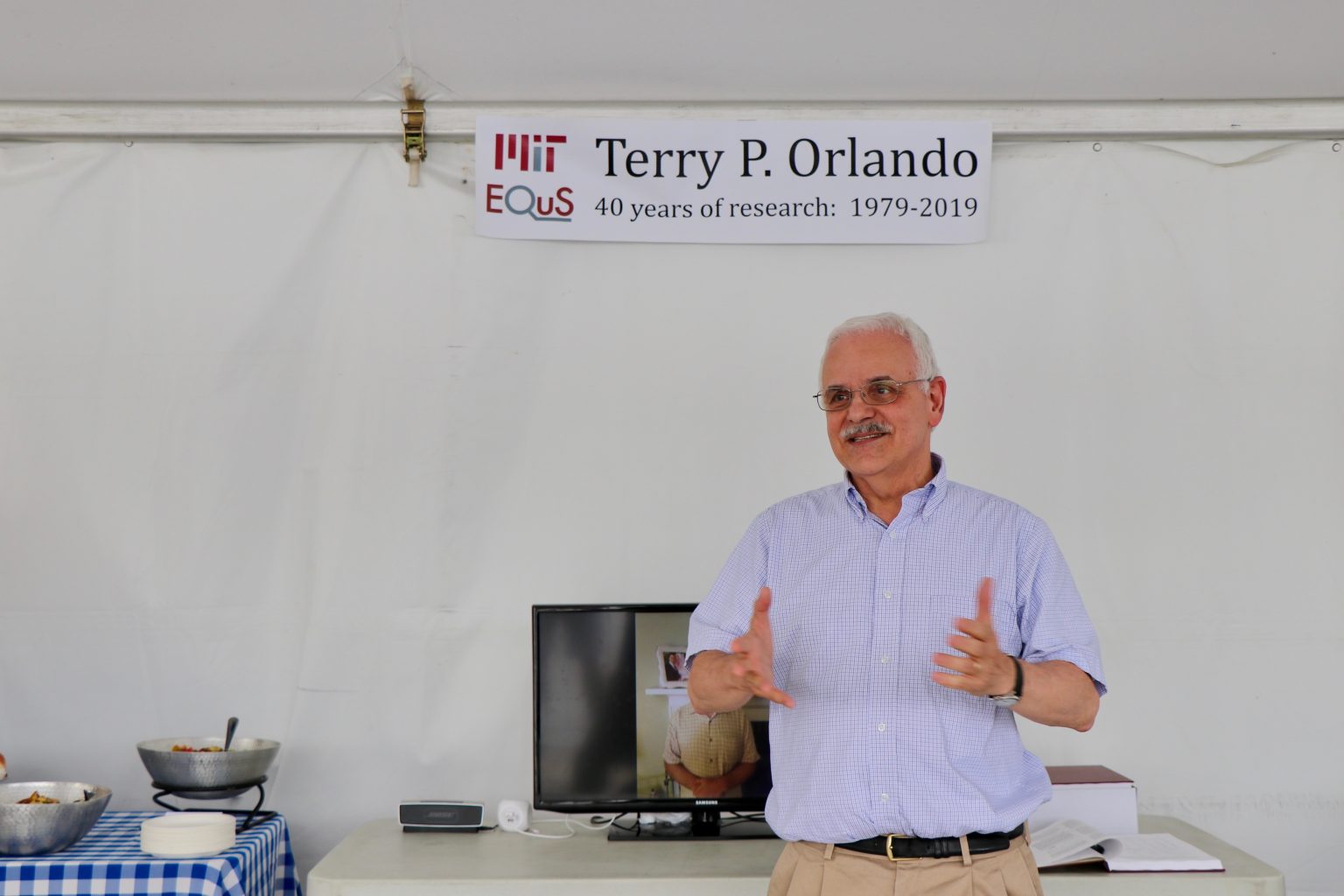
Terry thanking guests and reminiscing on his research career.
8/17/2019
EQuS and friends celebrate Terry Orlando and his 40 years of research
In honor of the 20th anniversary of the proposal of the superconducting persistent-current flux qubit, friends, family, and colleagues of Terry Orlando gathered in Cambridge to celebrate his long-standing research career.
Current and former collaborators spanning his 40-year research career — from the US and abroad — gathered for a surprise picnic at the MIT Sailing Pavilion. Several people who were unable to attend submitted video greetings from afar.
At the culmination of the event, Terry was presented with a bound, hardcover copy of his 40 most impactful publications during his 40-year research career.
On behalf of all of Terry’s former research collaborators, the EQuS group would like to thank Terry for all that he has done for his students, friends, and the Institute. His numerous, impactful contributions to the field have been invaluable in progressing the fields of high-Tc superconductivity, non-linear dynamics, and superconducting quantum computing.
Thank you, Terry, and we look forward to working with you for years to come!
7/9/2019
Wayne, Greg, and Alex’s paper published in Physical Review Applied
Wayne Woods, Greg Calusine, and Alexander Melvilles’s paper, “Determining interface dielectric losses in superconducting coplanar-waveguide resonators,” was published in Physical Review Applied. Congratulations to them and their co-authors!
6/25/2019
Ben’s paper published in IEEE IMS Proceedings
Ben Lienhard’s paper, “Microwave Packaging for Superconducting Qubits,” was published in the IEEE IMS Proceedings. Congratulations to Ben and his co-authors!
6/19/2019
Philip’s review paper published in Applied Physics Reviews
The review paper, “A quantum engineer’s guide to superconducting qubits,” was published this week as a Featured Article in Applied Physics Reviews as part of a special topic on quantum computing. It covers many fundamentals of design, control, and readout of superconducting qubits.
This review is a contemporary resource with an engineering bent for new and existing practitioners alike. With more than 50 pages and 400 references, it represents a substantial amount of work by Philip Krantz and his co-authors. Congratulations all!
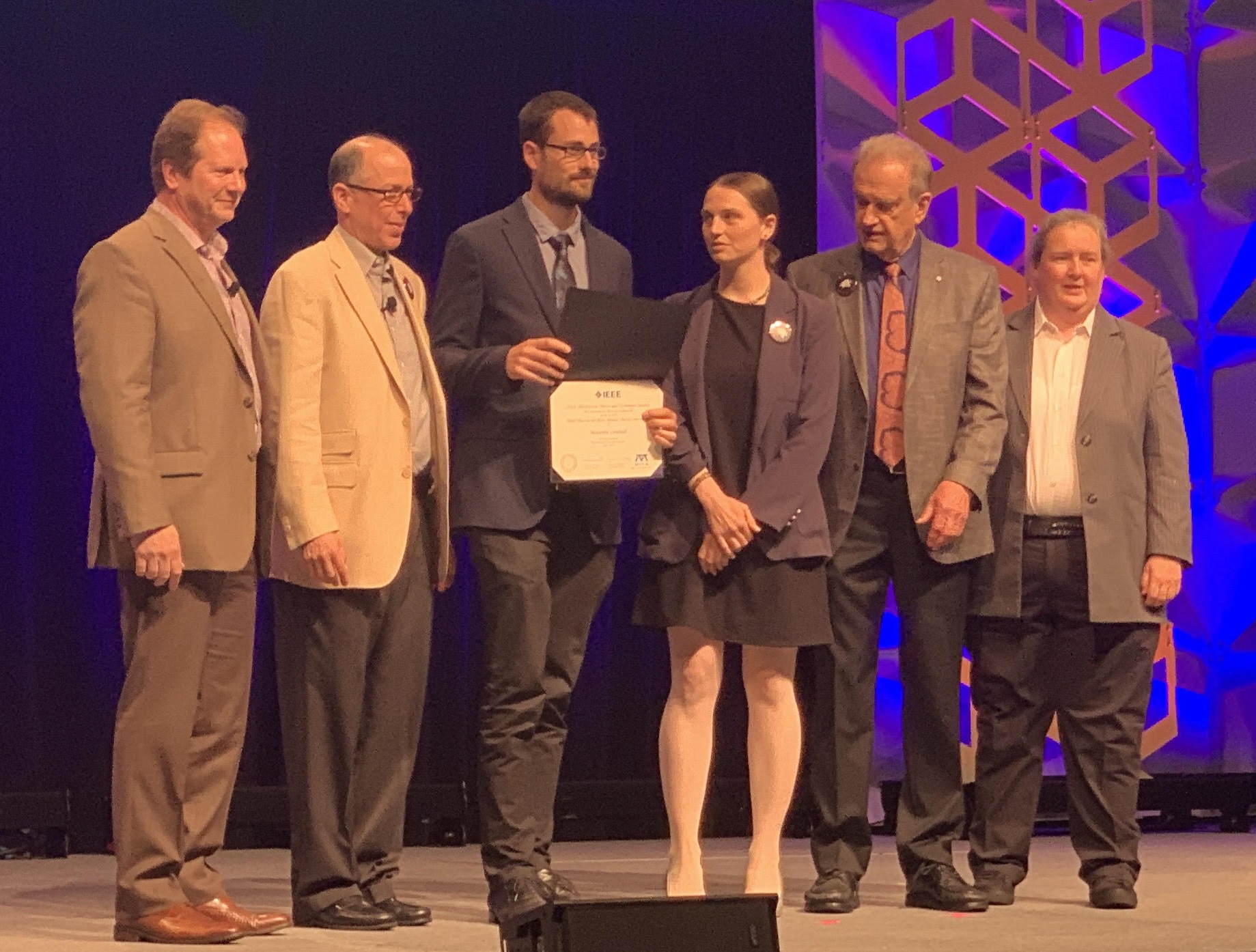
6/3/2019
Ben wins an award at IEEE IMS 2019
Grad student, Ben Lienhard, won third place at a competition held at the IEEE IMS 2019 conference in Boston from June 2-7. During IMS, there was the Three Minute Thesis (3MT) Competition, where contestants are judged on their ability to deliver a comprehensive, three-minute presentation on an approved thesis topic. The presentation is allowed to be supported by a single static slide.
The goal of the contest is to stimulate interest in the applications of microwave technology. Ben’s presentation was on “The Mystery of Quantum Computers.” More information on the competition can be found here.
5/19-25/2019
Will attends WACQT Scientific Advisory Board meeting | Gothenburg, Sweden
Will went to The Wallenberg Center for Quantum Technology (WACQT) at Chalmers to attend a Scientific Advisory Board meeting.
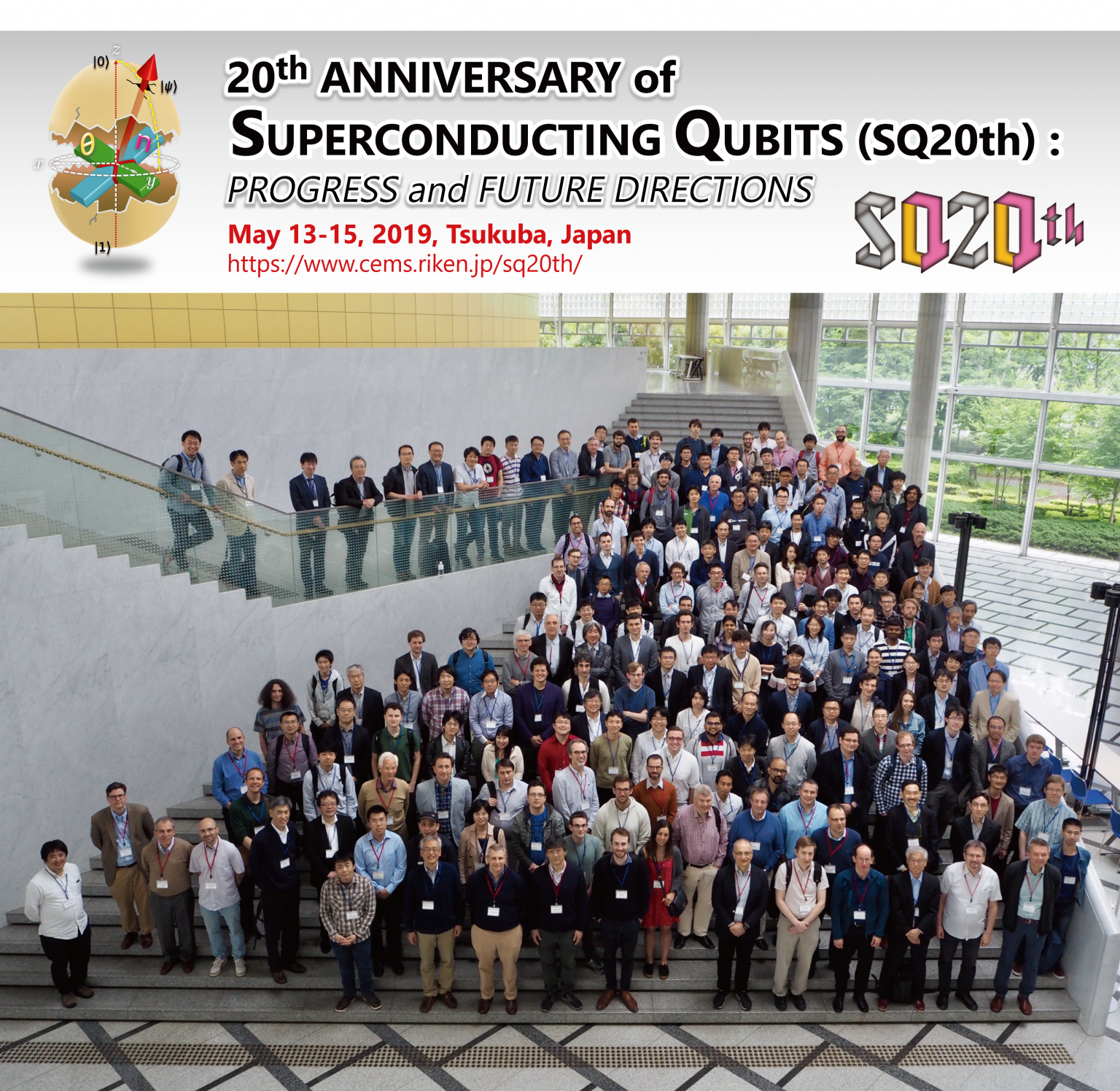
5/11-18/2019
Joel and Will celebrate at SQ20th | Tsukuba, Japan
Postdoctoral associate, Joel Wang, and Will went to the 20th Anniversary of Superconducting Qubits (SQ20th): Progress and Future Directions. Riken organized the symposium to celebrate the progress made with superconducting qubits over the last two decades.
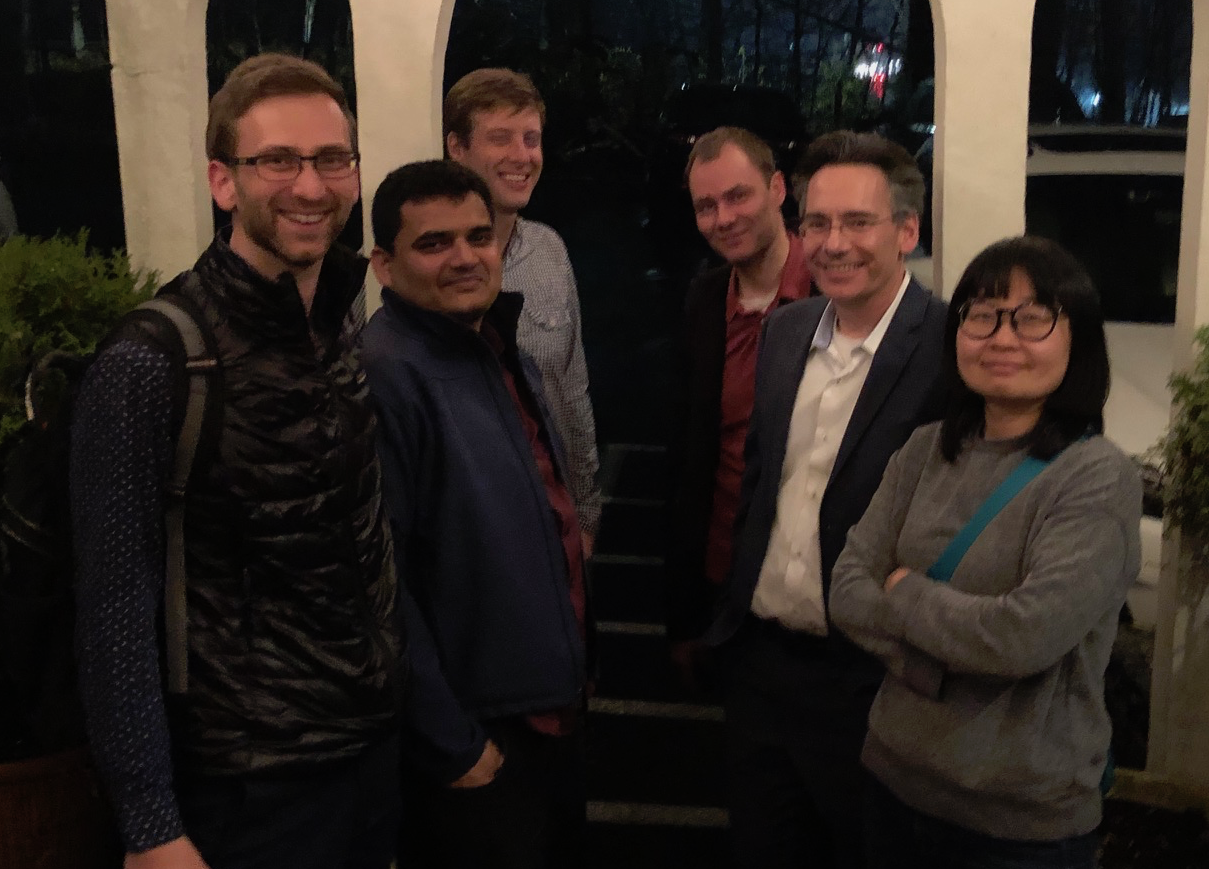
4/12/2019
Will visits IBM | Yorktown Heights, NY
Will went to IBM Yorktown Heights to talk about our work on quantum engineering with superconducting qubits.
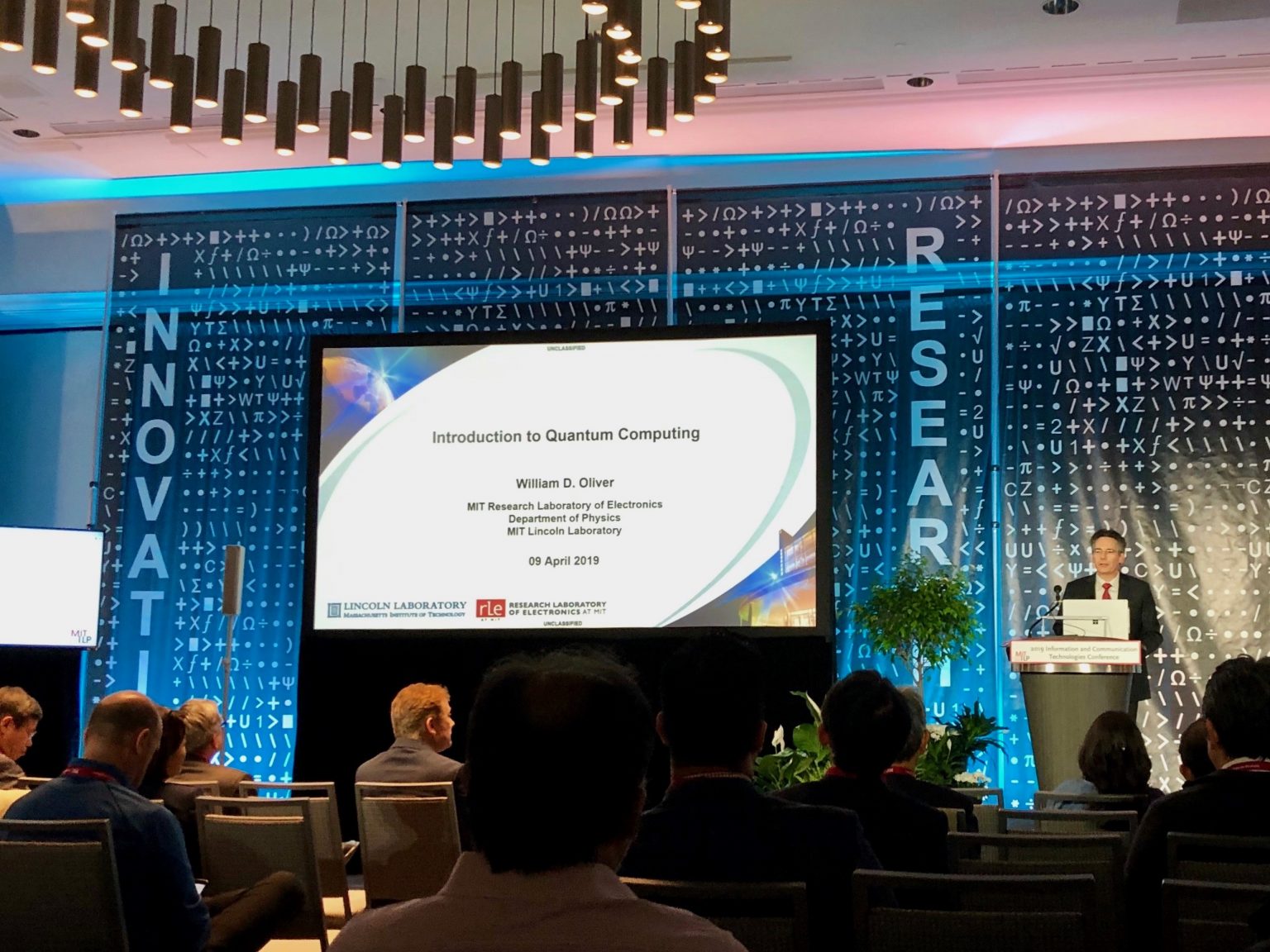
4/9/2019
Will speaks at MIT ILP conference
Will gave an invited talk at the 2019 MIT Information and Communication Technologies Conference: Digital Frontiers organized by the MIT Industrial Liaison Program.
In the talk, he gave an introduction to quantum computing, highlighting the MIT Center for Quantum Engineering and its role in helping to define the quantum future.
4/2/2019
Ami is awarded a Google PhD Fellowship
Congratulations to third-year graduate student Ami Greene on being awarded the 2019 Google PhD Fellowship in Quantum Computing!
Effective for two years with a possibility of extending to a third year, schools could nominate only two people for each fellowship program.
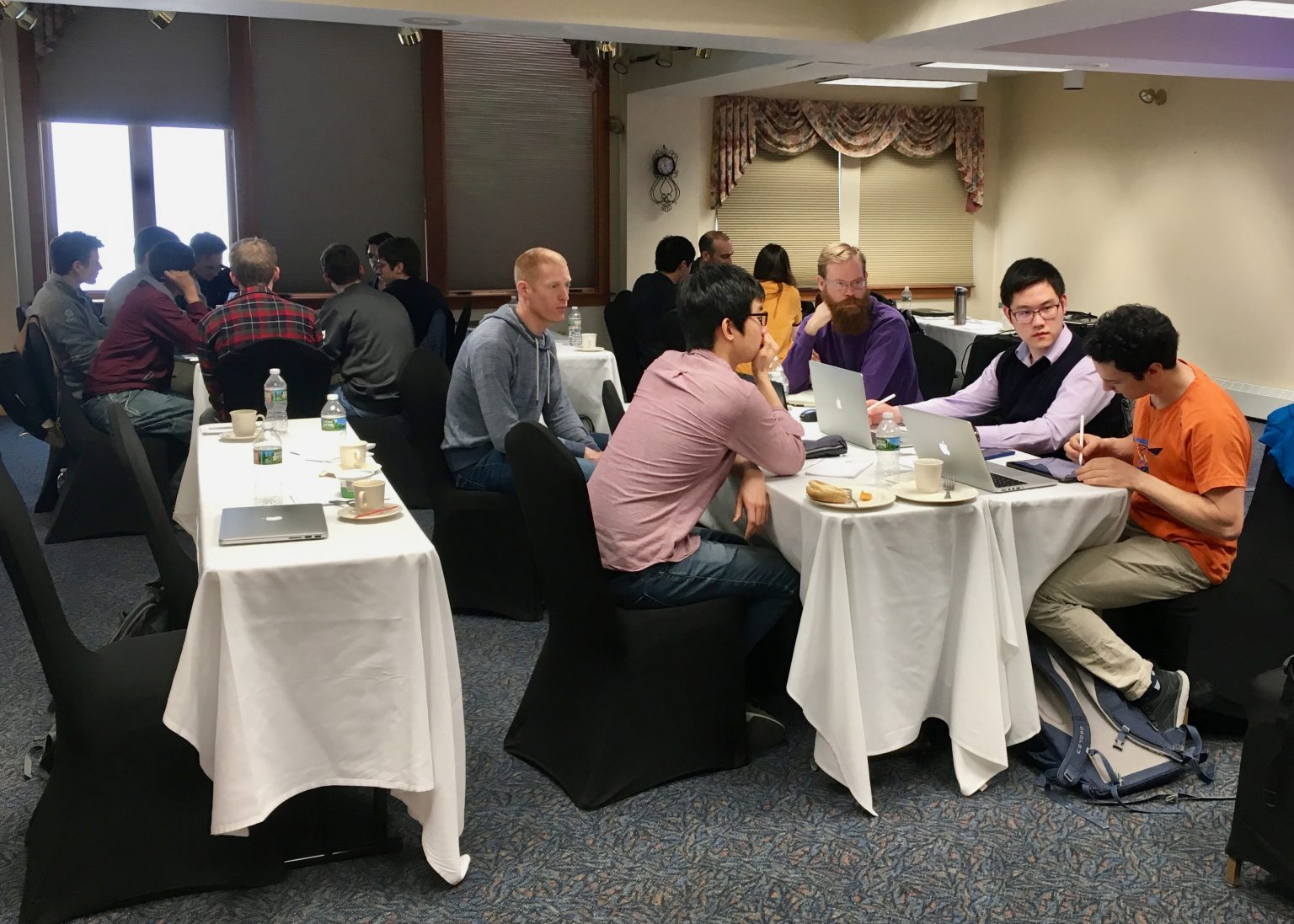
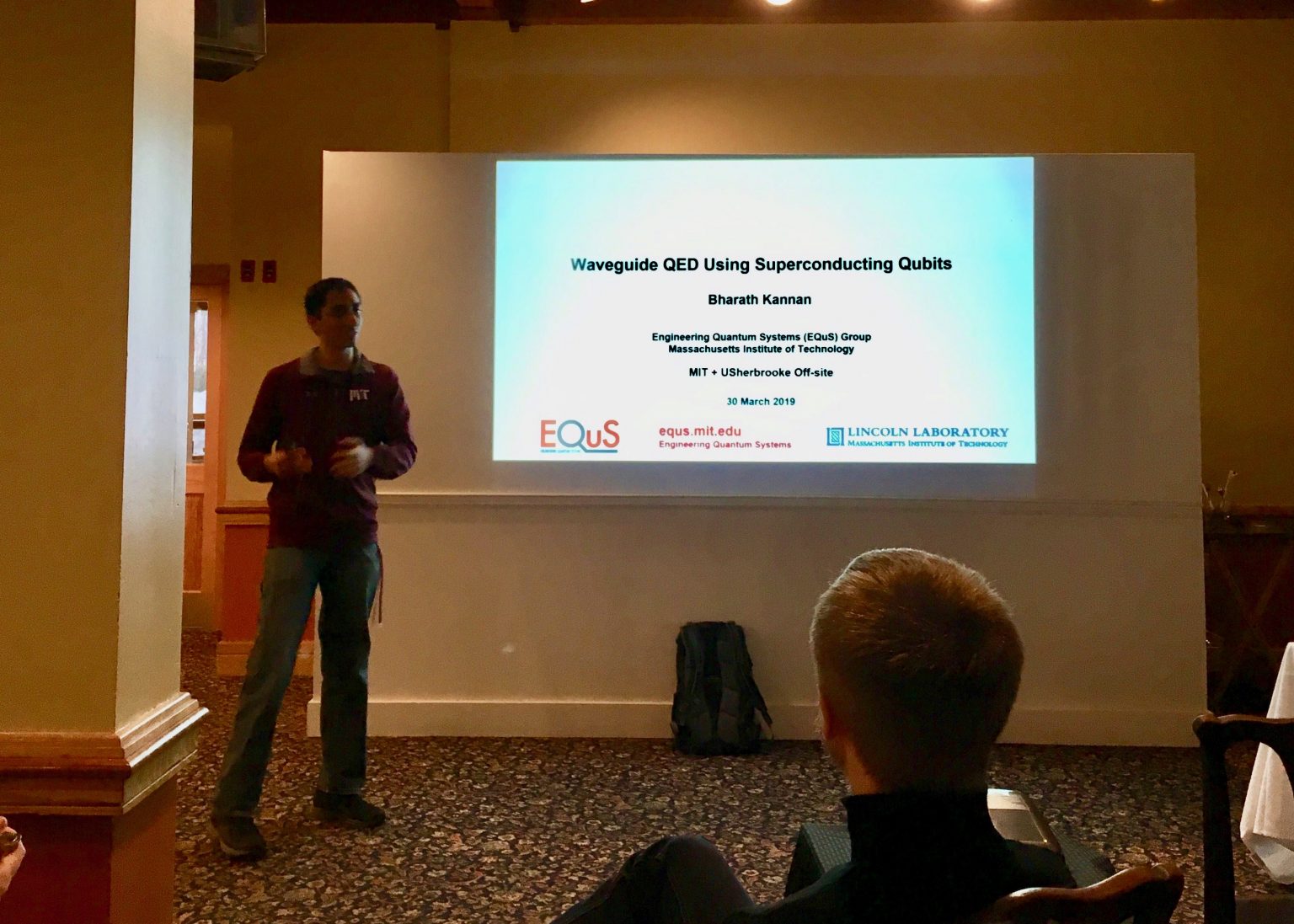
3/29-31/2019
EQuS and Blais Group attend off-site to discuss high-fidelity two-qubit gates | Lincoln, NH
Students and postdocs from the EQuS group and Alexandre Blais’ group from the University of Sherbrooke attended an off-site conference to discuss pathways to achieving 99.9% two-qubit gate fidelity.
Throughout the weekend, members of both groups gave talks, held free-form discussions, and participated in organized break-out sessions regarding high-fidelity two-qubit gates and their potential use with machine learning, quartons, microwave squeezing, and quantum simulation. Bharath Kannan gave an after-dinner talk on his latest results in waveguide QED.
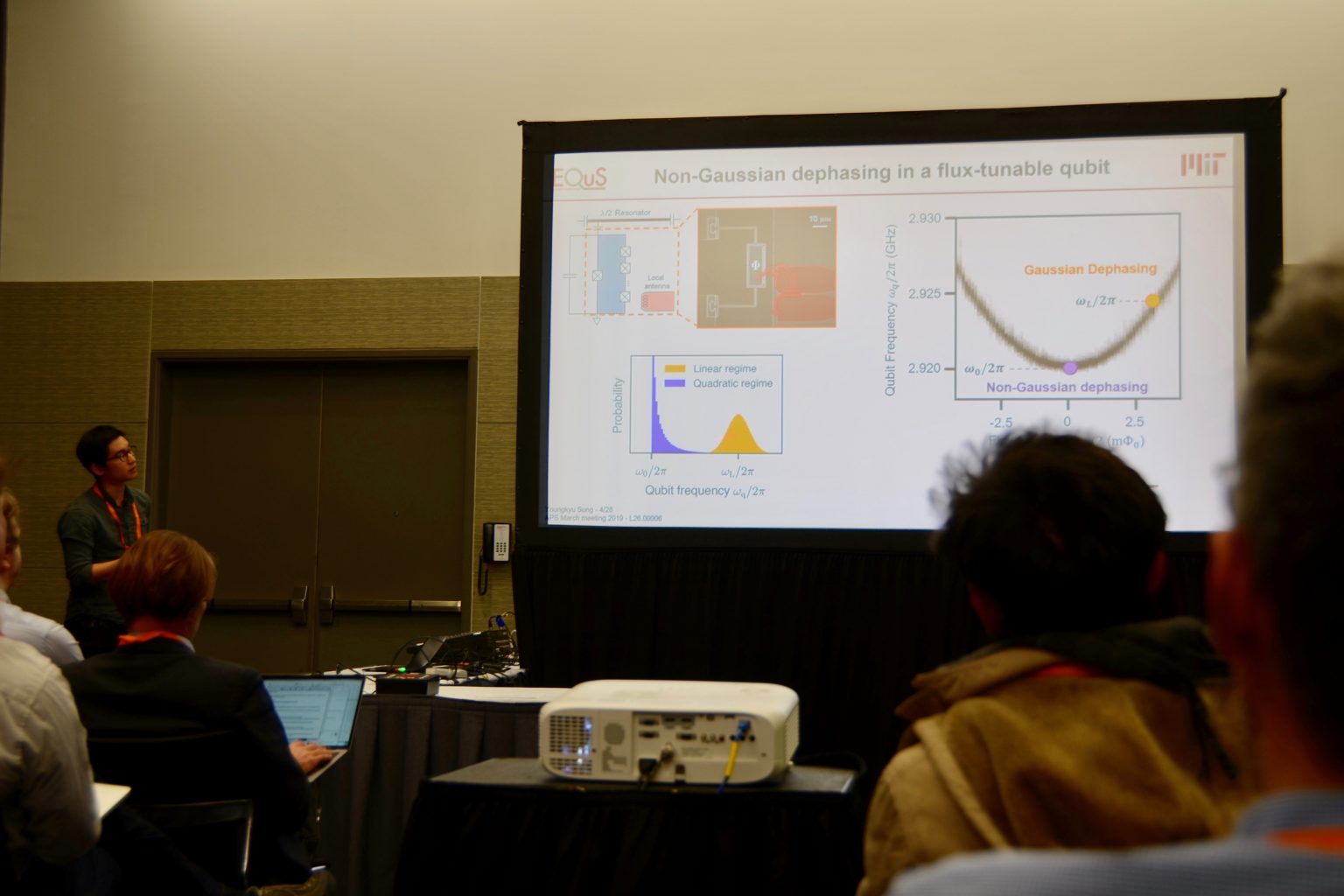
Youngkyu Sung, graduate student – “Non-Gaussian noise spectroscopy with a superconducting qubit” (L26:7)
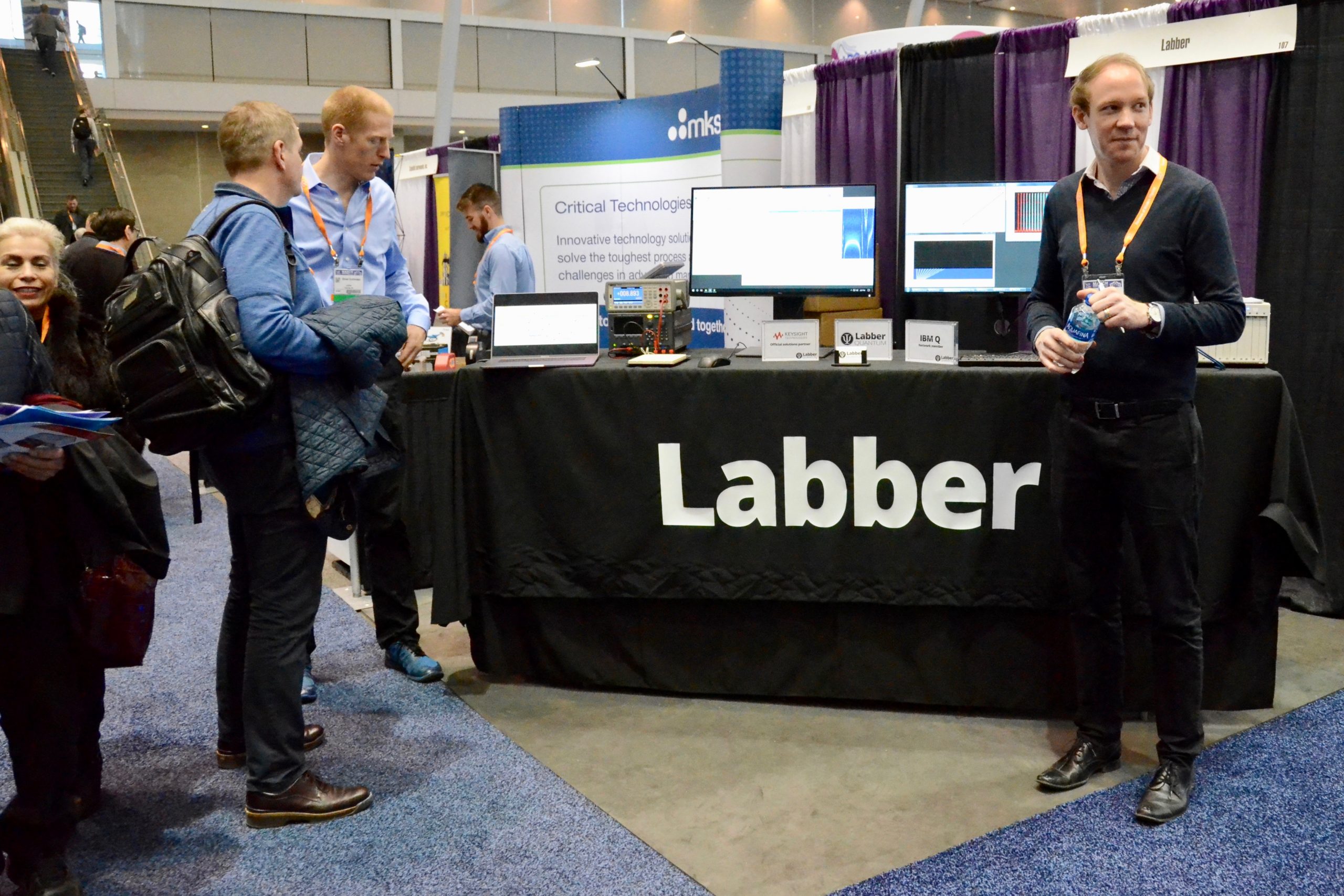
Simon Gustavsson, principal research scientist, and Philip Krantz, former postdoc, marketing Labber.
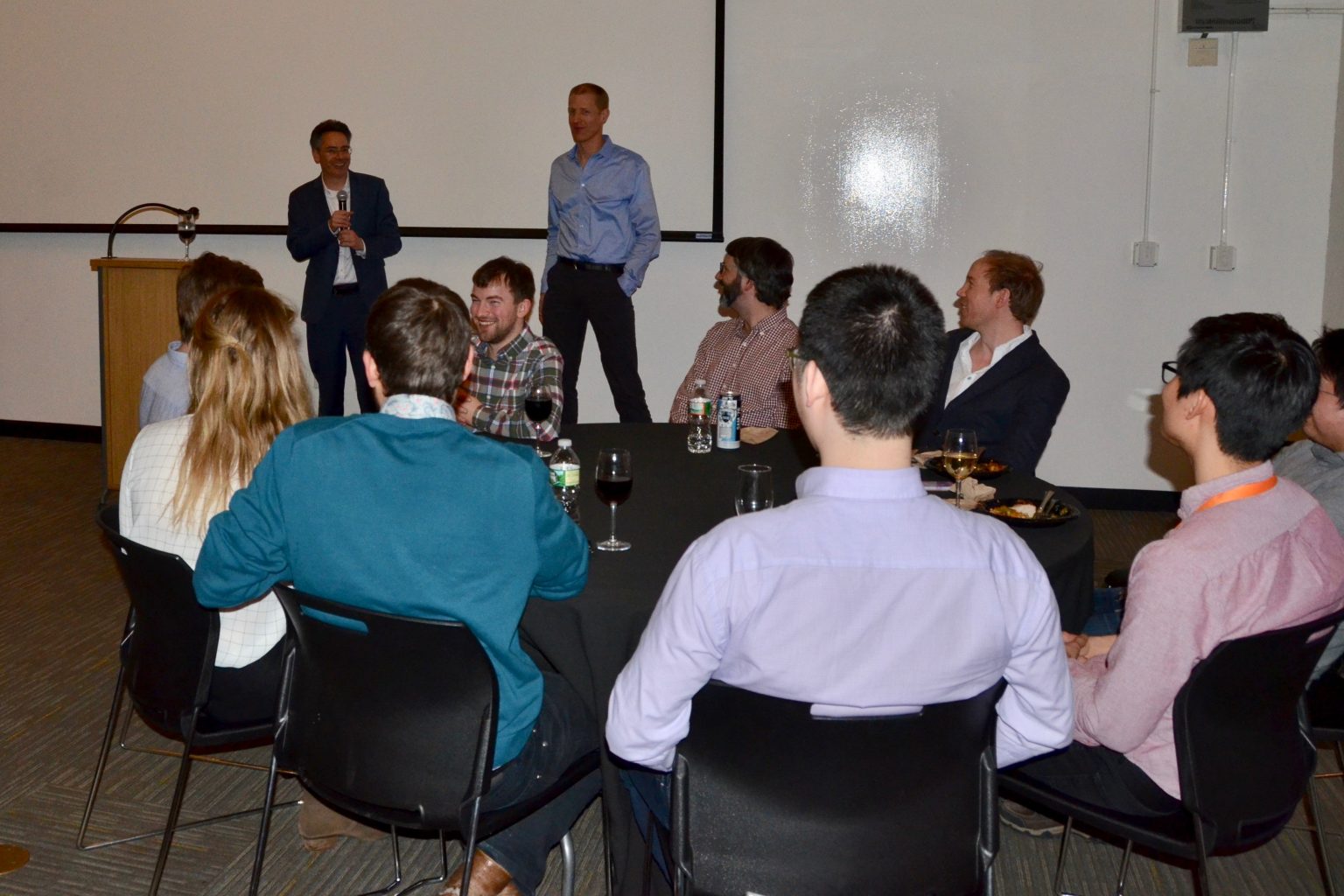
Members of EQuS and colleagues from Lincoln Lab enjoying at an annual collaboration dinner.
3/4-8/2019
EQuS goes to March Meeting 2019 | Boston, MA
Held in Boston this year, the EQuS group spent the week at the Boston Convention and Expo Center to attend the annual APS March Meeting.
12 EQuS members gave presentations over the course of the five-day conference. Simon Gustavsson and Philip Krantz also represented Labber, a software for instrument control and measurement automation.
- Charlotte Bøttcher, graduate student – “Using magnetically-resilient circuit QED techniques to study 2D materials” (C35:4)
- Daniel Campbell, former postdoc – “Coherent, Landau-Zener control of a superconducting composite qubit” (B42:11)
- Bharath Kannan, graduate student – “Generating non-classical and spatially-correlated photons in a waveguide QED architecture” (B26:10)
- Ben Lienhard, graduate student – “Simulation and analysis of packaging of superconducting qubits” (P26:2)
- Niels Jakob Søe Loft, former visiting graduate student – “High-fidelity conditional two-qubit swapping gate using tunable ancillas” (L29:3)
- Tim Menke, graduate student – “A many-body coupler for coherent 4-local interaction of superconducting flux qubits” (A42.11)
- Yanjie (Jack) Qiu, graduate student – “Broadband amplification and squeezed light generation with dispersion engineered Josephson metamaterial” (V28:2)
- Youngkyu Sung, graduate student – “Non-Gaussian noise spectroscopy with a superconducting qubit” (L26:7)
- Antti Vepsäläinen, postdoc – “Superadiabatic Stimulated Raman adiabatic passage in a three-level transmon” (L29:13)
- Uwe von Lüpke, former visiting graduate student – “Two-qubit spectroscopy of spatiotemporally correlated noise in superconducting qubits. Part 2: experiment” (X35:6)
- Joel I. J. Wang, postdoc – “Quantum coherent control of graphene-based transmon qubit” (C29:10)
- Megan Yamoah, undergraduate student – “Microwave dielectric loss of hexagonal Boron Nitride in the low-temperature, single-photon regime” (P11:6)
2/15/2019
RLE announces the MIT Center for Quantum Engineering
The EQuS group is pleased to be an inaugural member of the MIT Center for Quantum Engineering (CQE), an initiative that will support and advance quantum science and engineering at the Institute.
In a joint effort to lead the field forward, the CQE will facilitate the coordination of resources and expertise at the MIT Research Laboratory of Electronics (RLE) and MIT Lincoln Laboratory. In addition, the CQE will support the development of new curricula in quantum engineering to help train a quantum workforce, as well as establishing a consortium to link industry partners to students and scientists.
1/23/2019
Will discusses the QC talent shortage with MIT News
MIT News covered “The talent shortage in quantum computing” in a Q&A session with Will.
Quantum information science and technology is a rapidly growing field. In this piece, Will discusses the impending talent shortage, and the crucial role that places like MIT and MIT xPRO – MIT’s online professional development education program – will play in creating a quantum-smart workforce.
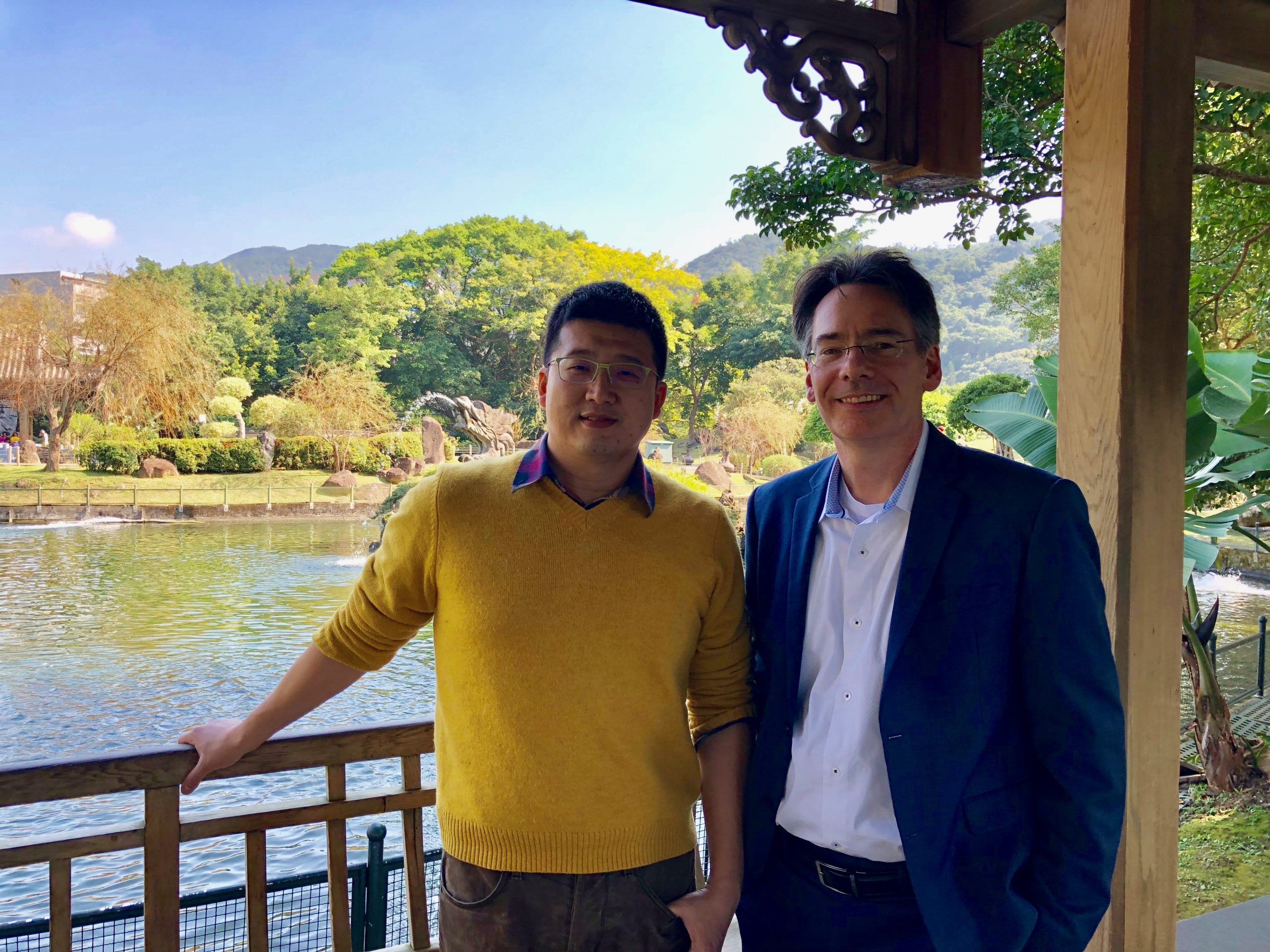
1/19-26/2019
Will and Joel give talks in Taiwan | Taipei and Hsinchu, Taiwan
Will and postdoctoral associate, Joel Wang, spoke at National Taiwan University, National Tsing Hua University, and Taiwan Semiconductor Manufacturing Company Limited. Will presented on quantum engineering and Joel presented his research on graphene qubits.
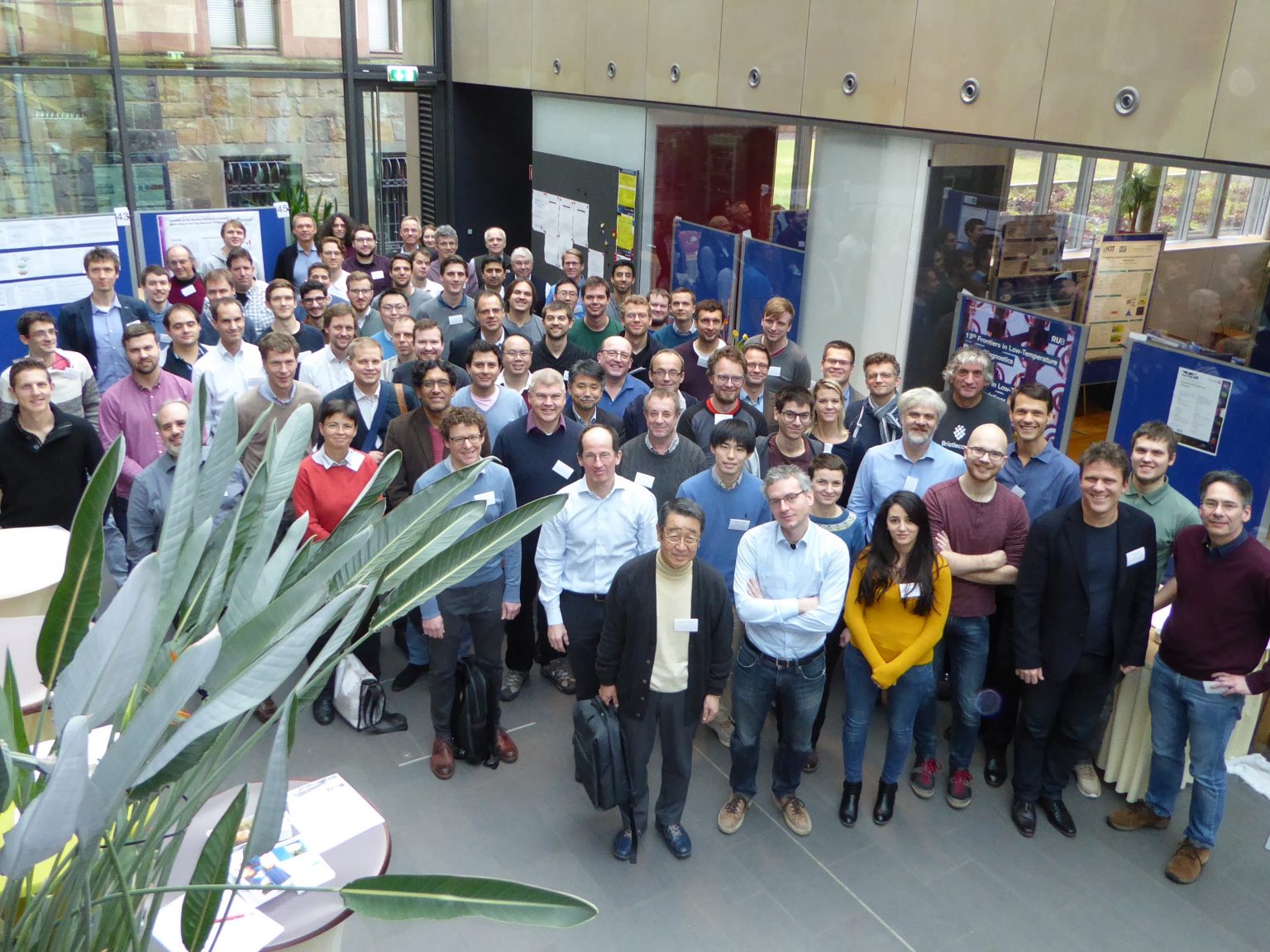
1/13-17/2019
Will gave an invited talk at the 687 WE-Heraeus Seminar on “Scalable Hardware Platforms for Quantum Computing. (See photos below.)
In addition, Will also attended the kick-off meeting for OpenSuperQ, the European flagship program aiming to build a 100-qubit superconducting quantum computer and user facility.
Will is a member of the Scientific Advisory Board for OpenSuperQ, one of the two quantum computing efforts funded by the flagship.
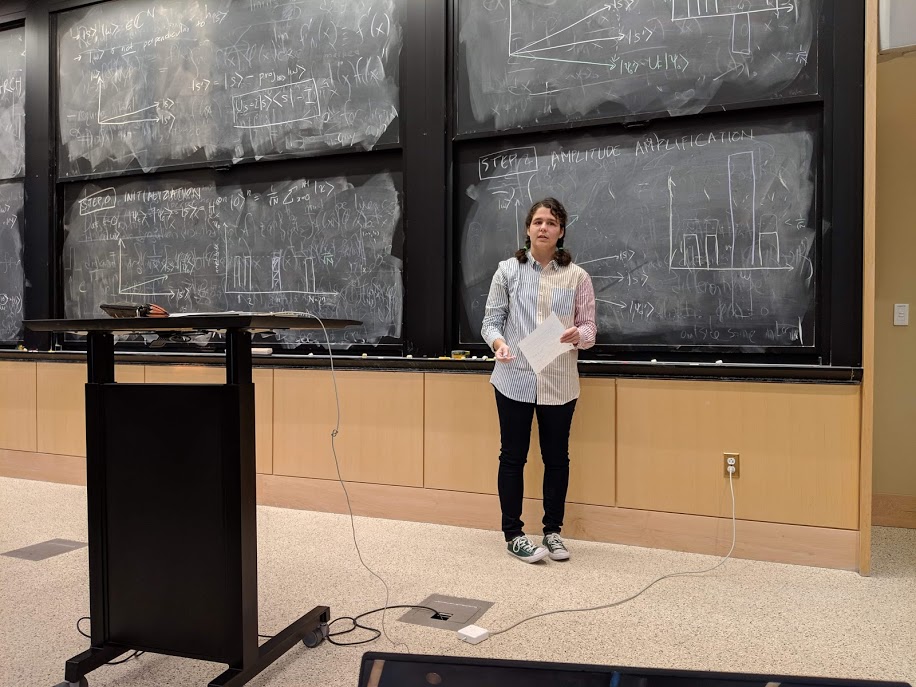
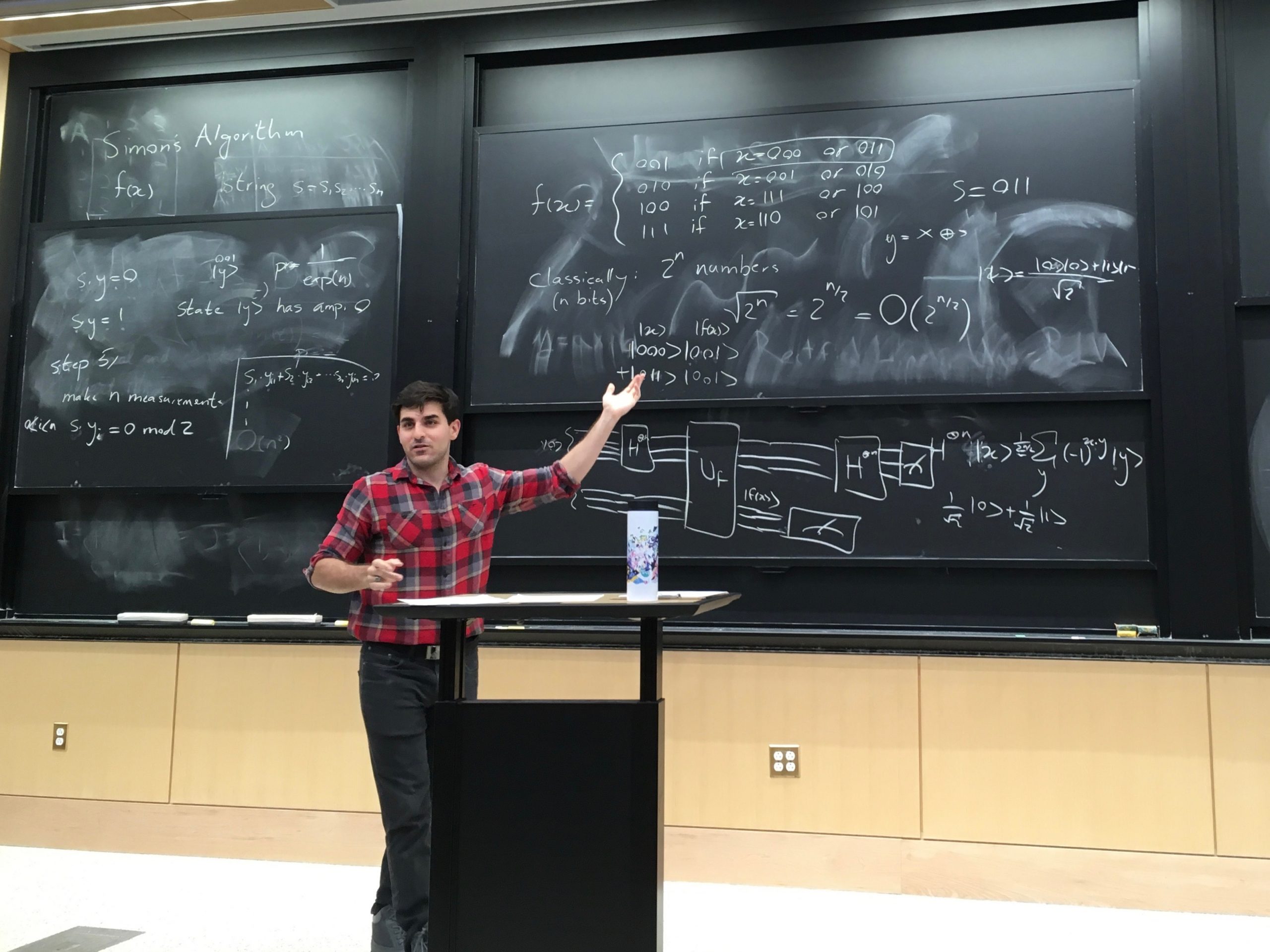
1/7/2019
EQuS members teach “Intro to Quantum” class
New to quantum? This IAP, MIT will offer an “Introduction to Quantum Computing” course taught by grad student, Amir Karamlou, and UROPs, Francisca Vasconcelos and Megan Yamoah.
Within the first three weeks, the course will cover some fundamental quantum mechanics, survey quantum circuits, as well as introduce important quantum algorithms. In the fourth and final week, they will survey advanced topics, such as quantum error correction and quantum communication, as well as applications to fields ranging from machine learning to chemistry.
For more information, contact Amir Karamlou at karamlou (at) mit.edu.
12/31/2018
Congratulations to postdoctoral associates Joel Wang and Dani Rodan (Jarillo-Herrero Group at MIT) on the publication of their paper, “Coherent control of a hybrid superconducting circuit made with graphene-based van der Waals heterostructures” in Nature Nanotechnology.
All contributing authors: J. I-J. Wang, D. Rodan-Legrain, L. Bretheau, D. L. Campbell, B. Kannan, D. Kim, M. Kjaergaard, P. Krantz, G. O. Samach, F. Yan, J. L. Yoder, K. Watanabe, T. Taniguchi, T. P. Orlando, S. Gustavsson, P. Jarillo-Herrero, W. D. Oliver
In this work, featured in MIT News, Joel and Dani demonstrate temporal coherence and single qubit-control of a transmon qubit made with a graphene weak link.
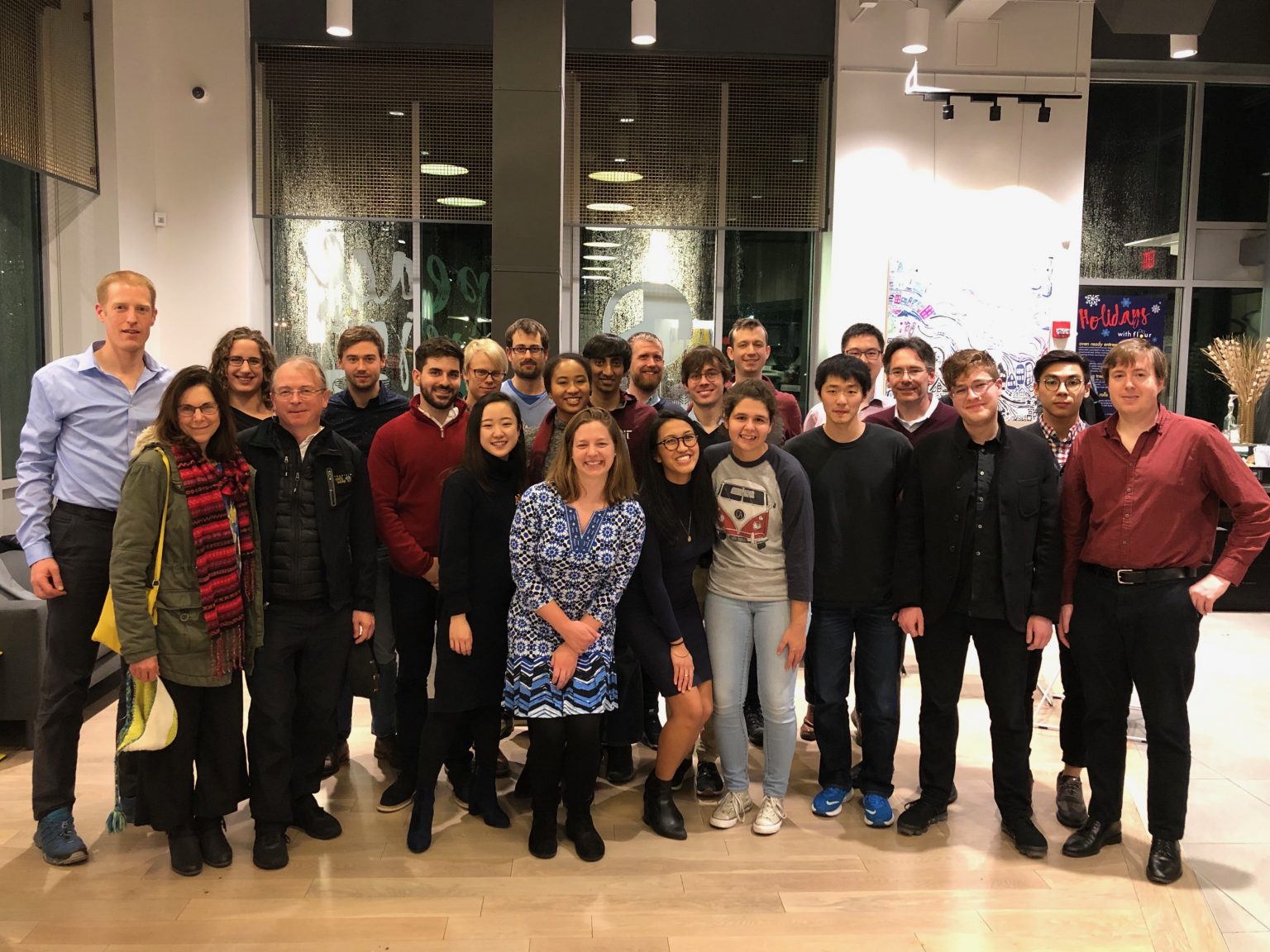
12/16/2018
EQuS celebrates at second annual holiday party
Friends, families, and members of EQuS gathered to celebrate the end of the year at the annual holiday party. Dinner, dessert, and drinks were served at Flour, featuring a few special treats made by EQuS’ own.
In addition to wrapping up another year of hard work, challenges, and successes, we also recognized postdoc Daniel Campbell, as he moves onto his next chapter as a quantum scientist at Booz Allen Hamilton in January. You will be missed, Dan! Thank you for the scientific contributions, mentorship, and kindness you’ve been bringing to this group since joining in 2015.
Looking forward to another year of learning and growing in EQuS!
12/14-16/2018
Will speaks at ISS2018 | Tsukuba, Japan
Will gave an invited talk at the International Symposium on Superconductivity (ISS2018) entitled, “Quantum Engineering of Superconducting Qubits.”
His talk featured Joel’s work on a transmon qubit with a graphene junction, which was done in collaboration with Pablo Jarillo-Herrero’s group at MIT, as well as Jack’s work on single-mode and two-mode squeezing using the Josephson traveling wave parametric amplifier, done in collaboration with Kevin O’Brien.
12/4/2018
Will was interviewed by Martin Giles of the MIT Technology Review about the need for post-quantum cryptography, in connection with the release of the NASEM report on Quantum Computing: Progress and Prospects.
12/3/2018
NASEM releases the consensus study report on quantum computing | Washington, DC
The National Academies of Science, Engineering, and Medicine (NASEM) released a report providing an independent assessment of the feasibility and implications of creating a functional quantum computer capable of addressing real-world problems.
Will was a member of the committee led by Mark Horowitz (Stanford University) that created the report over the course of 18 months.
The study focuses on the technical risks associated with developing a quantum computer, the implications of having one, the future of public key cryptography, and the costs and benefits from a national security perspective.
11/4/2018
DOE BES awards sponsored research grant
The EQuS group has been selected by The Department of Energy (DOE), Basic Energy Sciences (BES), to perform sponsored research as part of the Materials and Chemical Sciences Research for Quantum Information Science program.
The selected proposal, titled “High-Coherence Multilayer Superconducting Structures for Large-Scale Qubit Integration and Photonic Transduction,” is led by Lawrence Berkeley National Laboratory (LBNL) and includes co-PIs from UC Berkeley and the EQuS group at MIT.
The three-year program will focus on the development of novel materials, fabrication, and design to enable high-coherence qubits, as well as the generation and detection of non-classical light.
10/22/2018
Will speaks at the AVS Symposium | Long Beach, CA
Will spoke about quantum engineering of superconducting qubits at the 65th International Symposium and Exhibition held by the American Vacuum Society (AVS).
The week-long symposium fosters a multidisciplinary environment within science and technology. In addition, it features papers from AVS technical divisions, research groups, and emerging technologies.
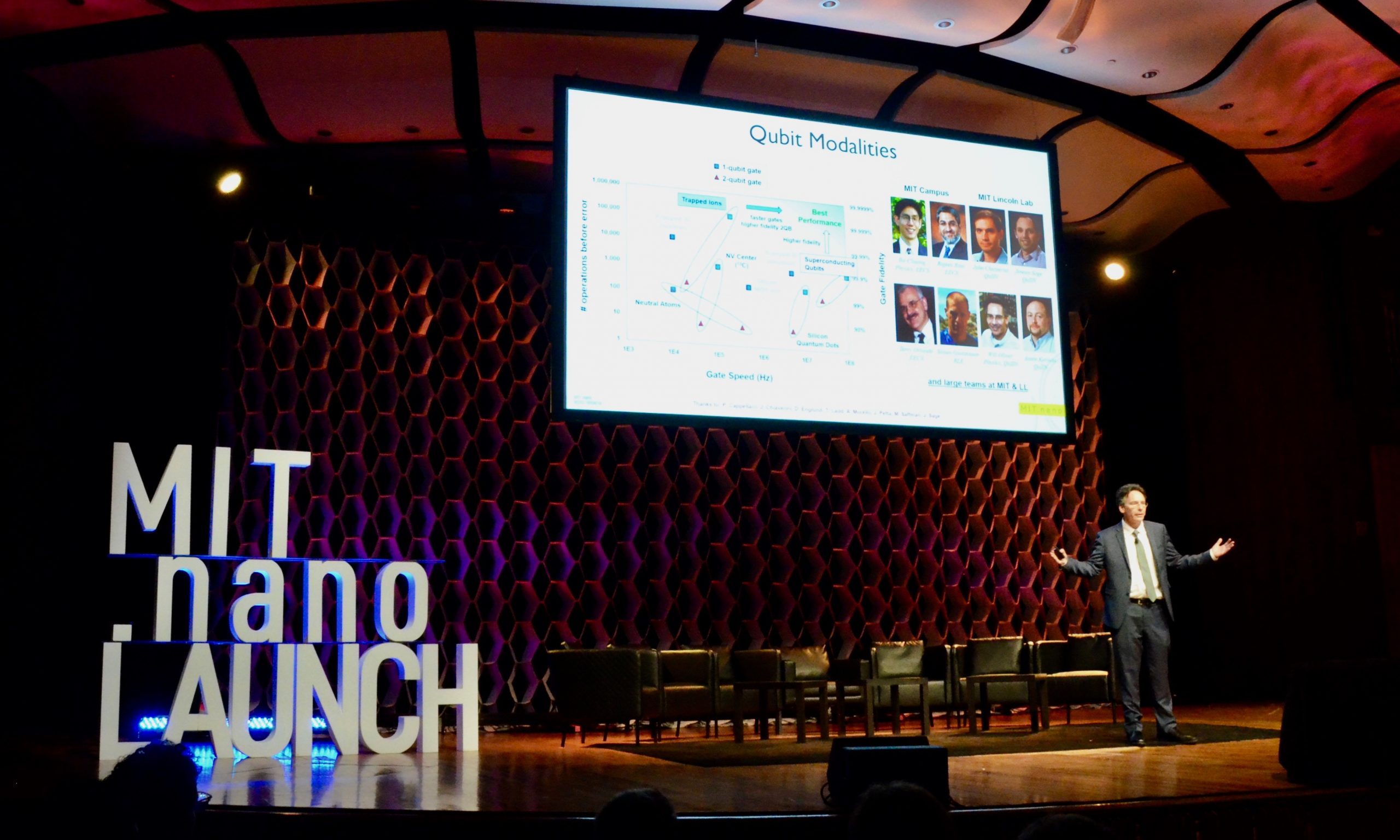
10/4/2018
Will gave a keynote address on quantum computing at the MIT.nano launch. His talk was followed by a panel of industry and research leaders, including Bogdan Mihaila (NSF), Mark Ritter (IBM), and Eric Dauler (MIT Lincoln Lab). Isaac Chuang, an MIT professor of EECS and the Senior Associate Dean of Digital Learning, moderated the panel.
MIT.nano is MIT’s new fabrication facility, and quantum information science represents one of the major thrusts at the Institute that will be enabled by these new facilities.
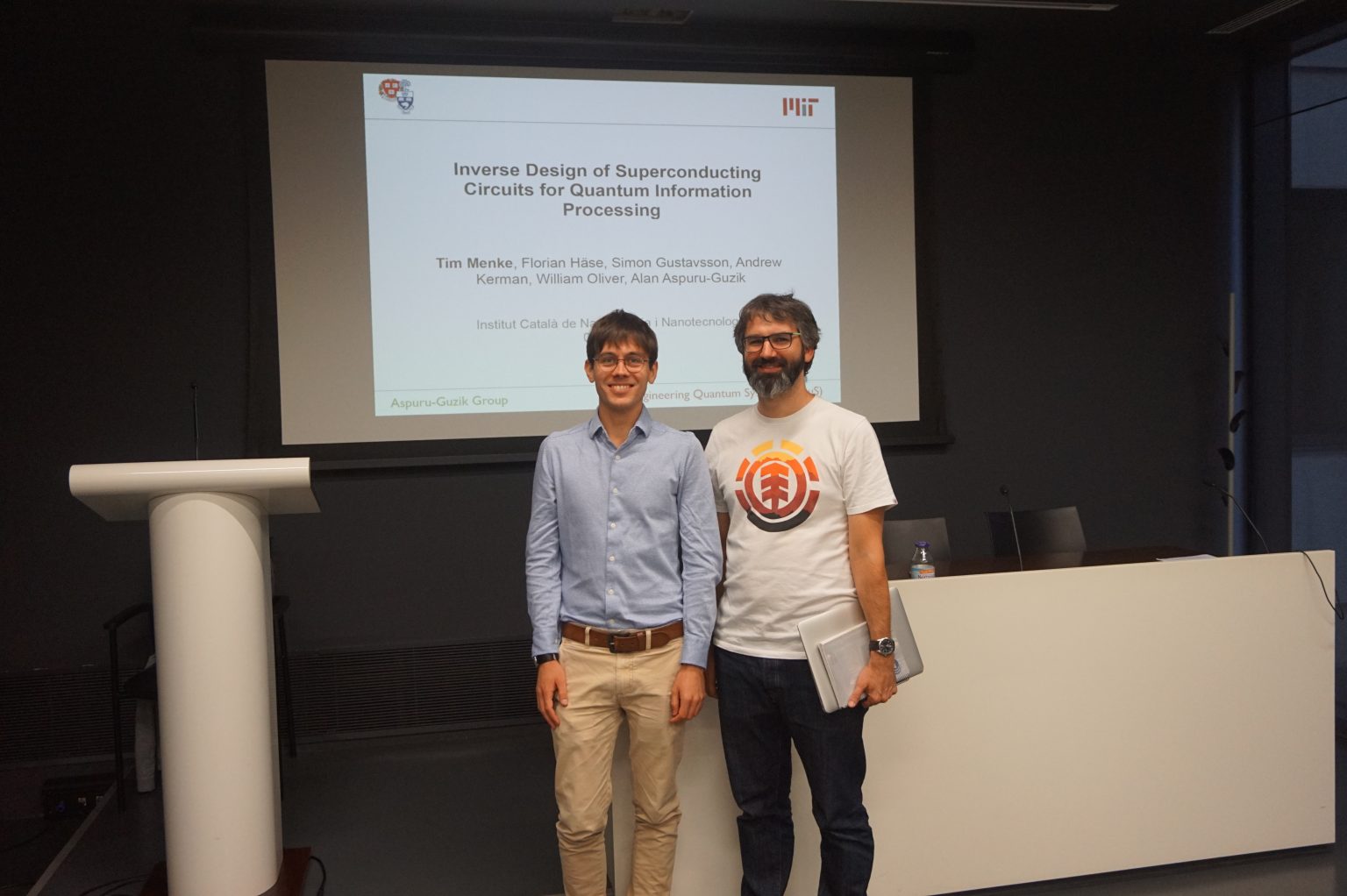
10/1-5/2018
Tim visits and speaks at QUANTIC | Barcelona, Spain
Grad student, Tim Menke, visited the QUANTIC group, an exciting quantum computing joint venture of several institutes in Barcelona.
He presented his work on inverse design of superconducting circuits at the Catalan Institute of Nanoscience and Nanotechnology and the University of Barcelona. With Pol Forn-Díaz (see picture below), he discussed new circuits for quantum annealing. He also helped with an experiment that is set to demonstrate the first quantum control of a superconducting qubit in the Mediterranean area.
For more information on Tim’s visit, see the blog post written by the QUANTIC about his visit.
10/1-2/2018
Will teaches in Okinawa | Okinawa, Japan
Will lectured at the Okinawa School in Physics 2018: Coherent Quantum Dynamics (QD2018). The week-long program was held at the Okinawa Institute of Science and Technology Graduate University.
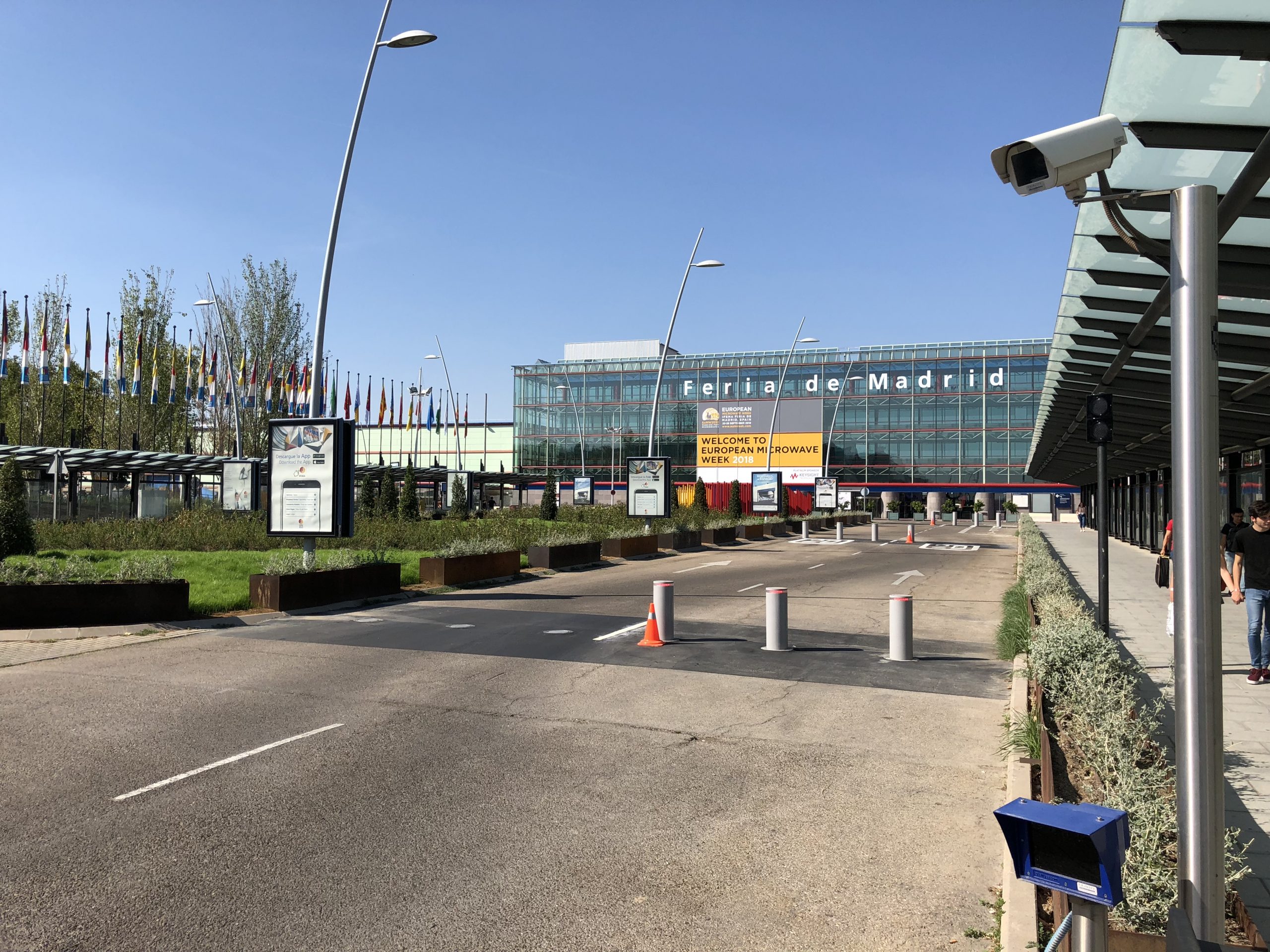
9/24/2018
Will speaks at EuMW 2018 | Madrid, Spain
Will gave an invited tutorial on superconducting quantum computing at European Microwave Week 2018.
During the week, Will attended the European Microwave Integrated Circuits Conference, which focuses on high-frequency related topics, including materials, technology, integrated circuits, and applications.
9/4/2018
New school year, new members
As EQuS continues to grow, please welcome our newest batch of UROPs (Emma Batson, Manning Chuor, and Francisca Vasconcelos), grad students (Amir Karamlou and Gabriel Samach), and postdoc (Antti Vepsäläinen).
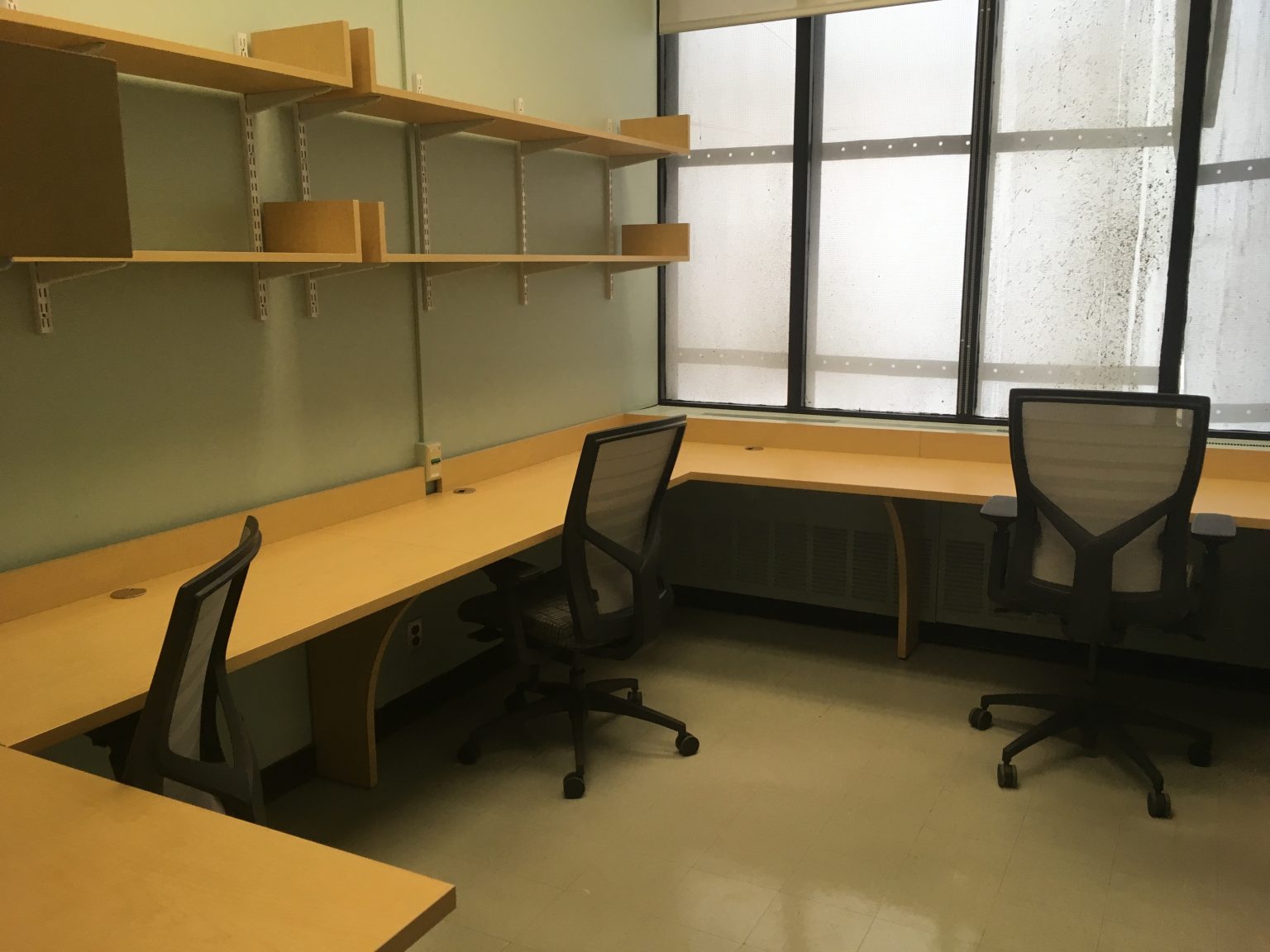
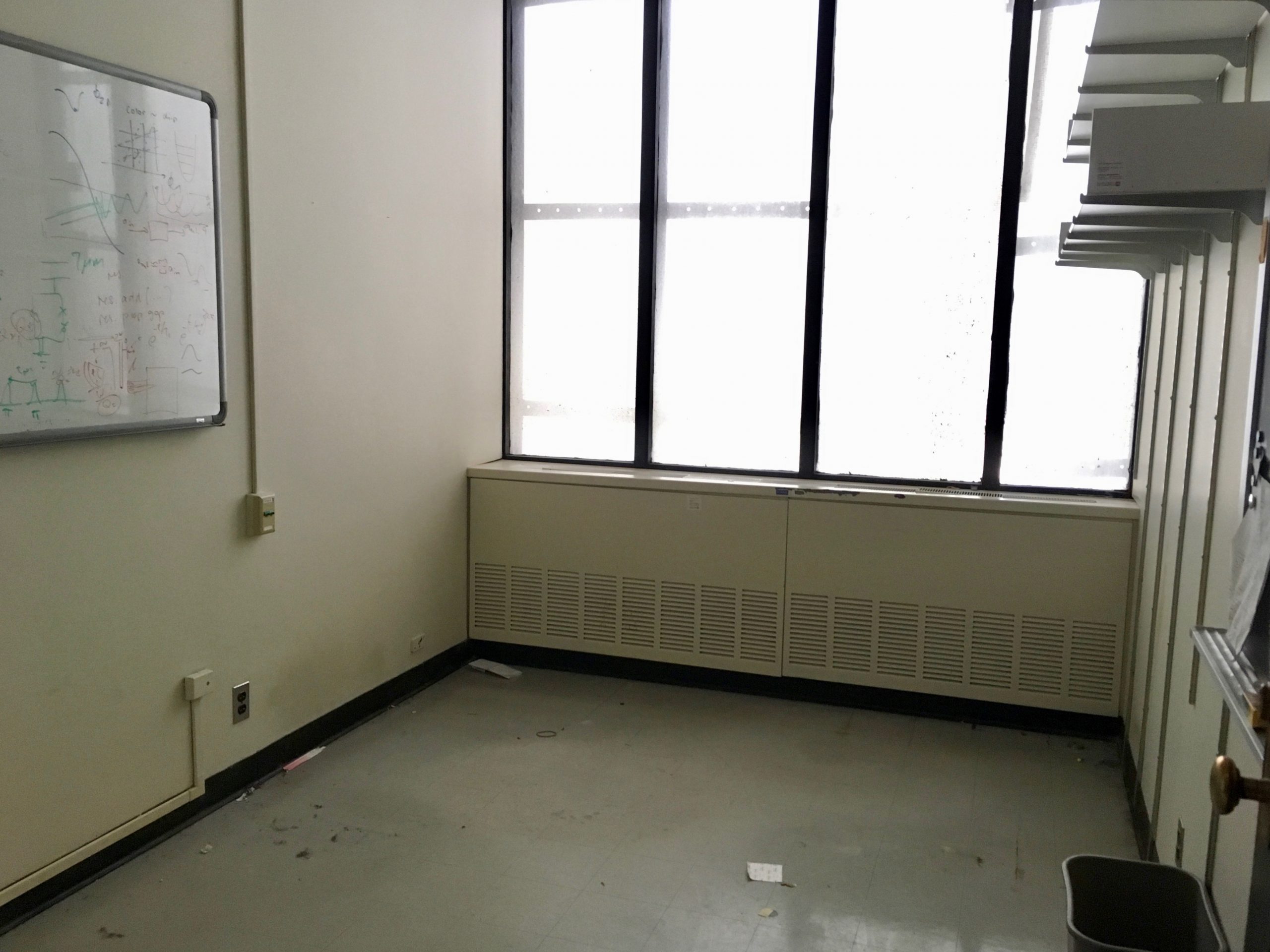
8/29/2018
EQuS gets new offices!
After preparing all summer, the offices on the third floor are finally complete! Thank you to RLE’s senior designer, Sampson Wilcox, and Creative Office Pavilion for organizing, designing, and facilitating the renovation of the new spaces.
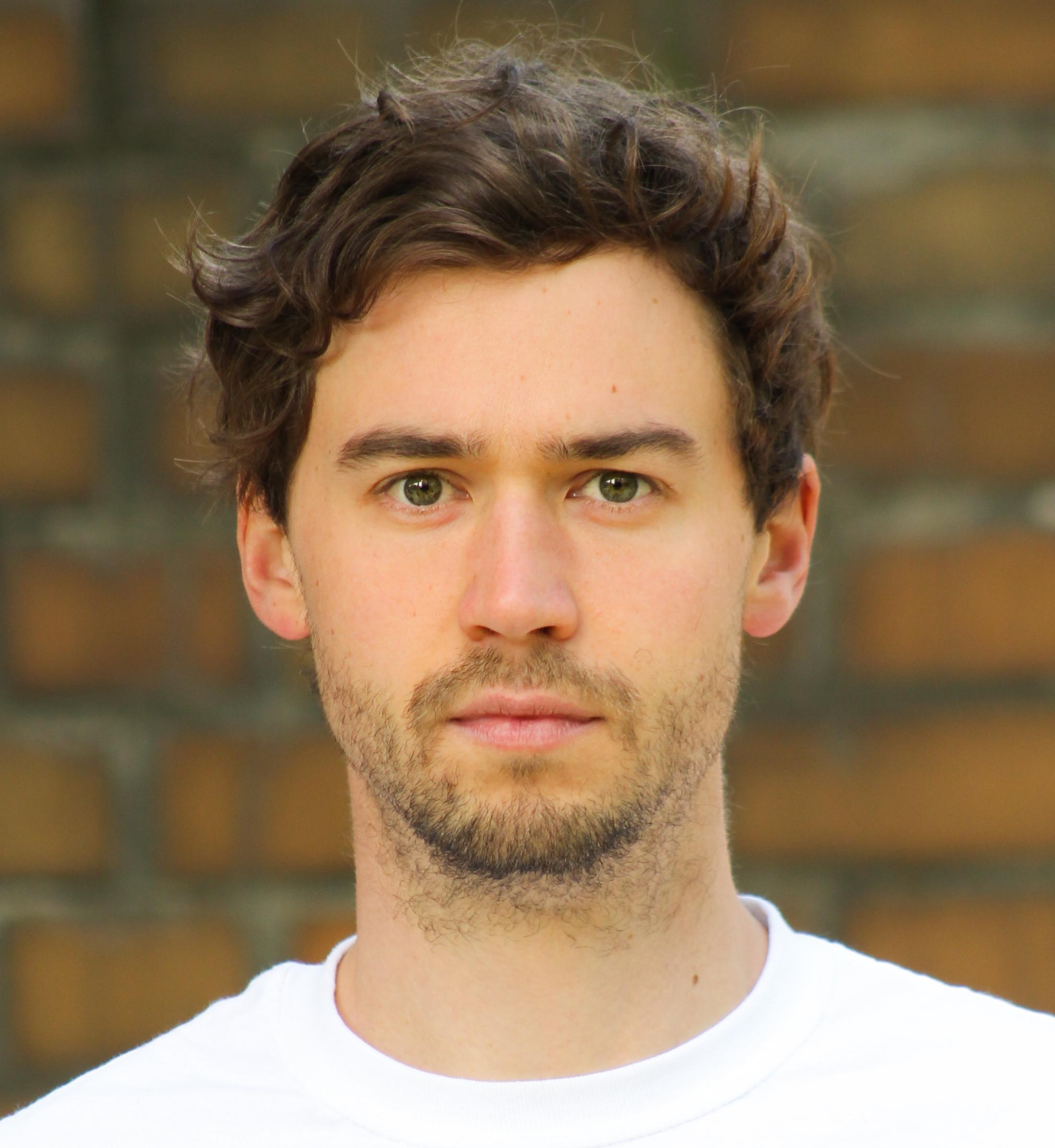
7/2/2018
Jochen joins the group
Please give a warm welcome to Jochen Braumüller, a new postdoc in the group!
After receiving his Ph.D. from Karlsruhe Institute of Technology in 2017 and completing a short postdoc there, he joined MIT to work on novel qubit architectures and alternative approaches to protect and encode quantum information that potentially allow for a more efficient scaling of quantum hardware.
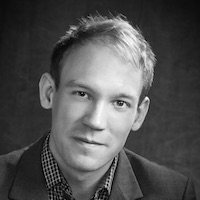
5/25/2018
Postdoc Philip leaves EQuS and takes his next steps at WACQT
Best of luck to postdoc, Philip Krantz, as he moves onto a new role as project coordinator at the Wallenberg Centre for Quantum Technology (WACQT) at Chalmers University, beginning June 1st!
The group gathered at Meadhall a few weeks prior to enjoy a farewell dinner celebrating Philip’s three years at MIT.
It’s been a joy having him in the group twice: once as a graduate student (2013) and then again as a postdoc (2015-2018). Thank you, Philip, for your mentorship, dedication, and scientific contributions. He will surely be missed!
5/2/2018
Congratulations to postdoctoral associate, Fei Yan, and postdoctoral fellow, Daniel Campbell, on the publication of their paper, “Distinguishing coherent and thermal photon noise in a circuit quantum electrodynamical system” in Physical Review Letters.
All contributing authors: Fei Yan, Dan Campbell, Philip Krantz, Morten Kjaergaard, David Kim, Jonilyn L. Yoder, David Hover, Adam Sears, Andrew J. Kerman, Terry P. Orlando, Simon Gustavsson, William D. Oliver
4/13/2018
Bharath is awarded an NDSEG Fellowship
Congratulations to second-year graduate student Bharath Kannan on his National Defense Science and Engineering Graduate (NDSEG) Fellowship!
Effective for three years and funded by the Department of Defense, less than 2% of applicants were awarded this scholarship.
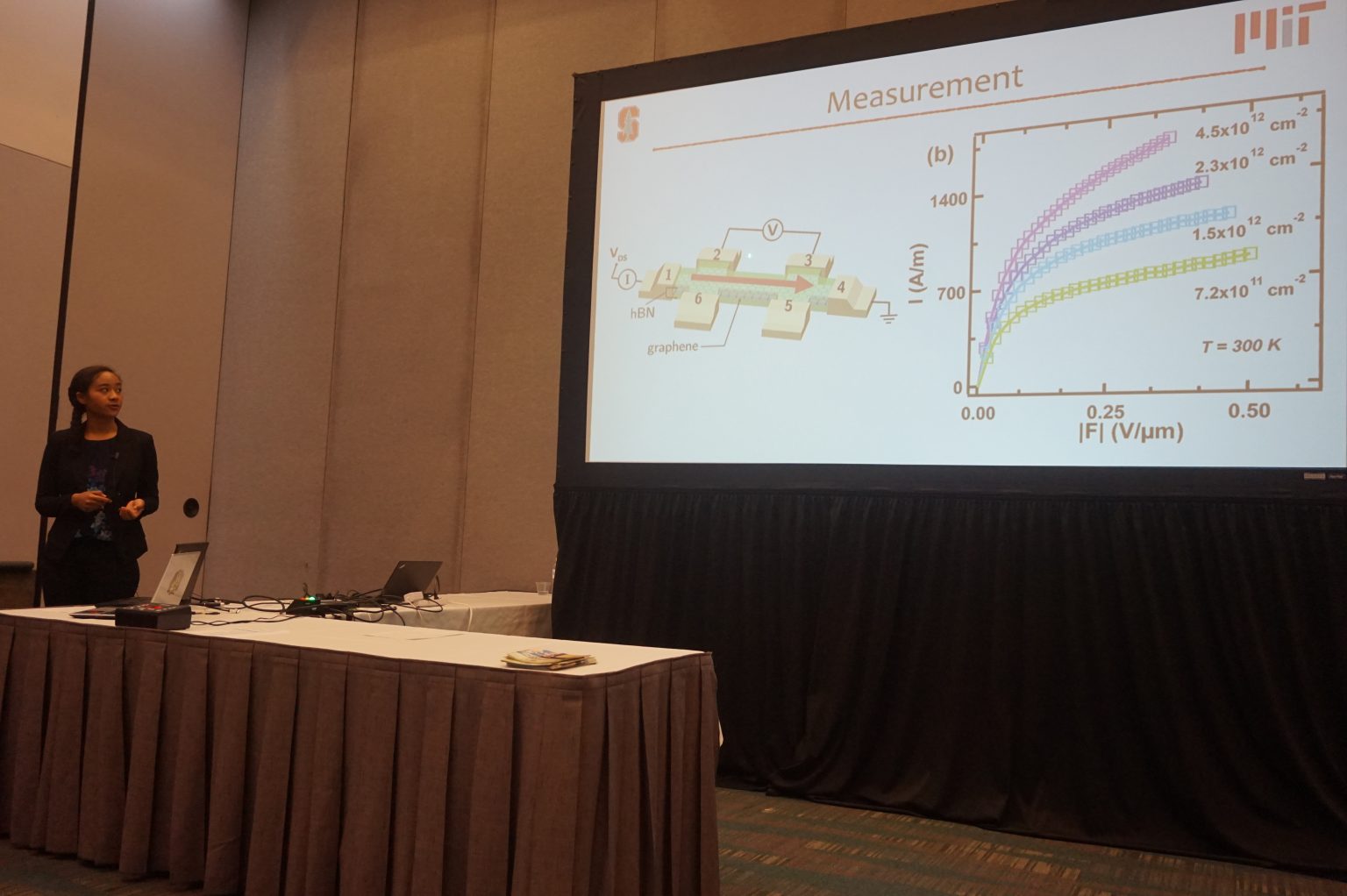
Megan Yamoah, undergraduate student – “High-velocity saturation in graphene encapsulated by hexagonal boron nitride” (B06:3)
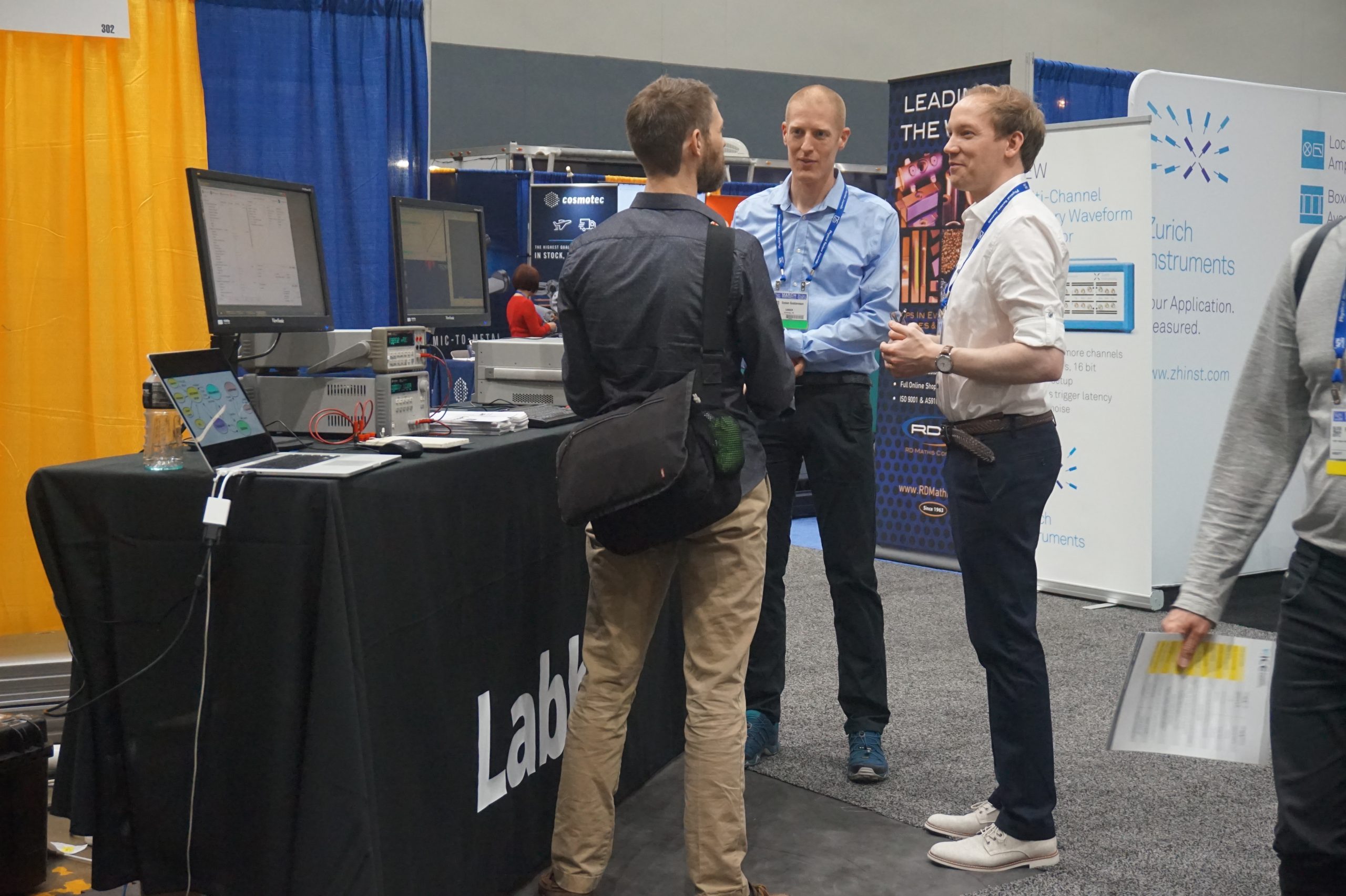
Simon Gustavsson, principal research scientist, and Philip Krantz, postdoc, marketing Labber.
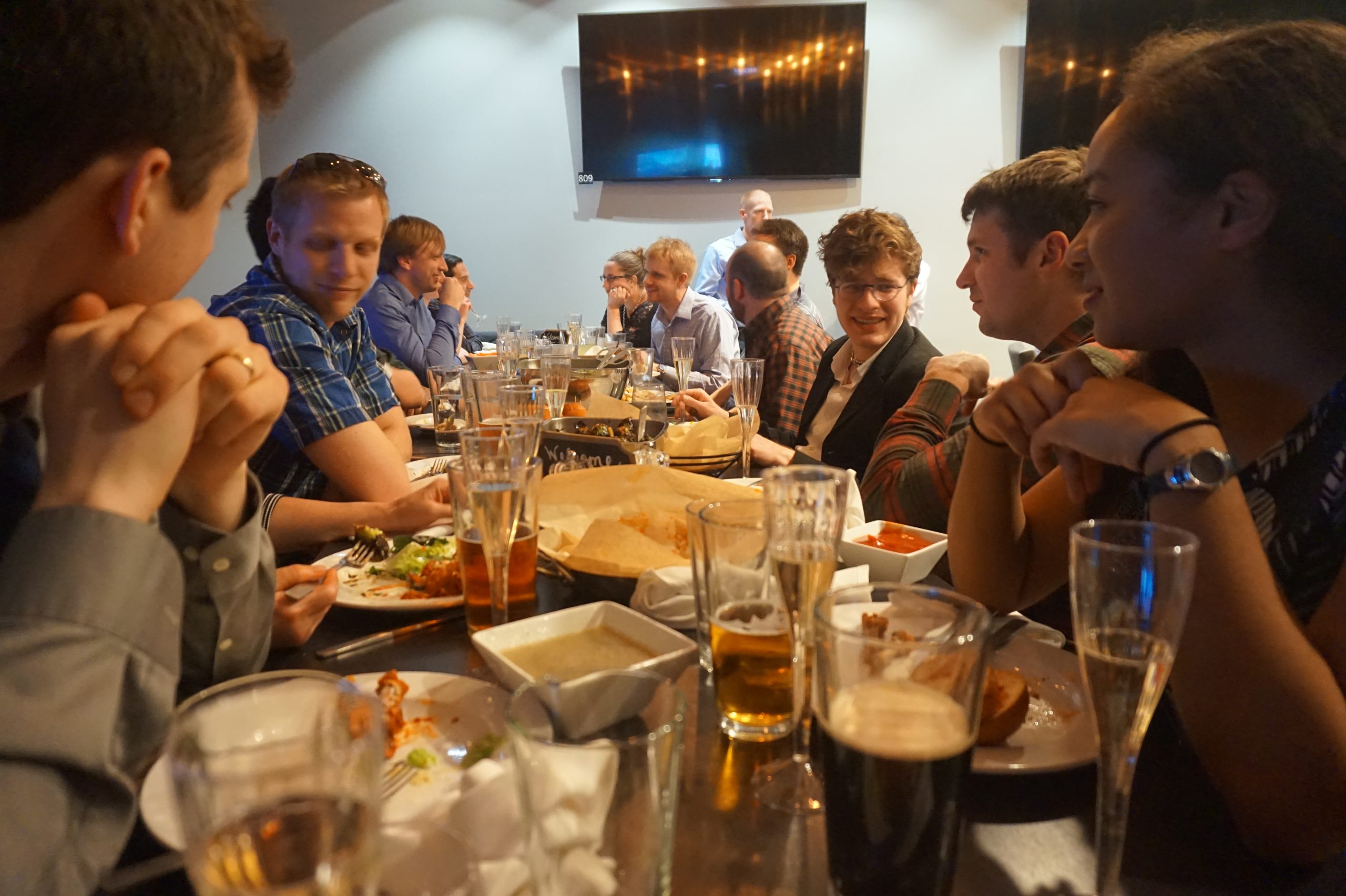
Members of EQuS and colleagues from Lincoln Lab enjoying at an annual collaboration dinner.
3/5-9/2018
EQuS goes to March Meeting 2018 | Los Angeles, CA
The EQuS group traveled to Los Angeles, CA in March for the annual APS March Meeting.
Held at the Los Angeles Convention Center, 14 EQuS members gave presentations over the course of the five-day conference.
- Andreas Bengtsson, visiting graduate student – “Temporal fluctuations in the coherence parameters of planar single-junction transmons” (X33:1)
- Charlotte Bøttcher, graduate student – “Scalable spin-qubit device with a high impedance resonator” (S33:2)
- Daniel Campbell, postdoc – “Single-qubit probe of a 1D transmission line modified by two qubit mirrors” (E28:3)
- Ami Greene, graduate student – “Qubit feedback on a five-qubit transmon device” (L39:2)
- Bharath Kannan, graduate student – “Dissipation-driven entangled state preparation of two qubits coupled to a transmission line” (E28:4)
- Niels Jakob Søe Loft, visiting graduate student – “A quantum transistor with superconducting qubits” (F33:6)
- Tim Menke, graduate student – “A machine learning approach to superconducting circuit design” (S39:4)
- William Oliver, principal investigator – “Progress and Challenges for Engineering Superconducting Qubits” (B05:4)
- Yanjie (Jack) Qiu, graduate student – “Squeezed light generation using a Josephson traveling wave parametric amplifier in non-degenerate four wave mixing” (B33:11)
- Youngkyu Sung, graduate student – “Non-Gaussian noise spectroscopy with superconducting qubits. Part 2: experiment” (L39:7)
- Uwe von Lüpke, visiting graduate student – “An argon ion beam mlling process for native AIOx layers enabling coherent superconducting contacts” (X39:6)
- Joel Wang, postdoc – “Gate-tunable transmon qubit made with graphene/hBN heterostructures” (S33:4)
- Megan Yamoah, undergraduate student – “High-velocity saturation in graphene encapsulated by hexagonal boron nitride” (B06:3)
- Fei Yan, postdoc – “Extensible high-performance two-qubit gate” (A33:11)

January 10, 2025
Professor Will Oliver teaches at KAIST-MIT Quantum Winter School
Professor Will Oliver gave a plenary talk and two lectures at the 2025 KAIST-MIT Quantum Winter School. The Quantum Winter School involves undergraduates from KAIST, SNU, and other universities across South Korea. The aim is to advance quantum information science and technology, and it serves to support increased engagement between the KAIST and MIT. Lectures were also given by Prof. Kevin O’Brien (MIT), Prof. Soonwon Choi (MIT), and Prof. Paola Cappellaro (MIT). Thanks to Prof. Eunseong Kim for organizing this fantastic winter school! From left to right: Prof. Eunseong Kim (Chair, Graduate School of Quantum Science and Technology, KAIST), Prof. Kwang Hyung Lee (President of KAIST), Prof. Kevin O’Brien (MIT), and Prof. Will Oliver (MIT).

December 16, 2024
Professor William D. Oliver was elected a fellow of the IEEE (Institute of Electrical and Electronics Engineers). The IEEE is the world’s largest technical professional organization. The rank of fellow is the highest grade of membership within the IEEE and is bestowed upon senior members who have made extraordinary contributions to the advancement or application of engineering, science, and technology, resulting in a significant impact on society. Will was elevated for his “contributions to superconductive quantum computing technology and its teaching.” Roozbeh Jafari, principal staff in Lincoln Laboratory’s Biotechnology and Human Systems division was also among the 2025 class of Fellows. Congratulations, Will and Roozbeh!
This was featured in MIT Lincoln Laboratory News
See also MIT News

December 13, 2024
In this experiment, we developed and demonstrated two complementary approaches for mitigating counter-rotating errors for fast single-qubit gates. Such errors previously limited the fidelity of fast gates for low-frequency superconducting qubits such as fluxonium. Our first protocol implemented a circularly-polarized microwave drive with simultaneous charge and flux control. Our second protocol, commensurate pulses, leveraged simple timing constraints to homogenize the counter-rotating dynamics for all pulses, leading to their automatic correction by conventional Rabi gate calibrations. With this technique, we achieved single-qubit gate fidelities as high as 99.998%. Congratulations to all authors in the EQuS group and MIT Lincoln Laboratory!
This was also featured in MIT News

December 7, 2024
As we conclude another successful year, we want to take a moment to express our gratitude to our sponsors, collaborators, and colleagues for their unwavering support, as well as to all EQuS members for their dedication and hard work in making this year a success. This year’s efforts culminated in a memorable holiday celebration, where friends, families, and members of EQuS gathered at Glass House to celebrate the accomplishments of the past year over dinner and music from the Harmonic Modes, EQuS’s lab band. As we look ahead to 2025, we send our warmest wishes for a joyful Holiday Season and a New Year filled with continued growth, learning, and success!

December 4, 2024
In this work, we investigated the application of weighted Chebyshev approximation (WCA) in designing quantum gates. Specifically, we examined a class of two-qubit gates in superconducting qubits known as controlled-phase (CPHASE) gates, which leverage interactions between higher levels controlled by baseband flux pulses. We framed the design of CPHASE gates as a pulse design problem and proposed Chebyshev pulses, generated through WCA, as an alternative solution. We presented an illustrative example of designing a Chebyshev pulse with WCA and compared it’s performance to a benchmark Slepian pulse. We found that Chebyshev pulses can in certain cases facilitate faster CPHASE gates while maintaining a fixed leakage error. Congratulations to all authors in EQuS, the Digital Signal Processing Group, and Mitsubishi Electric Research Laboratories!

11/21/2024
David Rower successfully defended his PhD thesis
EQuS graduate student, David Rower, successfully defended his PhD thesis on November 21, 2024! David joined the group in 2019 with a NSF Graduate Research Fellowship and MIT Dean of Science Fellowship, and he was co-advised by Prof. Riccardo Comin in the MIT Physics Department. David’s thesis studied two of the primary factors that limit superconducting qubit performance: decoherence due to flux noise and errors from fast control. In one experiment, he subjected qubits to in-plane magnetic fields and found unexpected trends in the amplitude and character of the flux noise. These results could inform models about the microscopic nature of flux noise. Later, he developed novel control techniques to suppress counter-rotating errors when implementing fast (4 ns) gates in fluxonium qubits. These led to record single-qubit gate fidelities exceeding 99.997%. After EQuS, David will join Google Quantum AI as a Research Scientist. Congratulations, David!

October 30, 2024
In this work, we emulate the dynamics of charged particles moving in electric and magnetic fields using a 4×4 array of superconducting transmon qubits. Parametrically coupling qubits throughout the array realizes a Harper-Hofstader model with an adjustable synthetic magnetic vector potential. Spatially varying the vector potential creates a gauge-invariant magnetic field via Gauss’s law for magnetism, which we verify through Aharonov-Bohm interferometry. Varying the vector potential in time creates an electric field via Faraday’s law of induction, which we verify by observing Wannier-Stark localization. In the presence of both an electric and a magnetic field, we observe the Hall effect—a canonical feature of electrical transport where charge carriers in electromagnetic fields deflect transversely. The techniques developed here are extensible to larger qubit arrays. Congratulations to all authors in the EQuS group and MIT Lincoln Laboratory.
This was also featured in MIT News

06/28/2024
University of Copenhagen and MIT Join Forces for Transatlantic Research in Quantum Computing
Professor Morten Kjaergaard’s group at the University of Copenhagen and the EQuS group at MIT are joining forces to accelerate research in the development of advanced quantum computers. The agreement entails building two identical laboratory setups – one at UCPH and one at MIT, both financed by the Novo Nordisk Foundation Quantum Computing Programme. This collaboration will enable the two research groups to try and solve the biggest quantum puzzles that continue to challenge researchers by exchanging personnel and ideas, running parallel experiments, and comparing results.

04/24/2024
In this work, we probe the entanglement structure of various states using a 4×4 array of transmon qubits, observing a crossover from volume-law to area-law-type entanglement. The 4×4 qubit array emulates the Bose-Hubbard model with a many-body energy spectrum. States near the center of this spectrum exhibit a volume-law scaling of entanglement entropy, whereas states near the edge of the spectrum exhibit an area-law scaling. Creating volume-law entanglement is a key to realizing beyond-classical performance of quantum computers. Our work demonstrates a platform-independent means to characterize area-law versus volume-law entanglement that can scale to larger systems. Congratulations to all authors in the EQuS group and MIT Lincoln Laboratory.

04/22/2024
EQuS Alum Francisca Vasconcelos awarded 2024 Paul and Daisy Soros Fellowship
EQuS alum Francisca Vasconcelo was selected to the Paul and Daisy Soros Fellowships 2024 Class of Distinguished New Americans. Fran’s parents emigrated together from Portugal to the United States in pursuit of world-class scientific research opportunities in the early 1990s. Fran was born in Boston while her parents were PhD students at MIT and Harvard University. Fran graduated from MIT in 2020 with a BS in electrical engineering, computer science, and physics. During her undergraduate years, she conducted substantial research in machine learning and data analysis for quantum computers in EQuS. In 2020, she received the Rhodes Scholarship, which allowed her to pursue an MSc in statistical sciences and an MSt in philosophy of physics at the University of Oxford. Currently, she is pursuing a computer science PhD and is an NSF Graduate Research Fellow at the University of California Berkeley. Congratulations, Fran!

04/18/2024
Professor William D Oliver was recently elected a fellow of the AAAS (American Association for the Advancement of Science). The AAAS Fellow is a prestigious honor awarded by the AAAS to individuals who have made significant contributions to the advancement of science and technology. The fellowship is bestowed upon scientists, engineers, and innovators across various disciplines, recognizing their outstanding achievements and their efforts to advance science or its applications. The MIT cohort this year also includes Prof. Daniel Rothman, Prof. Bevin Engelward, and Prof. Vladan Vuletic. Congratulations, Will and all!
This was also featured in MIT News.

09/25/2023
In this experiment, we proposed and demonstrated an architecture for fluxonium-fluxonium two-qubit gates mediated by a transmon coupler. The architecture enabled strong couple (fast two-qubit gates) while suppressing unwanted ZZ interactions to the kilohertz level over a wide range of frequencies. We demonstrated single qubit gates exceeding 99.99% and two-qubit gates exceeding 99.9% using model-free reinforcement learning to tune the gates. The circuit was fabricated at MIT Lincoln Laboratory, with each fluxonium qubit comprising an array of 102 Josephson junctions. Congratulations to all authors in the EQuS group and MIT Lincoln Laboratory!

08/29/2023
In this work, the authors investigated a learning-based approach to calibrating flux crosstalk for precise qubit frequency control, and demonstrated its efficacy on an array of 16 flux-tunable transmons. The overall calibration time for this learning-based approach grows linearly with array size, a marked improvement over quadratically-scaling direct measurement approaches. This work contributes to the growing need for extensible calibration techniques as qubit array sizes continue to increase. Congratulations to all the authors in EQuS and Lincoln Laboratory! Congratulations to all authors!

06/30/2023
In this experiment, we measured flux-noise-limited qubit dephasing while applying in-plane magnetic fields, unveiling distinct signatures that include a 1/f to approximately Lorentzian transition in the noise power spectral density below 10 Hz, and a suppression of noise above 1 MHz with increasing field. These trends suggest the importance of spin-spin interactions, and serve as new clues to elucidate the microscopic physics of 1/f flux noise in superconducting circuits. The work is a collaboration between researchers with the EQuS group, the Comin group, and MIT Lincoln Laboratory. Congratulations to all authors!

06/20/2023
Montpellier, France – Joel Wang, a research scientist at EQuS, recently spoke at the BNW2023 Inaugural Workshop on Hexagonal Boron Nitride (hBN). The workshop highlighted the growing research community dedicated to hBN, a versatile material with applications in electronics, polaritonics, lighting, imaging, quantum technologies, biology, materials science, and theory.
During his presentation, Joel focused on utilizing hBN as a low-loss dielectric in the construction of superconducting quantum devices. Specifically, he discussed the development of compact components like parallel plate capacitors and Josephson junctions. These hBN-based devices enable significant reductions in qubit size and minimize unwanted coupling between neighboring qubits, which is crucial for constructing multi-qubit quantum processors.

05/27/2023
Cora and her team win the 2023 NCAA Division III National Championship
EQuS UROP Cora Barrett (undergrad at Wellesley College) and her teammates from the Wellesley Varsity Crew team won the 2023 NCAA Division III National Championship on Saturday at Cooper River. This win marked a historic achievement for the program, as they claimed consecutive NCAA National Championships for the first time and earned their third overall title (2016).
Cora was also named the NCAA Elite 90 winner for Division III Rowing. The Elite 90 is an award established by the NCAA that celebrates student-athletes who excel both in their sport at the national championship level and academically. It is presented to the student-athlete with the highest cumulative grade-point average among their peers participating in each of the NCAA’s 90 championships. Congratulations, Cora and her team at Wellesley College!

05/26/2023
Beatriz Yankelevich selected for 2023 Hertz Fellowship
Congratulations to Beatriz Yankelevich, who was awarded a 2023 Hertz Fellowship! The Hertz Fellowship is awarded annually to the nation’s most promising graduate students in science and technology. Beatriz is one of 15 fellows selected this year, joining a community of 1,200 Hertz fellows whose ranks include two Nobel laureates; recipients of 10 Breakthrough Prizes and three MacArthur Foundation “genius awards”; and winners of the Turing Award, the Fields Medal, the National Medal of Technology, and the National Medal of Science, among others. The Hertz Fellowship provides Beatriz with five years of funding, which will support her while she spends her time in EQUS researching waveguide quantum electrodynamics. Beatriz has also been awarded the National Science Foundation Graduate Research Fellowship this year! Congratulations, Beatriz!!

05/11/2023
EQuS research supported by FRIF grant featured on Corridor
The spring 2023 issue of Corridor featured an article on building quantum computers supported by a Faculty Research Innovation Fund grant entitled, “Leaping at a Quantum Opportunity – An IRA gift makes new research paths possible.” With the Faculty Research Innovation Fund (FRIF) grant support, EQuS initiated a new project on semiconducting qubits. Semiconducting qubits offer interesting physics and engineering challenges that may benefit from our group’s knowledge in superconducting devices and control. They may also enable more compact quantum computers in the long term. Along with Will, our postdoc, Ilan, and our graduate students, Aziza, Beatriz, and Harry appear in the article.

04/03/2023
Work from the ADMX collaboration that MITLL and EQuS contributed to was published today in the Review of Scientific Instruments. In this work, the authors demonstrated the integration of a JTWPA fabricated at MITLL into their axion dark matter search experiment. The use of the JTWPA offered similar energy sensitivity to other recent experimental demonstrations, and opens the door to use the large instantaneous bandwidth of the JTWPA for broadband axion searches, which have been alongtime goal of the field. This experiment highlights the intersectionality of quantum device physics and other fields such as high-energy physics – congratulations to all the authors!

Part of the EQuS, alongside colleagues from Lincoln Lab, and alumni.

Members of EQuS , an alumnus, and a collaborator at the conference venue.
3/5/2023 – 3/10/2023
EQuS attends APS March Meeting 2023 | Las Vegas, Nevada
The annual APS March Meeting was held at the Caesars Forum Convention Center in Las Vegas, Nevada this year.
25 EQuS members from campus and Lincoln Lab gave presentations over the course of six-day conference. Everyone did an amazing job presenting their work. We had a wonderful group dinner on Tuesday evening. Congratulations to the entire group!!
- Aziza Almanakly, graduate student – “Absorbing a Directional Microwave Photon with Waveguide Quantum Electrodynamics” (A73/004)
- Bryce I Fisher, Lincoln Lab – “Developing robust protocols for calibration of a 25-qubit annealing device” (B53/003)
- Leon Ding, graduate student – “An Architecture for High-Fidelity, Robust Two-Qubit Fluxonium Gates with a Transmon Coupler” (F75/003)
- Kate Azar, Lincoln Lab – “Measurement of Planar Fluxonia” (F75/005)
- Kyle Serniak, Lincoln Lab – “Dephasing in Fluxonium Qubits from Coherent Quantum Phase Slips” (F75/010)
- Patrick M Harrington, postdoc – “Diagnosis and Mitigation of Correlated Errors in Superconducting Qubits from Ionizing Radiation” (G75/009)
- Christopher McNally, graduate student – “Single-Photon Subtraction in Circuit QED” (K75/002)
- Qi (Andy) Ding, graduate student – “Signal Processing Perspectives on Pulse Design for Two-Qubit Gates in Superconducting Circuits” (K70/007)
- William D Oliver, PI – “Giant Artificial Atoms and Waveguide QED” (K69/004)
- Cora N Barrett, undergraduate student – “Learning-based Calibration of Flux Crosstalk in a Transmon Qubit Array” (M71/003)
- Junyoung An, graduate student – “Measurement of the soft 0-pi qubit with small junction and inductive energies” (M75/006)
- Sameia Zaman, graduate student – “Kinetic Inductance Measurement of Niobium Diselenide (NbSe2) using MicrowaveTechniques” (M73/010)
- Ilan Rosen, postdoc – “Designing improved zero-pi qubits using small-area capacitors” (M75/009)
- Thomas M Hazard, Lincoln Lab – “Measurements of superconducting qubits containing through-silicon vias” (N74/002)
- William P Banner, graduate student – “Enhancing Optimization Techniques with Quantum-Inspired Generative Models (Part 1)” (N73/005) (Part 2 was presented by Zapata Computing Inc.)
- Donna-Ruth W Yost, Lincoln Lab – “A 3-tier stack for 3D integration of superconducting quantum systems – part 1: Interposer tier with superconducting TSVs and qubits” (N74/004)
- Cyrus F Hirjibehedin, Lincoln Lab – “A 3-tier stack for 3D integration of superconducting quantum systems – part 2: qubit design and performance” (N74/005)
- Agustin Di Paolo, former postdoc – “Quantum optimal control in a generalized rotating frame” (Q71/003)
- Jeffrey Knecht, Lincoln Lab – “A 200 mm Wafer Size Superconducting Qubit Foundry at MIT Lincoln Laboratory” (Q75/005)
- Amir H Karamlou, graduate student – “Probing locality and entanglement properties across the many-body spectrum using a superconducting processor” (S64/008)
- Sarah E Muschinske, graduate student – “Quantum State Preparation on a Superconducting Qubit Lattice” (T64/008)
- Shoumik Chowdhury, graduate student – “Bosonic error correction using a bit-flip-protected control qubit: Part 1” (W73/003)
- Shantanu R Jha, graduate student – “Bosonic error correction using a bit-flip-protected control qubit: Part 2” (W73/004)
- David A Rower, graduate student – “Suppressing 1/f Magnetic Flux Noise in Superconducting Qubits with Weak Magnetic Fields (Part 1)” (Y73/010)
- Lamia Ateshian, graduate student – “Suppressing 1/f Magnetic Flux Noise in Superconducting Qubits with Weak Magnetic Fields (Part 2)” (Y73/011)

02/12/2023
In this work, we introduce a dispersion-engineered Josephson traveling-wave parametric amplifier (JTWPA) that is designed for squeezing. The device comprises more than 3000 Josephson junctions and is periodically-loaded by phase-matching resonators that enable dual-pump operation. The resulting device features excellent performance in both phase-preserving and phase-sensitive amplification. In addition, it produces highly squeezed single-mode vacuum states, and broadband two-mode squeezed vacuum states, with application to quantum information science and technology requiring nonclassical light. This work was also the featured story on the MIT homepage on Feb 10th, 2023. The work as Congratulations, Jack, Kaidong, and all co-authors at EQuS and Lincoln Laboratory, Arne (now at AWS), and Professor Irfan Siddiqi at UC Berkeley.
Their article was also featured in MIT News.

1/22/23 – 1/23/2023
The first in-person Quantum Science and Engineering Consortium (QSEC) Annual Research Conference (QuARC) was held at Omni Mount Washington Resort in New Hampshire. QuARC 2023 was also featured in MIT News.
There was two fantastic plenary talks by Peter Shor from MIT, who spoke about quantum error correction theory, and Erik Lucero from Google. Who spoke about recent demonstrations of quantum error correction.
On the second day, the event had research pitches and poster sessions where the latest results from MIT research were presented. The winners for each pitch and session were selected by MIT faculty and researchers. EQuS graduate students, Aziza Alamankly and Beatriz Yankelovich won the best poster at “Session 1: Superconducting Quantum Systems,” and EQuS postdoc, Patrick Harrington won the best poster at “Session 6: Quantum Sensing & Imaging.” EQuS postdoc, Daniel Rodan-Legrain won both best poster and pitch at “Session 7: Low-Dimensional Materials and Devices.” Congratulations, Aziza, Beatriz, Patrick, and Dani! Also, special thanks to Sarah Muschinske and other QuARC committee members for organizing this event!

01/05/2023
In this work we demonstrate high-fidelity, on-demand, directional, microwave photon emission. We do so by using an artificial molecule comprising two superconducting qubits strongly coupled to a bidirectional waveguide. Quantum interference between the photon emission pathways from the molecule generates single photons that selectively propagate in a chosen direction. The result effectively creates a chiral microwave waveguide. This is a first step in our path to realize high-fidelity and high-connectivity quantum interconnects and extensible networks of quantum processors. Their work was also the featured story on the MIT homepage on Jan 6th , 2023. Congratulations, Bharath, Aziza, and all co-authors at EQuS and Lincoln Laboratory!
Their article was featured in MIT News.
See also News & Views by Simon Gasparinetti.

12/20/2022
Alex Greene successfully defended their PhD Thesis
EQuS graduate student, Alex Greene, successfully defended their PhD thesis on December 20, 2022! Alex joined EQuS in the Fall of 2016 with the Alan McWhorter Fellowship, and has since been awarded fellowships from QISE-NET and Google. Alex’s thesis work addressed two-qubit gates errors in superconducting qubits. They developed protocols for calibrating high-fidelity CZ and a technique called Quantum Measurement Emulation for mitigating coherent errors in logical qubits. They used those techniques to run an operation called Density Matrix Exponentiation. During an internship with Google Quantum AI, Alex also worked on the automated calibration of CPhase gates. After graduating, Alex hopes to continue working on superconducting qubits in industry.
Congratulations, Alex!

12/13/2022
EQuS Alum Sihao Huang awarded 2023 Marshall Scholarship
On December 13, 2023 EQuS alum Sihao Huang was selected to be part of the 2023 class of Marshall Scholars and will begin graduate students in the U.K. next fall. This prestigious scholarship enables him to study in England for two years. Huang will study for a DPhil in politics at Oxford. He aspires to apply insights from complexity science to comparative politics, eventually working at the intersection of academia and government on policy design and evaluation. He is currently pursuing a master’s in global affairs at Tsinghua University in China as a 2023 Schwarzman Scholar.
Marshall Scholars are also featured in MIT News.

12/12/2022
Professor William Oliver was appointed to the National Quantum Initiative Advisory Committee (NQIAC)
On December 9, 2022 President Biden appointed Professor William D Oliver to the National Quantum Initiative Advisory Committee (NQIAC), 1 of 15 members who will provides advice to the Biden-Harris Administration and help maintain US leadership in quantum information science (QIS). President Biden enhanced NQIAC through an Executive Order, which elevated the committee to a presidential advisory committee, highlighting that the National Quantum Initiative is a whole-of-government effort that rises above any one Federal agency. The members of NQIAC include distinguished individuals from industry, universities, Federal laboratories, and other Federal Government agencies who are prominent in their fields, recognized for their achievements, and from diverse backgrounds. Congratulations, Will!

11/21/2022
Tim, Will, and co-authors describe the first experimental demonstration of static, tunable 3-body interactions between quantum bits. Such interactions are counterintuitive as there is no corresponding coupling between classical objects. However, numerous proposed quantum simulation and quantum computing applications rely on many-body interactions. The work was performed on a circuit architecture in which a coupler mediates interactions between three flux qubits. Using multi-qubit pulse sequences that enable interferometry between all neighboring excitation manifolds, the team verified that the system exhibits a 3-qubit coupling that is coherently tunable. Congratulations, Tim, Will, and all collaborators at EQuS and Lincoln Laboratory!

11/4/2022
Gabriel Samach successfully defended his PhD Thesis
EQuS graduate student, Gabriel Samach, successfully defended his PhD thesis on November 4, 2022! Gabriel joined EQuS in the Fall of 2018 as a Lincoln Scholar, a prestigious 4-year fellowship from MIT Lincoln Laboratory that supports Lincoln staff members who wish to pursue graduate studies. Gabriel’s thesis work addressed both theoretical and experimental aspects of noise characterization and mitigation on systems of superconducting qubits. He developed a technique called Lindblad tomography and applied it to the characterization of single-qubit and two-qubit gates. He also performed experiments on quantum annealing and gate-model systems, including tests of quantum-state purity and error mitigation schemes. After graduating, Gabriel is returning to the Quantum Information and Integrated Nanosystems group at MIT Lincoln Laboratory to continue his work with superconducting qubits. In this capacity, we look forward to continuing to work with Gabriel at MIT campus. Congratulations, Gabriel!

10/25/2022
Will is appointed Henry Ellis Warren (1894) Professor in EECS!
The Department of Electrical Engineering and Computer Science (EECS) announced that Professor William Oliver has been named the Henry Ellis Warren (1894) Professor.

10/13/2022
MIT News posted an article on EQuS graduate student Alex Greene entitled, “Making quantum computers more accurate.”
The article highlights Alex’s biography, research work, and interests outside of the research field. Alex earned a bachelor’s degree in physics and electrical enginnering and computer science from MIT. After the completion of the bachelor’s degree, Alex continued studying at MIT to pursue a master’s degree in quantum computing, working at Lincoln laboratory, and joined EQuS in 2017. Alex is currently working on the dilution fridge to make superconducting quantum computers more accurate by reducing the impact of these errors.

10/7/2022
Thomas, Tim, Will, and collaborators’ manuscript, “Distinguishing Multispin Interactions from Lower-Order Effects,” was published in the Physical Review Applied! In this work, we proposed experimental methods capable of characterizing multispin interactions in noisy spin systems by distinguishing these interactions from lower-order effects. These multispin interactions are of large practical importance as these provide a natural way of mapping combinatorial optimization problems to quantum computers. However, these interactions are hard to measure and detect experimentally due to their small magnitudes and that these are overshadowed by lower-order spin effects. Using numerical and theoretical arguments, we showed that by carefully measuring qubit transitions energies and rates, multispin interactions present a unique signature in a quantum system, which allows their observation. The proposed experimental methods are shown to be robust to experimental errors, and can be applied to realistic quantum devices, such as current noisy superconducting qubit architectures. Congratulations, Thomas, Tim, Will, and all co-authors at EQuS and Lincoln Laboratory!

9/12/2022
Will Discussed Quantum Computing with Professor Peter Shor on Podcast
Professor William Oliver and Professer Peter Shor discussed the current state and future possibilities of quantum computing on the MIT’s Computer Science and Artificial Intelligence Laboratory Alliances podcast series.
You can listen to the podcast using this link: https://bit.ly/3L5rYXa

7/22/2022
Bharath Kannan awarded the 2022 Dimitris N. Chorafas Prize
Dr. Bharath Kannan, who received his PhD from MIT in May 2022, was awarded the 2022 Dimitris N. Chorafas Prize for his dissertation titled “Waveguide Quantum Electrodynamics with Superconducting Qubits”! The Dimitris N. Chorafas Foundation awards scientific prizes for outstanding work in selected fields in the engineering sciences, medicine, and the natural sciences. It rewards research characterized by its high potential for practical application and by the special significance attached to its aftermath. This year the Chorafas Foundation conferred 28 prizes to recent graduates from institutions worldwide. Congratulations, Bharath!

5/28/2022
Cora and her team win the 2022 NCAA DIII National Championship
EQuS UROP Cora Barrett (undergrad at Wellesley College) became a DIII Rowing National Champion! The Wellesley Varsity Crew team won the 2022 NCAA DIII National Championship, which was hosted in Sarasota, FL at the end of May. Cora raced in Wellesley’s 2nd varsity eight. Her boat’s second place finish helped secure the title for Wellesley, beating last year’s defending champs, Bates, by 1 point overall. Congratulations, Cora and her team at Wellesley College!

5/16/2022
Postdoctoral Associate Max Hays awarded IC Postdoctoral Research Fellowship
Max’s proposal, “Bosonic Error Correction Using Bit-Flip Protected Control Qubits” was selected for funding under the IC Postdoctoral Research Fellowship program! Bosonic error correction is currently limited by bit-flips of auxiliary transmon control qubits. Max will work on this problem by investigating control circuits beyond the transmon. Congratulations, Max!

5/6/2022
Bharath Kannan successfully defended his PhD Thesis
EQuS graduate student, Bharath Kannan, successfully defended his PhD thesis on May 6, 2022! Bharath joined EQuS in 2016, and over the past 6 years, he conducted research focused on microwave quantum optics and waveguide quantum electrodynamics using superconducting circuits. In his talk, Bharath discussed the strong-coupling regime of a waveguide QED architecture which occurs by coupling superconducting artificial atoms, typically referred as qubits, to one-dimensional transmission lines. Through his thesis research, Bharath realized the giant-atom regime of waveguide QED, where the atom can no longer be treated as a point-like object, and used the giant atoms to implement tunable atom-waveguide couplings, as well as decoherence-free waveguide-mediated interactions between multiple atoms. After graduating from MIT this spring, he will co-found the start-up Atlantic Quantum, along with other EQuS members. Congratulations, Bharath!

4/26/2022
Daniel Rodan Legrain awarded 2022 Rafael del Pino Excellence Scholarship
The Rafael del Pino Excellence Scholarships program aims to train Spanish leaders, foster the spirit of enterprise and entrepreneurship in Spain, and to research and disseminate knowledge. For this purpose, the Foundation offers a series of scholarships for Spanish university graduates to enable them to continue their studies fulltime, including the possibility of teaching, at top level universities and research establishments worldwide. Congratulations, Dani!

4/21/2022
Tim Menke successfully defended his PhD Thesis
EQuS group member Tim Menke successfully defended his PhD thesis! Tim joined the group in 2017 and has studied multi-qubit interactions during his PhD. Such interactions are necessary for numerous quantum simulation and analog quantum computation tasks. Working at the intersection of computational modeling and experimental implementation, Tim has devised a new method to optimize superconducting circuit diagrams. He then used the method to demonstrate multi-qubit interactions in the lab. In addition, he has developed quantum algorithms to facilitate superconducting circuit simulations on near-term quantum computers. Tim was co-advised by Will Oliver and Alán Aspuru-Guzik, building collaborations between their teams and other academic and industrial groups. After his PhD, Tim is excited to engineer next-generation quantum computers together with his co-founders of EQuS-spinout Atlantic Quantum. Congratulations, Tim!

4/15/2022
Daniel Rodan Legrain successfully defended his PhD Thesis
EQuS collaborator, Daniel (Dani) Rodan Legrain successfully defended his PhD Thesis on April 15, 2022! Dani has been a graduate student in Prof. Pablo Jarillo-Herrero’s group. During his PhD, Dani also worked with EQuS on hybrid superconducting circuits with 2D materials. In his talk, he presented a series of experiments that leveraged the proximity effect and twisted angle designs that induce superconductivity and strong correlations in graphene-based systems. His contributions include the development of graphene-based superconducting devices and the observation of the rich phase diagram of magic-angle twisted bilayer graphene (MATBG) devices. After graduating from MIT this spring, Dani will continue working with EQuS as a post doc on hybrid superconducting circuits with 2D materials. Congratulations, Dani!

4/13/2022
Youngkyu Sung successfully defended his PhD Thesis
EQuS graduate student, Youngkyu Sung, successfully defended his PhD thesis on April 13, 2022! Youngkyu joined EQuS in 2016, and over the past 6 years, he addressed topics related to achieving high-fidelity two-qubit gates and characterizing underlying noise mechanisms in superconducting qubits. In his talk, Youngkyu discussed his approach to engineering two-qubit gates with nearly 99.9% fidelity—including fast adiabatic control and the impact of higher-energy levels of the qubits and coupler. He also discussed leveraging multiple level transitions of a transmon sensor to distinguish the noise contributions from flux and photon shot noise. These are just two of the many contributions Young has made to the community. After graduating from MIT this spring, he will work on building scalable, high-fidelity quantum hardware. Congratulations, Young!

4/4/2022
Graduate Student Shantanu Jha awarded NSF GRFP Fellowship
Graduate student, Shantanu Jha, awarded 2022 the National Science Foundation (NSF) Graduate Research Fellowship Program (GRFP) fellowship! NSF GRFP recognizes and supports outstanding graduate students who are pursuing research-based master’s and doctoral degrees in fields within NSF’s mission, including quantum computation. The GRFP provides up to three years of support for the graduate education of individuals who have demonstrated their potential for significant achievements in science and engineering research. Congratulations, Shantanu!

4/1/2022
Shantanu and his team win the 1st place at the 10th Annual NYU Abu Dhabi International Hackathon
Shantanu and his team won the 1st place in the 10th Annual NYU Abu Dhabi International Hackathon for Social Good through Quantum Computing! Shantanu co-mentored Team Qudra, which had 7 students from across the world, with a fellow mentor, Akash Kant at the Hackathon. Leveraging the diverse expertise of this talented team, they built Qudra, an open-source python package aiming to bring quantum advantage to the optimization of distributed and renewable energy grids for energy security and sustainability. After publishing this package on PyPI and running QUBO optimizations on IBM Qiskit simulators as well as real D-Wave annealers, Team Qudra was awarded 1st place in the hackathon. Congratulations, Shantanu and Team Qudra!

3/28/2022
EQuS UROP Cora Barrett awarded 2022 Goldwater Scholarship
Cora Barrett has been selected as a Goldwater Scholar for the class of 2022 – 2023! The Barry Goldwater Scholarship and Excellence in Education Foundation was established by Congress in 1986 to serve as a living memorial to honor the lifetime work of Senator Barry Goldwater. This program seeks to identify and support college sophomores and juniors who show exceptional promise of becoming this Nation’s next generation of research leaders in the natural sciences, mathematics and engineering fields. This is certainly true of Cora, who is currently a junior at Wellesley College double majoring in Physics and Mathematics while also being a member of the crew team (whew!). Congratulations, Cora, you earned it!!

3/28/2022
Yariv, Jochen, and collaborators’ manuscript, “Mediated Interactions beyond the Nearest Neighbor in an Array of Superconducting Qubits,” was published in Physical Review Applied! In this work, we consider the properties of arrays of “floating” transmon qubits, which are not all connected to the same ground. We find that an extraneous degree of freedom in these qubits, not usually considered in their analysis, can mediate a different kind of coupling in the array, even between qubits that are not physically connected. This coupling can be tuned to different regimes by changing the physical parameters of the array and could be used in designing new systems with interesting properties. Congratulations Yariv, Jochen, and all co-authors at EQuS and the LPS!

3/26/2022
Amir, Jochen, Yariv, and collaborators’ manuscript, “Quantum transport and localization in 1d and 2d tight-binding lattices” was published today in Nature Publication Journals (npj) Quantum Information. In this work, performed in collaboration with Yariv Yanay and Charlie Tahan at the Laboratory for Physical Sciences (LPS), we used hybrid analog-digital procedures on a 3×3 array of superconducting qubits to emulate the dynamics of a tight-binding model with controllable potential configurations. The degree of experimental control achieved in engineering the system Hamiltonian enables us to emulate the tight-binding time dynamics with high accuracy. We probed quantum random walks and the resulting entanglement propagation, Anderson localization, and Wannier-Stark localization with Bloch oscillations in 1D and 2D tight-binding lattices. Congratulations Amir, Jochen, Yariv, and all co-authors at EQuS, Lincoln Laboratory, and the LPS!

William P Banner, graduate student – “Quantum Enhanced Optimization for Industrial-Scale Problems” (S37.00003)

Members of EQuS enjoying at an annual collaboration dinner.
3/14-18/2022
EQuS attends APS March Meeting 2022 | Chicago, IL
The annual APS March Meeting was held in-person at McCormick Place in Chicago, Illinois this year.
25 EQuS members from campus and Lincoln Lab gave presentations over the course of five-day conference. Everyone did a fantastic job presenting their work. And, we had a wonderful group dinner on Wednesday evening. Congratulations to the entire team!!
- Joel I Wang, research scientist – “Hexagonal Boron Nitride (hBN) as a Low-loss Dielectric for Superconducting Quantum Circuits and Qubits” (A41.00003)
- David A Rower, graduate student – “Direct Detection of Surface Spins using Superconducting Qubits” (B41.00005)
- Leon Ding, graduate student – “Microwave activated two-qubit gate for fluxonium qubits via a tunable-transmon coupler” (D36.00006)
- Thomas M Hazard, Lincoln Lab – “Superconducting-semiconducting voltage-tunable qubits in the third dimension” (D38.00002)
- Yariv Yanay, former visiting scientist – “Locality and entanglement properties across the many-body spectrum in a 4×4 array of superconducting qubits (part 1): Theory” (D40.00001)
- Amir H Karamlou, graduate student – “Locality and entanglement properties across the many-body spectrum in a 4×4 array of superconducting qubits (part 2): Experiments” (D40.00002)
- Greg Calusine, Lincoln Lab – “Analysis and mitigation of interface losses in transmon qubit” (D41.00002)
- Miuko Tanaka, postdoc – “Temperature-induced phase transitions in the correlated quantum Hall state of bilayer graphene” (D56.00015)
- Benjamin Lienhard, former graduate student – “Reinforcement Learning assisted Pulse Shaping for Superconducting Qubit Readout” (F41.00002)
- Thomas R Bergamaschi, undergraduate student – “Distinguishing multi-spin interactions from lower order effects” (G35.00008)
- James I Basham, Lincoln Lab – “Fast, Scalable Calibration of a Quantum Annealer” (G38.00006)
- Bharath Kannan, graduate student – “Bidirectional Generation of Itinerant Microwave Photons with Waveguide Quantum Electrodynamics (Part 1)” (G41.00001)
- Aziza Almanakly, graduate student – “Bidirectional Generation of Itinerant Microwave Photons with Waveguide Quantum Electrodynamics (Part 2)” (G41.00002)
- Gabriel O Samach, graduate student – “Lindblad Tomography of a Superconducting Quantum Processor” (K35.00008)
- Steven M Disseler, Lincoln Lab – “Implementation of a 25-Qubit System for Analog Quantum Computing” (K38.00004)
- Tim Menke, graduate student – “Engineering multi-qubit interactions between superconducting flux qubits” (K41.00002)
- Sarah E Muschinske, graduate student – “Design and Characterization of 3D-Integrated Superconducting Qubit Lattices” (K41.00005)
- Patrick M Harrington, postdoc – “Investigation of Superconducting Qubit Errors from Ionizing Radiation” (M41.00005)
- Kyle Serniak, Lincoln Lab – “Spatiotemporally-correlated quasiparticle-induced transitions in arrays of transmon qubits” (M41.00008)
- Youngkyu Sung, graduate student – “Characterizing and mitigating crosstalk errors of simultaneous entangling gates in a superconducting circuit”( N41.00005)
- Alexander Melville, Lincoln Lab – “Low-loss parallel-plate capacitor for superconducting quantum circuits” (Q41.00006)
- William P Banner, graduate student – “Quantum Enhanced Optimization for Industrial-Scale Problems” (S37.00003)
- Amy Greene, graduate student – “Error Mitigation Via Emulated Measurement of Stabilizers” (S40.00003)
- Junyoung An, graduate student – “Improving quantum control of the soft 0-pi qubit through device engineering” (S41.00001)
- Agustin Di Paolo, postdoc – “Engineering microwave-activated interactions for two-qubit gates and coherent-error suppression” (Z41.00013)

3/11/2022
Will and colleagues’ manuscript, “Building a Quantum Engineering Undergraduate Program”, was published in IEEE Transactions on Education. In this work, funded by the NSF, a workshop of 480 QISE researchers from across academia, government, industry, and national laboratories was convened, and representative authors developed a roadmap for building a quantum engineering education program to satisfy U.S. national and international workforce needs. Congratulations Will and colleagues worldwide!

1/27/2022
Joel, Megan and collaborators’ manuscript, “Hexagonal Boron Nitride as a low-loss dielectric for superconducting quantum circuits and qubits”, was published today in Nature Materials! The publication was also featured in MIT News. In this work, we show that a superconducting qubit made with van der Waals heterostructures (a NbSe2-hBN-NbSe2 parallel-plate capacitor) can reduce the size of a qubit by at least 2 orders of magnitude, while the coherence times remains comparable to the conventional, aluminum-based qubit within the same device. The reduction in size and the potential to avoid unwanted cross-talk between qubits may advance extensible quantum technologies that will lead to practical machines in the future. Congratulations Joel, Megan, and co-authors at EQuS, MIT Physics, and Lincoln Laboratory!

1/21/2022
Ben, Antti, Cole, and collaborators’ manuscript, “Deep-Neural-Network Discrimination of Multiplexed Superconducting-Qubit States,” was published today in Physical Review Applied! In this work, performed in collaboration with Raytheon BBN Technologies, we demonstrate a 25% improvement in the readout fidelity of a 5-qubit system using a feedforward neural network over conventional discrimination approaches. Congratulations Ben, Antti, Cole, and all co-authors in EQuS, Lincoln Laboratory, and Raytheon BBN Technologies.

1/18/2022
Chris, PhD student Charles Yuan, and Professor Michael Carbin’s manuscript, “Twist: sound reasoning for purity and entanglement in quantum programs,” was published in Proceedings of the ACM on Programming Languages. Charles, the lead author, is presenting the work this week at the ACM SIGPLAN Symposium on Principles of Programming Languages (POPL 2022). It was also featured in MIT CSAIL news.Programs for quantum computers are difficult to debug because of the intricate quantum correlations formed during their execution, which make tomographic verification prohibitively costly. This work presents Twist, a quantum programming language with a static type system that tracks the purity of expressions. By reasoning about entanglement in advance of program execution, Twist can prove the absence of certain bugs at the cost of adding only lightweight program annotations. Dynamic purity assertions further enhance the expressivity of the language while incurring only minimal simulation overhead. Congratulations Chris, Charles, and Michael!

1/7/2022
Morten, Mollie, Ami, and Gabriel’s manuscript, “Demonstration of Density Matrix Exponentiation Using a Superconducting Quantum Processor,” was published today in Physical Review X! In this work, we use a 99.7% fidelity CZ gate and quantum measurement emulation to demonstrate the density matrix exponentiation algorithm, a means to efficiently feed-forward quantum information without the need for tomographic reconstruction. This work is the first experimental demonstration of quantum instructions! Congratulations Morten, Mollie, Ami, Gabriel and co-authors in EQuS and Lincoln Laboratory.

12/23/2021
Holiday Greetings from EQuS
As we approach the end of another successful year, we would like to take this opportunity to thank our sponsors, collaborators, and colleagues for their continued support.
Also, we are very thankful for all of the hard work and effort that the EQuS members have put in to making this a successful year, and we are looking forward to another great year in 2022!
We send you and your families our best wishes for a wonderful Holiday Season and a very prosperous New Year.

12/23/2021
Jochen, Amir, Yariv, and collaborators’ manuscript, “Probing quantum information propagation with out-of-time-ordered correlators,” was published today in Nature Physics! In this work, performed in collaboration with Yariv Yanay and Charlie Tahan at the Laboratory for Physical Sciences, we performed hybrid analog-digital procedures on a strongly interacting 3×3 superconducting qubit array emulating a 2D hard-core Bose-Hubbard lattice. We used out-of-time-ordered correlators (OTOCs) and time-reversed dynamics – achieved with a Loschmidt echo – to characterize the propagation of quantum information throughout the 2D array. The complexity of quantum states makes their evolution difficult to simulate with classical computers, especially as the number of qubits increases. Congratulations Jochen, Amir, Yariv, and co-authors at EQuS, Lincoln Laboratory, and the LPS!

12/21/2021
QSA’s web feature profiling Will and quantum engineering
Quantum Systems Accelerator (QSA)’s website featured an article on Professor William D. Oliver and the field of quantum engineering entitled, “ Advancing Quantum Engineering: A Must-Do for Quantum Computing.” QSA is a research center led by the Lawrence Berkeley National Laboratory that aims to provide a collaboration opportunity for quantum engineering lead scientists. Several MIT research groups, including EQuS, are part of the QSA. Will is the QSA Technical Coordinator and shared his thoughts about the future of quantum engineering in this article.

12/19/2021
Will and colleagues’ article appears in Harvard Business Review
Will with colleagues Jonathan Ruane and Andres McAfee published an article “Quantum Computing for Business Leaders” in the January-February 2022 issue of Harvard Business Review. The manuscript provides a perspective for business leaders on the current state of quantum computing, the potential applications of future quantum computers, and the impact they may have at scale. Congratulations to Jonathan, Andrew, and Will!

12/6/2021
EQuS UROP Sihao Huang awarded 2023 Schwarzman Scholarship
Sihao Huang has been selected as a Schwarzman Scholar for the class of 2022 – 2023! The Schwarzman Scholars program is a fully-funded, one-year master’s degree and leadership program at Tsinghua University in Beijing, China. The program is designed to build a global community of future leaders who will serve to deepen understanding between China and the rest of the world. Sihao was a UROP in the EQuS for two years, and he was instrumental in developing our latest qubit package. He is currently at Oxford studying Philosophy, Politics, and Economics as a visiting student, and he will be spending his year in Tsinghua before pursuing a Ph.D. in political science back in the U.S. Congratulations, Sihao!
Schwarzman Scholars are also featured in MIT News.

11/29/2021
Will and colleagues’ manuscript “Quantum-coherent nanoscience” published in Nature Nanotechnology
Will and colleagues Andreas Heinrich, Liven Vandersypen, Arzhang Ardavan, Roberta Sessoli, Daniel Loss, Ania Jayich, Joaquin Fernandez-Rossier, Arne Laucht, and Andrea Morello published a Focus Review Article this week in Nature Nanotechnology. This Review fundamental principles and practical applications of quantum coherence in nanoscale systems – a new field termed here as “quantum-coherent nanoscience”. Congratulations to all authors worldwide!

10/22/2021
Tim, Thi Ha (Aspuru-Guzik group at UToronto), and co-author’s manuscript “Quantum computer-aided design: digital quantum simulation of quantum processors” was published in Physical Review Applied. The team has identified a new family of relevant applications for near-term quantum computers: The design of new quantum processors themselves. Our key observation is that the computational overhead of simulating even part of the processor will exceed existing computational resources as the quantum processor size grows. In our work, we establish the new paradigm of simulating quantum hardware on a quantum computer. The proposed framework is the first of its kind and combines near-term variational algorithms and intermediate-term techniques to compute the static and dynamic properties of individual and coupled superconducting transmon qubits. As in many digital design processes, the make-test-analyze design cycle for quantum hardware can be enhanced by using the proposed QCAD algorithm. In addition, our work opens new opportunities in quantum simulation, quantum machine learning, and quantum algorithms development. Congratulations Tim, Thi Ha, and co-authors!

9/9/2021
Nathan Holman (Mark Eriksson group at UW-Madison) and co-authors’ manuscript “3D integration and measurement of a semiconductor double quantum dot with a high-impedance TiN resonator” was published in npj Quantum Information. In this work, we utilize flip-chip 3D integration to couple a high-impedance superconducting TiN resonator on one chip to a double quantum dot in a Si/SiGe heterostructure on another chip. We demonstrate quantum dot qubit readout in the single electron regime with an SNR = 5.36. This demonstration shows that 3D integrated devices can maintain low-charge noise for the quantum dots and high-quality factors for the superconducting resonator (internal Q in the single-photon limit of 300,000), necessary for readout and high-fidelity two-qubit gates. Congratulations Nathan, Robert, and Mark from UW-Madison and coauthors Danna, Donna, Jonilyn, Rabi, and Will from MIT Lincoln Laboratory and EQuS!

6/16/2021
Youngkyu’s manuscript “Realization of High-Fidelity CZ and ZZ-Free iSWAP Gates with a Tunable Coupler” published in Physical Review X
Youngkyu, Leon, and co-authors’ manuscript “Realization of High-Fidelity CZ and ZZ-Free iSWAP Gates with a Tunable Coupler” was published in Physical Review X. The publication was also featured in MIT News. In this work, we demonstrate a tunable coupler that turns on and off the qubit-qubit coupling and enables us to achieve state-of-the art longitudinal (CZ: 99.76+/-0.07%) and transverse (iSWAP: 99.87+/-0.23%) two-qubit interaction fidelities, each being essentially coherence-limited. To eliminate the unwanted qubit-qubit (ZZ) interaction, we harness the higher-excited states of the coupler. Furthermore, our thorough analysis of the multi-level dynamics of the two-qubit gates enables the design of optimized control pulse-shaping that results in negligible leakage to the coupler. The principles and demonstrations presented in this work will help address one of the most critical quantum hardware issues today. Congratulations Youngkyu, Leon, and co-authors at EQuS and our Lincoln Laboratory team!

6/2/2021
SuperUROP Grecia Castelazo awarded the Joel Matthew Orloff Award
Grecia Castelazo was awarded the 2021 Joel Matthew Orloff Award for Outstanding Service in Physics! The Joel Matthew Orloff Award has been given to her in recognition of her outstanding service as the External Relations Chair of MIT Society of Physics Students. During her two-year service for the SPS, Grecia led an effort to improve the climate of the Physics Department for undergraduates and the advocacy for fellow students. Grecia has been contributing to EQuS as a SuperUROP, and conducted her research, “Improving the Readout of Superconducting Quantum Circuits.” Grecia has received her Bachelor’s degree in June, and she will continue her education at MIT for her Master’s degree in Engineering. Congratulations, Grecia!

6/2/2021
SuperUROP Thao Dinh awarded the Malcolm Cotton Brown Award
Thao Dinh was awarded the 2021 Malcolm Cotton Brown Award for Research in Physics! The Malcolm Cotton Brown Award is awarded to a senior of high academic standing in physics who plans to pursue graduate studies in experimental physics. Thao has been contributing to EQuS as a SuperUROP, where she performed research on her thesis subject entitled, “Characterization of Magic-Angle Twisted Bilayer Graphene using Microwave Techniques.” Thao was also inducted into Phi Beta Kappa (a national honorary society of college and university undergraduates) and Sigma Pi Sigma (a national honorary society in Physics). After graduating from MIT this spring, she will continue her education at Harvard Physics to pursue her PhD. Congratulations, Thao!

5/4/2021
Postdoctoral Associate Patrick Harrington awarded IC Postdoctoral Research Fellowship
Patrick’s proposal, “Simultaneous Measurement of Quasiparticle Dynamics and Qubit Errors by Coherent Detection of Athermal Phonons” was selected for funding under the IC Postdoctoral Research Fellowship program! The IC Postdoc Program is a two-year postdoctoral fellowship that offers scientists and engineers from a wide variety of disciplines unique opportunities to conduct research in a wide range of topics relevant to the Intelligence Community. Patrick will characterize errors in superconducting qubits induced by ionizing radiation by measuring acoustic and electric signatures of nonequilibrium quasiparticle excitations. Congratulations, Patrick!

4/16/2021
Sihao, Ben, and their co-authors’ manuscript “Microwave Package Design for Superconducting Quantum Processors” was published in PRX Quantum. In this work, we present an approach to microwave package design focusing on material choices, signal line engineering, and spurious mode suppression. We describe design guidelines validated using simulations and measurements used to develop a 24-port microwave package. Analyzing the qubit environment reveals no spurious modes up to 11 GHz. The material and geometric design choices enable the package to support qubits with lifetimes exceeding 350 μs. The microwave package design guidelines presented here address many issues relevant for near-term quantum processors. Congratulations Sihao, Ben, and co-authors at EQuS and Lincoln Laboratory!

4/14/2021
The Thornton Family FRIFs were established to recognize midcareer faculty members for outstanding research contributions and international leadership in their fields. The FRIFs provide tenured faculty with resources to pursue new research and development paths, and to make potentially important discoveries through early-stage research.
The Thornton Family Faculty Research Innovation Fellowships were created through the generosity of Prof. Richard Thornton, SM ‘54, ScD ’57, an EECS faculty member for more than 40 years. Congratulations, Will!

4/13/2021
Aziza Almanakly awarded 2021 Paul and Daisy Soros Fellowship
The Paul & Daisy Soros Fellowships for New Americans is a fellowship exclusively for immigrants and children of immigrants who are pursuing graduate school in the United States. The program draws more than 2,400 applications annually for just 30 fellowships. The rigorous selection process is focused on identifying the most promising New Americans who are poised to make significant contributions to the nation through their work. In addition, the selection team looks for a commitment to the United States’ fundamental principles and ideals. The Fellows can study in any degree-granting program in any field at any university in the United States. Selection is based on merit – the specific selection criteria emphasize creativity, originality, initiative and sustained accomplishment. Congraturations, Aziza!
The Paul & Daisy Soros Fellowships for New Americans was also featured in MIT News.

3/11/2021
Tim, Florian, and their co-author’s manuscript “Automated design of superconducting circuits and its application to 4-local couplers” was published in npj Quantum Information. Our work propels the quickly evolving field of superconducting circuit quantum computation towards greater automation: Circuits are designed by an automated discovery software, thus bypassing a large part of the tedious design process that is usually done by human researchers. Given a desired target property, the software automatically searches thousands of circuit designs for one that exhibits the property. We demonstrate the usefulness of the method by searching for a circuit that couples multiple quantum bits at the same time. After about four days of running on a computing cluster and searching through more than 250,000 circuits, our software successfully identified a coupler circuit with manageable complexity and low noise sensitivity. In this way, we speed up the design of quantum chips, inspire new design concepts, and free up scientists’ time to make the next breakthrough experimental discovery. Congratulations Tim, Florian and co-authors at EQuS, Lincoln Laboratory, Harvard, and the University of Toronto!

2/11/2021
Youngkyu’s manuscript “Multi-level quantum noise spectroscopy” published in Nature Communications
Youngkyu, Antti, Jochen, and co-authors’ manuscript, “Multi-level quantum noise spectroscopy,” was published in Nature Communications. In this work, we propose and experimentally demonstrate a spin-locking-based noise spectroscopy protocol that accounts for – and utilizes – multiple qubit transitions. Our protocol extends the spectral range of weakly anharmonic qubit spectrometers beyond the present limitations set by their lack of strong anharmonicity. Also, the additional information gained from probing the higher-excited levels enables identifying and distinguishing contributions from different underlying noise mechanisms. Congratulations Youngkyu, Antti, Jochen, and co-authors at EQuS and Lincoln Laboratory!

1/19/2021
MIT News posted a featured article on Professor William D Oliver entitled, “Transforming quantum computing’s promise into practice.”
The article highlights the continuous development of fundamental quantum technologies at MIT in the EQuS group and at Lincoln Laboratory. Realizing the promise of quantum computing will require both basic science and fundamental engineering – the “quantum engineering” of extensible technologies. The Center for Quantum Engineering and its industry membership group are focused on bringing quantum technologies from scientific curiosity to technical reality.

12/14/2020
Dan, Yun-Pil, Bharath, and co-authors’ manuscript, “Universal non-adiabatic control of small-gap superconducting qubits,” was published in Physical Review X. In this work, performed in collaboration with Yun-Pil Shim and Charlie Tahan at the Laboratory for Physical Science (LPS), we demonstrated the use of non-adiabatic driving to implement a universal set of gates on small-gap qubits. Our test device was a new type of “composite quantum bit” that features a small gap and affords longer coherence times with greater immunity to environmental noise than current standard architectures. The control technique demonstrated here enables fast, high-fidelity control of small-gap qubits, including so-called “protected qubits,” which like the composite qubit hold the promise of higher coherence times, but are difficult to control using standard, resonant techniques. Congratulations Dan, Yun-Pil, Bharath and co-authors at EQuS, Lincoln Laboratory, and LPS!

12/10/2020
Quantum Engineering featured in MIT News!
MIT News posted a featured article on the subject of quantum engineering entitled, “Explained: Quantum engineering.”
The article addresses several topics related to quantum engineering, emphasizing that quantum engineering encompasses both science and engineering. Will Oliver (MIT and Lincoln Laboratory) and John Chiaverini (Lincoln Laboratory) both provide insights into this new discipline, its definition, and its future role building a quantum workforce.

10/30/2020
The Center for Quantum Engineering (CQE) Kick-off Symposium
The MIT-CQE is dedicated to the academic pursuit and practice of quantum science and engineering to accelerate the practical application of quantum technologies for the betterment of humankind.
On October 30, 2020, the Center for Quantum Engineering (CQE) held a kick-off Symposium to mark their new partnership with the Laboratory for Physical Sciences (LPS) and the NSA. The event hosted more than 70 people online with more than 10 speakers from both the NSA/LPS and MIT.
The event commenced with an introduction of CQE by Charlie Tahan, Chief Scientist of LPS, and William Oliver, Director of CQE. This introduction was followed by the welcome remarks from Maria Zuber (VPR, MIT), Mark Segal (Research Director, NSA), Eric Evans (Director, MIT Lincoln Lab), Rob Cunningham (Director, LPS), and Marc Baldo (RLE Director, MIT).
The remarks were followed by a series of technical talks from faculty and researchers at MIT, including the newly appointed “Doc Bedard” Fellows. Through the generous support of the NSA/LPS, the CQE will support eight “Doc Bedard” 3-year graduate fellowships, named for pioneering NSA/LPS researcher Fernand “Doc” Bedard.
Dr. Jeremy Kepner, Laboratory Fellow at MIT Lincoln Laboratory, and Dr. Daniel Sanchez, Associate Professor of EECS, presented the broad offerings at MIT in high-performance classical computing hardware and architectures. The “Doc Bedard” fellows Chris McNally, Kyle DeBry, and Sujit Rao, Sujit’s advisor, Dr. Anand Natarajan, Assistant Professor of EECS, and LPS sponsored researcher Bright Ye spoke about their respective research projects in quantum information science and technology.
Additionally, Maddie Sutula, the iQuHACK chair for the student-led Interdisciplinary Quantum Information Science and Engineering (iQuISE) program, spoke about the CQE-iQuISE partnership and educational activities, including the MIT-CQE iQuISE Seminar Series and the annual iQuHACK quantum hack-a-thon.

10/08/2020
Bharath and co-authors’ manuscript, “Generating spatially entangled itinerant photons with waveguide quantum electrodynamics,” was published in Science Advances. The publication was also featured in MIT News. In this work, we demonstrated how quantum interference between the photons emitted by qubits into a waveguide can generate spatially entangled, itinerant photons that travel in opposite directions. These types of photons can then be used for long-distance communication between quantum processors. Congratulations Bharath and co-authors at EQuS and our Lincoln Laboratory team!

9/23/2020
Alex’s manuscript “Comparison of dielectric loss in titanium nitride and aluminum superconducting resonators” published in Applied Physics Letters
Alex and co-authors’ manuscript, “Comparison of dielectric loss in titanium nitride and aluminum superconducting resonators,” was published in Applied Physics Letters. In this work, we use a surface loss extraction technique to identify the strength and location of loss mechanisms on the various surfaces of coplanar waveguide resonators — substrate to air, substrate to metal, and metal to air — and within the silicon substrate. We use the technique to compare aluminum and titanium nitride resonators. We then intentionally alter one fabrication step — presence or absence of a post-process hydrofluoric etch — and directly identify the change in resonator Q associated with the substrate-air interface. Congratulations Alex, Greg, Wayne, Kyle, and co-authors with the Lincoln Laboratory side of our team!

9/3/2020
Uwe and co-authors’ manuscript, “Two-qubit spectroscopy of spatiotemporally correlated quantum noise in superconducting qubits,” was published in PRX Quantum. In this work, conducted while Uwe was a visiting research assistant in EQuS and in collaboration with Felix Beaudoin and Leigh Norris in Lorenza Viola’s group at Dartmouth, we performed noise spectroscopy of correlated noise on two superconducting qubits, extracting the self-correlation and cross-correlation spectra. The presence of spatial and temporal noise correlations has implications for the calibration, error detection, and error correction in larger scale quantum systems. Congratulations Uwe, Felix, Leigh, and co-authors at Dartmouth, Lincoln Laboratory, and the EQuS group!

8/28/2020
On August 28, 2020, the White House Office of Science and Technology Policy (OSTP) and the U.S. Department of Energy (DOE) selected Professor William D Oliver as a member of the National Quantum Initiative Advisory Committee (NQIAC), which provides advice to the Administration and help maintain US leadership in quantum information science (QIS). The members of NQIAC include distinguished individuals from industry, universities, Federal laboratories, and other Federal Government agencies who are prominent in their fields, recognized for their achievements, and from diverse backgrounds. Congratulations, Will!

8/26/2020
Antti, Amir, and co-authors’ manuscript, “Impact of ionizing radiation on superconducting qubit coherence,” was published in Nature. The result was also featured in MIT News and on the MIT homepage. In collaboration with MIT Physics Professor Joe Formaggio, Pacific Northwest National Laboratory (PNNL), and MIT Lincoln Laboratory researchers, we characterized the impact of ionizing radiation – cosmic rays and environmental nuclear decay events – on superconducting qubit coherence. We then showed that lead shielding improves coherence times. And, our results are consistent with the levels of non-equilibrium quasiparticles seen ubiquitously in superconducting devices. Congratulations to Antti Vepsäläinen, Amir Karamlou, John Orrell (PNNL) and coauthors at the Massachusetts Institute of Technology EQuS, MIT Research Laboratory of Electronics and Joe Formaggio groups, Pacific Northwest National Laboratory – PNNL, and MIT Lincoln Laboratory! Image: Christine Daniloff, MIT.

8/12/2020
EQuS group members organize and lead a week-long quantum summer camp for high-school students
EQuS group members Amir, Bharath, Grecia, Megan, Chris and Sarah helped organize and lead a quantum summer camp for high school students. This effort was in collaboration with the Coding School, a tech education nonprofit, and covered the fundamentals of quantum mechanics and quantum computing. The camp had approximately 300 participants from 18 countries and 30 states, 70 percent of whom are from underrepresented backgrounds. An overwhelming majority of the students indicated that attending this camp increased their interest in quantum computing, and that they want to learn more about quantum computing in the future.The quantum summer camp and the other educational outreach efforts by EQuS group members were recently featured in an MIT News article. Great job Amir, Bharath, Grecia, Megan, Chris and Sarah!

7/29/2020
Bharath and co-authors’ manuscript, “Waveguide quantum electrodynamics with superconducting artificial giant atoms,” was published in Nature. In this work, “giant atoms” are realized in a waveguide quantum electrodynamics architecture by coupling transmon qubits at multiple, well-separated locations along a waveguide. The resultant quantum interference is then used to demonstrate waveguide-mediated, decoherence-free interactions. Their publication was also featured in MIT News as a press release. Congratulations Bharath and co-authors at EQuS, Chalmers, RIKEN, and our Lincoln Laboratory team!

7/10/2020
Ana and co-authors’ manuscript, “Quantum emulation of coherent backscattering in a system of superconducting qubits,” was published in Physical Review Applied. In this work, conducted while Ana was a visiting research in EQuS, superconducting qubits were controlled to emulate weak localization and universal conductance fluctuation phenomena by repeatedly “scattering” the qubit state at a level avoided crossing. Congratulations Ana and co-authors at Centro Atomico Barliloche and Instituto Balsero, Instituto de Nanociencia y Nanotecnologia (INN), Lincoln Laboratory, and the EQuS group!

7/10/2020
Danna and co-authors’ review paper on 3D integration and packaging for cryogenic, solid-state qubits was published in IEEE Microwave Magazine, one of five articles featured led by guest editor Joe Bardin on the topic “Quantum Computing for Microwave Engineers.” This review addresses the current status and challenges related to microwave packaging, interconnects, and 3D integration in a cryogenic environment. Congratulations Danna and coauthors with the Lincoln Laboratory side of our team!

7/3/2020
Donna Yost, Mollie Schwartz, Justin Mallek, and the Lincoln Lab team’s manuscript, “Solid-state qubits integrated with superconducting through-silicon vias” published in npj Quantum Information
Donna, Mollie, Justin, and co-authors demonstrated high-aspect-ratio (20:1) and small form factor (10-20 um diameter) superconducting through-silicon vias (TSVs). The TSVs were further demonstrated in a flip-chip geometry with high-coherence superconducting qubits and represent a critical element of 3D integrated quantum circuits. Congratulations Donna, Mollie, Justin, and co-authors with the Lincoln Laboratory side of our team!

6/26/2020
In collaboration with Yariv Yanay and Charlie Tahan at LPS, Jochen defines a roadmap for using current experimental capabilities to simulate an interacting many-body system of bosons and measure its properties. This work will guide our experimental activities over the coming years. Congratulations Jochen, Yariv, and co-authors with the EQuS Group at MIT campus and at the Laboratory for Physical Sciences!

5/30/2020
In their paper, Jochen and Leon investigate the noise properties of more than 50 flux qubits with varying designs of their SQUID loops and observe quantitative agreement of their data with a microscopic model for magnetic flux noise. These results provide a guide for minimizing flux noise in future quantum circuits. Congratulations Jochen, Leon, and co-authors at MIT campus and Lincoln Laboratory!

5/29/2020
Megan Yamoah presented with Orloff Award for Research and Service
The Joel Matthew Orloff Awards were established by Dr. and Mrs. Daniel Orloff in memory of their son Joel, a physics major, who passed shortly after graduation 1978. It is awarded yearly to select physics majors in three categories: Research, Scholarship, and Service. Megan was recognized for her research work with EQuS, where she works on the intersection of novel two-dimensional materials with microwave devices, and for her leadership in Physics Department student organizations and community development efforts. Congratulations, Megan!

5/29/2020
Mirabella Pulido presented with MIT James N. Murphy Award
The James N. Murphy Award is an MIT Institute Award established in 1967 in memory of James N. Murphy for his immeasurable contribution to community life at the Institute. It is offered every year to a non-faculty Institute employee. Mirabella was recognized for her continued dedication, above and beyond her job responsibilities, to building a more inclusive, collaborative, and safe environment for group members. Congratulations, Mirabella!

5/26/2020
UROPs Fran, Billy, and Megan inducted into the Xi Chapter of Phi Beta Kappa
EQuS is pleased to announce that three senior UROPs – Francisca Vasconcelos, Vilhelm (Billy) Woltz, and Megan Yamoah – were inducted to Phi Beta Kappa (PBK). Founded in 1776, PBK is the oldest honorary society in the United States, celebrating the nation’s most outstanding undergraduate students for excellence in the liberal arts and sciences. Fran, Billy, and Megan were among the 116 MIT students inducted to the Xi Chapter this year. Congratulations on this recognition!

4/8/2020
Leon Ding awarded 2020 IBM PhD Fellowship
The 2020 IBM PhD Fellowship Award Program received hundreds of applications from 140 universities in 31 countries. Applications were reviewed by eminent technologists from across IBM. The award recipients demonstrated academic excellence as well as provided innovative, exceptional research proposals.

2/25/2020
In their paper, Jochen and Leon investigate the noise properties of more than 50 flux qubits with varying designs of their SQUID loops and observe quantitative agreement of their data with a microscopic model for magnetic flux noise. These results provide a guide for minimizing flux noise in future quantum circuits.

2/14/2020
UROP, Francisca Vasconcelos, interviewed four MIT quantum computing and information faculty – William Oliver, Dirk Englund, Isaac Chuang, and Aram Harrow – for the MIT Undergraduate Research Journal (MURJ). The article, “Quantum Computing @ MIT: The Past, Present, and Future of the Second Revolution in Computing,” provides a high-level overview of the history of the field, current research challenges, and future prospects of the technology.
2/3/2020
EQuS submits six papers to arXiv
Congratulations to the lead authors and co-authors from EQuS who recently submitted papers to the arXiv during December and January!
Uwe von Luepke’s paper, “Two-qubit spectroscopy of spatiotemporally correlated quantum noise in superconducting qubits,” discusses noise spectroscopy of spatiotemporally correlated noise in two qubits. While error detection and correction protocols exist, most rely on an uncorrelated noise assumption. To understand and address correlated noise, one first must characterize it. In this work, Uwe and co-authors experimentally validate a protocol for achieving two-qubit quantum noise spectroscopy. Uwe was a visiting student in EQuS from 2017-2018.
Graduate student, Bharath Kannan’s work, “Waveguide quantum electrodynamics with giant superconducting artificial atoms,” realizes “giant atoms” by coupling transmon qubits to multiple, well-separated locations along a waveguide. When modeling light-matter interactions, atoms are typically treated as small point-like objects. The paper probes the physics of the giant-atom regime of waveguide quantum electrodynamics (wQED) and shows that this architecture can be applied for quantum simulations and non-classical photon generation for quantum communication protocols.
Ana Laura Gramajo’s paper, “Quantum simulation of coherent backscattering in a system of superconducting qubits,” discusses the implementation of a quantum emulator of weak localization (WL) and universal conductance fluctuations (UCF) using coherent scattering at an avoided crossing in a system of two coupled superconducting qubits. The scattering events are controllably implemented as coherent Landau-Zener transitions by driving the two-qubit system multiple times through an avoided crossing. While a priori there is not a direct connection between driven superconducting qubits and mesoscopic disordered electronic systems, the results demonstrate how a well-controlled driven qubit system can be used to study complex effects in mesoscopic physics. Ana was a visiting student in EQuS during 2018.
Postdoctoral Associate Morten Kjaergaard and Lincoln Laboratory Research Scientist Mollie Kimchi-Schwartz submitted their demonstration of a quantum algorithm, entitled “A quantum instruction set implemented on a superconducting quantum processor.” In their paper, they use two superconducting qubits to make the first experimental demonstration of the Density Matrix Exponentiation algorithm. Their experiment shows for the first time how quantum states can act as a quantum instruction set to program a quantum computer.
Postdoctoral Associate Antti Vepsäläinen and graduate student Amir Karamlou submitted their work, entitled “Impact of ionizing radiation on superconducting qubit coherence.” In collaboration with the group of MIT Physics Professor Joe Formaggio, researchers at Pacific Northwest National Laboratory (PNNL), and MIT Lincoln Laboratory researchers, Antti and Amir characterized the impact of ionizing radiation from the cosmic rays and environmental nuclear decay on superconducting qubit coherence. They also showed that using a lead shield can improve coherence times by reducing the flux of radiation. In order to beat down the noise, EQuS researchers performed a Dicke radiometry “lock-in” experiment, raising and lower a two-ton lead shield on a 10-minute period for 4 days(!)
Graduate student Tim Menke, who holds a joint appointment at MIT and Harvard, also submitted his paper entitled “Automated discovery of superconducting circuits and its application to 4-local coupler design.” In this work, Tim used an optimization algorithm to design a superconducting qubit circuit based on a generalized network of circuit elements and a predefined cost function.

2/2/2020
Ziqiao and Grecia win award at iQuHACK
Members of the EQuS group won the Industry Choice award for their project,”VQE for the Schwinger Model with Applications to Classical Simulations.” The event’s sponsors gave the award at the first Interdisciplinary Quantum HACKathon (iQuHACK).
EQuS members, Ziqiao Ao and Grecia Castelazo, joined Artur Avkhadiev and Denis Boyda of the Center for Theoretical Physics to simulate 1 + 1D quantum electrodynamics on a superconducting quantum processor provided by IBM. Their project performed VQE on a massive Schwinger model Hamiltonian, a (1+1)D theory of quantum electrodynamics, and explored its applications to Monte Carlo simulations.

1/29/2020
Jochen wins best poster award at MARC 2020 | Bretton Woods, NH
Postdoc Jochen Braumüller won the best poster award for his presentation titled, “Characterizing and optimizing qubit coherence based on SQUID geometry,” at Microsystems Annual Research Conference (MARC) 2020.
MARC showcases the latest accomplishments of MTL/MIT.Nano researchers, celebrating the scientific achievements of students and staff pursuing research at the frontiers of micro/nanotechnology at MIT. For the first time, the student-run conference was co-hosted by MIT.nano and Microsystems Technology Laboratories (MTL). It hosts over 200 attendees, bringing together students, postdocs, faculty, and industrial partners.

1/23/2020
Will speaks at QED-C workshop | Santa Barbara, CA
The Quantum Economic Development Consortium (QED-C) hosted a two-day workshop, the QED-C Workshop on Materials for Superconducting Qubits.
Will kicked off the workshop with a talk titled “Introduction to Superconducting Qubits.”
The workshop’s goal is to create connections between the material science and the superconducting qubit communities in order to better understand defects, facilitate the discovery of new materials, and design and fabricate more controllable quantum systems.
The QED-C was developed under the National Quantum Initiative. Its purpose is three-fold:
- To support enabling technology R&D: e.g. quantum device components, instrumentation, and performance standards
- To facilitate industry coordination and interaction with government agencies
- To provide the government with a collective industry voice in guiding R&D investment priorities and quantum workforce issues

Part of the EQuS group, alongside family, friends, and other colleagues.

The Harmonic Modes! From left to right: Kyle Serniak (collaborator from MIT Lincoln Lab) on electric guitar, Mirabella Pulido on vocals, Tim Menke on acoustic guitar, Rebecca Li on drums, Jochen Braumüller on trombone, and Ami Greene on French horn.
12/15/2019
EQuS celebrates at third annual holiday party
As another year of research comes to a close, EQuS took the opportunity to celebrate its hard work, challenges, and successes at the annual holiday party. Friends and family members joined the group over dinner, dessert, and drinks at Glass House.
The Harmonic Modes, EQuS’ lab band, made its debut performance toward the end of the night as well, premiering two songs partially written and arranged by postdoc, Jochen Braumüller, and admin, Mirabella Pulido. Most notably, “Rockin’ Around the Cryostat,” a parody on “Rockin’ Around the Christmas Tree,” was a comedic summary of the group’s work over the past few years.
Happy holidays to all. We’re looking forward to another year of learning, progress, and growing in EQuS!

11/26/2019
Rebecca wins student poster award at 2019 ISNTT | Atsugi-city, Japan
Graduate student, Qing (Rebecca) Li, won the student poster award for her presentation titled “Improving Superconducting Quantum Technologies with Van der Waals Materials” at the 2019 International School and Symposium on Nanoscale Transport and phoTonics. Congratulations, Rebecca!

From the left: Megan Yamoah, Billy Woltz, and Fran Vasconcelos
11/24/2019
Three EQuS members awarded Rhodes Scholarships
Congratulations to Francisca (Fran) Vasconcelos, Vilhelm (Billy) Andersen Woltz, and Megan Yamoah, who have been selected as 2020 Rhodes Scholars. Currently, the three hold UROPs in EQuS. They will begin their postgraduate studies at the University of Oxford next fall.
Fran, Billy, and Megan represent three out of the five MIT recipients, as well as almost 10% of the 32 Rhodes Scholarships awarded to American applicants nationwide this year.
Fran has worked with EQuS since her sophomore year. Her current research focuses on extending quantum state tomography for superconducting quantum processors. At Oxford, she will pursue a MSc in mathematics and foundations of computer science, as well as a MSc in statistical science.
Billy has worked with EQus since summer 2019, and he is working on a superconducting qubit platform for quantum information processing. At Oxford, he will pursue a second undergraduate degree in philosophy, politics, and economics with the goal of addressing both the technical and policy aspects of quantum computing.
Megan has worked with EQuS since her freshman year and has focused on several projects at the forefront of quantum computing research. At Oxford, she will pursue a MPhil in economics, focusing on development economics and the potential for innovation to positively impact emerging economies.
This recognition is a testament to their hard work, perseverance, and raw talent. We at EQuS and the RLE are highly fortunate to count them amongst our EQuS-LL team, colleagues, and friends!
11/22/2019
Postdoctoral Associate Joel Wang gave a talk at MIT’s Interdisciplinary Quantum Information Science and Engineering (iQuISE) program about “Hybrid superconducting circuit made with van der Waals heterostructures.” In this talk, Joel explained how introducing a new material system called “van der Waals heterostructures” may help to advance superconducting quantum technology.
11/15/2019
Will featured in MIT xPRO blog post
Will explained the origins and effects of the term “quantum supremacy” in MIT xPRO’s professional blog, The Curve. The post is entitled, “Getting Beyond the Hype of the Google-IBM Quantum Supremacy debate,” and it discusses the Google demonstration and what it represents for quantum computing.
11/13/2019
Will speaks at MTQS | Princeton, NJ
Will gave an invited talk at Marching Towards Quantum Supremacy, a conference held at the Princeton Center for Theoretical Science. The conference provided a status update on the leading quantum technologies and cover emerging platforms that may be more resilient to errors.
11/1/2019
MIT News profiled SuperUROP Billy Woltz in a student spotlight piece titled, “Drawn to open-ended problems.”
In the feature, Billy shares his experiences growing up in a rural town and running cross country, and how his analytical approach to life impacts his research and career.

10/31/2019
Will speaks at BeyondC | Vienna, Austria
Will was invited to speak at the Austrian Quantum Information Conference 2019 organized by the SFB BeyondC.
The program, “Quantum Information Systems Beyond Classical Capabilities (BeyondC),” unites researchers from several Austrian universities and institutes, as well as collaborators from the Max Planck Institute for Quantum Optics. Focusing on photons, ions in ion traps, superconducting circuits, and theory, the conference highlighted present achievements and future perspectives for building future quantum information systems.

9/22/2019
EQuS welcomes group mascot
The EQuS group welcomed its newest member, a pet rock named SQUID “Dirac” Junction. With a new name plate for his desk, he’s hard to miss in the staging room!
9/16/2019
Youngkyu’s paper published in Nature Communications
Congratulations to grad student Youngkyu Sung and his contributing authors on the publication of their paper, “Non-Gaussian noise spectroscopy with a superconducting qubit sensor” in Nature Communications.
In this work, a collaboration between MIT EQuS, MIT Lincoln Laboratory, and the Viola group at Dartmouth, the team performed the first demonstration of non-Gaussian noise spectroscopy using a superconducting qubit. The work extends noise spectroscopy to the regime of high-order polyspectra, enabling a new tool for characterizing noise in the qubit environment.
9/6/2019
Manning, Billy, and Erik awarded SuperUROPs
Congratulations to undergraduate students, Manning Chuor, Vilhelm (Billy) Woltz, and Erik Porter, who were awarded SuperUROPs from EECS for the 2019-2020 academic year.
Manning is working on analytically evaluating optimal parameters for improving qubit readout.
Billy’s project involves minimizing induced noise as a by-product of processing quantum information by improving the design of his quantum processors.
Erik’s research aims to characterize chips to see how coherence times and other parameters are affected by the switch to a 3D structure. This will involve modifying current chip designs to explore different methods of 3D integration by breaking out of the 2D plane so lattices can have more complex designs with less restrictive control line layout.

Part of the EQuS group, alongside alumni, friends, and other colleagues.

Terry thanking guests and reminiscing on his research career.
8/17/2019
EQuS and friends celebrate Terry Orlando and his 40 years of research
In honor of the 20th anniversary of the proposal of the superconducting persistent-current flux qubit, friends, family, and colleagues of Terry Orlando gathered in Cambridge to celebrate his long-standing research career.
Current and former collaborators spanning his 40-year research career — from the US and abroad — gathered for a surprise picnic at the MIT Sailing Pavilion. Several people who were unable to attend submitted video greetings from afar.
At the culmination of the event, Terry was presented with a bound, hardcover copy of his 40 most impactful publications during his 40-year research career.
On behalf of all of Terry’s former research collaborators, the EQuS group would like to thank Terry for all that he has done for his students, friends, and the Institute. His numerous, impactful contributions to the field have been invaluable in progressing the fields of high-Tc superconductivity, non-linear dynamics, and superconducting quantum computing.
Thank you, Terry, and we look forward to working with you for years to come!
7/9/2019
Wayne, Greg, and Alex’s paper published in Physical Review Applied
Wayne Woods, Greg Calusine, and Alexander Melvilles’s paper, “Determining interface dielectric losses in superconducting coplanar-waveguide resonators,” was published in Physical Review Applied. Congratulations to them and their co-authors!
6/25/2019
Ben’s paper published in IEEE IMS Proceedings
Ben Lienhard’s paper, “Microwave Packaging for Superconducting Qubits,” was published in the IEEE IMS Proceedings. Congratulations to Ben and his co-authors!
6/19/2019
Philip’s review paper published in Applied Physics Reviews
The review paper, “A quantum engineer’s guide to superconducting qubits,” was published this week as a Featured Article in Applied Physics Reviews as part of a special topic on quantum computing. It covers many fundamentals of design, control, and readout of superconducting qubits.
This review is a contemporary resource with an engineering bent for new and existing practitioners alike. With more than 50 pages and 400 references, it represents a substantial amount of work by Philip Krantz and his co-authors. Congratulations all!

6/3/2019
Ben wins an award at IEEE IMS 2019
Grad student, Ben Lienhard, won third place at a competition held at the IEEE IMS 2019 conference in Boston from June 2-7. During IMS, there was the Three Minute Thesis (3MT) Competition, where contestants are judged on their ability to deliver a comprehensive, three-minute presentation on an approved thesis topic. The presentation is allowed to be supported by a single static slide.
The goal of the contest is to stimulate interest in the applications of microwave technology. Ben’s presentation was on “The Mystery of Quantum Computers.” More information on the competition can be found here.
5/19-25/2019
Will attends WACQT Scientific Advisory Board meeting | Gothenburg, Sweden
Will went to The Wallenberg Center for Quantum Technology (WACQT) at Chalmers to attend a Scientific Advisory Board meeting.

5/11-18/2019
Joel and Will celebrate at SQ20th | Tsukuba, Japan
Postdoctoral associate, Joel Wang, and Will went to the 20th Anniversary of Superconducting Qubits (SQ20th): Progress and Future Directions. Riken organized the symposium to celebrate the progress made with superconducting qubits over the last two decades.

4/12/2019
Will visits IBM | Yorktown Heights, NY
Will went to IBM Yorktown Heights to talk about our work on quantum engineering with superconducting qubits.

4/9/2019
Will speaks at MIT ILP conference
Will gave an invited talk at the 2019 MIT Information and Communication Technologies Conference: Digital Frontiers organized by the MIT Industrial Liaison Program.
In the talk, he gave an introduction to quantum computing, highlighting the MIT Center for Quantum Engineering and its role in helping to define the quantum future.
4/2/2019
Ami is awarded a Google PhD Fellowship
Congratulations to third-year graduate student Ami Greene on being awarded the 2019 Google PhD Fellowship in Quantum Computing!
Effective for two years with a possibility of extending to a third year, schools could nominate only two people for each fellowship program.


3/29-31/2019
EQuS and Blais Group attend off-site to discuss high-fidelity two-qubit gates | Lincoln, NH
Students and postdocs from the EQuS group and Alexandre Blais’ group from the University of Sherbrooke attended an off-site conference to discuss pathways to achieving 99.9% two-qubit gate fidelity.
Throughout the weekend, members of both groups gave talks, held free-form discussions, and participated in organized break-out sessions regarding high-fidelity two-qubit gates and their potential use with machine learning, quartons, microwave squeezing, and quantum simulation. Bharath Kannan gave an after-dinner talk on his latest results in waveguide QED.

Youngkyu Sung, graduate student – “Non-Gaussian noise spectroscopy with a superconducting qubit” (L26:7)

Simon Gustavsson, principal research scientist, and Philip Krantz, former postdoc, marketing Labber.

Members of EQuS and colleagues from Lincoln Lab enjoying at an annual collaboration dinner.
3/4-8/2019
EQuS goes to March Meeting 2019 | Boston, MA
Held in Boston this year, the EQuS group spent the week at the Boston Convention and Expo Center to attend the annual APS March Meeting.
12 EQuS members gave presentations over the course of the five-day conference. Simon Gustavsson and Philip Krantz also represented Labber, a software for instrument control and measurement automation.
- Charlotte Bøttcher, graduate student – “Using magnetically-resilient circuit QED techniques to study 2D materials” (C35:4)
- Daniel Campbell, former postdoc – “Coherent, Landau-Zener control of a superconducting composite qubit” (B42:11)
- Bharath Kannan, graduate student – “Generating non-classical and spatially-correlated photons in a waveguide QED architecture” (B26:10)
- Ben Lienhard, graduate student – “Simulation and analysis of packaging of superconducting qubits” (P26:2)
- Niels Jakob Søe Loft, former visiting graduate student – “High-fidelity conditional two-qubit swapping gate using tunable ancillas” (L29:3)
- Tim Menke, graduate student – “A many-body coupler for coherent 4-local interaction of superconducting flux qubits” (A42.11)
- Yanjie (Jack) Qiu, graduate student – “Broadband amplification and squeezed light generation with dispersion engineered Josephson metamaterial” (V28:2)
- Youngkyu Sung, graduate student – “Non-Gaussian noise spectroscopy with a superconducting qubit” (L26:7)
- Antti Vepsäläinen, postdoc – “Superadiabatic Stimulated Raman adiabatic passage in a three-level transmon” (L29:13)
- Uwe von Lüpke, former visiting graduate student – “Two-qubit spectroscopy of spatiotemporally correlated noise in superconducting qubits. Part 2: experiment” (X35:6)
- Joel I. J. Wang, postdoc – “Quantum coherent control of graphene-based transmon qubit” (C29:10)
- Megan Yamoah, undergraduate student – “Microwave dielectric loss of hexagonal Boron Nitride in the low-temperature, single-photon regime” (P11:6)
2/15/2019
RLE announces the MIT Center for Quantum Engineering
The EQuS group is pleased to be an inaugural member of the MIT Center for Quantum Engineering (CQE), an initiative that will support and advance quantum science and engineering at the Institute.
In a joint effort to lead the field forward, the CQE will facilitate the coordination of resources and expertise at the MIT Research Laboratory of Electronics (RLE) and MIT Lincoln Laboratory. In addition, the CQE will support the development of new curricula in quantum engineering to help train a quantum workforce, as well as establishing a consortium to link industry partners to students and scientists.
1/23/2019
Will discusses the QC talent shortage with MIT News
MIT News covered “The talent shortage in quantum computing” in a Q&A session with Will.
Quantum information science and technology is a rapidly growing field. In this piece, Will discusses the impending talent shortage, and the crucial role that places like MIT and MIT xPRO – MIT’s online professional development education program – will play in creating a quantum-smart workforce.

1/19-26/2019
Will and Joel give talks in Taiwan | Taipei and Hsinchu, Taiwan
Will and postdoctoral associate, Joel Wang, spoke at National Taiwan University, National Tsing Hua University, and Taiwan Semiconductor Manufacturing Company Limited. Will presented on quantum engineering and Joel presented his research on graphene qubits.

1/13-17/2019
Will gave an invited talk at the 687 WE-Heraeus Seminar on “Scalable Hardware Platforms for Quantum Computing. (See photos below.)
In addition, Will also attended the kick-off meeting for OpenSuperQ, the European flagship program aiming to build a 100-qubit superconducting quantum computer and user facility.
Will is a member of the Scientific Advisory Board for OpenSuperQ, one of the two quantum computing efforts funded by the flagship.


1/7/2019
EQuS members teach “Intro to Quantum” class
New to quantum? This IAP, MIT will offer an “Introduction to Quantum Computing” course taught by grad student, Amir Karamlou, and UROPs, Francisca Vasconcelos and Megan Yamoah.
Within the first three weeks, the course will cover some fundamental quantum mechanics, survey quantum circuits, as well as introduce important quantum algorithms. In the fourth and final week, they will survey advanced topics, such as quantum error correction and quantum communication, as well as applications to fields ranging from machine learning to chemistry.
For more information, contact Amir Karamlou at karamlou (at) mit.edu.
12/31/2018
Congratulations to postdoctoral associates Joel Wang and Dani Rodan (Jarillo-Herrero Group at MIT) on the publication of their paper, “Coherent control of a hybrid superconducting circuit made with graphene-based van der Waals heterostructures” in Nature Nanotechnology.
All contributing authors: J. I-J. Wang, D. Rodan-Legrain, L. Bretheau, D. L. Campbell, B. Kannan, D. Kim, M. Kjaergaard, P. Krantz, G. O. Samach, F. Yan, J. L. Yoder, K. Watanabe, T. Taniguchi, T. P. Orlando, S. Gustavsson, P. Jarillo-Herrero, W. D. Oliver
In this work, featured in MIT News, Joel and Dani demonstrate temporal coherence and single qubit-control of a transmon qubit made with a graphene weak link.

12/16/2018
EQuS celebrates at second annual holiday party
Friends, families, and members of EQuS gathered to celebrate the end of the year at the annual holiday party. Dinner, dessert, and drinks were served at Flour, featuring a few special treats made by EQuS’ own.
In addition to wrapping up another year of hard work, challenges, and successes, we also recognized postdoc Daniel Campbell, as he moves onto his next chapter as a quantum scientist at Booz Allen Hamilton in January. You will be missed, Dan! Thank you for the scientific contributions, mentorship, and kindness you’ve been bringing to this group since joining in 2015.
Looking forward to another year of learning and growing in EQuS!
12/14-16/2018
Will speaks at ISS2018 | Tsukuba, Japan
Will gave an invited talk at the International Symposium on Superconductivity (ISS2018) entitled, “Quantum Engineering of Superconducting Qubits.”
His talk featured Joel’s work on a transmon qubit with a graphene junction, which was done in collaboration with Pablo Jarillo-Herrero’s group at MIT, as well as Jack’s work on single-mode and two-mode squeezing using the Josephson traveling wave parametric amplifier, done in collaboration with Kevin O’Brien.
12/4/2018
Will was interviewed by Martin Giles of the MIT Technology Review about the need for post-quantum cryptography, in connection with the release of the NASEM report on Quantum Computing: Progress and Prospects.
12/3/2018
NASEM releases the consensus study report on quantum computing | Washington, DC
The National Academies of Science, Engineering, and Medicine (NASEM) released a report providing an independent assessment of the feasibility and implications of creating a functional quantum computer capable of addressing real-world problems.
Will was a member of the committee led by Mark Horowitz (Stanford University) that created the report over the course of 18 months.
The study focuses on the technical risks associated with developing a quantum computer, the implications of having one, the future of public key cryptography, and the costs and benefits from a national security perspective.
11/4/2018
DOE BES awards sponsored research grant
The EQuS group has been selected by The Department of Energy (DOE), Basic Energy Sciences (BES), to perform sponsored research as part of the Materials and Chemical Sciences Research for Quantum Information Science program.
The selected proposal, titled “High-Coherence Multilayer Superconducting Structures for Large-Scale Qubit Integration and Photonic Transduction,” is led by Lawrence Berkeley National Laboratory (LBNL) and includes co-PIs from UC Berkeley and the EQuS group at MIT.
The three-year program will focus on the development of novel materials, fabrication, and design to enable high-coherence qubits, as well as the generation and detection of non-classical light.
10/22/2018
Will speaks at the AVS Symposium | Long Beach, CA
Will spoke about quantum engineering of superconducting qubits at the 65th International Symposium and Exhibition held by the American Vacuum Society (AVS).
The week-long symposium fosters a multidisciplinary environment within science and technology. In addition, it features papers from AVS technical divisions, research groups, and emerging technologies.

10/4/2018
Will gave a keynote address on quantum computing at the MIT.nano launch. His talk was followed by a panel of industry and research leaders, including Bogdan Mihaila (NSF), Mark Ritter (IBM), and Eric Dauler (MIT Lincoln Lab). Isaac Chuang, an MIT professor of EECS and the Senior Associate Dean of Digital Learning, moderated the panel.
MIT.nano is MIT’s new fabrication facility, and quantum information science represents one of the major thrusts at the Institute that will be enabled by these new facilities.

10/1-5/2018
Tim visits and speaks at QUANTIC | Barcelona, Spain
Grad student, Tim Menke, visited the QUANTIC group, an exciting quantum computing joint venture of several institutes in Barcelona.
He presented his work on inverse design of superconducting circuits at the Catalan Institute of Nanoscience and Nanotechnology and the University of Barcelona. With Pol Forn-Díaz (see picture below), he discussed new circuits for quantum annealing. He also helped with an experiment that is set to demonstrate the first quantum control of a superconducting qubit in the Mediterranean area.
For more information on Tim’s visit, see the blog post written by the QUANTIC about his visit.
10/1-2/2018
Will teaches in Okinawa | Okinawa, Japan
Will lectured at the Okinawa School in Physics 2018: Coherent Quantum Dynamics (QD2018). The week-long program was held at the Okinawa Institute of Science and Technology Graduate University.

9/24/2018
Will speaks at EuMW 2018 | Madrid, Spain
Will gave an invited tutorial on superconducting quantum computing at European Microwave Week 2018.
During the week, Will attended the European Microwave Integrated Circuits Conference, which focuses on high-frequency related topics, including materials, technology, integrated circuits, and applications.
9/4/2018
New school year, new members
As EQuS continues to grow, please welcome our newest batch of UROPs (Emma Batson, Manning Chuor, and Francisca Vasconcelos), grad students (Amir Karamlou and Gabriel Samach), and postdoc (Antti Vepsäläinen).


8/29/2018
EQuS gets new offices!
After preparing all summer, the offices on the third floor are finally complete! Thank you to RLE’s senior designer, Sampson Wilcox, and Creative Office Pavilion for organizing, designing, and facilitating the renovation of the new spaces.

7/2/2018
Jochen joins the group
Please give a warm welcome to Jochen Braumüller, a new postdoc in the group!
After receiving his Ph.D. from Karlsruhe Institute of Technology in 2017 and completing a short postdoc there, he joined MIT to work on novel qubit architectures and alternative approaches to protect and encode quantum information that potentially allow for a more efficient scaling of quantum hardware.

5/25/2018
Postdoc Philip leaves EQuS and takes his next steps at WACQT
Best of luck to postdoc, Philip Krantz, as he moves onto a new role as project coordinator at the Wallenberg Centre for Quantum Technology (WACQT) at Chalmers University, beginning June 1st!
The group gathered at Meadhall a few weeks prior to enjoy a farewell dinner celebrating Philip’s three years at MIT.
It’s been a joy having him in the group twice: once as a graduate student (2013) and then again as a postdoc (2015-2018). Thank you, Philip, for your mentorship, dedication, and scientific contributions. He will surely be missed!
5/2/2018
Congratulations to postdoctoral associate, Fei Yan, and postdoctoral fellow, Daniel Campbell, on the publication of their paper, “Distinguishing coherent and thermal photon noise in a circuit quantum electrodynamical system” in Physical Review Letters.
All contributing authors: Fei Yan, Dan Campbell, Philip Krantz, Morten Kjaergaard, David Kim, Jonilyn L. Yoder, David Hover, Adam Sears, Andrew J. Kerman, Terry P. Orlando, Simon Gustavsson, William D. Oliver
4/13/2018
Bharath is awarded an NDSEG Fellowship
Congratulations to second-year graduate student Bharath Kannan on his National Defense Science and Engineering Graduate (NDSEG) Fellowship!
Effective for three years and funded by the Department of Defense, less than 2% of applicants were awarded this scholarship.

Megan Yamoah, undergraduate student – “High-velocity saturation in graphene encapsulated by hexagonal boron nitride” (B06:3)

Simon Gustavsson, principal research scientist, and Philip Krantz, postdoc, marketing Labber.

Members of EQuS and colleagues from Lincoln Lab enjoying at an annual collaboration dinner.
3/5-9/2018
EQuS goes to March Meeting 2018 | Los Angeles, CA
The EQuS group traveled to Los Angeles, CA in March for the annual APS March Meeting.
Held at the Los Angeles Convention Center, 14 EQuS members gave presentations over the course of the five-day conference.
- Andreas Bengtsson, visiting graduate student – “Temporal fluctuations in the coherence parameters of planar single-junction transmons” (X33:1)
- Charlotte Bøttcher, graduate student – “Scalable spin-qubit device with a high impedance resonator” (S33:2)
- Daniel Campbell, postdoc – “Single-qubit probe of a 1D transmission line modified by two qubit mirrors” (E28:3)
- Ami Greene, graduate student – “Qubit feedback on a five-qubit transmon device” (L39:2)
- Bharath Kannan, graduate student – “Dissipation-driven entangled state preparation of two qubits coupled to a transmission line” (E28:4)
- Niels Jakob Søe Loft, visiting graduate student – “A quantum transistor with superconducting qubits” (F33:6)
- Tim Menke, graduate student – “A machine learning approach to superconducting circuit design” (S39:4)
- William Oliver, principal investigator – “Progress and Challenges for Engineering Superconducting Qubits” (B05:4)
- Yanjie (Jack) Qiu, graduate student – “Squeezed light generation using a Josephson traveling wave parametric amplifier in non-degenerate four wave mixing” (B33:11)
- Youngkyu Sung, graduate student – “Non-Gaussian noise spectroscopy with superconducting qubits. Part 2: experiment” (L39:7)
- Uwe von Lüpke, visiting graduate student – “An argon ion beam mlling process for native AIOx layers enabling coherent superconducting contacts” (X39:6)
- Joel Wang, postdoc – “Gate-tunable transmon qubit made with graphene/hBN heterostructures” (S33:4)
- Megan Yamoah, undergraduate student – “High-velocity saturation in graphene encapsulated by hexagonal boron nitride” (B06:3)
- Fei Yan, postdoc – “Extensible high-performance two-qubit gate” (A33:11)
